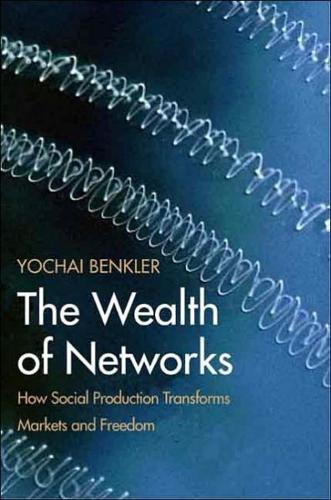
The Wealth of Networks: How Social Production Transforms Markets and Freedom
by
Yochai Benkler
Published 14 May 2006
It promises to enable social production and exchange to play a much larger role, alongside property- and marketbased production, than they ever have in modern democracies. 16 The first part of this book is dedicated to establishing a number of basic economic observations. Its overarching claim is that we are seeing the emergence of a new stage in the information economy, which I call the "networked information economy." It is displacing the industrial information economy that typified information production from about the second half of the nineteenth century and throughout the twentieth century. What characterizes the networked information economy is that decentralized individual action--specifically, new and important cooperative and coordinate action carried out through radically distributed, nonmarket mechanisms that do not depend on proprietary strategies--plays a much greater role than it did, or could have, in the industrial information economy.
…
Index Attribution Acknowledgments Chapter 1 - Introduction: A Moment of Opportunity and Challenge The Emergence of the Networked Information Economy Networked Information Economy and Liberal, Democratic Societies Enhanced Autonomy Democracy: The Networked Public Sphere Justice and Human Development A Critical Culture and Networked Social Relations Four Methodological Comments The Role of Technology in Human Affairs The Role of Economic Analysis and Methodological Individualism Economic Structure in Liberal Political Theory Whither the State? The Stakes of It All: the Battle over the Institutional Ecology of the Digital Environment Part One - The Networked Information Economy Introduction Chapter 2 - Some Basic Economics of Information Production and Innovation The Diversity of Strategies in Our Current Information Production System The Effects of Exclusive Rights When Information Production Meets the Computer Network Strong Exclusive Rights in the Digital Environment Chapter 3 - Peer Production and Sharing Free/Open-Source Software Peer Production of Information, Knowledge, and Culture Generally Uttering Content Relevance/Accreditation Value-Added Distribution Sharing of Processing, Storage, and Communications Platforms Chapter 4 - The Economics of Social Production Motivation Social Production: Feasibility Conditions and Organizational Form Transaction Costs and Efficiency The Emergence of Social Production in the Digitally Networked Environment The Interface of Social Production and Market-Based Businesses Part Two - The Political Economy of Property and Commons Introduction Chapter 5 - Individual Freedom: Autonomy, Information, and Law Freedom to Do More for Oneself, by Oneself, and With Others Autonomy, Property, and Commons Autonomy and the Information Environment Autonomy, Mass Media, and Nonmarket Information Producers Chapter 6 - Political Freedom Part 1: The Trouble with Mass Media Design Characteristics of a Communications Platform for a Liberal Public Platform or a Liberal Public Sphere The Emergence of the Commercial Mass-Media Platform for the Public Sphere Basic Critiques of Mass Media Mass Media as a Platform for the Public Sphere Media Concentration: The Power of Ownership and Money Commercialism, Journalism, and Political Inertness Chapter 7 - Political Freedom Part 2: Emergence of the Networked Public Sphere Basic Tools of Networked Communication Networked Information Economy Meets the Public Sphere Critiques of the Claims That the Internet Has Democratizing Effects Is the Internet Too Chaotic, Too Concentrated, or Neither?
…
These characteristics save the networked environment from the Babel objection without reintroducing excessive power in any single party or small cluster of them, and without causing a resurgence in the role of money as a precondition to the ability to speak publicly. 35 Justice and Human Development 36 Information, knowledge, and information-rich goods and tools play a significant role in economic opportunity and human development. While the networked information economy cannot solve global hunger and disease, its emergence does open reasonably well-defined new avenues for addressing and constructing some of the basic requirements of justice and human development. Because the outputs of the networked information economy are usually nonproprietary, it provides free access to a set of the basic instrumentalities of economic opportunity and the basic outputs of the information economy. From a liberal perspective concerned with justice, at a minimum, these outputs become more readily available as "finished goods" to those who are least well off.
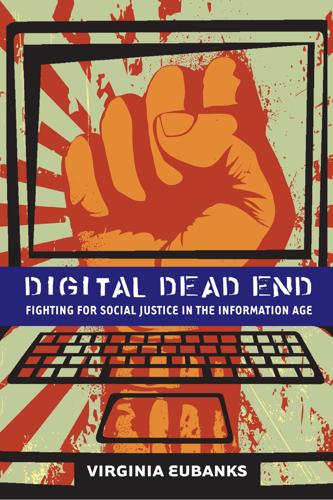
Digital Dead End: Fighting for Social Justice in the Information Age
by
Virginia Eubanks
Published 1 Feb 2011
From the standpoint of the YWCA, these policies seemed unmoored from reality. It was Silicon Valley all over again: the information economy was going to lift some boats, but it was a comfortable ride only if you could ignore the screams of the people drowning all around you. In this chapter, I use an intersectional approach to explore claims made by high-tech economic development boosters that the information economy is a force for equity. Intersectional feminist analysis of the information economy demands that we ask more difficult questions than “How do we fill the pipeline?” It should question taken-for-granted assumptions, center itself in explorations of power, oppression, and domination, and uncover features of social life that have been made invisible by dominant economic models (Barker and Feiner 2004, 9).
…
The ability of workers and other citizens to profit from the increased volatility of the information economy is, thus, closely tied to their social location. Topographies of Inequality in Troy The volatility of the information economy is not idiosyncratic because the ruptures and shocks of increasingly rapid change arrive in actual places. These places have history, contexts, legacies of past systems of domination, and institutions shaped by continuing oppression and inequity. In Troy, the volatility of the information economy arrived on a landscape already deeply inscribed by racial discrimination and economic stratification.
…
However, the most rapid job growth in the 66 Chapter 4 Table 4.5 Change in Capital Region industrial composition and wages, 2001–2008 NAICS industry classification No. of jobs gained or lost between 2001 and 2008 Employment growth between 2001 and 2008 Average weekly wage, 2008 (in 2000 dollars) Wage growth between 2001 and 2008 Goods-Producing Information Economy Occupations Manufacturing −4899 −18.0% $955 +5.4% Construction +123 +0.7% $813 +7.1% Top-Tier Information Economy Occupations Information −2271 −19.7% $937 +8.7% Financial activities +1370 +5.4% $880 +6.8% Professional and business services +4288 +8.6% $864 +8.3% Bottom-Tier Information Economy (Service) Occupations Education and health services +7168 +10.9% $604 +6.9% Other services +874 +5.8% $462 +2.4% Leisure and hospitality +4282 +14.7% $262 +5.4% Source: Bureau of Labor Statistics, Quarterly Census of Employment and Wages for the Albany-Schenectady-Troy MSA (U.S.
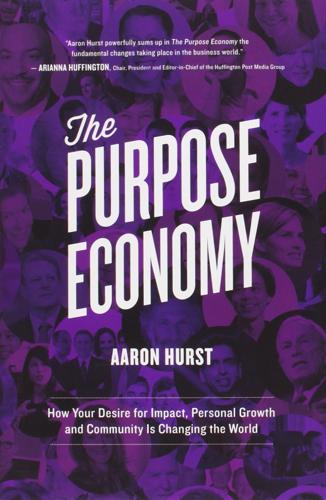
The Purpose Economy: How Your Desire for Impact, Personal Growth and Community Is Changing the World
by
Aaron Hurst
Published 31 Aug 2013
How could we help nudge the economy in the direction that would be most beneficial to people and the planet? The Information Economy changed organizations and the labor market as well as demanding a new, enabling environment. Could we expect the same types of changes in the emerging Purpose Economy? The impact of the Information Economy cannot be overstated. Its rise led to radical changes in government, policy, education, community dynamics, non-market human interactions, and the role and design of nonprofit organizations. Within organizations, the Information Economy not only created technology departments, it also catalyzed the widespread introduction of strategic planning, marketing, and human resources.
…
The expertise developed in building increasingly sophisticated machines was key to the rise of the Information Economy. And though the computer was conceived by a mathematician, Alan Turing, it was built and commercialized by engineers. Engineers also pioneered the series of new technologies that formed the infrastructure of the Information Economy, culminating with the introduction of the Internet. Of course, information, as well as the need to disperse and manage it, wasn’t new either: the Information Economy has been around since the first teacher. What was remarkable in 1977, when my uncle wrote his thesis, was the magnitude of its growth and the speed at which it was gaining dominance in the overall economy.
…
The portion of the economy connected to purpose will continue to grow as companies dedicate more of their business to creating purpose, and as more innovative organizations, such as hybrid non- and for-profit companies, are created. That was true also for the Information Economy. Leaders of that economy, like HP and IBM, started with a foot still in manufacturing, creating hardware to store and manage information. Today, we see the early Purpose Economy stars anchored in Information Economy platforms; Facebook, which enables self-expression and community on a massive scale, is a great example. Kickstarter, which now provides more funding for the arts than the National Endowment for the Arts, is another. With the rise of the Information Economy, most companies eventually adopted information-driven systems and tools into their operations and products, such as GPS in cars and robotics in manufacturing.
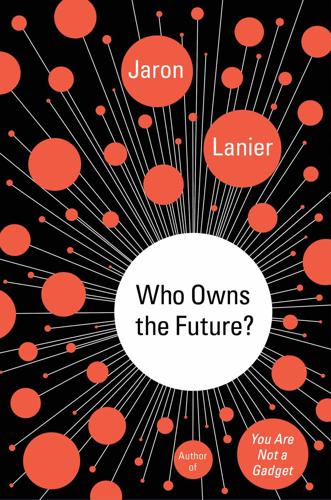
Who Owns the Future?
by
Jaron Lanier
Published 6 May 2013
Beyond that, just because someone is on the bum side of the information economy doesn’t mean that person will be poor. There ought to be plenty of people who do very well in physicality. Deeply physical professions like child care, lutherie, or massage might become better paid than ever in an advanced information economy. The more advanced our electronic gadgets become, the more expensive “artisan” organic produce seems to become. Virtuality reveals physicality to be ever more precious in comparison. At the same time, creative practitioners of inherently human physical trades ought to do well in the information economy, too, by starting trends and helping supply the most valuable example data to cloud algorithms.
…
Meanwhile, trinkets tossed into the crowd spread illusions and false hopes that the emerging information economy is benefiting the majority of those who provide the information that drives it. If information age accounting were complete and honest, as much information as possible would be valued in economic terms. If, however, “raw” information, or information that hasn’t yet been routed by those who run the most central computers, isn’t valued, then a massive disenfranchisement will take place. As the information economy arises, the old specter of a thousand science fiction tales and Marxist nightmares will be brought back from the dead and empowered to apocalyptic proportions.
…
The reason is that the distribution of interest and connections gets “thicker” or “bushier” on a general graph than on a tree. More nodes become connected to a typical node. The biggest shift since the publication of my previous book has been the rise of the app economy, pioneered by Apple. This is generating some serious cash flow, and I take that as a sign that a better, more useful information economy is possible. However, the current information economy is simply not doing enough. If there were a universal app economy, it might be big enough to support a middle class. As it is, the app economy is confined to proprietary tree-shaped company stores. Even so, this sub-economy is getting bigger, but not big enough fast enough to save the middle class.
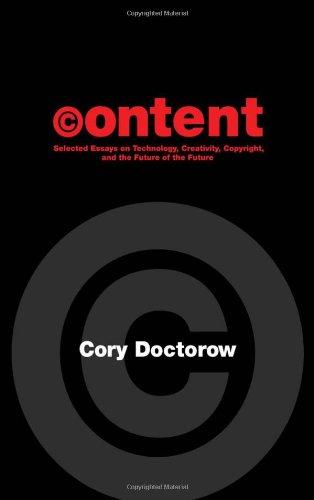
Content: Selected Essays on Technology, Creativity, Copyright, and the Future of the Future
by
Cory Doctorow
Published 15 Sep 2008
This is why I give away digital copies of my books and make money on the printed editions: I'm not going to stop people from copying the electronic editions, so I might as well treat them as an enticement to buy the printed objects. But there is an information economy. You don't even need a computer to participate. My barber, an avowed technophobe who rebuilds antique motorcycles and doesn't own a PC, benefited from the information economy when I found him by googling for barbershops in my neighborhood. Teachers benefit from the information economy when they share lesson plans with their colleagues around the world by email. Doctors benefit from the information economy when they move their patient files to efficient digital formats. Insurance companies benefit from the information economy through better access to fresh data used in the preparation of actuarial tables.
…
Hell, look at my last barber, in Los Angeles: the man doesn't use a PC, but I found him by googling for "barbers" with my postcode — the information economy is driving his cost of customer acquisition to zero, and he doesn't even have to actively participate in it. Better access to more information is the hallmark of the information economy. The more IT we have, the more skill we have, the faster our networks get and the better our search tools get, the more economic activity the information economy generates. Many of us sell information in the information economy — I sell my printed books by giving away electronic books, lawyers and architects and consultants are in the information business and they drum up trade with Google ads, and Google is nothing but an info-broker — but none of us rely on curtailing access to information.
…
But not anymore: today, the US Trade Rep using America's political clout to force Russia to institute police inspections of its CD presses (savor the irony: post-Soviet Russia forgoes its hard-won freedom of the press to protect Disney and Universal!). How did entertainment go from trenchcoat pervert to top trade priority? I blame the "Information Economy." No one really knows what "Information Economy" means, but by the early 90s, we knew it was coming. America deployed her least reliable strategic resource to puzzle out what an "information economy" was and to figure out how to ensure America stayed atop the "new economy" — America sent in the futurists. We make the future in much the same way as we make the past. We don't remember everything that happened to us, just selective details.
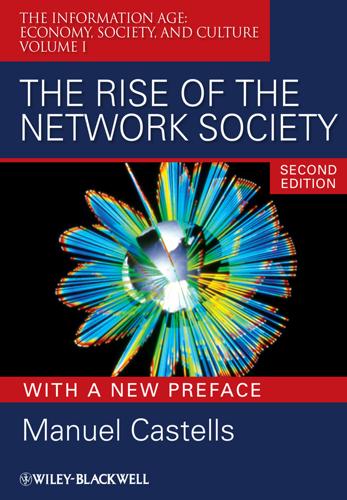
The Rise of the Network Society
by
Manuel Castells
Published 31 Aug 1996
Lessons from the Industrial Revolution The Historical Sequence of the Information Technology Revolution Models, Actors, and Sites of the Information Technology Revolution The Information Technology Paradigm 2 The New Economy: Informationalism, Globalization, Networking Productivity, Competitiveness, and the Informational Economy The Global Economy: Structure, Dynamics, and Genesis The New Economy 3 The Network Enterprise: the Culture, Institutions, and Organizations of the Informational Economy Organizational Trajectories in the Restructuring of Capitalism and in the Transition from Industrialism to Informationalism Information Technology and the Network Enterprise Culture, Institutions, and Economic Organization: East Asian Business Networks Multinational Enterprises, Transnational Corporations, and International Networks The Spirit of Informationalism 4 The Transformation of Work and Employment: Networkers, Jobless, and Flex-timers1 The Historical Evolution of Employment and Occupational Structure in Advanced Capitalist Countries: the G-7, 1920–2005 Is There a Global Labor Force?
…
Therefore, to argue that productivity creates economic growth, and that productivity is a function of technological change, is tantamount to stating that the characteristics of society are the crucial factors underlying economic growth, by their impact on technological innovation. This Schumpeterian approach to economic growth12 raises an even more fundamental question concerning the structure and dynamics of the informational economy. Namely, what is historically new about our economy? What is its specificity vis-à-vis other economic systems, and particularly vis-à-vis the industrial economy? Is knowledge-based productivity specific to the informational economy? Economic historians have shown the fundamental role played by technology in economic growth, via productivity increase, throughout history and especially in the industrial era.13 The hypothesis of the critical role of technology as a source of productivity in advanced economies seems also able to comprehend much of the past experience of economic growth, cutting across different intellectual traditions in economic theory.
…
In the process, they created, and shaped, a new, global economy. The historical specificity of informationalism A complex picture emerges regarding the process of historical development of the new informational economy. This complexity explains why highly aggregated statistical data cannot reflect directly the extent and pace of economic transformation under the impact of technological change. The informational economy is a distinctive socio-economic system in relationship to the industrial economy, but not because they differ in the sources of their productivity growth. In both cases, knowledge and information processing are critical elements in economic growth, as can be illustrated by the history of the science-based chemical industry51 or by the managerial revolution that created Fordism.52 What is distinctive is the eventual realization of the productivity potential contained in the mature industrial economy because of the shift toward a technological paradigm based on information technologies.
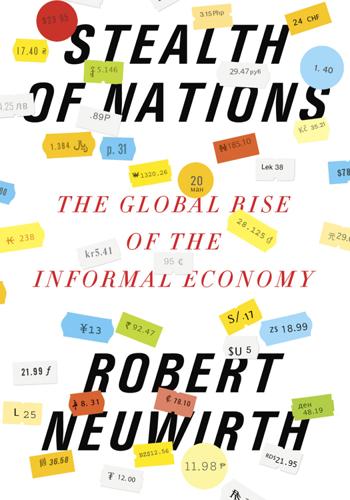
Stealth of Nations
by
Robert Neuwirth
Published 18 Oct 2011
Perhaps the only people who had the good sense to ignore the term “informal” were the very ones whose lives it purported to describe. Few of the merchants who operate on the roadsides or in the chaotic marketplaces of the developing world have any idea what the informal economy is. I found this out the hard way. My first foray into the world of unlicensed trade was a trip to Lagos, Nigeria. I spent my first few days in the African megacity walking up to merchants in the city’s street markets, introducing myself, and telling them I was writing a book on the informal economy. Without exception, they gawked at me and refused to talk. My words seemed to fill them with terror. Na so trouble plenty. Fortunately, I was working with two locals who were helping me navigate the chaotic and cramped markets of the city.
…
“It says what people are not doing—not wearing conventional dress, not being regulated by the state—but it does not point to any active principles they may have for doing it. It is a passive and conservative concept that acknowledges a world outside the bureaucracy, but endows it with no positive identity.” That’s why I propose to jettison the phrase “informal economy” and to adopt, instead, the moniker “System D.” Of course, changing the name is cosmetic surgery. But language does encapsulate some of the deeper values inherent in a society. Rebranding the informal economy as System D provides an opportunity to strip away layers of preconceptions and judgments, to reduce the association with criminality, and to give this economic arena a chance to prove the naysayers wrong.
…
For these merchants, the answer lies not in groveling at the altar of formalization but in creating a middle ground in which the flea market is a fine model for productive economic activity. “We need to come up with models that allow the street trader to coexist along with retail shops and along with large malls,” Chen told me. “The informal economy is not the problem. It’s part of the solution. Street traders, waste pickers, market women: these people really do contribute to the economy and to their cities. How can we manage our cities in a way that has space for them? What we need to do with the informal economy is to figure out how to help it become more productive, more efficient, and more effective.” Freedom to Trade Political œconomy … proposes to enrich both the people and the sovereign.
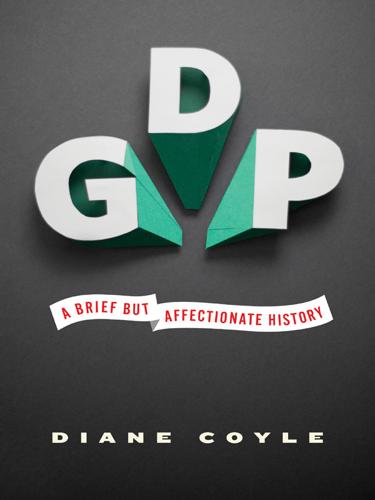
GDP: A Brief but Affectionate History
by
Diane Coyle
Published 23 Feb 2014
“A wave of euphoria swept over Italians after economists recalibrated their statistics, taking into account for the first time the country’s formidable underground economy of tax evaders and illegal workers,” reported the New York Times.24 The observation and labeling of the informal economy originated with the work of the anthropologist Keith Hart, based on his fieldwork in Ghana in the late 1960s and early 1970s. Subsequently, the extensiveness of informal economic activity has been widely recognized. It means business carried out without paying taxes or acquiring permits or observing all government regulations such as health and safety or employment laws. There are pluses and minuses. The informal economy is highly entrepreneurial and creates lots of jobs. In some countries it occurs either because government regulations are onerous—such as high import duties on manufactured goods shipped into developing countries, or finicky rules about the placement of shelves or sinks in developed countries—or because people are so poor they need to earn money however they can.
…
In developing countries, the proportion of GDP accounted for by economic activity that stays outside the official net for taxes and scrutiny is high: the “informal” economy will be large in a poor country where many people work as self-employed entrepreneurs, farmers, or day laborers. In developed countries, the proportion is variable, ranging from around 7 percent of GDP in the United States and 8 percent of GDP in Switzerland to 20 percent in Italy and 25 percent in Greece (all 2012 estimates). The average is about 15 percent of GDP. In the formerly communist “transition” economies, the typical share of the shadow economy is 21–30 percent, and in poorer developing economies 35–44 percent of GDP. The informal economy has been growing in size around the world.
…
Abramowitz, Moses, 113 Africa, 31–33, 72, 93, 138 Anders, William, 68 art, 127–28, 132 assets, contributing to sustainability, 134–35, 137 austerity measures, 23 Australia, 73, 109, 118 automation, 128–29 Bangladesh, 53 base year, in GDP calculations, 31, 33–34 Baumol, William, 127 Benford’s Law, 3, 143n3 Berners-Lee, Tim, 81 Bhalla, Surjit, 53 Bhutan, 112 Bos, Frits, 47–48 Boskin Commission, 35, 88 Brazil, 94, 125 Bretton Woods system, 48 BRIC economies, 94, 96 Brynjolfsson, Erik, 128–30 Burundi, 73 business, purpose of, 95 Campaign for Happiness, 112 Canada, 73, 89, 109 capabilities, 72–73, 134 capital consumption, 131 capitalism: 1970s crisis of, 59–75; 2008 crisis of, 93–118; achievements of, 5–6; innovation as hallmark of, 91; investment and depreciation, 131–33 capital widening, 132 Carson, Rachel, Silent Spring, 69 centrally planned economies, 46–47, 56, 60, 66–68 Central Statistical Office (United Kingdom), 18 Chad, 73 chain-weighted price indexes, 33–34 China: economic growth of, 94, 96–97; economic limitations of, 96–97; GDP of, 51–53, 96, 97; living standards in, 51, 57, 96; manufacturing and exporting in, 82, 97, 125; U.S. relations with, 97 Christophers, Brett, 104, 105 circular flow, 26–27, 27f, 57, 63 Clark, Colin, 12, 13, 17, 50, 84 Clean Water Act (1972), 69 Clegg, Nick, 110 Cobb, John, 116 Cold War, 46–47, 60, 66 communications technology, 81–82 communism, 46–47, 60, 66–68, 96 compound arithmetic, 64, 83, 130–31 comprehensive wealth, 133, 135 computers, 80–82, 87–88 conspicuous consumption, 112 consumerism, 45, 112 consumer spending (C), 27–28, 45 consumer surplus, 130 customization, of goods and services, 123–25 Cuyahoga River, 69 Daly, Herman, 116 Darling, Alastair, 102 dashboard approach, 118, 136 data collection, 33, 37, 51–53, 137–38 Data Resources, Incorporated (DRI), 21 Davenant, Charles, 8 David, Paul, 79 Defense Advanced Research Projects Agency (DARPA), 81 defense spending, 14–16 deferred stock options, 37 deflators, 31 Defoe, Daniel, 9 DeLong, Brad, 86, 117 Democratic Republic of Congo, 54, 73 Deng Xiao Ping, 96 depreciation, 25, 30, 131–33 developed/high-income countries: GDP of, 72, 93; informal economy in, 107 developing/low-income countries: economic growth/stagnation in, 61, 71–72; GDP of, 32–33, 51, 71–72; informal economy in, 107, 109; and PPP, 50–53 development aid, 72, 74 digital products and services, 129–31 disasters, GDP growth after, 43 Domar, Evsey, 55 double-entry bookkeeping, 8 Easterlin, Richard, 111 Eckstein, Otto, 21 econometric models, 20–21, 23 economic growth: critiques of, 60; in eighteenth and nineteenth centuries, 12; lack of, in developing countries, 61; meanings and measures of, 15; meanings of, 123; potential rate of, 82–83; problems arising from, 63–64; real, 30–31; significance of, 135–36; sustainable, 71, 116, 137; theories/models of, 55–57, 78–81; virtuous circle of, 57, 59, 64, 73, 79; well-being and welfare aided by, 135 economics, challenges to conventional, 59–61 economic welfare.
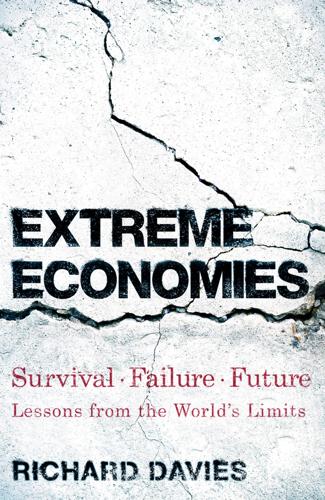
Extreme Economies: Survival, Failure, Future – Lessons From the World’s Limits
by
Richard Davies
Published 4 Sep 2019
Source: World Resources Institute THE TRAGEDY OF THE JUNGLE THE PROBLEM WITH FREE EXCHANGE In their own ways the resilience of the communities in the first part of the book showed the best of economics. These are places where people start with nothing but build an informal economy in which they innovate, often inventing an unofficial currency, creating markets from scratch and trading to each other’s mutual benefit. This reaction to economic devastation whether due to disaster, war or incarceration seems innate, and it shows how an informal or underground marketplace can allocate scarce resources, help people define roles and identities, and give meaning to life. Places like Darien show that informal economies are not always benign. Absent of rules and regulations, markets can arise that destroy resources, reduce the value of a human settlement and undermine its long-term prospects.
…
The difference is that the malign government has been so long-lasting that a kind of privatization of the state has occurred, with direct, micro-level deals done between citizens and state employees. In Kinshasa the organic and informal economy delves into areas of life, such as policing, that even the most market-orientated countries regard as public or state functions. In its span and depth, the informal economy is greater than we appreciate. But this city, like the Darien Gap, offers a warning about the limits of all this. The culture of débrouillez-vous – to look after yourself, trade informally, and avoid the corrupt and voracious tax collector – is completely rational when public officials like police and teachers demand payment directly.
…
So many people were arriving that they were forced to rationalize their operation, focusing on just a few essentials: health and vaccinations, food and water, and security. They ceded control of much that is rigorously enforced in other camps: details such as how houses should be laid out, and the number of shops and traders that are permitted. Without close administration, Zaatari became a lawless place, with fights breaking out. At the same time an informal economy flowered as Syrians, determined to re-create a little of the economic life they had left behind, set up mini versions of the companies they had run at home. Source: UNHCR, see notes At first the shopkeepers operated from tents. Then, when the UNHCR provided wooden caravans for the refugees to live in, the entrepreneurs got hold of these, cut the sides out and created small kiosks.
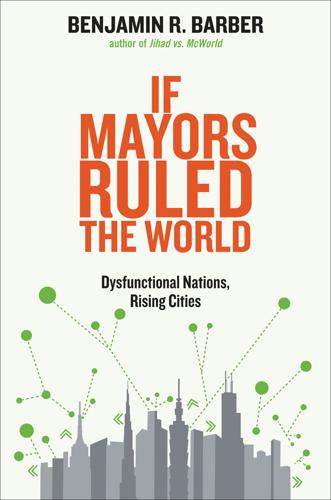
If Mayors Ruled the World: Dysfunctional Nations, Rising Cities
by
Benjamin R. Barber
Published 5 Nov 2013
De Soto has observed wryly that if the formal Egyptian economy was really the only recourse for twenty million educated young men without jobs, the country would have been swallowed up in permanent revolutionary struggle decades prior to the Arab Spring or suffered mass starvation on a Malthusian scale. As things stand, the informal economy prevents the poor from falling into the abyss without necessarily lifting them out of poverty. Advocates of microfinance, of legalizing squatters’ rights, of giving title to property users who are not owners, and of other policies aimed at formalizing the informal economy and bringing practices outside the law within the circle of legitimacy, have placed a bet, however. It is the informal economy that minimally keeps the poor from expiring, and if elaborated, formalized, and made legitimate, it can help overcome radical inequality and foster mobility—in time, greater civic integration as well.
…
Social observers and civic advocates like Hernando de Soto, the director of the Institute for Liberty and Democracy in Peru, have long recognized, however, that urban economics is as much about informal power as about city government, as much about the invisible economy as about public jobs or formal corporate institutions. As Katherine Boo poignantly shows, the reality in third-world megacities in Africa, Latin America, and Asia is an informal economy that offers employment to the technically “jobless,” lodging to the technically “homeless,” and hope, however wan and perverse, to the actually “hopeless.” The question is how to unlock the informal economy and liberate the “dead capital” trapped inside. De Soto has observed wryly that if the formal Egyptian economy was really the only recourse for twenty million educated young men without jobs, the country would have been swallowed up in permanent revolutionary struggle decades prior to the Arab Spring or suffered mass starvation on a Malthusian scale.
…
The dramatic story related by Jesse Katz of trying to sanction and support street vending by establishing an “Art-Gricultural Open Air Market” on Little Street cannot be retold here, but the effort nearly destroyed the neighborhood’s traditional unlicensed but thriving vending economy, which, Katz writes, was a “hodgepodge that sustained an ecosystem, an entry-level marketplace in which anyone could afford to participate, as buyer or seller.”37 This is the very definition of the informal economy’s potential for creative entrepreneurship, which, if harnessed, can impact inequality significantly. But in Los Angeles, Katz shows, city efforts echoed other well-intended urban policies like those that lead to the construction of dysfunctional high-rise projects. Formalizing what had been working informally can then undercut the informal economy’s core spirit without facilitating its incorporation into conventional business practices. Trying to order and legalize what vendors on their own were doing, creating a system for “allocating space and resolving disputes” that duplicated the informal system was simply not a recipe for success.
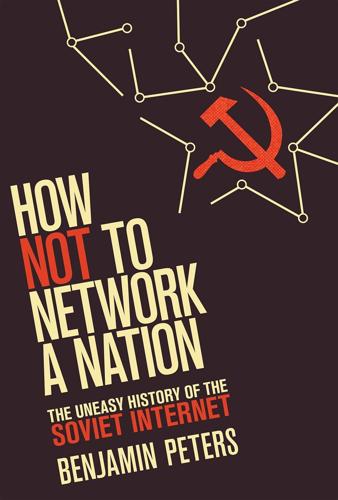
How Not to Network a Nation: The Uneasy History of the Soviet Internet (Information Policy)
by
Benjamin Peters
Published 2 Jun 2016
On the face of it, this suggests deep contradictions within capitalist and socialist systems that belie the claimed and apparent differences between the two blocs. But even those concerned with cybersecurity acknowledge that it can be difficult to identify the “other” in the network environment. What was the uncanny valley in this analytical zone? For those who think about the information economy, differences between the East and West are indiscernible. Cristiano Antonelli’s (1992) seminal insights into the nature of the information economy, in which cooperation and coordination are as important as—or more important than—competition for long-term economic success were inductively developed from detailed studies of the practices and activities of transnational corporations on both sides of the iron curtain (many funded by the unfortunately short-lived United Nations Center on Transnational Corporations).
…
The reality of the latter half of Soviet economic history reveals that private life increasingly depended on the resilience and robustness of people’s connections to the informal economy. The command economy operated on hidden networks of tolkachy (literally “pushers”) or “go-to-guys” or “fixers” who got the job done outside of the formal economic plan. Without the support of tolkachy, thousands of official economic quotas over decades never would have been met.42 Recent economic studies based on previously unconsulted archival data have estimated that a stunning average of 24 percent of annual expenditures per household in the Soviet Union went to the informal economy between 1968 and 1990.43 The estimated percentage of GNP not accounted for by the informal economy over the same period ranges between 17 and 40 percent.44 Despite both official claims and its enemies’ fears otherwise, Soviet economic life drew its vitality not from the strictures of top-down command and control but from the fitful hustling and the scrambling that came about because of those commands.
…
For a basic review of tolkachy and other informal mechanisms in the economy, see Mark Beissinger, Scientific Management, Socialist Discipline, and Soviet Power (Cambridge: Harvard University Press, 1988); Ledeneva, Russia’s Economy of Favors; and Alena V. Ledeneva, Can Russia Modernize? Sistema, Power Networks and Informal Governance (New York: Cambridge University Press, 2013). 43. Byung-Yeon Kim, “Informal Economy Activities of Soviet Households: Size and Dynamics,” Journal of Comparative Economics 31 (3) ( 2003): 532–551. 44. Kim, “Informal Economy Activities of Soviet Households,” 532–535; Simon Johnson, Daniel Kaufmann, and Andrei Shleifer, “The Unofficial Economy in Transition,” Brookings Papers on Economic Activity 2 (1997): 159–221. 45. Ledeneva, Russia’s Economy of Favors, 12. 46.
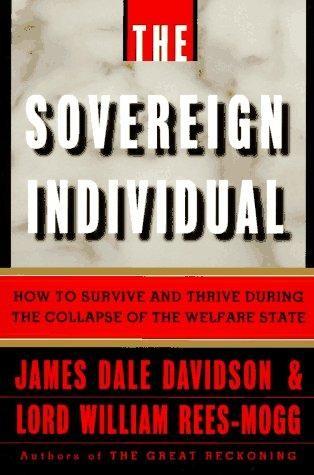
The Sovereign Individual: How to Survive and Thrive During the Collapse of the Welfare State
by
James Dale Davidson
and
William Rees-Mogg
Published 3 Feb 1997
A highway, after all, is an industrial version of a footpath, a network for the physical transit of people and goods. The information economy is not like a highway, a railroad, or a pipeline. It does not haul or transport information from point to point the way the Trans-Canada Highway carries heavy trucks from Alberta to New Brunswick. What the world calls the "Information Superhighway" is not merely a transit link. It is the destination. Cyberspace transcends locality It involves nothing less than the instantaneous sharing of data everywhere and nowhere at once. The emerging information economy is based in the interconnections linking and relinking millions of users of millions of computers.
…
Those who live in jurisdictions that remained poor or underdeveloped during the industrial period have the most to gain by the liberation of economies from the confines of geography. This is contrary to what you will hear. The main controversy surrounding the advent of the information economy and the rise of the Sovereign Individual will focus on the allegedly adverse effects on "fairness" arising from the death of politics. It is certainly true that the advent of the global information economy will deal a mortal blow to large-scale income redistribution. The main beneficiaries of income redistribution in the Industrial Age have been inhabitants of wealthy jurisdictions whose level of consumption is twenty times higher than the world average.
…
The tendency toward the devolution of large systems is already powerful because of the fall away of scale economies and the rising costs of holding fragmenting social groups together. The irony of information wars is that they could well impose more of a shock to the brittle systems left over from the Industrial Age than to the emerging information economy itself. As long as essential information technology continues to function, cybercommerce could proceed in tandem with the struggles of information war in a way that could never happen in a territorial war. You could not imagine millions of commercial transactions taking place at the front in one of the twentieth century's wars.
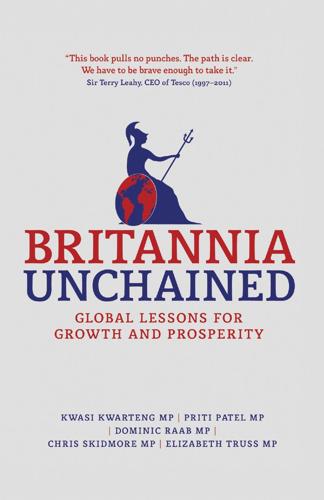
Britannia Unchained: Global Lessons for Growth and Prosperity
by
Kwasi Kwarteng
,
Priti Patel
,
Dominic Raab
,
Chris Skidmore
and
Elizabeth Truss
Published 12 Sep 2012
It is clear from this that much of the necessary infrastructure is in place. What is lacking is the willingness to take risks. Black Market Buccaneers An interesting side note on the question of risk and innovation is the so-called ‘informal economy’. This is estimated to have a collective Buccaneers 89 value of $10 trillion.25 Robert Neuwirth’s Stealth of Nations: The Global Rise of the Informal Economy makes the bold claim that this motley collection of enterprises have a great deal to teach the rest of us.26 Neuwirth estimates that half of the workers in the world are part of this shadow economy. The black market operates at the purest level of entrepreneurialism, untouched by law, regulation or tax.
…
It had little capacity to properly supply the needs of its people. With the informal economy we see the other side, a lawless place where demand can be instantly met by supply, in its rawest, most elemental form. For example, Neuwirth tells us that it was underground Chinese manufacturers that first offered a dual-sim-card mobile phone. It was sold through street vendors in countries where mobile phone provision works on a patchwork basis.27 This is something that can now be bought in a perfectly legal way, but it was the informal economy that got there first. The market abhors a vacuum, and it is the smaller, more nimble enterprises that can fill them, long before a multinational leviathan like, for example, Nokia, can even begin to contemplate developing a product.
…
Economist Le Dang Doanh estimates that in Vietnam the private sector currently constitutes 40 per cent of GDP, on top of which exists a further 20 per cent which can be considered the ‘underground’ economy.28 Clearly, law and order, intellectual property rights and consumer law exist for a reason, and are on the whole beneficial. But as a sheer experiment in what the poorest entrepreneur can achieve, when nearly all society’s strictures are relaxed, the informal economy is pretty hard to beat. The tradeoff between risk and reward is more visible here than anywhere else. As Steve Jobs once famously said, ‘It’s more fun to be a pirate than to join the navy.’ 90 Britannia Unchained Frontier Spirit The conceit that Britain ought to play the wise cultured Athenian to the boorish new Romans of the US is an old one, and not without its charms for those still nostalgic for empire.
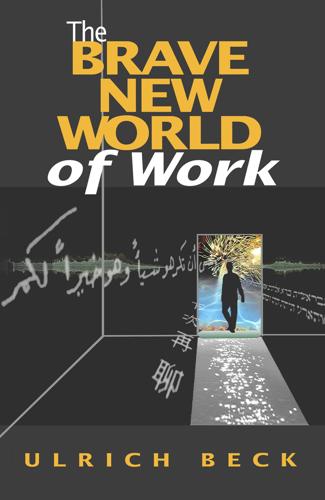
Brave New World of Work
by
Ulrich Beck
Published 15 Jan 2000
For a long time now, any policy that intentionally eliminates low-cost jobs has not thereby removed the need in the economy or among the population for work of that kind. Criminalization is thus tantamount to a self-fulfilling prophecy. It hastens the movement into irregular work in the informal economy, which it then brands as criminal. Cheaper services for groups with declining incomes Formal services (because of high taxes and charges, among other things) are becoming prohibitively expensive for sections of the population with declining incomes who still want to maintain their standard of living. The informal economy is thus seen as a boon by these groups. Informalization as a strategy of corporate rationalization The spread of casual labour, spurious self-employment and ‘permanently temporary’ work offers many advantages for a strategy of corporate rationalization.
…
Otherwise they are ‘social cheats’, whose transgression is harmful to the public good. This vicious circle – contradictory regulations, paradoxical coalitions, high-cost services, income loss, informality as a rationalization strategy, surplus time and deep financial insecurity of the unemployed – encourages the further spread of grey work and the informal economy. Unless the informal economy is decriminalized, the problems of the labour market can hardly be successfully tackled. But then the dykes may possibly break. The Either-Or policy – either work and a wage or no work at all – means that the new risks of informality are heaped on to the shoulders of people in work.
…
On the one hand, it points to the huge potential of the informal economy to integrate people willing to work and to offer them some chance of making a living. Truly these countries have a remarkable capacity to absorb people amid soaring population growth and flight from the land. On the other hand, the label ‘not unemployed’ can only be described as cynical in a region of the world where most of the excluded underclass does not show up in the ‘unemployment’ statistics. With regard to the Western view of unemployment as a scandal, this cynicism may even be turned to political use. For decriminalization and recognition of the informal economy might appear to some – at least as far as the statistical construction of reality is concerned – as precisely the royal road out of unemployment.
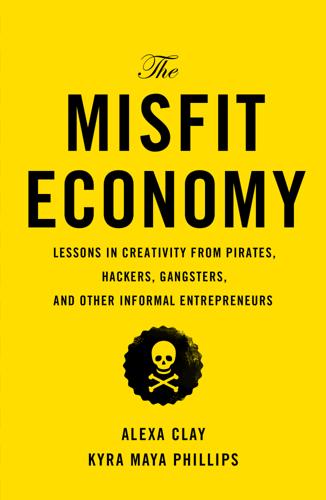
The Misfit Economy: Lessons in Creativity From Pirates, Hackers, Gangsters and Other Informal Entrepreneurs
by
Alexa Clay
and
Kyra Maya Phillips
Published 23 Jun 2015
From Airbnb (a rental website that has gone from 120,000 listings in early 2012 to over 300,000 at the time of this writing) to Zipcar (the car-sharing service that was sold to Avis for $500 million in January 2013), people the world over are moving away from the fixed, formal “own it” model to a more fluid “exchange it” approach. The importance of the informal economy is starting to become more apparent in other European countries. In the United Kingdom, a September 2012 study6 by the Royal Society of Arts (RSA) and Community Links found that the informal economy was flourishing, and that its existence was, in fact, important to the health of entrepreneurship. A nod to the need for hustle, this study underscored that in order for entrepreneurs to formalize their activities (as in, legally become a taxpaying registered business), they often have to trade one skill for another—exchange a website design for a marketing strategy, for example, or pay a supplier off the books.
…
The Michael Bloombergs, the Hot Dog Vendors, and the Returns to Self-Employment” (Levine and Rubinstein), 63 Don’t Go Back to School (Stark), 22 Dorr, Pam, 71 drug dealing, 170, 172, 178 drug industry, 124 drug-trafficking organizations, 15, 124, 171 East India companies, 94 EasyJet, 84–85 eBay, 83, 84 Economist, 35 Educador, 180, 182, 183 education, alternative, 22–23, 139–42 education industry, misfits in, 22–23 electric cars, 78 Embassy Network, 221 Energize Clinton County, 68 energy industry, 90, 204–5 Engines of Our Ingenuity, The (Lienhard), 87 England, 121, 156, 158 entourages, 211–14 entrepreneurship: copying and, see copying for ex-criminals, 55–56, 58, 60–63, 207–8 hacking and, see hackers, hacking hustling and, see hustling informal economy as important to, 66 misfits and, 30–34 pivoting and, see pivoting provocation and, see provocation registering a business and, 66–67 ESADE Business School, 65 European Union Naval Force, 27 evolution, theory of, 86–87 exotic animals, 3, 4 see also camels Exxon, 90 Fabricant, Annie, 157–58 Facebook, 83, 103–5 hacker ethic of, 122–23 Faina, MV, 14 farming, 197, 198, 203 camel milking and, 3, 4, 6, 9, 74 Farrand, Tom, 158–59 fashion industry, 85 Faust, 31 Federal Bureau of Investigation (FBI), 174, 177 Feinstein, Andrew, 26 Felix, Levi, 184–85 Fernandez, Antonio (“King Tone”), 170–79, 192 festivals, 156–58 file-sharing platforms, 96–98 film industry, misfits in, 32–34 Financial Times, 161 Food and Drug Administration, U.S., 7, 9, 74 Forbes, 79 Ford, Henry, 41, 169 Ford, William Clay “Bill,” Jr., 41 Ford Aerospace, 40 Ford Motor Company, 40–43, 202, 205–6 Foreign Policy, 124 Forever 21, 85 France, 19–20, 125–27, 151 Franklin, Rosalind, 86 free market economy, 18 Freud, Sigmund, 189 Friend, Stephen, 23–24 Friendster, 103 From Earth to the Moon (Verne), 148 Gage, Tyler, 180–84, 200, 209–10 Galkayao, Somalia, 26 gangs, 170–79 Gates, Bill, 63 genome sequencing, 100–101 Germany, 95, 145 Gibran, Kahlil, 25 GlaxoSmithKline, 101 global financial crisis (2008–2009), 64, 67 Glory Agents, 157 Goddard, Robert, 148 Good for Nothing, 159 Google Reader, 113 Grateful Dead, 200 Great Britain, 79, 88, 89, 92–93, 107–8 Greensboro, Ala., 71–72 Griffel, Mattan, 23 Groupon, 83 Guangdong, China, 81 guayusa, 182–83 Guerilla Open Access Manifesto, 113 Guerrilla Girls, 151 gun use, 133 Hacker Ethic, 37–38, 110, 125, 126 hacker movement, 110–14, 123 hackers, hacking, 19–20, 107–37, 149 access to information and, 110, 112–14 characteristics and mentality of, 122, 136–37 of culture, 205 of electronics, 108–9, 110–14 of establishments, 123–25 manipulation and, 108 mistrust of authority and, 110, 112 motivation for, 112 perception of violence and, 129–36 physical, 125–27 pirates as, 116–22 rules and principles of, 37–38 as small players, 123–24 as term, 111, 115 “white hat,” 108–9 see also specific people and organizations Hackers (Levy), 110 Hadid, Zaha, 81 Hafun, Somalia, 13 H&M, 85 Hargeisa Prison, 26 Harrelson, Woody, 190 Harvard Business Review, 124 Harvard Medical School, 187, 190 Harvard University, 199–200 Hasan, Abdi, 16, 26–27 health care industry, 23–24 see also pharmaceutical industry Hearts of Darkness, 32 Hemingway, Ernest, 211–13 Hendrix College, 140 HERO, 71 High Court of Admiralty, 117 HI-SEAS, 144 HIV/AIDS, 95, 129 Hofstra University, 63 Hoke, Catherine (“Cat”), 58–60, 62, 63–64, 207–9 Hong Kong, China, 82 Hostetler, Corlene, 3 Hostetler, Sam, 3–4, 6–7, 8, 10, 11 hotel industry, hacking of, 124 “How the Weak Win Wars” (Arreguín-Toft), 123 Hulu, 96, 97 Hulu Plus, 97 Humpback Dairies, 6–7 hustling, 51–75 community building and, 68–72 for ex-criminals, 55–56, 59–64 in informal economy, 65 while in prison, 51–54, 55, 57, 59 as term, 57–58 hypnotic regressions, 187, 189 IBM, 92 IKEA, 115 “In Cannes, Women Show Their Reels, Men, Their Films,” 152 incarceration, 51–54, 55, 57, 58–59, 173–74 entrepreneurship programs and, see Defy Ventures; Prison Entrepreneurship Program (PEP); Venturing Out hustling and, 51–54, 55, 57, 59 India, 15, 78, 94–95 indigenous tribes, 180–84, 200 Industrial Revolution, 38 informal economy, see misfits, misfit economy information, access to, 110, 112–14 Infor-Nation, 55, 56, 58 innovation, 18, 24–25, 35, 37, 85, 86, 92, 94, 96–98, 102 copying and, see copying in large corporations, 167 patents as threat to, 92 pivoting and, 169 “In Praise of Misfits,” 35 intellectual property, 92 laws for, 79 sharing of, 89 theft of, 77, 85, 93, 105 see also copying International Anti-Counterfeiting Coalition, 81 International Women’s Day, 151 Internet censorship, 113 Invisible Hook, The: The Hidden Economics of Pirates (Leeson), 118 iPhone, 169 Iraq, 133 iTunes, 96 Jackson, Jesse, 176 Jamaica, N.Y., 49, 50 Jargon File, The, 111 Jet Propulsion Laboratory, 148 Jobs, Steve, 30–31, 34, 169 Johns, Adrian, 93 Johnson, Charles, 118, 119 Johnson, Steven, 98 Jolly Roger: The Story of the Great Age of Piracy (Pringle), 120 Joyce, James, 213 Kenning, Tom, 156 khat drug trade, 15 Kickstarter, 102 King, Martin Luther, Jr., 115 King Blood (Latin King leader), 171, 173, 174, 175 Knockoff Economy, The (Raustiala and Sprigman), 85 Kunstmann, Lazar, 19–20, 126, 127 La Barbe, 151–53, 154, 155, 204, 214, 216 Lackman, Jon, 19–20, 126 Lady Gaga, 90 Last Broadcast, The, 32 Latin Kings, 170–79 Latinos, 170–71 Lawrence, T.
…
They’re found in gangs and within hacker collectives. They’re in the crowded streets of Shenzhen, the prisons of Somalia, the flooded coastal towns of Thailand. Resourceful and creative, loyal and wily, they are slum dwellers, dissidents, and outlaws. Call it the gray market, the black market, the informal economy. Or shadow markets or the makeshift economy. We call it the Misfit Economy. Whatever the term, misfit innovators inhabit a different world—a world that, by conventional wisdom, should have nothing to do with traditional businesses and mainstream markets. However, far from being deviants who pose a threat to our social and economic stability, these entrepreneurial misfits are pioneering new ways of thinking and operating, establishing new best practices that we all can learn from and apply to formal markets.
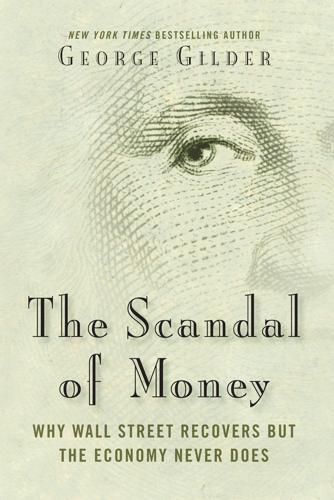
The Scandal of Money
by
George Gilder
Published 23 Feb 2016
It is a belief in a world where work and thrift today are rewarded by prosperity and progress tomorrow, where savings promise comfort in retirement, and where our children enjoy glowing prospects on new frontiers of opportunity. The way monopoly money has savaged these hopes is a great untold story of our time. In an information economy, governed by wealth achieved through learning, money is a messenger from the future—a bearer of information and a signal of opportunity. If the money no longer conveys a reliable message—a way of thinking coherently about our priorities and our values—how can we harbor intelligible dreams? Today we fear the dream is failing—that something has corrupted the links between our history and our horizons, that some insidious force is stealing our future.
…
Federal Express launched its overnight deliveries, Walmart its retailing revolution, Southwest Airlines its democratization of the air. Containerization vastly facilitated international shipping and trade. Annual productivity growth, as the advance of GDP over hours of labor, did not plummet from 3 percent to .5 percent because of any putative 1970s exhaustion of intrinsic technological gains. In an information economy, growth springs not from power but from knowledge. Crucial to the growth of knowledge is learning, conducted across an economy through the falsifiable testing of entrepreneurial ideas in companies that can fail. The economy is a test and measurement system, and it requires reliable learning guided by an accurate meter of monetary value.
…
Inflation seems a remote threat in an epoch of near-zero interest rates and collapsing commodity prices. Nonetheless, Turner correctly warns that real estate by its very nature is scarce. If the private banking system were permitted to generate credit at will, it would flow toward urban land, the price of which would be bid up vertiginously in the overflow of wealth from the new information economy. He shares the skepticism of Austrian economists about fractional reserve banking, whereby financial institutions can multiply deposits into cataracts of money and debt. Thus he prefers high reserve requirements and restrictions on international capital flows. What insight does our new information theory of money give us into these prescriptions?
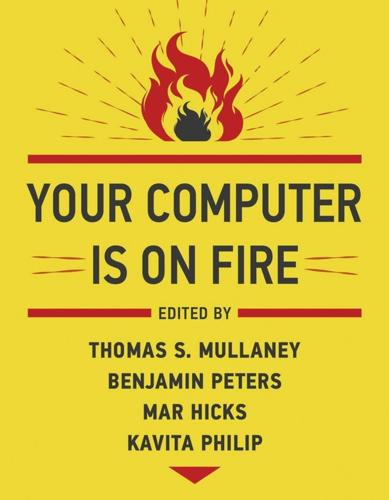
Your Computer Is on Fire
by
Thomas S. Mullaney
,
Benjamin Peters
,
Mar Hicks
and
Kavita Philip
Published 9 Mar 2021
The growing belief that the United States is in the midst of a modern Gilded Age is about more than concern about wealth inequity.11 Figure 1.1 Existing and projected Amazon small sortable fulfillment centers in the United States. Given the perceived shift in recent decades (in the Western world, at least) from an industrial to a postindustrial society, the continued dependence of information-economy firms like Amazon on material infrastructure and the manipulation of physical objects is surprising, if not paradoxical. Despite repeated claims that the defining characteristic of the information society is “the displacement in our economy of materials by information,” as Wired magazine editor Kevin Kelly has described it—or, in the even more succinct and memorable words of MIT professor Nicholas Negroponte, the inevitable shift “from atoms to bits”—what has in fact occurred is a massive increase in our interaction with our physical environment.12 Information technologies allow humans to visualize, explore, and exploit our environment more efficiently.
…
Of the many industrial-era corporations with which we might compare Amazon and other Silicon Valley tech firms, Sears stands out as the most relevant: not only did it share a business model with Amazon, but it survived long enough into the twenty-first century to be a competitor. Like electronic commerce today, the mail-order-catalog industry of a century ago reveals the essential continuities between the industrial and informational economies. Sears was not the first of the mail-order-catalog companies: that honor goes to Montgomery Ward, whose founder, Aaron Montgomery Ward, issued in 1872 a one-page catalog that listed some items for sale and provided information on how to order them. But the company that Richard Sears and his business partner, Alvah Roebuck, founded in 1891 quickly emerged as a leading competitor to Ward and was, by 1897, delivering a 500-page catalog to 300,000 American homes, offering up everything from bicycles to bonnets to bedroom furniture to two-bedroom homes.
…
In the low-margin world of mass-market retail, it is hard to imagine either Sears or Amazon being able to construct and maintain these critical infrastructures ex nihilo.34 From advertising to finance to customer support to supplier relations, once you start unraveling the layers of material infrastructure that make supposedly “immaterial” information economy possible, it turns out to be turtles upon turtles, all the way down . . . In addition to solving the problem of trust, Sears also had to solve the problem of data management. Although they would not have referred to their solution to the data management problem as a “computer” (though the term was already widely used by the early twentieth century), they did call it “data processing.”
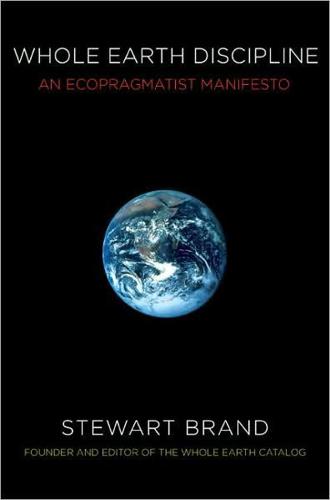
Whole Earth Discipline: An Ecopragmatist Manifesto
by
Stewart Brand
Published 15 Mar 2009
And yet they thrive economically, charging each other rent for space in buildings with no legal ownership, employing each other in unlicensed businesses, and selling each other all manner of services and goods—some of the goods pirated, some of the services criminal. This is what is called the “informal economy.” It is to economic theory what dark energy is to astro-physical theory. It’s not supposed to exist, but there it is, and it’s huge. While the informal economy specializes in being invisible to the formal world, of course it is highly visible to itself. This is where the social capital of a dense community pays off. Without formal property title, everyone knows who effectively owns a building and may charge rent for a room in it.
…
I find what needy people do with surplus time more interesting than what un-needy people do with surplus money. Ingenuity is the norm in the informal economy. For instance, there is a whole urban-farming subeconomy in the slums: Families save money and improve nutrition by growing their own food, and they can sell the produce a short distance from where it’s grown. In the Medellín slums in Colombia, “people raise pigs on the third-floor roofs and grow vegetables in cut-open bleach bottles they hang from their window sills,” according to blogger Ethan Zuckerman. At the entry level, the informal economy is organized around pittances. Robert Kaplan wrote in 2008 thatFor the many rural newcomers to Bangladesh’s cities, there is the rickshaw economy, as much an animating force in urban areas as the search for usable soil is in villages.
…
This book was finished before the full effects of the world financial crisis of 2009 could be studied. Did the informal economy in the world’s slums offer a refuge from it, or did people there suffer more than anybody? (A 2009 report in the Wall Street Journal said that in the developing world, “people are landing in the informal sector, which has become a critical safety net as the economic crisis spreads.”) Were some people driven further into the crime economy? For that matter, how did global crime do? Did the rate of urbanization slow down or speed up? Here’s my prediction from March 2009: significant growth in the informal economy from more people retreating into it; significant growth in the crime economy, because it’s always ready to exploit chaos; no change in the rate of urbanization.
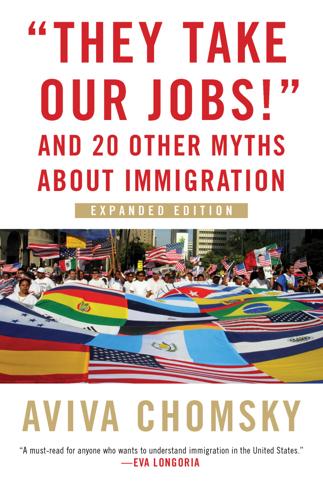
"They Take Our Jobs!": And 20 Other Myths About Immigration
by
Aviva Chomsky
Published 23 Apr 2018
Consumers receive access to cheap products and services provided by these low-wage, untaxed workers. But workers in the informal economy don’t fare so well. They don’t have access to any of the worker protections that come with formal employment, like minimum wage or health and safety regulations. Workers in the informal economy can’t get unemployment insurance or workers’ compensation and generally get no benefits from their employer (like health insurance or sick leave or vacation time). It’s hard to calculate exact numbers for the informal economy because, by definition, it’s unregulated. One recent study in Los Angeles estimated that immigrants made up 40 percent of the city’s population, and one-fourth of these were undocumented.
…
Rather than focusing on immigrants as the problem, it proposed “increasing the minimum wage, adopting universal health care, and enacting labor law reform as the remedies for the widening income disparity in the nation.”18 MYTH 4 IMMIGRANTS DON’T PAY TAXES Immigrants, no matter what their status, pay the same taxes that citizens do—sales taxes, real estate taxes (if they rent or own a home), gasoline taxes. Some immigrants work in the informal economy and are paid under the table in cash, so they don’t have federal and state income taxes, or social security taxes, deducted from their paychecks. So do some citizens. In fact every time the kid next door babysits, or shovels the snow, he or she is working in the informal economy. Much of the service sector operates in the informal sphere. Nanny jobs and housecleaning jobs—which tend to be held primarily by women—generally use informal arrangements whether the workers are citizen or immigrant, documented or undocumented.
…
One recent study in Los Angeles estimated that immigrants made up 40 percent of the city’s population, and one-fourth of these were undocumented. The informal economy accounted for some 15 percent of the city’s workforce, and undocumented workers were concentrated there: 60 percent of workers in the informal economy were undocumented.2 Many immigrants work in the formal economy, in which case they have all of the same tax deductions from their paychecks as citizens do. Undocumented immigrants who work in the formal economy generally do so by presenting false social security numbers. The Social Security Administration estimates that about three-fourth of undocumented workers do this.3 Public commentary about this practice is often quite angry.
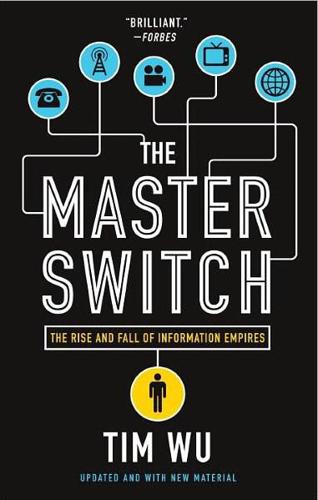
The Master Switch: The Rise and Fall of Information Empires
by
Tim Wu
Published 2 Nov 2010
Government may function as a check on abusive power, but government itself is a power that must be checked. What I propose is not a regulatory approach but rather a constitutional approach to the information economy. By that I mean a regime whose goal is to constrain and divide all power that derives from the control of information. Specifically, what we need is something I would call a Separations Principle for the information economy. A Separations Principle would mean the creation of a salutary distance between each of the major functions or layers in the information economy. It would mean that those who develop information, those who own the network infrastructure on which it travels, and those who control the tools or venues of access must be kept apart from one another.
…
The one great exception to this dominion of big business was the Internet, its users, and the industry that had grown on the network. Amid the consolidation, the 1990s also saw the so-called Internet revolution. Would it lead to the downfall of those consolidating superpowers? Some certainly thought so. “We are seeing the emergence of a new stage in the information economy,” prophesied Yochai Benkler. “It is displacing the industrial information economy that typified information production from about the second half of the nineteenth century and throughout the twentieth century.” Unfortunately, the media and communications conglomerates didn’t consult Benkler as their soothsayer. With aggregate audiences in the billions and combined revenues in the trillions, they had—in fact, have—a very different vision of the future: the Internet either remade in their likeness, or at the very least rendered harmless to their core business interests.
…
(The degree to which the long lines had been subsidizing loss-leading markets throughout the country was greater than even Bell itself knew!) It would be some years before these inconveniences were offset by the fruits of innovation. On the other hand, when the innovation pent up by the Bell system came out, it was not a trickle but a tidal wave, in computing, telephony, networking, and everything else that has defined the information economy of the last thirty years. It is always to be preferred that the Cycle proceed of its own accord. The examples of the Paramount decree and the Bell divestiture are both tales of much that is bad and ugly arising before the eventual good of an open industry. There is an undeniable efficiency that attends a monopoly’s doing what it has been perfected to do, whether that be to turn out a certain kind of film or provide a universal phone service.
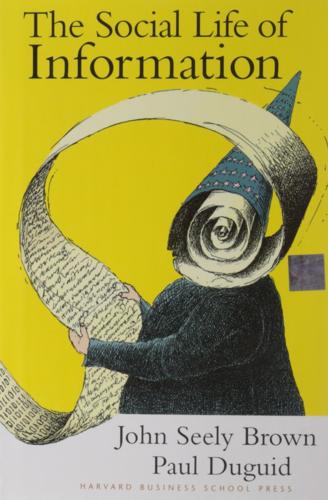
Social Life of Information
by
John Seely Brown
and
Paul Duguid
Published 2 Feb 2000
So, while the modern world often appears increasingly impersonal, in those areas where knowledge really counts, people count more than ever. In this way, a true knowledge economy should distinguish itself not only from the industrial economy but also from an information economy. For though its champions like to present these two as distinct, the information economy, like the industrial economy, shows a marked indifference to people. The industrial economy, for example, treated them en masse as interchangeable partsthe factory "hands" of the nineteenth century. The information economy threatens to treat them as more or less interchangeable consumers and processors of information. Attending to knowledge, by contrast, returns attention to people, what they know, how they come to know it, and how they differ.
…
Rather, it feels more as if, as the economist Paul Krugman puts it, "We've gone from an economy where most people worked in manufacturingin fairly large companies that were producing manufactured goods and engaged in things like transportationto an economy where most people work for fairly large companies producing services." 28 The resilience of the large organization is not all that surprising. Given that information technologies are particularly good at taking advantage of large networks, the information economy in certain circumstances actually favors the aggregated, massified firm.29 These are firms that can or have knit diverse networks together, as AOL hopes to do with its purchase of Netscape or as Microsoft hopes to do with the insertion of Windows into television set-top boxes. Consequently, the small, agile firm with big ideas and little money is less likely to be the viable start-up of legend.
…
The great classical economist Adam Smith used the image of the invisible hand to describe forces that reconcile the pursuit of private interests through markets with the public good and with what we have called the social fabric. If not actually producing good, at least the invisible hand prevents the pursuit of private interests from doing harm. "Assumptions which underlie the microeconomics of the Invisible Hand," de Long and Froomkin conclude, "fray badly when transported to the information economy."26 Better bots, then, will require a better understanding of human negotiation, the contribution of the social fabric, and the role of human restraint in the functioning of the invisible hand. Development will be ill served by people who merely redefine elaborate social processes in terms of the things that bots do well.
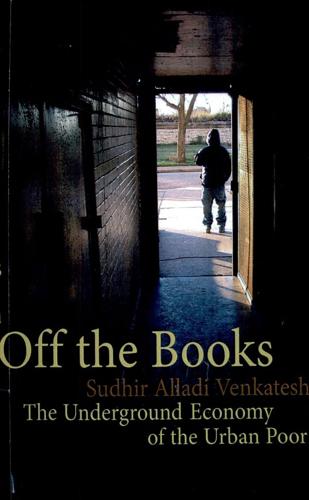
Off the Books
by
Sudhir Alladi Venkatesh
The study of underground economic activity in American inner cities was not well established until the seventies, when Louis Ferman published a pathbreaking paper on "informal economies." (See L. Ferman and P. Ferman, "The Structural Underpinning of the Irregular Economy," Poverty and Human Resources Abstracts 8 [1978]: 3-17.) Until that time, studies of unreported income could be found in histories of early twentieth-century prohibition, biographies of mafia leaders, anthropological studies of vice and hustling, and sociological inquiries into family life and public behavior generally. 3. The variation in definitions of the underground may be found in L. Ferman, S. Henry, and M. Hoyman, "Issues and Prospects for the Study of Informal Economies: Concepts, Research Strategies, and Policy," Annals of the Academy of Political Science 493 (1987): 154-172. 4.
…
Using such figures, Hoyman argues that women are driven into the underground economy by their need to attend to these household duties, which are themselves not paid and which often require labor arrangements (e.g., day care, barter) that are not integrated into mainstream institutions. See M. Hoyman, "Female Participation in the Informal Economy: A Neglected Issue," in The Annals of the American Academy of Political and Social Science: The Informal Economy, ed. L. Ferman, S. Henry, and M. Hoyman (Newbury Park, Calif.: Sage, 1987), esp. 72. 8. The men in Liebow's study wove various myths, such as being "too manly" for marriage, which not only helped them cope with their inability to be a reliable husband but also provided them with an alternate source of meaning and identity—what Liebow would call a "value stretch."
…
For essays on informalization and immigration, see Alejandro Portes, Manuel Castells, and Lauren Benton, eds., The Informal Economy: Studies in Advanced and Less Developed Countries (Baltimore: Johns Hopkins University Press, 2004). 12. About half of startup businesses in general close after four years, so the short tenure rates are not specific to ghetto-based businesses. Also, closure does not necessarily mean failure: businesses may merge, proprietors may find new and better economic opportunities, and so on. See Portes, Castells, and Benton, The Informal Economy, Brian Head, Business Success: Factors Leading to Surviving and Closing Successfully, Working Paper #CES-WP-01-01 (Washington, D.C.: Center for Economic Studies, U.S.
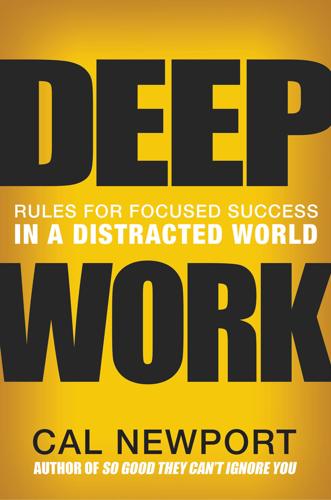
Deep Work: Rules for Focused Success in a Distracted World
by
Cal Newport
Published 5 Jan 2016
They were paid to crank widgets—and not much about their job would change in the decades they kept it. But as we shift to an information economy, more and more of our population are knowledge workers, and deep work is becoming a key currency—even if most haven’t yet recognized this reality. Deep work is not, in other words, an old-fashioned skill falling into irrelevance. It’s instead a crucial ability for anyone looking to move ahead in a globally competitive information economy that tends to chew up and spit out those who aren’t earning their keep. The real rewards are reserved not for those who are comfortable using Facebook (a shallow task, easily replicated), but instead for those who are comfortable building the innovative distributed systems that run the service (a decidedly deep task, hard to replicate).
…
For someone who admitted to sometimes spending up to 98 percent of his day in his old job surfing the Web, Jason Benn’s transformation is nothing short of astonishing. Jason Benn’s story highlights a crucial lesson: Deep work is not some nostalgic affectation of writers and early-twentieth-century philosophers. It’s instead a skill that has great value today. There are two reasons for this value. The first has to do with learning. We have an information economy that’s dependent on complex systems that change rapidly. Some of the computer languages Benn learned, for example, didn’t exist ten years ago and will likely be outdated ten years from now. Similarly, someone coming up in the field of marketing in the 1990s probably had no idea that today they’d need to master digital analytics.
…
No one would fault Ric Furrer for not using Facebook, but if a knowledge worker makes this same decision, then he’s labeled an eccentric (as I’ve learned from personal experience). Just because this connection between depth and meaning is less clear in knowledge work, however, doesn’t mean that it’s nonexistent. The goal of this chapter is to convince you that deep work can generate as much satisfaction in an information economy as it so clearly does in a craft economy. In the sections ahead, I’ll make three arguments to support this claim. These arguments roughly follow a trajectory from the conceptually narrow to broad: starting with a neurological perspective, moving to the psychological, and ending with the philosophical.
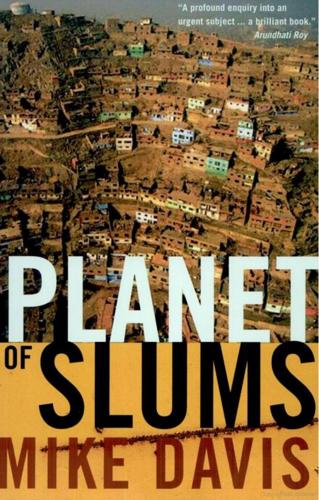
Planet of Slums
by
Mike Davis
Published 1 Mar 2006
Whereas traditional formal industries such as textiles in India or oil in the Middle East tended to foster interethnic solidarity through unions and radical political parties, the rise of the unprotected informal sector has too frequently gone hand in hand with exacerbated ethnoregious differentiation and sectarian violence.40 38 Breman, The Labouring Poor, pp. 5, 201. 39 Philip Amis, "Making Sense of Urban Poverty," Environment and Urbanisation 7:1 (April 1995), p. 151. 40 I think Manuel Castells and Alejandro Portes, however, went too f a r i n a 1989 essay that suggests that the proletariat is "fading away" in the face of the "increasing heterogeneity of work situations and, thus, of social conditions." (Castells and Portes, "World Underneath: The Origins, Dynamics and Effects of the Informal Economy," in Portes, Castells, and Lauren Benton (eds), The Informal Economy: Studies in Advanced a id Less Developed Countiies, Baltimore 1989, p. 31.) Informal workers, in fact, tend to be massively crowded into a few major niches where effective organization and "class consciousness" might become possible if authentic labor rights and regulations existed.
…
In their restructuring of Hong Kong's spatial economy, planners seldom paid attention to actual livelihood strategies of the urban poor, including their frequent use of their homes as workshops or their need to be located close to central markets or factories. The incompatibility of peripheral, highrise housing with the social structures and informal economies of poor communities is, of course, ancient history: it's an original sin repeated over decades by urban reformers and city czars everywhere. Indeed, back in the 1850s Baron Haussmann's Second Empire showcase of workers' housing, the Cite Napoleon in Paris, was rejected by its intended residents because of its uniformity and "barracks-like" quality.
…
Some Brazilian sociologists call this process — analogous to the semi-proletarianization of landless peasants — passive proletarianisation, involving the "dissolving of traditional forms of (re)production, which for the great majority of direct producers does not translate into a salaried position in the formal labor market."3 This informal working class, without legal recognition or rights, has important historical antecedents. In modern European history, Naples, even more than Dublin or London's East End, was the exemplar of an urban informal economy. In this "most shocking city of the nineteenth century," as Frank Snowden calls it in his brilliant study, a "chronic super-abundance of labour" survived by miracles of economic improvisation and the constant subdivision of subsistence niches. A structural dearth of formal jobs — permanent unemployment was estimated at 40 percent —was transformed into an overwhelming spectacle of informal competition.
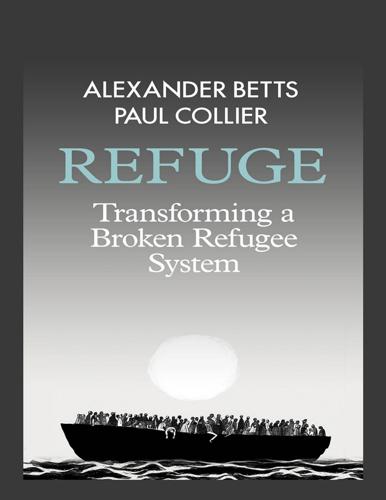
Refuge: Transforming a Broken Refugee System
by
Alexander Betts
and
Paul Collier
Published 29 Mar 2017
UNHCR might be most urgently needed in Lebanon given that it hosted over 1 million refugees against the backdrop of a total population of just over 4 million. But weak governance and Lebanon’s reluctance to open camps given its past experience of hosting Palestinians since 1948 and its complex relationship with Syria meant that, in practice, the overwhelming majority of Syrians were tolerated and de facto integrated, particularly in the informal economy and impoverished urban areas. Lebanon was therefore a poor fit for UNHCR’s standard emergency-driven approach of delivering humanitarian assistance in camps. To all intents and purposes, civil society provided the bulk of the response. In Turkey, UNHCR’s role has also been limited. Less than 10 per cent of the country’s Syrian refugees have been in several government-run camps, with UNHCR’s role being limited to the delivery of core relief items and support during the winter months.
…
Financially, the only reason it did not break down earlier was itself a devastating critique: refugees overwhelmingly bypassed the camps. In Jordan around 85 per cent of refugees went to live in cities. Even in the cities, Syrian refugees were not officially permitted to work. But, like many developing countries, Jordan had a large informal economy. In practice, if people were sufficiently desperate, they could work illegally, either as an employee at a wage below the official minimum, or scratching a living in informal self-employment. The same pattern emerged in Turkey: some refugees went to the camps, but most entered the informal urban economy, which abounded with opportunities.
…
Often, living standards could be cushioned for a while by depleting assets, but as the conflict persisted this gradually became unsustainable, and many refugees understandably faced mounting anxiety. In effect, in this phase by far the most useful mechanisms for meeting the needs of the refugee exodus from Syria were the informal economies of the neighbouring countries. They provided the income-earning opportunities which refugees, using their own initiative, grasped: the informal private economy was the lifeboat. In contrast, official policies were constraining. The haven governments prevented all but a handful of refugees from working legally, whereas UNHCR camps were located far away from possible job opportunities.
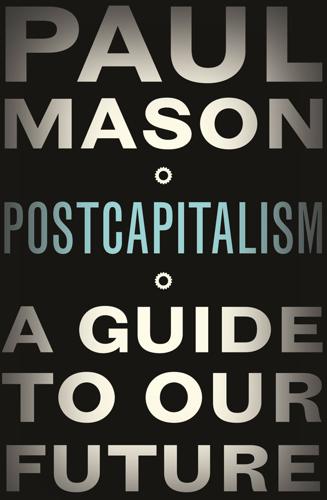
Postcapitalism: A Guide to Our Future
by
Paul Mason
Published 29 Jul 2015
Instead of moving from thought to action once – as the nineteenth- and twentieth-century radicals did – repression forces radicalized young people to oscillate between the two: you can jail, torture and harass people but you cannot prevent their mental resistance. In the past, radicalism of the mind would have been pointless without power. How many generations of rebels wasted their lives in garrets writing angry poetry, cursing the injustice of the world and their own paralysis? But in an information economy, the relationship of thought to action changes. In hi-tech engineering, before a single piece of metal is shaped, objects are designed virtually, tested virtually and even ‘manufactured’ virtually – the whole process modelled from start to finish – on computers. The mistakes are discovered and rectified at the design stage, in a way that was impossible before 3D simulations came about.
…
Sociologist Michel Foucault’s prediction of what it would make us – ‘entrepreneurs of the self’ – looks all the more visionary because it was made when the only thing resembling the internet was a green-screen network, owned by the French state, called Minitel.37 The promise was that new technology would produce an information economy and a knowledge society. These have emerged but not in the form envisaged. In the old dystopias – as with the rogue computer Hal, in 2001: A Space Odyssey – it is the technology that rebels. In reality, the network has allowed humans to rebel. It enabled them first of all to produce and consume knowledge independently of the channels formed in the era of industrial capitalism.
…
On 15 September 2008, the Nokias and Motorolas pointed at Lehman Brothers HQ, and the free wifi signal in the Starbucks opposite, were in their own way just as significant as the bank that had collapsed. They were conveying the ultimate market signal from the future to the present: that an information economy may not be compatible with a market economy – or at least not one dominated and regulated by market forces primarily. That, I will argue, is the root cause of the collapse, fibrillation and zombie state of neoliberalism. All the money created, all the velocity and momentum of finance built up during the last twenty-five years have to be set against the possibility that capitalism – a system based on markets, property ownership and exchange – cannot capture the ‘value’ generated by the new technology.
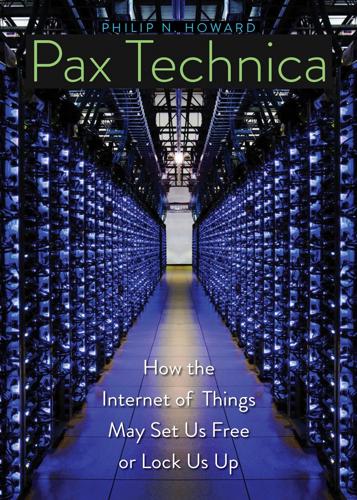
Pax Technica: How the Internet of Things May Set Us Free or Lock Us Up
by
Philip N. Howard
Published 27 Apr 2015
We now have all sorts of indicators about the size of the information economy, and we often evaluate a country by how much technical innovation we find there. The World Bank now counts patents and Ph.D.s in its country-wealth indicators. We continually worry about the supply of engineers in the economy. Bytes of traffic are a good proxy for a country’s importance in the global-information infrastructure. The financial services sector expects government investment in the internet, and when countries invest in information infrastructure, many industries benefit. The perception of technical innovation, the size of the information economy, and the reach of high-tech industries are all important to the evaluation of modern economic wealth.
…
Some of us commit to Google, others to Apple, still others to Microsoft, or sometimes our employers make that commitment for us. We commit to buying their products and services, and they commit to making new technologies available (within their information ecologies). These feudal lords try to keep our data safe. If we want to participate in the modern information economy, or we want employment in a modern workplace, or we want to use digital media to maintain social ties with families and friends, we have to pledge allegiance to at least one of these lords. As data serfs it is difficult to pick up and move between kingdoms. However, this perspective doesn’t work because social elites are hardly using the internet to usher in a new era of feudalism.
…
Young people who had never known a political alternative to authoritarianism started exploring their options. People began using social media to turn political problems into opportunities. The internet and mobile phones provided a new structure for political life. Mubarak’s Choice In the late 1990s, the global information economy was booming. Egypt was also doing well, at least compared with some of her neighbors, but was coming under pressure to modernize. Since so much economic growth seemed to be tied to the internet, Egypt’s strongman, Hosni Mubarak, faced a dilemma. Giving the country’s major businesses access to fast telecommunications services seemed like a good economic strategy.
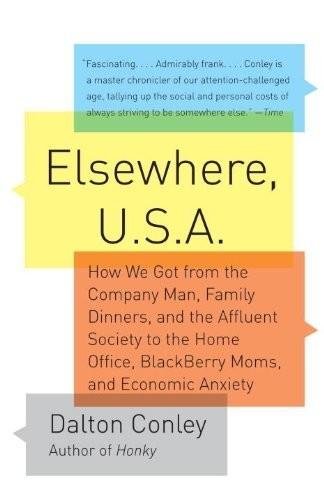
Elsewhere, U.S.A: How We Got From the Company Man, Family Dinners, and the Affluent Society to the Home Office, BlackBerry Moms,and Economic Anxiety
by
Dalton Conley
Published 27 Dec 2008
Dollar’s 25,000-member Atlanta congregation, parishioners pray for salvation so that they can get rich. But resolving the conflicts of midcentury America has exacted its own terrible price: the fragmentation of the self, not to mention alienation and anxiety among today’s professional classes—those Americans who earn lots of money but who need to work for it. The 24/7, dual-sex information economy in which they work—riddled with inequality between the rich and the very rich—has changed the way we do business, advance our careers, and navigate our personal lives. This socioeconomic restructuring has generated wide reverberations perhaps best illustrated by three discrete (if interrelated) phenomena: the economic red shift; the portable workshop; and the price culture.
…
Seen as a shortcut to the top that flew in the face of meritocratic ideals back during the social ethic of the 1950s, networking through weisure is now a skill that Americans pay millions of dollars to book publishers and network trainers to cultivate. This is not false consciousness, either. Social capital is real capital in the information economy. Those who control social valves—connections between individuals—are the ones who are able to profit through information arbitrage. That’s why Mr. Elsewhere is constantly having “meetings” that are ambiguous in nature. Part of each workday is spent drinking lattes with folks who may be potential clients, or investors, or just interesting people from whom the newest hot idea for private equity may arise.
…
Working Paper no. 11278, National Bureau of Economic Research, Cambridge, Mass., 2005. One Plus a Hundred Zeros Welcome to Your (N)Office If there is any “center” or “downtown” to our new economy (and to Elsewhere, U.S.A., for that matter) it is just off the 101 Freeway in Mountain View, California. The headquarters of the information economy, so to speak, is Google.com, whose mission, elegantly stated, is “to organize the world’s information and make it universally accessible and useful.” Started as a Ph.D. research project, and incorporated in a friend’s Silicon Valley garage, Google epitomizes the Elsewhere Ethic better than any other company.
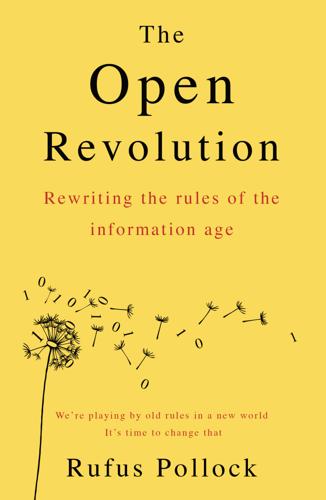
The Open Revolution: New Rules for a New World
by
Rufus Pollock
Published 29 May 2018
They do not understand that it is the rules we have made that create and sustain them, that it is “intellectual property” monopolies that are allowing these extraordinary concentrations of power and wealth. We must go on spreading awareness and challenging mistaken conceptions of the workings of the digital information economy. We need a world where every policy-maker, every expert, every educated citizen understands that bits are different from bread – and what that implies. We need to spell out the dangers of a Closed world built on proprietary information. We need research bodies dedicated to understanding our information economy and society, as well as think-tanks to track progress and develop policies. We need mass membership organizations to campaign for an Open world, in the way that Green organizations campaign on behalf of the physical environment, because membership provides the resources to engage long term and a clear constituency supporting change.
…
Intellectual property is one way to pay for this first instance. But, as we shall see, there are other ways to fund innovation, ways to replace patents and copyrights with remuneration rights, preserving the incentives to innovate but without creating monopolies. Old Rules in a New World And the result of running the information economy by the old rules of intellectual monopoly rights is spiralling inequality. In 2016, the eight richest people in the world had as much money as the bottom 50 per cent of humanity – that’s three-and-a-half billion people. And of those eight, six were tech billionaires. This is a political timebomb.
…
Old property worked, but transplanted into this new world as intellectual property it does not. In this new world, intellectual property is intellectual monopoly. Monopolies that are unjustified and unjust, dangerous both to our economies and our societies. We need new rules suited to our new information economy; rules that provide ways to reward innovators and creators whilst preserving fairness and freedom, and which give everyone a stake in our digital future. Most simply, we need an Open world. A world where all digital information is open, free for everyone to use, build on and share; and where innovators and creators are recognized and rewarded.
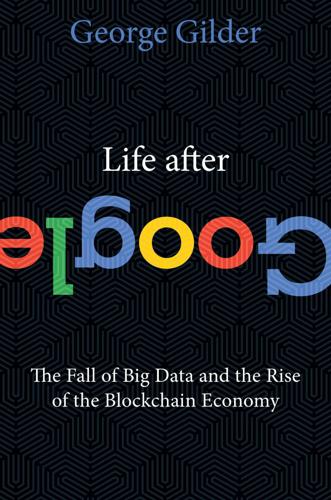
Life After Google: The Fall of Big Data and the Rise of the Blockchain Economy
by
George Gilder
Published 16 Jul 2018
Embodied in his calculus and physics, one Newtonian revelation rendered the physical world predictable and measurable. Another, less celebrated, was his key role in establishing a trustworthy gold standard, which made economic valuations as calculable and reliable as the physical dimensions of items in trade. Since Claude Shannon in 1948 and Peter Drucker in the 1950s, we have all spoken of the information economy as if it were a new idea. But both Newton’s physics and his gold standard were information systems. More specifically, the Newtonian system is what we call today an information theory. Newton’s biographers typically underestimate his achievement in establishing the information theory of money on a firm foundation.
…
Its new holding company, Alphabet, is worth nearly $800 billion, only about $100 billion less than Apple. How do you get rich by giving things away? Google does it through one of the most ingenious technical schemes in the history of commerce. Page’s and Brin’s crucial insight was that the existing advertising system, epitomized by Madison Avenue, was linked to the old information economy, led by television, which Google would overthrow. The overthrow of TV by computers was the theme of my book Life after Television. If Google could succeed in its plan to “organize the world’s information” and make it available, the existing advertising regime could be displaced. Brin and Page began with the idea of producing a search engine maintained by a nonprofit university, operated beyond the corruption of commerce.
…
While most of us welcome “free” on the understanding that it means “no charge,” what we really want is to get what we ordered rather than what the authority chooses to provide. In practice, “free” means insecure, amorphous, unmoored, and changeable from the top. This communications-first principle served us well for many years. The Internet is a giant asynchronous replicator that communicates by copying. Regulating all property rights in the information economy are the copy-master kings, chiefly at Google. In this system, security is a function of the network, applied from the top, rather than a property of the device and its owner. So everything rises to the top, the Googleplex, which achieves its speed and efficiency by treating its users as if they were making random choices.
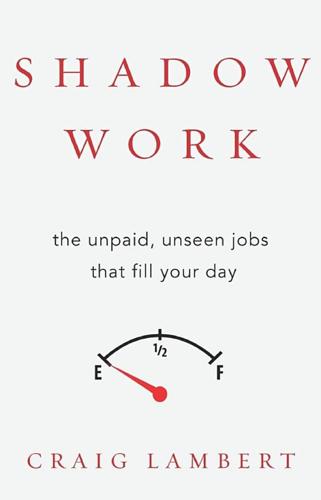
Shadow Work: The Unpaid, Unseen Jobs That Fill Your Day
by
Craig Lambert
Published 30 Apr 2015
Third, the skyrocketing value of data has given rise to an information dragnet: institutions constantly trawling to collect data in whatever way possible. The dragnet foists on consumers a whole array of shadow tasks that involve both supplying personal information and managing the reams of data that the information economy pushes into their computers and smartphones. Fourth, constantly evolving social norms affect behavior. An emergent norm like parental overengagement in children’s lives can fertilize an entire meadow of shadow work with previously nonexistent tasks. IT IS QUIXOTIC to oppose the winds of change.
…
Skilled jobs of this kind require education and technical training. Their salaries are a distinct upgrade over pump-jockey pay. But to cash in on the opportunities, we must renew our educational establishment, gearing it to the kinds of expertise the emerging workplace rewards. Traditional education has not yet caught up with the information economy; nor has it taken into account the incoming surge of shadow work. Online learning and teaching innovations can help connect students with windows that are being opened—sometimes by shadow work. SHADOW WORK SAGA: The Don Quixote of the Oil Industry In the late 1940s, a maverick filling station owner named Bill Henderson lived in Winnipeg, the capital and largest city of the Canadian province of Manitoba.
…
These are people like Michael Jordan in basketball, Warren Buffett in investing, Meryl Streep in film acting. (Of course, every field has its own pyramid. Warren Buffett’s poetry? Don’t ask. Ask Michael Jordan to sing, and you’ll be sorry—he wasn’t even that good at baseball. And don’t even think about Meryl Streep at quarterback.) Yet the populism of the information economy is leveling this classic pyramid. The Internet has melted the pyramid of expertise down to horizontal form—it is now more like a lake. That lake spreads out much wider than the pyramid ever did, opening reservoirs of knowledge to the masses. Consider lawyers. Laypeople have long viewed attorneys as professionals with trained expertise—and of course there are specialties within law, like torts, taxes, intellectual property, criminal law, and so on.
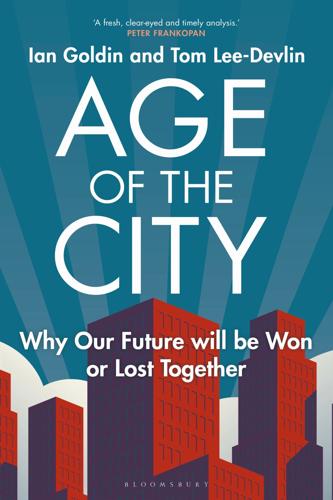
Age of the City: Why Our Future Will Be Won or Lost Together
by
Ian Goldin
and
Tom Lee-Devlin
Published 21 Jun 2023
While many dwellers in informal settlements crowd into minivan taxis or walk along busy roads to get to their jobs in occupations such as cleaning or domestic service, many others lack regular employment and make ends meet in the informal economy, selling street food, collecting rubbish, repairing clothing and in other ways contributing to the bustling local economies. These irregular and unprotected jobs represent over 50 per cent of all urban employment in developing economies.43 In cities like Kolkata in India, it is more than 80 per cent.44 While the informal economy is a major source of livelihood for both men and women, the majority of these jobs are taken up by women. Life in the informal economy is too often precarious. Sadly, some individuals are forced into prostitution or crime out of desperation.
…
For example, in 2016 the government of Egypt began a five-year programme that successfully relocated roughly 850,000 people into subsidized social housing, and it has since set a further ambition to end all informal settlements by 2030.47 , 48 The programme, which has involved vast amounts of demolition and redevelopment, also has created numerous challenges. While the new housing areas may be a step up in terms of living conditions and access to basic services such as health and education, many of those relocated have been cut off from the communities and support groups they lived with and the livelihoods they generated from the informal economy or nearby workplaces.49 If relocated residents fail to find gainful employment, the risk is that these newly developed projects rapidly deteriorate into ghettos of concentrated poverty. The wrenching personal implications of these slum clearances is movingly described in Rohinton Mistry’s book A Fine Balance.
…
(ed.), Atlas of Cities (Princeton University Press). 39 Ibid. 40 Marx, B., et al., 2013, ‘The economics of slums in the developing world’, Journal of Economic Perspectives, Vol. 27, No. 4. 41 Glaeser, E., 2011, Triumph of the City (Penguin). 42 Ibid. 43 International Labour Organization, 2018, ‘Women and men in the informal economy: a statistical picture’ (ilo.org). 44 WIEGO Statistics Database (wiego.org). 45 Samora, P., 2016, ‘Is this the end of slum upgrading in Brazil?’, The Conversation (theconversation.com). 46 Marx, et al., ‘The economics of slums in the developing world’. 47 Farouk, M., 2020, ‘Cautious hopes for slum dwellers relocated in Egypt housing project’, Reuters. 48 Daily News Egypt, 2021, ‘Egypt to be free from informal housing areas by 2030: Cabinet’. 49 Farouk, ‘Cautious hopes for slum dwellers relocated in Egypt housing project’. 50 de Soto, H., 2000, The Mystery of Capital (Basic Books). 51 Marx, et al., ‘The economics of slums in the developing world’. 52 Martine, G., et al., 2013, ‘Urbanization and fertility decline: cashing in on structural change’, IIED Human Settlements working paper. 53 Chandna, H., 2018, ‘The Rise of the Tycoon’, Business World. 54 Mahurkar, U., 2011, ‘A look into profile of billionaire Gautam Adani’, India Today. 55 Roser, M., 2017, ‘Fertility rate’, Our World in Data (ourworldindata.org). 56 O’Neill, ‘Total fertility rate in India, from 1880 to 2020’. 57 Roser, M., ‘Fertility rate’. 58 Irwin, D., 2020, ‘The rise and fall of import substitution’, Peterson Institute of International Economics (piie.com). 59 Little, I., et al., 1970, Industry and Trade in Some Developing Countries (OECD and Oxford University Press). 60 Ritchie, H. and Roser, M., 2021, ‘Crop yields’, Our World in Data (ourworldindata.org). 61 Hoeffler, A., et al., 2011, ‘Post-conflict recovery and peacebuilding’, World Bank (worldbank.org). 62 Gollin, D., et al., 2016, ‘Urbanization with and without industrialization’, Journal of Economic Growth, Vol. 21. 63 World Bank Data, 2022, ‘Research and development expenditure (% of GDP)’ (data.worldbank.org). 64 Rodrik, D., 2022, ‘Prospects for global economic convergence under new technologies’, in Autor, D., et al.
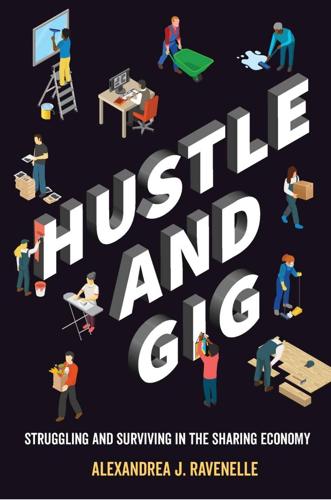
Hustle and Gig: Struggling and Surviving in the Sharing Economy
by
Alexandrea J. Ravenelle
Published 12 Mar 2019
Everyone is born with some labor, but not everyone is born with capital.”61 In the gig economy, the workers who are most likely to succeed are those who have social and financial capital. This work also has implications for the informal economy, defined as “those actions of economic agents that fail to adhere to the established institutional rules or are denied their protection.”62 Most informal-economy research is focused on illegal markets or examines developing or emerging economies.63 The concept of the informal economy originates with Keith Hart’s study of urban markets in Africa.64 Other researchers have studied informal work among the middle class, but with a focus on removing activities from economic exchange—for instance, individuals choosing to repair their own machines or mow their own grass in an effort to “maximize the efficient allocation of time.”65 Just like participants in the underground economy, workers in the gig economy—especially when paid as 1099 workers—are engaged in “informal economic activities [that] bypass the existing laws and regulatory agencies of the state.”66 Workers must trust that they will be paid and won’t be harassed or get injured on the job.
…
———. 2017. “I Coined the Term ‘Sexual Harassment.’ Corporations Stole It.” New York Times, October 18. Farrell, Diana, and Fiona Greig. 2016. The Online Platform Economy: Has Growth Peaked? New York: JP Morgan Chase Institute. Feige, Edgar L. 1990. “Defining and Estimating Underground and Informal Economies: The New Institutional Economics Approach.” World Development 18(7):989–1002. Fermino, Jennifer. 2015. “Airbnb Taking Up 1 out of 5 Vacant Apartments in Popular New York City Zip Codes: Study.” New York Daily News, July 15. Fiegerman, Seth. 2014. “Kitchensurfing Raises $15 Million to Bring Private Chefs to Your Home.”
…
Brussels: Fernand Nathan. Geron, Tomio. 2013. “Airbnb and the Unstoppable Rise of the Share Economy.” Forbes, January 23. Gershon, Ilana. 2017. Down and Out in the New Economy: How People Find (or Don’t Find) Work Today. Chicago: University of Chicago Press. Kindle edition. Gershuny, Jonathan. 1979. “The Informal Economy.” Futures 11(1):3–15. ———. 1985. “Economic Development and Change in the Mode of Provision of Services.” In Beyond Employment: Household, Gender and Subsistence, ed. N. Redclif and E. Mingione. Oxford: Basil Blackwell. Ghoshal, Raj, and S. Michael Gaddis. 2015. “Finding a Roommate on Craigslist: Racial Discrimination and Residential Segregation.”
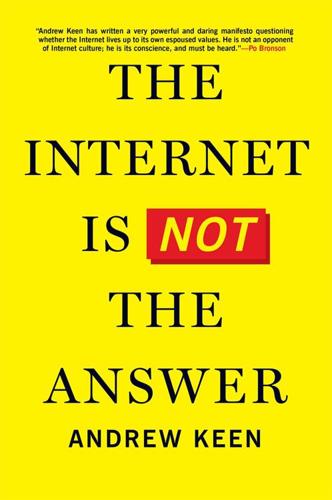
The Internet Is Not the Answer
by
Andrew Keen
Published 5 Jan 2015
Instead, it’s a top-down system that is concentrating wealth instead of spreading it. Unfortunately, the supposed “new rules” for this new economy aren’t very new. Rather than producing more jobs or prosperity, the Internet is dominated by winner-take-all companies like Amazon and Google that are now monopolizing vast swaths of our information economy. But why has this happened? How has a network designed to have neither a heart, a hierarchy, nor a central dot created such a top-down, winner-take-all economy run by a plutocracy of new lords and masters? Monetization In The Everything Store, his definitive 2013 biography of Amazon founder and CEO Jeff Bezos, Brad Stone recounts a conversation he had with Bezos about the writing of his book.
…
But in contrast with Perkins, Frank, and Cook—whose observations about this emerging plutocracy are supported by the later research of many distinguished economists, including Paul Krugman, Joseph Stiglitz, Robert Reich, and Thomas Piketty—didn’t celebrate this one percent, trickle-down economy. Frank and Cook argued that the new information economy was central in the creation of the new inequality. “Perhaps the most profound changes in the underlying forces that give rise to winner-take-all effects have stemmed from technological developments in two areas—telecommunications and electronic computing,” they argued.30 Scale is critical in an instantly global market like the Internet.
…
AdWords and AdSense together represented what Levy calls a “cash cow” to fund the next decade’s worth of Web projects, which included the acquisition of YouTube and the creation of the Android mobile operating system, Gmail, Google+, Blogger, the Chrome browser, Google self-driving cars, Google Glass, Waze, and its most recent roll-up of artificial intelligence companies including DeepMind, Boston Dynamics, and Nest Labs.70 More than just cracking the code on Internet profits, Google had discovered the holy grail of the information economy. In 2001, revenues were just $86 million. They rose to $347 million in 2002, then to just under a billion dollars in 2003 and to almost $2 billion in 2004, when the six-year-old company went public in a $1.67 billion offering that valued it at $23 billion. By 2014, Google had become the world’s second most valuable company, after Apple, with a market cap of over $400 billion, and Brin and Page were the two wealthiest young men in the world, with fortunes of around $30 billion apiece.
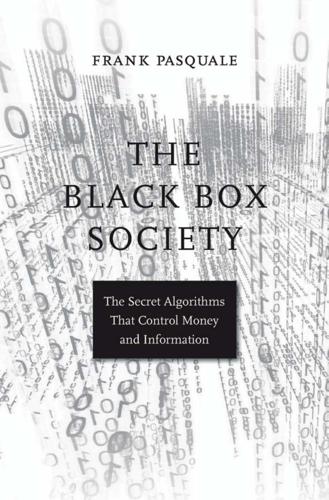
The Black Box Society: The Secret Algorithms That Control Money and Information
by
Frank Pasquale
Published 17 Nov 2014
We don’t want terrorists to be able to evade detection because they know exactly what Homeland Security agents are looking out for.12 But when every move we make is subject to inspection by entities whose procedures and personnel are exempt from even remotely similar treatment, the promise of democracy and free markets rings hollow. Secrecy is approaching critical mass, and we are in the dark about crucial decisions. Greater openness is imperative. Reputation, Search, Finance At the core of the information economy are Internet and finance companies that accumulate vast amounts of digital data, and with it intimate details of their customers’— our—lives. They use it to make important decisions about us and to influence the decisions we make for ourselves. But what do we know about them? A bad credit score may cost a borrower hundreds of thousands of dollars, but he will never understand exactly how it was calculated.
…
As its customer base expanded, it forced its suppliers to accept ever smaller margins. Consumers had little loyalty to the sources of their shampoo, socks, and dog food; they were pleased to accept Walmart as the place to find ultracheap everything.155 Firms like Google and Apple are the Walmarts of the information economy.156 They aggressively scheme to restrict their own workers’ wages.157 They squeeze content producers (for whom making it on a big platform may mean everything), and habituate users to value the finding ser vice itself over the sources of the things found. The content contributors—the writers, musicians, fi lmmakers, artists, 86 THE BLACK BOX SOCIETY historians, scholars, photographers, programmers, journalists, activists, cooks, sailors, manufacturers, yoga teachers, knitting gurus, auto mechanics, dog trainers, fi nancial advisers, Lego architects, and muckrakers in quest of whose output people use major internet platforms—may receive no share at all of the revenues that that vast user base occasions.
…
Who are these people and these companies that wield so much power in our lives? What do we owe them? Are they really the Gandalfs of the digital world, wizards selflessly guiding us through digital brambles? Or is it time to reconsider some conventional views about technology, labor, and value in the information economy?161 Silicon Valley’s top managers are well educated and technically skilled, but they are not great sages. They hide behind corporate THE HIDDEN LOGICS OF SEARCH 87 operations so covert that their actual contributions are hard to assess, and it’s hard not to wonder whether other firms or other individuals might make more constructive use of their data than they do.
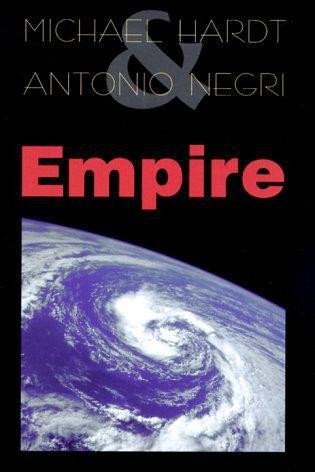
Empire
by
Michael Hardt
and
Antonio Negri
Published 9 Mar 2000
The jobs for the most part are highly mobile and involve flexible skills. More important, they are characterized in general by the central role played by knowledge, information, affect, and communication. In this sense many call the postindustrial economy an informational economy. The claim that modernization is over and that the global economy is today undergoing a process ofpostmodernization to- ward an informational economy does not mean that industrial pro- duction will be done away with or even that it will cease to play an important role, even in the most dominant regions ofthe globe. Just as the processes ofindustrialization transformed agriculture and made it more productive, so too the informational revolution will transform industry by redefining and rejuvenating manufacturing processes.
…
As the proletariat is becoming the universal figure of labor, the object of proletarian labor is becoming equally universal. Social labor produces life itself. We should emphasize the central role that informational accumulation plays in the processes of postmodern primitive accumulation and the ever greater socialization of production. As the new informational economy emerges, a certain accumulation of information is necessary before capitalist production can take place. Information carries through its networks both the wealth and the command of production, disrupting previous conceptions of inside and outside, but also reducing the temporal progression that had previously defined primitive accumulation.
…
The Detroit auto factory of the 1930s stood at the pinnacle ofthe global economy in the dominant position and producing the highest value; the 1990s auto factory, whether in Sa˜o Paulo, Kentucky, or Vladivostok, occupies a subor- dinate position in the global economy—subordinated to the high- value production ofservices. Today all economic activity tends to come under the dominance ofthe informational economy and to 288 P A S S A G E S O F P R O D U C T I O N be qualitatively transformed by it. The geographical differences in the global economy are not signs ofthe co-presence ofdifferent stages ofdevelopment but lines ofthe new global hierarchy ofpro- duction. It is becoming increasingly clear from the perspective of subor- dinated regions that modernization is no longer the key to economic advancement and competition.
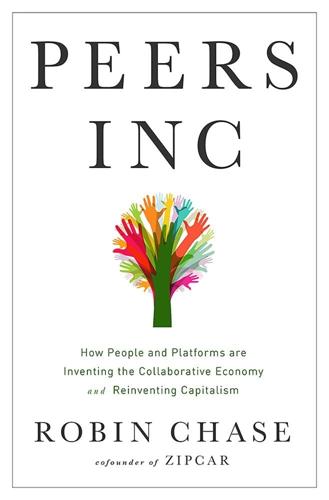
Peers Inc: How People and Platforms Are Inventing the Collaborative Economy and Reinventing Capitalism
by
Robin Chase
Published 14 May 2015
Once upon a time, this country, like every country, had a much larger informal economy. As wealthy countries transitioned from an agricultural economy to an industrial one, they regulated away most of the informal economy, which is now much smaller and hidden. Governments see the informal economy as unsafe, unreliable, and just plain chaotic. Productivity gains and the ensuing rise in standard of living came with the purchase of capital assets—machines, tools, factories—that only companies could afford. It made sense to favor this kind of productivity. Poor countries that still have a large informal economy strive to do the same in their central business districts, ridding their cities and economy of this uncontrollable blight and pushing the informal economy to the edges and slums, where it remains an important part of the total economy.
…
Poor countries that still have a large informal economy strive to do the same in their central business districts, ridding their cities and economy of this uncontrollable blight and pushing the informal economy to the edges and slums, where it remains an important part of the total economy. The Peers Inc structure transforms the economic logic and this once-sound societal-benefits argument. Remember, platforms give individuals the power of the corporation at very affordable prices (often for free). Productivity and quality-of-life gains are now not necessarily achieved only through government support of the big and wealthy. Peers now have access to the means of production themselves. We don’t have to stifle the informal economy, because platforms organize, improve quality, and even self-regulate.
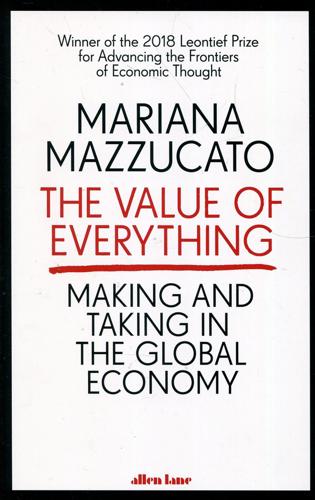
Value of Everything: An Antidote to Chaos The
by
Mariana Mazzucato
Published 25 Apr 2018
If self-employment (referred to as own-account production for small farming or sex workers, for example) grows in importance, or if a way can be found to cost externalities, national income will jump when the statisticians decide to include it. The Black Economy Gets into the SNA Something similar happens with the black or - to use the official euphemism - ‘informal' economy when countries decide that it has grown so large that they must start to include estimates of it in national accounting. Consider Italy, a ‘developed' country. The Group of 7 (G7), the international club of the biggest economies, estimates that in 2015 the informal economy made up 12.6 per cent of Italy's GDP.35 That calculation excludes illegal activities, which Italian statisticians decided to leave out of their GDP measures.
…
Minsky, ‘The capital development of the economy and the structure of financial institutions' (1992), Hyman P. Minsky Archive, paper 179. 62. A. Barba and G. de Vivo, ‘An “unproductive labour” view of finance', Cambridge Journal of Economics 36(6) (2012): http://doi.org/10.1093/cje/ber022; Duncan K. Foley, ‘Rethinking financial capitalism and the “information” economy', Review of Radical Political Economics, 45(3) (2013), pp. 257-68: http://doi.org/10.1177/0486613413487154 2. VALUE IN THE EYE OF THE BEHOLDER: THE RISE OF THE MARGINALISTS 1. J. B. Clark, The Distribution of Wealth: A Theory of Wages, Interest and Profits (New York: Macmillan, 1899), p. v. 2.
…
Wolff, Growth, Accumulation, and Unproductive Activity: An Analysis of the Postwar U.S. Economy (Cambridge: University Press, 1987). 15. T. Veblen, ‘The Limitations of marginal utility', Journal of Political Economy, 17(9) (1909), pp. 620-36. 16. See Foley, ‘Rethinking financial capitalism and the “information” economy' for further examples. 17. ‘entrepreneur ne faisant ni benefice ni perte'; Walras quoted in J. A. Schumpeter, History of Economic Analysis, p. 860. 3. MEASURING THE WEALTH OF NATIONS 1. C. Busco, M. L. Frigo, P. Quattrone and A. Riccaboni, ‘Redefining corporate accountability through integrated reporting: What happens when values and value creation meet?'
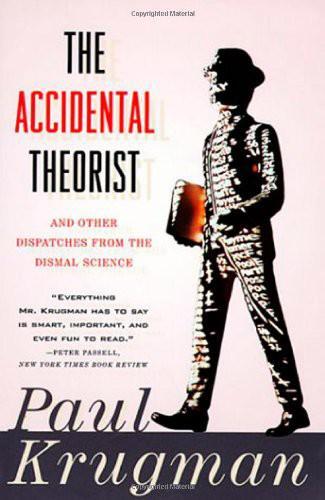
The Accidental Theorist: And Other Dispatches From the Dismal Science
by
Paul Krugman
Published 18 Feb 2010
Perhaps the best way to describe the flawed vision of fin-de-siècle futurists is to say that, with few exceptions, they expected the coming of an “immaculate” economy—an economy in which people would be largely emancipated from any grubby involvement with the physical world. The future, everyone insisted, would bring an “information economy,” which would mainly produce intangibles; the good jobs would go to “symbolic analysts,” who would push icons around on computer screens; and knowledge rather than traditionally important resources like oil or land would become the main source of wealth and power. But even in 1996 it should have been obvious that this was silly. First, for all the talk of an information economy, ultimately an economy must serve consumers—and consumers don’t want information, they want tangible goods.
…
If your answer was “Well, that was a cute story, but I don’t see what it can have to do with the U.S. economy,” you get a D. You have failed to understand the usefulness of simplified models in cutting through the complexity of the real world. If your answer was “What’s all this about? I want to talk about globalization and the new information economy, and he’s telling me about baby-sitting,” you get an F. Not only don’t you understand the uses of models, but you have fallen into the naive error of supposing that the way to be sophisticated about economics is to use big words and talk about big things. For the fact is that by studying our model—the baby-sitting co-op, which is like a miniature version of the real U.S. economy, in which Alan Greenspan controls the supply of coupons—we can gain some very important insights that many people who believe that they are knowledgeable about these things never do seem to grasp.
…
As Marvin Minsky, one of the movement’s founders, despairingly remarked, “What people vaguely call common sense is actually more intricate than most of the technical expertise we admire.” And it takes common sense to deal with the physical world—which is why, even at the end of the twenty-first century, there are still no robot plumbers. Most important of all, the prophets of an “information economy” seem to have forgotten basic economics. When something becomes abundant, it also becomes cheap. A world awash in information will be a world in which information per se has very little market value. And in general when the economy becomes extremely good at doing something, that activity becomes less rather than more important.
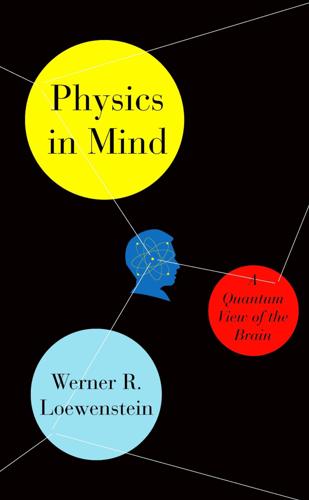
Physics in Mind: A Quantum View of the Brain
by
Werner Loewenstein
Published 29 Jan 2013
Those biological lines are as fast as hard-wired lines, if not faster. Nor was it for lack of information-transmission efficiency. Their metal proteins leave nothing to be desired in that respect. On the contrary, they are fit to be compared with tunnel diodes, as we shall see. More likely, the limitations of use were dictated by information economy. The genetic-information cost of lines made from metal protein isn’t low, but is affordable when the lines are a few hundred thousandths of a millimeter long. But long-distance lines are another matter. The manufacturing cost rises steeply with length, and for lines long enough for intercellular communication, it becomes prohibitive.
…
This enables the system to perform many computations at a time—a very different operational mode from that of our technological computers, in which information is processed sequentially, one piece at a time. Parallel computation has its advantages. The most obvious is speed. That on its own must have tipped the scales of Evolution toward selection. But there is another, more basic advantage: information economy. Neuronal parallel computation is inherently cooperative, as the network units share the workload and information cost of computation. From our perch high on the evolutionary ladder, it is hard to see when exactly the parallel mode came into use. But it must have been early, for we find it in neuron systems everywhere, from worms to humans.
…
The brain is not so much about consciousness as it is, and cannot escape being, about computing—and above all, parallel computing. To perform myriads of parallel computations is par for the course for its neuron web (chapter 14), and for this reason alone a quantum-coherent neuronal material would be a tremendous boon. I wouldn’t be in the least surprised if Evolution, ever on the lookout for information economy, had come up with materials that stay quantum-coherent long enough for physiologically meaningful computations. Quantum computation is a natural for parallel computation and is the perfect information bargain. Quantum computation may not sound like much—it may give the impression of being just another method of computation.
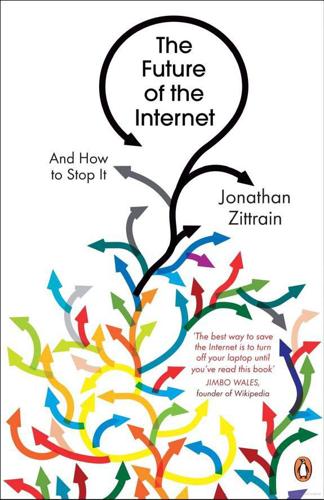
The Future of the Internet: And How to Stop It
by
Jonathan Zittrain
Published 27 May 2009
Wikipedia, Signaling System #7, http://en.wikipedia.org/wiki/Signaling_System_7 (as of Aug. 15, 2007, 15:00 GMT). 33. Harmon, supra note 31. 34. Id. 35. Sullivan, supra note 1. 36. Spafford, supra note 5, at 678—81. 37. Id. at 680. 38. Id. 39. Matt Blaze, Cryptography Policy and the Information Economy, WindowSecurity.com, Apr. 5, 2000, available athttp://windowsecuritycom/whitepapers/cryptography_Policy _and_the_Information_Economy.html. 40. Increases in computer crime have received attention from the hacker community. See Harmon, supra note 31; see also PEKKA HIMANEN & LINUS TORVALDS, THE HACKER ETHIC (2001); BRUCE STERLING, THE HACKER CRACKDOWN: LAW AND DISORDER ON THE ELECTRONIC FRONTIER (2002), available at http://www.mit.edu/hacker/hacker.html; cf.
…
This is a sampling of major Internet applications founded and groomed by outsiders; start sliding down what Wired editor Chris Anderson calls the Long Tail—niche applications for obscure interests– and we see a dominance of user-written software.34 Venture capital money and the other artifacts of the firm-based industrial information economy can kick in after an idea has been proven, and user innovation plays a crucial role as an initial spark. GENERATIVITY AND A BLENDING OF MODELS FOR INNOVATION Eric von Hippel has written extensively about how rarely firms welcome improvements to their products by outsiders, including their customers, even when they could stand to benefit from them.35 His work tries to persuade otherwise rational firms that the users of their products often can and do create new adaptations and uses for them—and that these users are commonly delighted to see their improvements shared.
…
The same mode of life is a healthy excitement to one, keeping all his faculties of action and enjoyment in their best order, while to another it is a distracting burthen, which suspends or crushes all internal life.62 The generative Internet and PC allow more than technical innovation and participation as new services and software are designed and deployed. In addition, much of that software is geared toward making political and artistic expression easier. Yochai Benkler has examined the opportunities for the democratization of cultural participation offered by the Internet through the lens of liberal political theory: The networked information economy makes it possible to reshape both the “who” and the “how” of cultural production relative to cultural production in the twentieth century. It adds to the centralized, market-oriented production system a new framework of radically decentralized individual and cooperative nonmarket production.
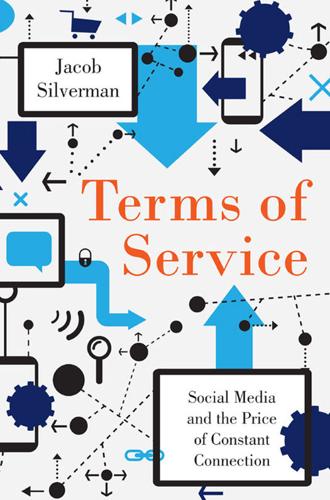
Terms of Service: Social Media and the Price of Constant Connection
by
Jacob Silverman
Published 17 Mar 2015
Many human beings acquire a data trail almost as soon as they appear in the world—and sometimes before. Once created, it can never be destroyed, only modified, added to, parts of it made more visible while others are suppressed. To become part of the social web, then, is to join the networks of surveillance, tracking, and data circulation that now support a vast informational economy and increasingly shape our social and cultural lives. Few aspects of contemporary life have gone unaffected by this shift, by the ability to publish immediately, freely, and to a massive audience. Shareability, and the drive to rack up likes and other metrics, guides the agendas of magazine editors and the budgets of marketers.
…
As the Danish academic Anders Colding-Jørgensen argues: “We should no longer see the Internet as a post office where information is sent back and forth, but rather as an open arena for our identity and self-promotion—an arena that is a legitimate part of reality, just like our homes, workplaces and other social arenas in our society.” We’ve moved, he explains, from an information economy to an identity economy. This is a bit self-serving—commentators have developed no shortage of dubious new types of “economy,” from the “attention economy” to the “knowledge economy”—but Colding-Jørgensen is onto something. Our consumption of information online has shifted from purely utilitarian to an expression of the self.
…
(They, too, might be watching, waiting to reward you for your free advertising. Plus, spreading taste is spreading influence.) Klout measures your constancy, recommending to users that they increase their “cadence” of tweets and their positivity in order to improve their scores. It may be boring and soulless, but how else to succeed in the information economy except by turning your persona into a more rarified form of data? DOES THIS ALGORITHM LIKE ME? Reputation and influence services play on our anxiety about being invisible on social networks or about being visible in the wrong ways. We don’t want to think that all that work is for nothing.
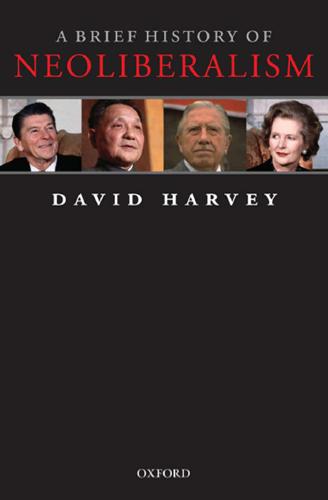
A Brief History of Neoliberalism
by
David Harvey
Published 2 Jan 1995
The subsequent lowering of import barriers delivered yet another blow, as cheap imports from the efficient but also highly subsidized agribusinesses in the United States drove down the price of corn and other products to the point where only the most efficient and affluent Mexican farmers could compete. Close to starvation, many peasants were forced off the land, only to augment the pool of unemployed in already overcrowded cities, where the so-called informal economy (for example street vendors) grew by leaps and bounds. Resistance to the ejido reform was, however, widespread, and several peasant groups supported the Zapatista rebellion that broke out in Chiapas in 1994.19 Figure 4.3 Employment in the major maquila sectors in Mexico in 2000 Source: Dicken, Global Shift.
…
In 1970 or so investment in that field was on a par with the 25 per cent going into production and to physical infrastructures respectively, but, by 2000, IT accounted for around 45 per cent of all investment, while the relative shares of investment in production and physical infrastructures declined. During the 1990s this was thought to betoken the rise of a new information economy.7 It in fact represented an unfortunate bias in the path of technological change away from production and infrastructure formation into lines required by the market-driven financialization that was the hallmark of neoliberalization. Information technology is the privileged technology of neoliberalism.
…
Unfortunately, that culture, however spectacular, glamorous, and beguiling, perpetually plays with desires without ever conferring satisfactions beyond the limited identity of the shopping mall and the anxieties of status by way of good looks (in the case of women) or of material possessions. ‘I shop therefore I am’ and possessive individualism together construct a world of pseudo-satisfactions that is superficially exciting but hollow at its core. But for those who have lost their jobs or who have never managed to move out of the extensive informal economies that now provide a parlous refuge for most of the world’s disposable workers, the story is entirely different. With some 2 billion people condemned to live on less than $2 a day, the taunting world of capitalist consumer culture, the huge bonuses earned in financial services, and the self-congratulatory polemics as to the emancipatory potential of neoliberalization, privatization, and personal responsibility must seem like a cruel joke.

The Way That Leads Among the Lost: Life, Death, and Hope in Mexico City's Anexos
by
Angela Garcia
Published 30 Apr 2024
Mexico was also still recovering from its 1980s debt crisis at the time NAFTA was implemented, which led to a drastic devaluation of the peso in the mid-1990s. Rates of unemployment and poverty skyrocketed, and more Mexicans were forced to migrate up north for work, either in maquilas or in the US, or to rely on the informal economy. A major consequence of the increase in poverty was an increase in the production of drugs as drug-trafficking networks became sources of employment. The country had faced other crises as well. In March 1994, presidential candidate Luis Donaldo Colosio was assassinated. Colosio was the leading contender to win the election that August.
…
And according to Padrino Francisco, more people were voluntarily committing themselves to escape the insecurity and violence in their neighborhoods. When I asked him how the self-committed paid the anexo’s monthly fee, he answered vaguely, “They work.” More than half of Mexican workers are in the unwaged “informal” sector. One feature of Mexico’s vast informal economy is that it’s difficult to differentiate between an offer of help or employment and the delivery of a threat. To do so requires a nuanced understanding of the prevailing system of social organization. And even then there’s a persistent ambiguity, for it is often through coercion and violence that the system of “reciprocity” is maintained.
…
* * * Before it fizzled, there was much fanfare about Mexico City’s Campus Biometrópolis, the so-called City of Health. The United Nations’ Shanghai Manual: A Guide for Sustainable Urban Development in the 21st Century characterizes the megaproject as “a clear example of how science and technology can be used to trigger new economic activities directly linked to the information economy.” Ghostly representations of Foster + Partners’ master plan can be found online. For work on the politics of megaprojects, see Bent Flyvbjerg, Nils Bruzelius, and Werner Rothengatter’s Megaprojects and Risk: An Anatomy of Ambition (Cambridge University Press); Glen David Kuecker and Alejandro Puga, eds., Mapping the Megalopolis: Order and Disorder in Mexico City (Lexington Books); and Felicity D.
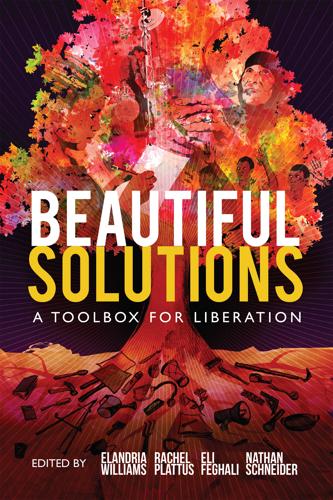
Beautiful Solutions: A Toolbox for Liberation
by
Elandria Williams, Eli Feghali, Rachel Plattus
and
Nathan Schneider
Published 15 Dec 2024
Also, some people will spend money if it’s laying around, so keeping it held in a communal fund can prevent needless spending. More importantly, the collective nature of the tanda offers an economy rooted in community, rather than in individualism, and in relationships rather than transactions. LEARN MORE ARTICLE “Tandas And The Informal Economy of Mexico” by Fundary. (2018) medium.com/@fundary/tandas-and-the-informal-economy-of-mexico-4f3c80c1c7ce WEBSITE Mission Asset Fund. missionassetfund.org/about VIDEO “SUSU - How to Start & Use It Correctly” by Elevate With Verne (2019) youtu.be/iKSZ3RfXjdw ORGANIZING PRINCIPLE TRAVEL MANY PATHS There are lots of ways to get free.
…
GUIDED BY NOHRA PADILLA HERRERA LUCIA FERNANDEZ (interview) Padilla Herrera is a third-generation waste picker from Bogotá, Colombia, and winner of the Goldman Environmental Prize for her activism on behalf of Colombian recyclers. Fernandez is the waste picker global coordinator for Women in Informal Employment: Globalizing and Organizing, a global network dedicated to improving the working conditions of the working poor—especially women—in the informal economy. WRITTEN BY THE BEAUTIFUL SOLUTIONS TEAM The work of recyclers and waste pickers is vital to reducing the ecological impact of cities. In parts of the world where people have little economic power, informal work like waste picking is widespread. There are 20 million recyclers worldwide, many of them in China and Brazil.
…
In societies where many refuse to view recyclers as workers, this organizing has led to real solutions, paving the way for more effective, ecological waste systems led by those who work on our streets. LEARN MORE WEBSITE Asociación de Recicladores de Bogotá. asociacionrecicladoresbogota.org ARTICLE “Bogotá Recycler Nohra Padilla Praised on World Stage” by Women in Informal Employment: Globalizing and Organizing. (2013) wiego.org/informal-economy/workerstories/bogota-recycler-nohra-padilla-praised-world-stage WEBSITE Global Alliance of Waste Pickers. globalrec.org STORY ENERGIEWENDE Energiewende demonstration at the main railway station in Berlin, Germany in 2014. Photo by Molgreen (CC BY-SA 3.0). ON APRIL 15, 2023, GERMANY SHUT DOWN ITS LAST nuclear power plant.
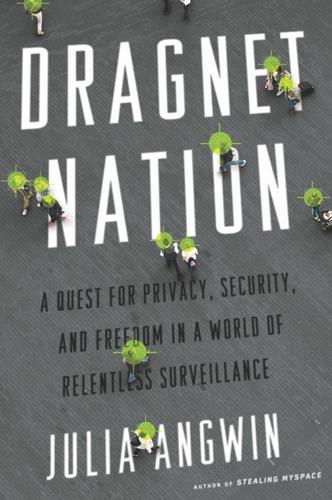
Dragnet Nation: A Quest for Privacy, Security, and Freedom in a World of Relentless Surveillance
by
Julia Angwin
Published 25 Feb 2014
Known as “muckrakers,” investigative journalists such as Ida Tarbell and Upton Sinclair exposed the underbelly of the industrial revolution, from monopolistic price gouging by the trusts to working conditions in slaughterhouses. Their work led to laws that reined in the worst excesses of the era. I believe that today we are at a similar turning point. As our nation shifts toward an information economy, there are few laws policing the booming industry giants and few governmental or nonprofit institutions with the technical savvy to police the information economy. And so it falls to today’s muckrakers—investigative journalists and conscientious objectors like Edward Snowden—to reveal the underbelly of the information revolution. I hope that once we see the abuses clearly, we will be able to find a way to restrain the excesses of the information age.
…
But since the Federal Trade Commission is not empowered to easily write rules—unlike the Environmental Protection Agency—all Brill can do is encourage the data industry to regulate itself, unless the industry’s activities cross the line and violate more general laws, such as the FTC’s ban on “unfair and deceptive” practices. In an information economy, we probably need an Information Protection Agency that is empowered to police the information economy, with a particular focus on bringing transparency and accountability to data handling and usage. * * * But just creating an Information Protection Agency is not going to be enough to police government surveillance or to remedy the plight of people like Gulet Mohamed.
…
But it is an attempt to carve a middle path between those who ask us to hand over all our data and “get over it,” and those who suggest that we throw our body on the tracks in front of the speeding train that is our data economy. Nobody, including me, wants to give up on all the benefits of our information economy—with its magical maps and facts at our fingerprints and the ability to connect with anyone in the world in an instant. But nor should any of us simply give up all of our data without any assurances that it will not come back to bite us. We didn’t shut down the industrial economy to stop pollution.
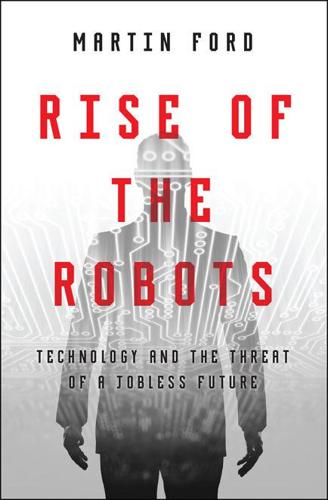
Rise of the Robots: Technology and the Threat of a Jobless Future
by
Martin Ford
Published 4 May 2015
A lucky few will provide the anecdotal success stories we will hear about, but the vast majority will struggle to maintain anything approaching a middle-class lifestyle. As techno-visionary Jaron Lanier has pointed out, a great many people are likely to be forced into the type of informal economy that is found in third-world nations.11 Young adults who find the freedom of the informal economy alluring will quickly discover its drawbacks when they begin to think in terms of maintaining a home, raising children, or planning for retirement. Of course, there have always been people living at the fringes in the United States and other developed economies, but to some extent they free-ride on the wealth generated by a critical mass of middle-class households.
…
And, yes, that’s after adjusting for inflation.10 Ford, Chrysler, and American Motors employed hundreds of thousands more people. Beyond that core workforce, the industry also created millions of peripheral middle-class jobs in areas like driving, repairing, insuring, and renting cars. Of course, the Internet sector also offers peripheral opportunities. The new information economy is often touted as the great equalizer. After all, anyone can write a blog and run ads on it, publish an ebook, sell stuff on eBay, or develop an iPhone app. While these opportunities do indeed exist, they are dramatically different from all those solid middle-class jobs created by the automotive industry.
…
The most prominent digital optimists typically live at the extreme left of the long tail—or, even better, they’ve perhaps founded a company that owns the entire distribution. In a PBS television special that aired in 2012, inventor and futurist Ray Kurzweil was asked about the possibility of a “digital divide”—meaning that only a small percentage of the population will be able to thrive in the new information economy. Kurzweil dismissed the idea of such a divide and instead pointed to empowering technologies like mobile phones. Anybody with a smart phone, he said, “is carrying around billions of dollars of capability circa 20 or 30 years ago.”12 Left unsaid was how the average person is supposed to leverage that technology into a livable income.
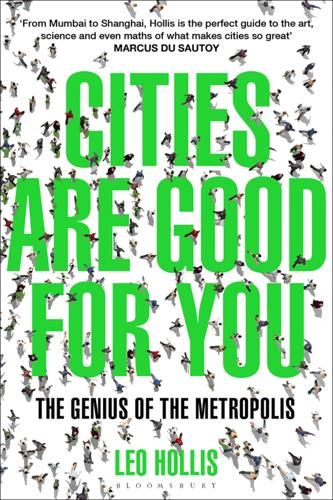
Cities Are Good for You: The Genius of the Metropolis
by
Leo Hollis
Published 31 Mar 2013
It is a place that attracts the super-rich who want to consume the finest things the metropolis can offer, and the very poor who struggle to stay alive. In the coming decades the slums of the world are set to become the fastest-growing regions; these are often places of desperation, without resources, water and security as well as the precariousness of the informal economy. The metropolis is also the place on the front line of the climate-change debate. Cities take more than 2 per cent of the earth’s surface but use at least 80 per cent of all energy. If we cannot make our cities more sustainable, they could easily become our coffin rather than our ark. Most importantly, as I watch the people walking up and down the High Line, sitting and chatting on benches, taking off their shoes and dipping their feet into the shallow pools, young toddlers giggling as they splash about until their clothes are soaked, I am reminded how cities can affect us, individually and as a group – and perhaps even make us better people.
…
According to a report by the Centre for Environmental Planning and Technology in Ahmedabad, Dharavi contains 5,000 industrial units producing garments, pottery, leather and steel goods as well as a further 15,000 single-room factories. It is a place of extraordinary industry and produces almost $500 million in revenue every year. This is proof of the power of the informal economy or what the journalist Robert Neuwirth calls ‘System D’. It is economic activity that is rarely recognised by governments, economists or business leaders, but is at the heart of developing communities like Dharavi. As Neuwirth writes, System D is ‘the ingenuity economy, the economy of improvisation and self-reliance, the do-it-yourself, or DIY, economy … off the books, in jobs that were neither registered nor regulated, getting paid in cash, and more often avoiding income tax.’10 It is estimated that today System D includes 1.8 billion people worldwide; and by 2020 will include two-thirds of all workers globally.
…
As Neuwirth writes, System D is ‘the ingenuity economy, the economy of improvisation and self-reliance, the do-it-yourself, or DIY, economy … off the books, in jobs that were neither registered nor regulated, getting paid in cash, and more often avoiding income tax.’10 It is estimated that today System D includes 1.8 billion people worldwide; and by 2020 will include two-thirds of all workers globally. If it was possible to calculate the total income generated from the informal economy into a single figure it would represent the second-largest nation in the world. With such sums it is foolish to think of what occurs in places such as Dharavi as outside the system. For the vast number of people around the world it is the only system available, as Neuwirth notes: ‘It makes no sense to talk of development, growth, sustainability or globalisation without reckoning with System D.’11 When 65 per cent of all Mumbaikar live their lives within System D it is ludicrous to continue to pretend that this is an invisible marketplace, somehow less important than the business of the neighbouring Bandra Kurla Complex.
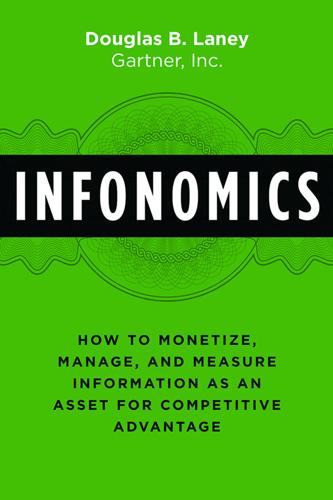
Infonomics: How to Monetize, Manage, and Measure Information as an Asset for Competitive Advantage
by
Douglas B. Laney
Published 4 Sep 2017
It also provides specific information valuation models and adapts key economic principles to help you begin quantifying and maximizing the benefits of your information assets. Figure 1.2 Infonomics—Monetize Information The Possibilities of Information Monetization Let’s dispel the notion right away that information monetization (Figure 1.2) is just about selling your data. It’s much broader than that. In today’s information economy we see a range of possibilities: information is used as legal tender (or at least in place of legal tender in many kinds of transactions); information most certainly is used to generate a profit—and not just by Google, Facebook, and the rest of the digerati, but by just about every business in every industry today with even just a copy of Excel—and information is regularly converted into money by a growing marketplace of household-name data brokers such as ACNielsen, Bloomberg, and Equifax, and by upstarts like Tru Optik, AULIVE, and hundreds (perhaps thousands) of others.
…
Not much, according to Tom Linsmeier, retiring board member of Financial Accounting Standards Board (FASB), who said: “[T]he current accounting model fails to provide much information on most internally developed intangible assets, resulting in an often-increasing market to book ratio for these organizations and leaving users with little financial reporting information to make their valuation assessments.”5 Irrespective of what accountants say or do, Linsmeier told me, “Accounting standards boards should be asking for an increased disclosure of internally-generated assets.”6 Here we are in the midst of the Information Economy, and the eponymous major source of value in that economy is considered valueless by the custodians of what constitutes value! Throughout the next few chapters, we will explore what constitutes an asset from the perspectives of the accounting profession and the law, and uncloak the increasingly sticky matter of whether information is something that can be owned.
…
Now, five or six decades since the beginning of the Information Age, the namesake of this age, and the major asset driving today’s economy, is still not considered an accounting asset. Somewhat ironically, while information is at the crux of accounting and has been for millennia, even in today’s information economy it is not something accounted for itself. However, there is some movement on the issue. Both FASB and IAS recently have issued discussion papers for open comment, and have met on the topic of how to recognize, value, and report internally generated intangibles. Presumably these include information assets as well.2324 But even after laborious discussions, over 15 years after the accounting gentry were called before the U.S.
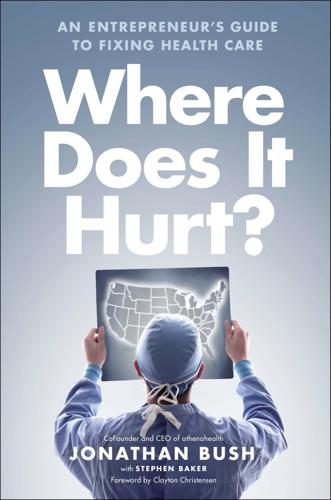
Where Does It Hurt?: An Entrepreneur's Guide to Fixing Health Care
by
Jonathan Bush
and
Stephen Baker
Published 14 May 2014
You regularly cross the Hudson River for dinner on the town—and entrust your health to New York restaurant regulators. You drive through a tunnel and count on highway safety as regulated by New York’s Department of Motor Vehicles. But out-of-staters cannot buy insurance there. Ask yourself this: Who are those laws protecting? These geographic limitations also subvert the promise of the information economy. Let’s say someone in Wyoming develops a pink lump under the skin on his forearm. He doesn’t know that it’s an aggressive skin cancer called Merkel cell carcinoma, which strikes only 1,200 Americans per year. Chances are, the local radiologist in Cheyenne, Cody, or Detroit, for that matter, has never seen such a lump.
…
And they’re engaged in radical and unusual behavior. They’re busy making money in health care by building something new and appealing to shoppers. For me, they’re much like the wildcatters who stormed to fortunes in oil, and the hackers, like the Steve Jobs, who outraced the staid leaders of technology and helped to build a new information economy. These people, to quote Apple’s iconic 1984 commercial, are the “crazy ones.” These crazy ones are committed to health and their patients, of course, but I’ve noticed that most of them don’t mind talking about money. It’s a subject that is broached only in hushed tones and inscrutable bills in the great research hospitals.
…
If an app is successful, our service grows richer, the entrepreneur makes money—and we keep a slice of the revenue. Win-win-win. These entrepreneurs, I should add, have chosen a rough road. Plenty of tech visionaries, from AOL’s Steve Case to the leaders of Google, have attempted to colonize the hostile health care information economy, and have retreated, battered and bruised. Even when selling to enterprises, there are few buyers in health care, and their purchasing decisions often appear to defy reason. Ideas have to percolate through layers of bureaucracy. There are meetings, and lots of questions. Can it be incorporated into our legacy IT system?
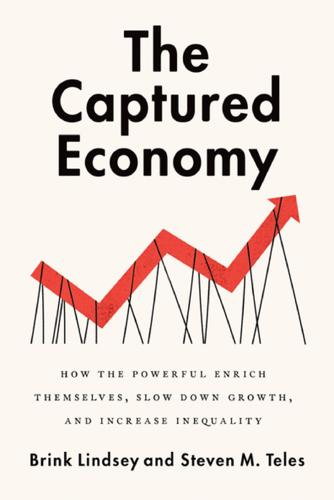
The Captured Economy: How the Powerful Enrich Themselves, Slow Down Growth, and Increase Inequality
by
Brink Lindsey
Published 12 Oct 2017
Intangible assets can be benign in origin and may include a trusted brand name, intellectual capital that results from research and development (R&D) spending, organizational capital that results from an efficient structuring of production and management, or the human capital of key employees. But another source of intangible assets is government-created barriers to entry or special subsidies. The increase in Tobin’s Q surely reflects the increasing relative importance of intangible productive assets in the post-industrial information economy, but it may also be a warning sign of an increase in rent-seeking. Meanwhile, it appears that many US industries are growing increasingly concentrated. Between 1997 and 2012, the share of total industry revenue accounted for by the 50 biggest firms in that industry rose in three-fourths of the broad nonfarm business sectors tracked by the Census Bureau.
…
As a result, the number of patents issued annually by the US Patent and Trademark Office has increased almost fivefold, from 61,620 in 1983 to 109,414 10 years later, to 186,591 another decade later, to 302,150 in 2013.1 Until the 1970s, intellectual property was a sleepy little backwater of American law. The benefits of IP protection may have been modest, but so were the costs. Since then, the scale and complexity of IP law have exploded even as, with the rise of the information economy, the relative importance of IP-intensive industries has soared. From entertainment to software to pharmaceuticals, leading sectors of the US economy now operate in a much more densely regulated world than they did before the election of Ronald Reagan, which we usually think of as ushering in an era of deregulation.
…
The decade prior to the passage of the act saw the development of only ten new drugs for treating rare diseases; in the decade that followed, the number jumped to 200.9 The evidentiary record on patents is thus mixed. Some findings describe positive effects, yes, but there is no convincing confirmation that patent systems as a whole work as intended. Overall, we find ourselves agreeing with the assessment offered nearly 60 years ago by the economist Fritz Machlup, a pioneer in the study of the emerging information economy. “If we did not have a patent system, it would be irresponsible, on the basis of our present knowledge of its economic consequences, to recommend instituting one,” Machlup wrote. “But since we have had a patent system for a long time, it would be irresponsible, on the basis of our present knowledge, to recommend abolishing it.”10 Patent protection’s muddled track record shouldn’t come as a surprise.
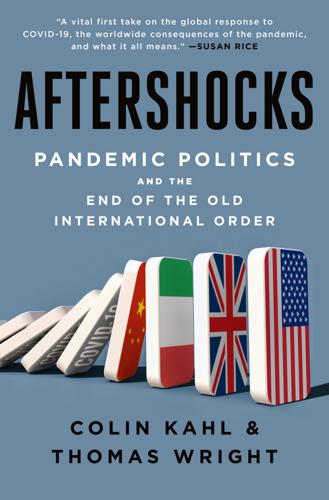
Aftershocks: Pandemic Politics and the End of the Old International Order
by
Colin Kahl
and
Thomas Wright
Published 23 Aug 2021
Prior to the pandemic, more than a fifth of the population lived below the poverty line, with around 14.5 percent in extreme poverty (that is, on less than $1.90 per day). Moreover, around 89 percent of Bangladesh’s workforce was employed in the informal economy, toiling as daily wage laborers, self-employed persons, piece-rate workers (who get paid per item made regardless of how long it takes), other hired labor, and unpaid family labor. In cities such as Dhaka, the informal economy is characterized by multitudes of rickshaw and cart pullers, head-loaders, construction workers, barbers, cobblers, garbage collectors, waste recyclers, and street vendors of vegetables, fruits, and meats.
…
The government also tested people at a higher rate per capita than anywhere else in Latin America.81 After nearly two decades of impressive economic growth, Peru had resources its neighbors did not, and it quickly rolled out one of the region’s biggest economic relief packages. Aid not only aimed to keep businesses afloat and people on official payrolls but also targeted the poor and workers in the informal economy with cash transfers. The government initially provided approximately 7 billion soles (1.1 percent of GDP) in direct transfers to support vulnerable households during the lockdown, and in late July it approved an additional cash transfer of 6.4 billion soles (0.9 percent of GDP).82 In other words, Peru seemed to do a lot of things right.
…
“They are earning day to day and working in difficult conditions.”89 Moreover, many Peruvians not technically considered poor still worked in highly precarious circumstances. Across Latin America and the Caribbean, about 54 percent of the labor force works in street sales, small retail shops, part-time construction, domestic work, and other jobs in the informal economy. In Peru prior to the pandemic, that number was nearly 70 percent.90 “The government’s [lockdown] strategy works for the 30 percent of Peru that is employed in the formal sector, that’s been growing economically,” Iván Hidalgo Romero, academic director at the Institute of Government and Public Management in Lima, observes.
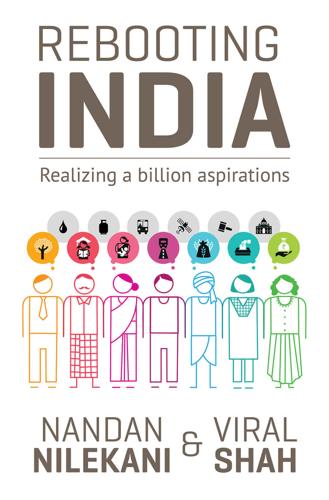
Rebooting India: Realizing a Billion Aspirations
by
Nandan Nilekani
Published 4 Feb 2016
http://www.nytimes.com/2011/12/29/world/asia/in-indian-slum-misery-work-politics-and-hope.html 4. Burman, Abheek. 25 October 2013. ‘Informal workers, making up 90% of workforce, won’t get a good deal till netas notice them’. Economic Times. http://articles.economictimes.indiatimes.com/2013-10-25/news/43395491_1_neelkanth-mishra-india-fall-informal-economy 5. 28 September 2013. ‘India’s Informal Economy. Hidden Value’. Economist. http://www.economist.com/news/asia/21586891-activities-out-sticks-may-add-more-gdp-was-thought-hidden-value 6. Dr G. Rajan, Raghuram, Governor, Reserve Bank of India. 11 December 2013. Talk at the Delhi Economics Conclave titled ‘Financial Sector Reforms’.
…
How can government primary healthcare centres and hospitals deploy technology in a similar way? The gap between dreams and reality Rayappa Pitkekar is a forty-eight-year-old leatherwork contractor in Mumbai’s Dharavi locality; its status as one of the world’s largest slums belies the fact that its flourishing informal economy boasts a turnover of over Rs 30 billion annually,8 thanks to the enterprising spirit of Pitkekar and his ilk. The son of a garbage picker who earned Rs 1.25 a day digging through trash to salvage plastic for reuse by the local plastic industry, Pitkekar studied by day and then worked two jobs, earning Rs 5 for every 100 newspapers he sold in local trains in the evening and then working in a hotel at night.
…
Lurking in the shadows: India’s parallel economy Mumbai’s Dharavi locality is a place of staggering contrasts. With its narrow byways and tumbledown tenements teeming with people, at first glance it lives up to its title of ‘Asia’s largest slum’. Beyond the clichés, however, Dharavi is an economic boom town, the beating heart of India’s informal economy, generating anywhere from $600 million to $1 billion worth of output annually.3 Viral was given a tour of Dharavi by the local branch manager of the Indian Overseas Bank. Despite having grown up in Mumbai, Viral had never set foot in the area; he was amazed by what he saw. Crammed into a warren of tiny rooms and sheds were factories churning out savoury chivda and other teatime snacks, workshops producing fine leather goods, an ice-cream manufacturing plant and a garment factory making T-shirts that were exported to Saudi Arabia and other countries—and this was just a sample.
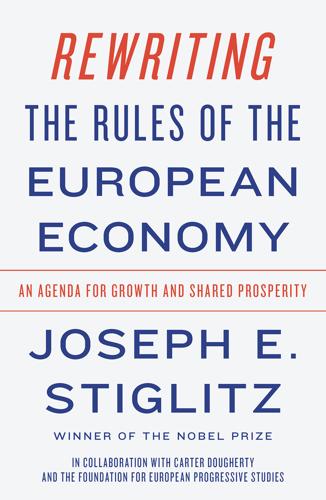
Rewriting the Rules of the European Economy: An Agenda for Growth and Shared Prosperity
by
Joseph E. Stiglitz
Published 28 Jan 2020
In Indonesia and Uruguay, taxi and motorcycle taxi drivers, including those working through gig economy platforms, are covered by social insurance through payments via an online application.8 Formalization, or bringing workers onto the books, would have further benefits, including the improvement of working conditions of those in the informal economy. What these examples illustrate is that public pensions can be provided even to those in the informal economy. Several additional reforms of existing pension systems could also provide more security in old age. First, with increased job mobility, pension portability—as is the case with health care—is important, and legislation has to ensure such portability.
…
In many countries, it will be important to raise minimum wages and/or to supplement the incomes of low-wage earners. ■ A new problem that Europe has to confront is the emergence of precarious jobs, like those involved in the so-called gig economy. ■ In many countries, there has been an erosion of labor standards. Standards have to be raised and programs designed to bring the informal economy onto the books. ■ Europe has suffered from excesses of long-term unemployment and high rates of youth unemployment. Active labor market policies can help move these individuals into jobs, provided enough jobs are available. ■ More broadly, the state may have to actively intervene in labor markets to provide employment.
…
While some countries have increased the number of labor inspectors, as is the case with France, Poland, and Spain, recent surveys show that the majority of European countries have reduced their number of labor inspectors because of budget cuts and austerity measures.9 The result is that enforcement has been uneven, which has resulted in a growing informal economy with precarious working conditions. Labor standards will not be consistently respected unless there is effective enforcement. Several reforms are needed: ■ Strengthen labor inspection mechanisms, increase funding for enforcement, carry out unannounced on-site inspections, raise penalties for violations of labor standards, and increase numbers of inspection staff, at least to meet the target recommended by the International Labour Organization (one inspector for every 10,000 workers)
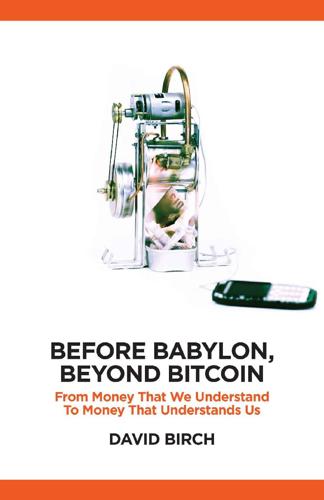
Before Babylon, Beyond Bitcoin: From Money That We Understand to Money That Understands Us (Perspectives)
by
David Birch
Published 14 Jun 2017
Rinaldi’s research further concluded that in these circumstances the European economy would grow by an additional 9 basis points because moving to electronic money would shrink the cash-based ‘shadow economy’. I’m sure she’s right. When the Proton ‘electronic purse’ (e-purse) was launched in Belgium a decade ago, I recall a number of people at the time saying that one of the reasons for the poor usage figures was the size of the country’s informal economy. Time to scrap metal There’s a thing that economists call ‘the big problem of small change’. In essence, there’s a problem because it’s hard to make a living out of producing small change, so no one does it (Sargent and Velde 2002). The state therefore has to do it, delivering the token money that is supported by law.
…
I agree with Keohane, though, when he says that this should at most mean we keep some coins and low-value notes. There is no need to print $100 bills or €500 notes for these purposes. Addressing that big problem of small change again, I think we should look to the future and find alternative ways to obtain inclusion. We need alternatives to cash to reach everyone, whether in the formal or informal economy, and (and this will have implications when we discuss privacy later) without moral censure. Douglas McWilliams entertainingly set this out in his Gresham College lecture on the Italian black economy (McWilliams 2014), explaining how Italy decided to revise its GDP calculations back in 1987 in order to obtain membership of what is now the G8 by including estimates for its ‘black economy’ in the figures.
…
Anyway, to restore fair contributions, some years later EU statisticians revised their methodologies to treat the black economy equally in all EU countries and things like software and drug dealing and prostitution were added to the figures in 1991, which in turn boosted the UK economy significantly. Diane Coyle explores this statistical revision in her book GDP: A Brief but Affectionate History, saying that ‘the largely cash-based informal economy of moonlighting, avoiding taxes and regulations, but creating work and output, has been placed inside the production boundary’ (Coyle 2014). So it is measured, but the people in that economy are not contributing their fair share to the national piggy bank. We (by which I mean me and my colleagues in the payments industry) don’t spend much time thinking about the black economy, but it’s an untapped market for electronic payments.
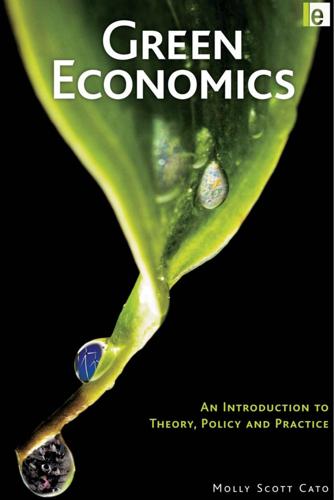
Green Economics: An Introduction to Theory, Policy and Practice
by
Molly Scott Cato
Published 16 Dec 2008
Illich considered that economic conditions, foremost among these being those in the employment situation, undermined ‘the conditions necessary for a convivial life’.16 Partly in response to this critique, Robertson develops a concept he calls ‘ownwork’ – ‘activity which is purposeful and important, and which people organize and control for themselves’ – only part of which is in the formal economy.17 He argues for the revival of the informal economy and the encouragement of ‘home-grown’ local economies, along with local self-reliance and the expansion of the third sector. ‘Ownwork’ is explained by reference to a quotation from Khalil Gibran, ‘You work that you may keep pace with the earth and the soul of the earth. For to be idle is to become a stranger unto the seasons, and to step out of life’s procession that marches in majesty towards the infinite.’18 Robertson’s argument for moving from employment to ownwork is partly economic – ‘because the development of productive and useful work in the local and household sectors will reduce the present dependency of localities and households on jobs provided by the large-scale manufacturing and service sectors of the economy, as well as on goods and services purchased from these sectors or provided by them at public expense’ – and partly psychological.
…
As Henderson argues, a sustainable economy requires ‘the rise of worker-owned, self-managed enterprises, and of bartering, self-help, and mutual aid’.25 Such an economy can provide satisfying 64 GREEN ECONOMICS work and rewarding lifestyles but ‘simply cannot provide support for [the] enormous pyramided capital structures and huge overheads’ associated with the late capitalist economy. Greening production and distribution One of the lessons of green economics is that much of what we use in our everyday lives need not have come from a production process of the formal economy at all. Robertson coined the term ‘informal’ economy to describe the work we have traditionally done, unpaid, to provide for our needs and those of others close to us. This economic sector is increasingly squeezed as the market takes over more areas of our lives, so that children are sent to nurseries rather than being looked after by their grandmothers or neighbours, and we eat ready meals rather than cooking for our families or sharing meals with friends.
…
Greens favour a system of ‘ownwork’ where people are more in control of their own time and reject the alienating form of work that has developed under industrial capitalism. The move towards a sustainable economy will also require a considerable degree of reskilling and more labour-intensive forms of skilled employment such as in mending and repairing. A green economy would have a wider role for the informal economy and for cooperative and community-based systems of mutual support; this is in contrast to sucking ever more areas of our lives into the market. Several green economists have been inspired by medieval economics, including the concept of the ‘just price’ and the organization of production through craft-based guilds.
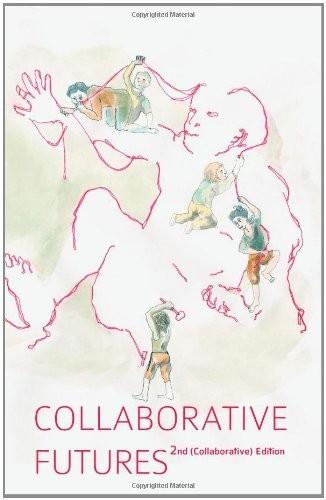
Collaborative Futures
by
Mike Linksvayer
,
Michael Mandiberg
and
Mushon Zer-Aviv
Published 24 Aug 2010
They are all very well documented, so these descriptions should be great starting points for further research. 12 Anarchism in the Collaboratory Anarchist theory provides some of the background for our framing of autonomy and self organization. This is recapitulated by Yochai Benkler, one of the leading modern theorists of open collaboration, in his book The Wealth of Networks: How Social Production Transforms Markets and Freedom: “The networked information economy improves the practical capacities of individuals along three dimensions: (1) it improves their capacity to do more for and by themselves; (2) it enhances their capacity to do more in loose commonality with others, without being constrained to organize their relationship through a price system or in traditional hierarchical models of social and economic organization; and (3) it improves the capacity of individuals to do more in formal organizations that operate outside the market sphere.
…
In a free cooperation, all members of the cooperation are free to quit, to give limits or conditions for its cooperative activity in order to influence the rules according to their interests; they can do this at a price that is similar and bearable for all members; and the members really practice it, individually and collectively.” —Christoph Spehr, The Art of Free Cooperation Ownership In the industrial information economy the outputs are owned by the company that produces them. Copyrights and patentable inventions produced by employees are transferred to the corporate owner, either directly or via the ‘work for hire’ doctrine, which treats the acts of individuals as extensions of the employers will. Collaborations amongst small groups o en use similar proprietary methods to control the benefits arising from their outputs, but parcel out ownership amongst collaborators.
…
Nations and corporations have long term interests and the resources that will probably keep them in the picture long a er the networked effort will evaporate. These are brave yet very early experiments in new political association. They are widely informed by experiments in collaboration and control in information economies. Most of them will not automatically translate to meat space. Especially at times of natural disaster, when food and medicine shortage occupies much of the human rights debate. Open Leaders Failing Forward The abundance of information technologies have also lowered the price of failure and made it an inherent part of the process.
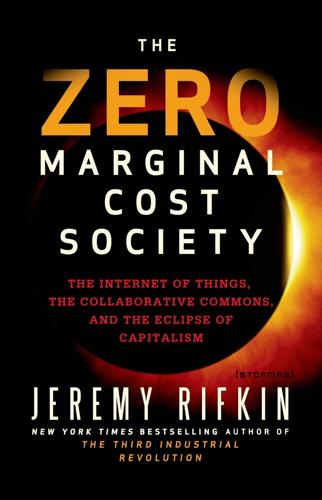
The Zero Marginal Cost Society: The Internet of Things, the Collaborative Commons, and the Eclipse of Capitalism
by
Jeremy Rifkin
Published 31 Mar 2014
He also realizes that a Communications Commons will remain elusive if tied to a proprietary infrastructure. In the last few pages of his eloquent book The Wealth of Networks, Benkler argues that if future generations are to enjoy the immense benefits that come with a networked information economy, it will be necessary to create a common infrastructure. He writes: To flourish, a networked information economy rich in social production practices requires a core common infrastructure, a set of resources necessary for information production and exchange that are open for all to use. This requires physical, logical, and content resources from which to make new statements, encode them for communication, and then render and receive them.1 No disagreement here.
…
Lawrence Summers, U.S. secretary of the treasury during President Bill Clinton’s administration and former president of Harvard University, and J. Bradford DeLong, a professor of economics at the University of California, Berkeley, revisited the capitalist dilemma in a joint paper delivered at the Federal Reserve Bank of Kansas City’s symposium, “Economic Policy for the Information Economy,” in August 2001. This time, there was much more at stake as the new information technologies and the incipient Internet communication revolution were threatening to take the capitalist system to a near zero marginal cost reality in the coming decades. Summers and DeLong’s concerns focused on the emerging data-processing and communication technologies.
…
John Maynard Keynes, Essays in Persuasion (Project Gutenberg eBook, 2011), 358–74, http://gutenberg.ca/ebooks/keynes-essaysinpersuasion/keynes-essaysinpersuasion-00-h.html (accessed January 23, 2013). 8. Ibid. 9. J. Bradford Delong and Lawrence H. Summers, “The ‘New Economy’: Background, Historical Perspective, Questions and Speculations,” Economic Policy for the Informational Economy (2001): 16. 10. Ibid., 35. 11. Ibid. 12. Ibid., 16. 13. Ibid. 14. Ibid. 15. Ibid. 16. Ibid., 16, 38. 17. Thomas S. Kuhn, The Structure of Scientific Revolutions (Chicago: University of Chicago Press, 1962). 18. Isaac Asimov, “In the Game of Energy and Thermodynamics You Can’t Even Break Even,” Smithsonian, August 1970, 9. 19.
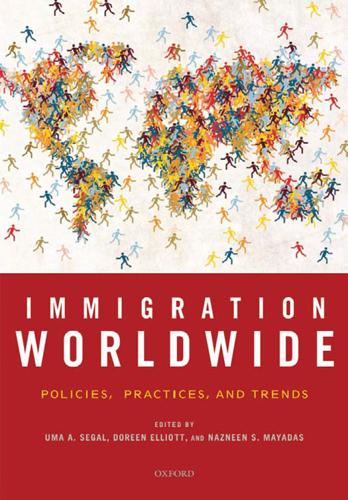
Immigration worldwide: policies, practices, and trends
by
Uma Anand Segal
,
Doreen Elliott
and
Nazneen S. Mayadas
Published 19 Jan 2010
Another reason was the restrictive immigration policies applied elsewhere in Northern Europe, particularly France, which made Spain a more attractive alternative for North Africans in particular. It gained a reputation because of the relative ease of entry and the abundant job opportunities in either the formal or informal economy available to work-seeking migrants (Martı́nez Viega 1999). Meanwhile, additional obstacles to entering the United States encouraged ever greater numbers of Latin Americans to select Spain as an alternative destination. For others, like the Argentines, the pressure to emigrate was enhanced by the dire economic conditions in their country.
…
Spain’s economy is notable for the large number of small businesses and the high quotient of the selfemployed. This means that employment opportunities still occur predominantly in the lowskilled jobs and in small, family-run firms. It explains why employers look to foreign labor, despite the existence of a pool of educated jobless native workers. The second is the existence of a large informal economy, estimated by the European Employment Observatory to have reached around 22 percent of GNP (EEO 2004), that provides an access route into employment, albeit often of the temporary and low-paid variety. Among Spaniards, only a small number of the pool of the young unemployed are forced to accept any type of work in order to survive because they live at home, where there is already usually at least one breadwinner.
…
Tsadanidis (eds.), Eldorado or Fortress? Migration in Southern Europe, Basingstoke, UK: Macmillan, pp. 253–276. Azurmendi, M. (2001), ‘‘Inmigración y conflicto en el Ejido,’’ Claves de Razón Práctica, 116, pp. 8–17. 151 Baldwin-Edwards, M., & Arango, J. (eds.), (1999), Immigrants and the Informal Economy in Southern Europe, London: Frank Cass. Castellanos, M. L., & Pedreño, A. (2001), ‘‘Desde El Ejido al accidente de Lorca,’’ Sociologia del Trabajo, 42, pp. 3–31. Chislett, W. (2005), Inside Spain 9. Madrid: Real Instituto Elcano. Colectivo IOE, Angel del Prado, M., Actis, W., Pereda, C., & Pérez Molina, R. (1998), Labour Market Discrimination against Migrant Workers in Spain, Geneva: International Labour Organization.
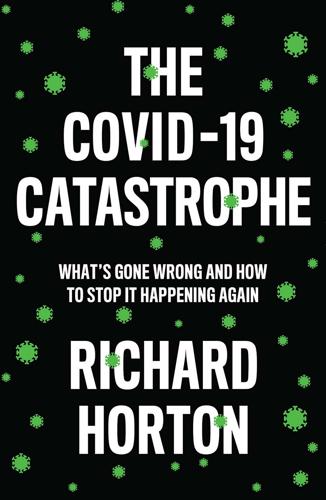
The COVID-19 Catastrophe: What's Gone Wrong and How to Stop It Happening Again
by
Richard Horton
Published 31 May 2020
The bottom line is, a large population in China is suffering, not just from the virus but from the resulting isolation, high uncertainty, anxiety and stress, reduced resources and freedom for daily living, and loss of income. And the point on income really should be considered. With weak social protection in China, in conjunction with the estimate of 60% of labour engaged in the informal economy in Asian and Pacific developing countries, lack of employment benefits and protection renders people extremely vulnerable to crises, such as the current one. There would have been social outcries if this happened in any other Western country, but just because there isn’t an outcry in China doesn’t make its people lesser people who shouldn’t be treated any less.
…
Another constraint was an acute shortage of health workers, while yet another consisted of the large communities living in slums with no possibility for physical distancing. The government’s sudden enforcement of lockdown also disadvantaged already vulnerable populations. There was a mass exodus of migrant workers, and concerns rose about starvation among those who worked in the informal economy. Implementing public health measures is always difficult in places with overcrowded living conditions and inadequate hygiene and sanitation. Non-COVID-19 health services have been disrupted. The pandemic was also used to fan anti-Muslim sentiment and violence after a gathering linked to the group Tablighi Jamaat was identified as the source of a large cluster of cases.
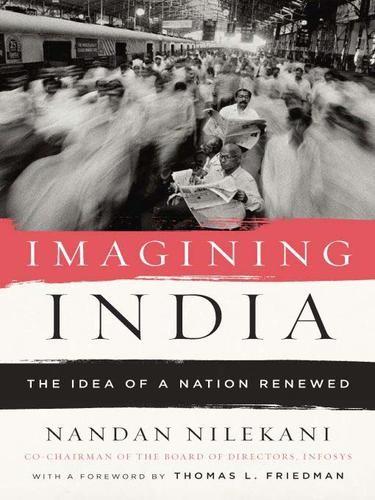
Imagining India
by
Nandan Nilekani
Published 25 Nov 2008
And as labor became a powerful economic force, a large working population became more valuable. This idea of population as an asset rather than a burden has especially gained currency with the rise of knowledge-based industries such as IT, telecommunications and biotechnology in the 1970s. In fact the information economy is the culmination of what the Industrial Revolution started—it has placed human capital front and center as the main driver of productivity and growth. I do shy away, however, from unbridled optimism—that would be almost as bad as the previous mood of relentless pessimism on population growth.
…
Transmitting information about a price shock around a certain crop from the central markets to the outlying rural areas can sometimes take months. As a result farmers in India find out about a price collapse too late, often after the planting season. For these farmers, IT is not just access to the information economy—it is their only access to it, and a critical, life-changing one. The demand for IT has consequently grown dramatically across rural India, and rural IT-based services led by the private sector have soared in recent years. Sriram Raghavan’s Internet community centers and kiosks, for instance, offer low-cost computing and networking services across villages, and ITC’s 7000 e-Choupal centers allow farmers to check commodity prices and sell crops online.
…
Purchasing crop futures on the exchange is also giving them some insight into the potential price volatility of their crops and helps them make their planting decisions accordingly. From being virtually cut off, India’s farmers are now moving, in a single leap, from third-world infrastructure into the information economy. The exchange is now expanding its efforts to reach farmers by putting up price tickers on rural bus stops. It has also tied up with Reliance Communications to transmit voice-enabled information on crop prices over the company’s CDMA network, which now covers more than half of India’s rural areas.
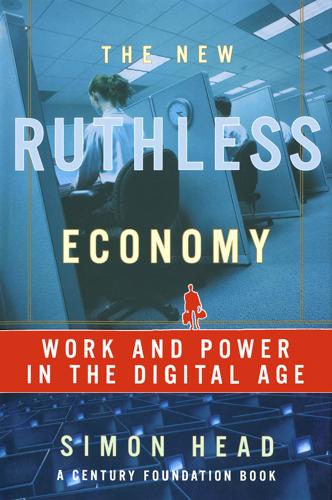
The New Ruthless Economy: Work & Power in the Digital Age
by
Simon Head
Published 14 Aug 2003
These issues will be as much a part of the subject matter of this book as the strictly economic issue of whether "skilled biased technological change" can account for the recent stagnation of most U.S. incomes. Nonetheless, the analysis of this relationship and its impact on the behavior of real wages and benefits can provide a precise measurement of how the information economy affects the lives of most Americans, which may be why so many leading economists have paid so much attention to the subject. Perhaps the most convincing way to demonstrate a causal link between "skilled biased technological change" and the stagnation of wages and benefits is to provide case histories of industries and groups of industries, each documenting the links in the causal chain with detailed and conclusive statistical evidence.
…
But what sparks the front line is the obvious obsession for doing it right, making it right for the customer."3 In sober language more appropriate to a leading theorist of the Harvard Business School, Rosabeth Moss Kanter has also stressed the importance of CRM. With the shift from an industrial to an information economy "more people hold jobs involving human contact." These workers "must influence, affect, or satisfy other people, often in direct interactions in which they look customers in the eye or listen to their voices." These employees "are performing emotional work, not just technical work." The quality of the emotional experience in these human exchanges "often determines organizational success."4 However, no endorsement or promotion of CRM is likely to carry more weight than the one given by Bill Gates in his book Business @ the Speed of Thought: More than anything, though, a company has to communicate with its customers and act on what it learns in that communication.
…
Since the eventual goal of redesigning a process is to create one that better meets customer needs, it is critical that the team truly understand these needs.7 Estimates of total employment in call centers vary from a low of 3.5 million, or 2.6 percent of the nation's workforce, to a possible high of 6 million. By comparison, there are 11 million production workers in all of manufacturing. The New Tork Times has estimated that there are at least 60,000 call centers in the United States.8 The corporate call center has become an enduring image of the information economy: a vast, football-field-sized space in which many hundreds of employees work, each enclosed within his or her cubicle, each equipped with telephone headset and computer screen. These are the "customer-facing" employees who, in the words of one report on the call center industry, act as the corporation's "voice to customers ... the frontline warriors in the battle for customer loyalty."9 Three strands of technology come together within the confines of the call center.
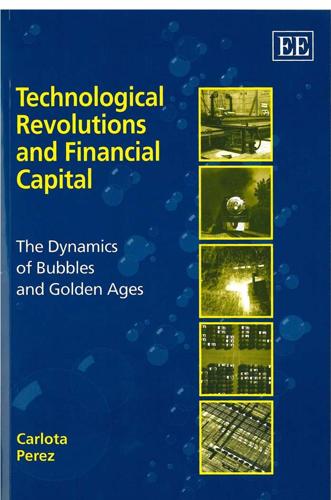
Technological Revolutions and Financial Capital: The Dynamics of Bubbles and Golden Ages
by
Carlota Pérez
Published 1 Jan 2002
Her intense interest in these deep processes was aroused in the 1970s when, as a young researcher, she was studying the oil industry, then and still today of critical importance for her own native country, Venezuela. In trying to explain the causes and consequences of the so-called OPEC crisis of 1973, she became convinced that the global economy had begun a long-term transition from a mass-production economy based on cheap oil to an ‘information economy’ based on cheap micro-electronics. The arrival of the microprocessor – a ‘computer on a chip’ – served as a ‘big-bang’ announcing this probability and she was able to develop her theory at this time through a period of postgraduate research in California – a state which was already then at the forefront of the Information Revolution.
…
It is the time depicted by Charles Dickens and Upton Sinclair, by Friedrich Engels and Thorstein Veblen; the time when the rich get richer with arrogance and the poor get poorer through no fault of their own; when part of the population celebrates prosperity and the other portion (generally much larger) experiences The Turbulent Ending of the Twentieth Century 5 outright deterioration and decline. It is certainly a broken society, a two-faced world. But while the poor can usually see the conspicuous consumption of the ostentatious members of the new ‘leisure class’, to these, the poor are often hidden from view. In the globalized world of the information economy, this is all the more true, given that the cleavage between the excessively rich and the extremely poor is basically international. Were it not for satellite TV and mass illegal migrations, the invisibility could be almost total. When the financial breakdown comes, the party is over and the time comes for analyzing what went wrong and how it can be prevented from happening again.
…
Worse still, when changes are made that suit the flourishing of the new technologies, the situation for those not modernized becomes even more difficult. Figure 4.3 shows how Business Week saw the US economy gradually decoupling from the late 1980s to the mid-1990s, differentiating the ‘high-tech’ sector, belonging to the so-called information economy, from the rest. Figure 4.3 Decoupling of the system: the differing performance of the ‘hightech’ sector and the rest of the economy in the USA, 1989–96 NON SUPERVISORY AND PRODUCTION WORKERS DATA BUREAU OF ECONOMIC ANALYSIS, BUREAU OF LABOR STATISTICS BUSINESS WEEK ©BW Source: Mandel (1997) Reprinted from the March 31, 1997 issue of Business Week, Latin American Edition, by special permission, copyright © 1997 by McGraw-Hill.

Revolution at Point Zero: Housework, Reproduction, and Feminist Struggle
by
Silvia Federici
Published 4 Oct 2012
Castells reproposes the theory according to which industrial competitiveness does not depend on cheap labor, but on access to technology and information. From this viewpoint, the “Third World” no longer exists, being replaced by the countries of East Asia that have industrially developed and by the emergence of a “Fourth World” characterized by its inability to access the “information economy” and its consequent economic marginalization (“The Informational Economy and the New International Division of Labor,” 2239). According to Castells’s analysis, almost all of Africa and South America, and a good part of Asia, fall into this “Fourth World” (35-39). But the magnitude of the populations involved does not prevent him from maintaining that the work done by them is irrelevant for the objectives of the world economy and capital accumulation. 9.
…
University Park, PA: Pennsylvania University Press, 1993. Castegnaro, Alessandro. “La Rivoluzione occulta dell’assistenza agli anziani: le aiutanti domiciliari.” Studi Zancan, 2 (2002). Castells, Manuel. The End of Millennium: The Information Age. Economy, Society and Culture. Malden, MA: Blackwell Publishers, 1998. _____. “The Informational Economy and the New International Division of Labor.” In The New Global Economy in the Information Age, edited by Martin Carnoy, et al., 15-45. University Park, PA: Pennsylvania University Press, 1993. Chandler, Michael Alison. “When a Kid Becomes the Caregiver.” Washington Post, August 25, 2007.
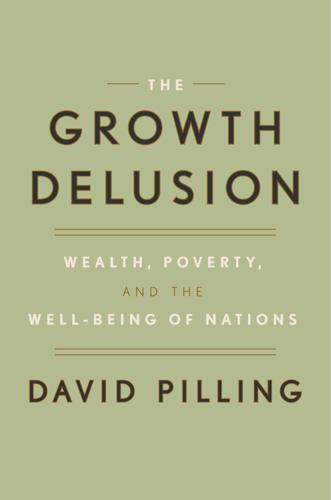
The Growth Delusion: Wealth, Poverty, and the Well-Being of Nations
by
David Pilling
Published 30 Jan 2018
The farmers, hawkers, traders, nomads, artisans, repairmen, con men, day laborers, truckers, and metal bashers who help make most African economies tick generally work outside the taxed economy and largely beyond the purview of national statisticians. One of the basic tenets of our economies is that, if you can’t put a dollar sign against it, it doesn’t exist, but much of what makes Africa go round economically is invisible. The night-light method has been used to gain a better understanding of the massive informal economy in India, a country of 1.3 billion people where more than 90 percent of the working population toils outside the formal sector. One could theoretically ask electricity companies how much power they sell in each district. But satellite imagery provides a more accurate picture, since official figures don’t count small off-grid schemes powered by solar or hydro.
…
Benjamin Muchiri, a senior official at Kenya’s National Bureau of Statistics, says his office has tried theoretical exercises to work out the imputed value of non-marketed activities from the draft power of oxen working in the fields to the transport provided by camels. You could, say, compare the oxen to tractors and the camels to journeys by motorcycle taxi. One might even count the cow dung used to line the walls of huts as self-produced building material. Including or excluding parts of the informal economy can make a big difference. In 2009 a study was made of milk, using data gathered in that year’s population census. This concluded that national income statistics for 2009 underestimated the economic contribution of milk by about twenty times. It also found that the total contribution of “ruminant livestock”—including cows, goats, and camels—was nearly $2 billion more than was captured in official statistics, no small discrepancy in an economy nominally worth only $37 billion.9 It estimated that 80 percent of beef consumed in Kenya was produced by pastoralists, including the Maasai, about a fifth of which was walked over the border from neighboring countries.
…
He had to rely on figures from the notoriously corrupt petroleum industry and port authorities about the amount of oil produced and the volume of goods shipped. The suspicion was always that the official figures underestimated the real amount, creating the scope to skim off revenue at source. The informal economy was so vast and unknowable, Kale says, that even after the 89 percent jump, he suspected he was still underestimating it. Technically, Kale was being asked to conduct what national accountants call a rebasing exercise. When countries calculate their national income they do so in relation to a base year, which serves as a reference point.
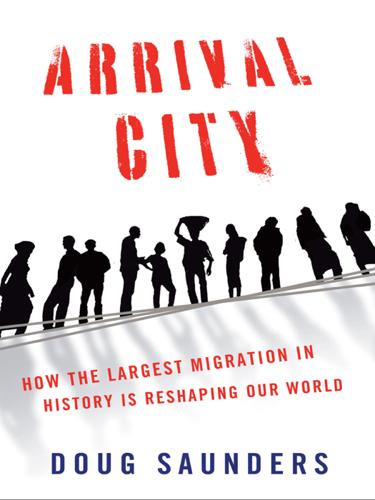
Arrival City
by
Doug Saunders
Published 22 Mar 2011
Until the economic crises of the 1980s, the cities of the developing world were dominated by an elite core of lifelong jobs backed by a few low-paying service jobs. Now, this world has exploded into small constellations of permanent employees dwarfed by a galaxy of informal work: small, unlicensed shops or street-vending sites; services, including domestic work and transportation; or short-term work in building and small manufacturing. The informal economy, previously considered a parasitic irrelevance on the edge of the “main” industrial economy, now represents a quarter of all jobs in post-communist countries, a third in North Africa, half in Latin America, 70 percent in India, and more than 90 percent in the poorest African countries.2 It is a form of labor that is often less secure and that offers none of the social-security benefits or long-term guarantees of industrial work—but, to its immense benefit, it is a form of work that is available to almost everyone who comes to the city.
…
THE ARRIVAL CITY IN THE POST-MIGRATION NATION The presence of a Central American peasant, like Mario Martinez, in Los Angeles, or a family of Bangladeshi villagers, like the Tafaders, in the East End of London, strikes many people as an aberration, an artifact of the past or a political mistake. In this age of border controls, high-technology information economies, and selective immigration policies, we often think there should be no reason to have large masses of the developing world’s rural poor forming enclaves in the cities of the West. In many western European countries, in Canada, the United States, and Australia, governments respond to the arrival city not by making it function better but by trying to pretend that village-origin migration won’t happen or can be permanently stopped or filtered out.
…
The residents of arrival cities do not consider themselves “the poor” but rather successful urbanites who happen to be passing through a period of poverty, perhaps for a generation.5 The arrival city, if it is to function at all, must create members of a middle class: Families with enough earnings and savings to start businesses and employ others, to own and improve dwellings, to send children to university, to have a sustainable quality of life capable of moving them, and their neighbors, beyond merely surviving. An arrival-city middle class is important for a number of reasons. It creates social and political stability, because the middle class ties the neighborhood to the institutions of the wider city and thereby opens a pathway to something other than crime, marginal informal-economy employment, and dependency. The presence of an arrival-city middle class shows new arrivals and their children that the process of migration is not a journey into perpetual injustice, that sustainable prosperity is available to those willing to study and invest. It tends to generate employers and political leaders within the arrival city, improving the quality of life for others.
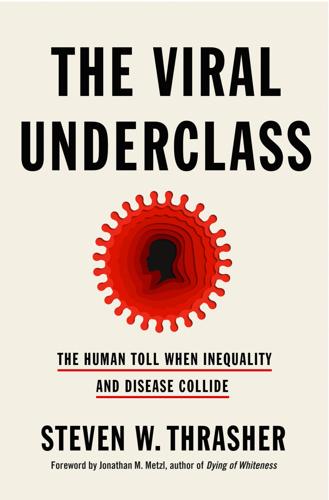
The Viral Underclass: The Human Toll When Inequality and Disease Collide
by
Steven W. Thrasher
Published 1 Aug 2022
For much of U.S. history, and in many ways still, it has been legal to discriminate against transgender people. As a result, transgender people are more likely to face job, food, and housing insecurity. They sometimes have few options for survival but drug, sex, domestic, or manual work in the informal economy. Though she eventually became a permanent U.S. resident, Jennicet Gutiérrez was a longtime undocumented transgender activist who, like Lorena, was born in Mexico, misgendered throughout her youth, and traveled to the United States as a young person. As she once told me, “Surviving in this country as an undocumented person puts people at a higher risk” for viruses and poor health in ways many LGBTQ political brokers ignore.
…
The United States doesn’t just use viruses to create national borders; in conflating viruses with nonwhite people, it also tries to create borders of whiteness, where healthy white people are on one side of national belonging and people living with viruses are kept outside it. For those living undocumented in the United States, just trying to survive can put them at risk of deportation. The criminal justice system and the immigration system overlap for them when the work they do in the informal economy might get them arrested. It was an Obama administration policy embodying this dynamic that made life even more precarious for Lorena’s “girls” and that first brought her into Chase Strangio’s life. Long before he was known as an attorney who helped free transgender whistleblower army lieutenant Chelsea Manning from prison and worked on the landmark trans Supreme Court case R.
…
Saddled with a record that made it impossible to rent a home in their own name and unable to live with family, record numbers of Black people were rendered homeless upon making contact with the criminal justice system after the 1996 bill passed. And homelessness inevitably led to their committing more “crimes” associated with being unhoused, such as panhandling, lying down outside, working in the informal economy, or urinating in public (the latter of which could lead to being labeled a “sex offender,” which would make securing employment or housing effectively impossible for the rest of their lives). This led to more incarceration, which created more homelessness, in an inescapable whirlpool of catastrophe.
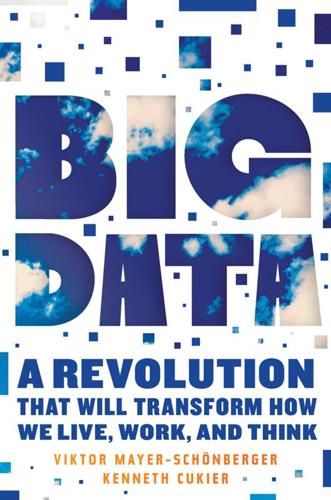
Big Data: A Revolution That Will Transform How We Live, Work, and Think
by
Viktor Mayer-Schonberger
and
Kenneth Cukier
Published 5 Mar 2013
In the twentieth century, value shifted from physical infrastructure like land and factories to intangibles such as brands and intellectual property. That now is expanding to data, which is becoming a significant corporate asset, a vital economic input, and the foundation of new business models. It is the oil of the information economy. Though data is rarely recorded on corporate balance sheets, this is probably just a question of time. Although some data-crunching techniques have been around for a while, in the past they were only available to spy agencies, research labs, and the world’s biggest companies. After all, Walmart and Capital One pioneered the use of big data in retailing and banking and in so doing changed their industries.
…
Margolis, “When Smart Grids Grow Smart Enough to Solve Crimes,” Neustar, March 18, 2010 (http://energy.gov/sites/prod/files/gc prod/documents/Neustar_Comments_DataExhibitA.pdf) [>] Fred Cate on notice and consent—Fred H. Cate, “The Failure of Fair Information Practice Principles,” in Jane K. Winn, ed., Consumer Protection in the Age of the “Information Economy” (Ashgate, 2006), p. 341 et seq. [>] On the AOL data release—Michael Barbaro and Tom Zeller Jr., “A Face Is Exposed for AOL Searcher No. 4417749,” New York Times, August 9, 2006. Also see Matthew Karnitschnig and Mylene Mangalindan, “AOL Fires Technology Chief After Web-Search Data Scandal,” Wall Street Journal, August 21, 2006. [>] Netflix identified individual—Ryan Singel, “Netflix Spilled Your Brokeback Mountain Secret, Lawsuit Claims,” Wired, December 17, 2009 (http://www.wired.com/threatlevel/2009/12/netflix-privacy-lawsuit/).
…
ICIS 2011 Proceedings, Paper 13 (http://aisel.aisnet.org/icis2011/proceedings/economicvalueIS/13; also available at http://papers.ssrn.com/sol3/papers.cfm?abstract_id=1819486). Byrne, John. The Whiz Kids. Doubleday, 1993. Cate, Fred H. “The Failure of Fair Information Practice Principles.” In Jane K. Winn, ed., Consumer Protection in the Age of the “Information Economy” (Ashgate, 2006), p. 341 et seq. Chin, A., and A. Klinefelter. “Differential Privacy as a Response to the Reidentification Threat: The Facebook Advertiser Case Study.” 90 North Carolina Law Review 1417 (2012). Crosby, Alfred. The Measure of Reality: Quantification and Western Society, 1250–1600.
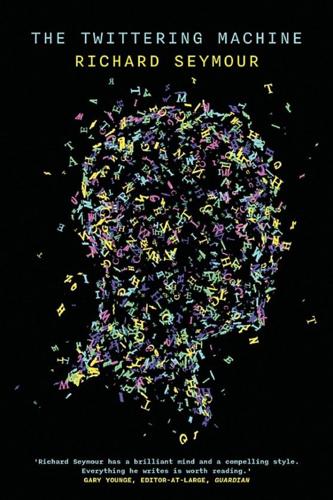
The Twittering Machine
by
Richard Seymour
Published 20 Aug 2019
That something – whether it went under the name of the post-industrial society, the knowledge economy or informational capitalism – was the growing importance of images and signs in everyday life. The rise of information technologies and whole industries based around communications, signs and images, altered not only the economy but the structure of meaning. The growth of information economies fits well with the inherent and ever-increasing celerity of capitalism. Capitalism encounters time and space as obstacles in the way of making money.64 They would ideally like to realize their investment here and now. The development of information technologies enabling the instantaneous transmission of symbols and images around the world makes possible, as Marinetti’s ‘Futurist Manifesto’ anticipated, the death of time and space.65 These technologies have been of most use in the financial sector.
…
The development of information technologies enabling the instantaneous transmission of symbols and images around the world makes possible, as Marinetti’s ‘Futurist Manifesto’ anticipated, the death of time and space.65 These technologies have been of most use in the financial sector. But now big data, by way of ‘the cloud’, claims to extend similar advantages to traditional manufacturing firms, by enabling them to choreograph production processes all over the world. Ironically, the growth of information economies is catastrophic for meaning. No doubt, we have lived through a massive expansion in the amount of information that we are exposed to. In 1986, the average American was exposed to forty newspapers’ worth of information each day. Two decades later, it was 174 newspapers. By 2008, the average American consumed about 36 gigabytes of information each day.66 And most of this information, insofar as it reaches us on social media, is designed to keep us typing and scrolling, producing more information.
…
Whatever the political purposes to which users put them, however, the most successful users are those who understand the informational politics of the platform. The infamous Facebook experiment, published in 2014, on ‘emotional contagion’, built on the well-known fact that sentiment is catching. By manipulating users’ moods, it found that this contagion can now be orchestrated on a massive scale by networks.34 The virality and celerity of the information economy piggybacks on this tendency, aggregating and herding sentiment, assembling makeshift alliances around a mood, building towards a euphoric climax and then dissipating. The experiment also showed that it is possible for the medium to fabricate and manipulate the mood of users, which of course Facebook already does on a molecular level through its management of feeds.
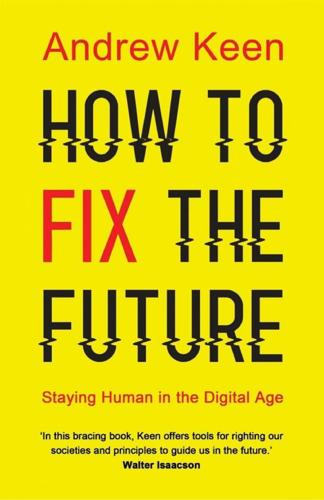
How to Fix the Future: Staying Human in the Digital Age
by
Andrew Keen
Published 1 Mar 2018
Much of this was inspired, he tells me, by what he calls a “backward reading” of Jeremy Rifkin’s influential book The End of Work, which predicted the decline of the workforce in a postindustrial age.16 What Ilves took, however, from Rifkin’s thesis is the counterintuitive idea that small countries like Estonia could actually benefit from the great transformation from an industrial to an information economy. Size would matter in the future too, he figured, but while the twentieth century naturally advantaged industrial leviathans like the Soviet Union, with their massive economies of scale and millions of industrial laborers, the networked age could favor small start-up nations like Estonia, with its small, highly skilled workforce that could speedily pivot around new technologies.
…
A few days before my visit, Vestager had signaled her intention to ramp up Europe’s antitrust investigation against Google with a third formal investigation.9 This dogged determination to hold US tech companies accountable under the EU law had even elicited the rather sour comment by the then American president Barack Obama that her efforts were “a form of protectionism” designed to help European tech companies compete with Silicon Valley.10 Outside of Putin’s Russia, where the indigenous search engine Yandex dominates, and Xi Jinping’s China, where the Great Firewall blocks it, Google maintains an astonishingly tight stranglehold on the world’s online information economy. Google’s domination in the European market is even more exaggerated than in the United States, where Microsoft’s Bing has around a 20 percent share of the market. In search, the Google query engine enjoys 95 percent of the market in Spain and Italy, 94 percent in France, and 93 percent in Germany.11 But monopolies, in themselves, aren’t illegal.
…
Like so many other critics of today’s networked society, Kallen believes the central problem is the disappearance of trust, caused mostly, in his opinion, by “too many people connecting too much data.” Burda, he explained, has a moral responsibility not just to make profits but also to figure out ways that we can once against trust media. To do this, Kallen explains, we need to “rethink” and “reinvent” search, the heart of the information economy. Created by Jean-Paul Schmetz, the former chief scientist at Burda, Cliqz is an innovative combination of search engine and internet browser, built on “privacy by design” principles. It’s been engineered or, perhaps more exactly, reengineered, as the anti-Google—an internet browser with an inbuilt search engine designed in such a way that it will never collect or sell its users’ data.
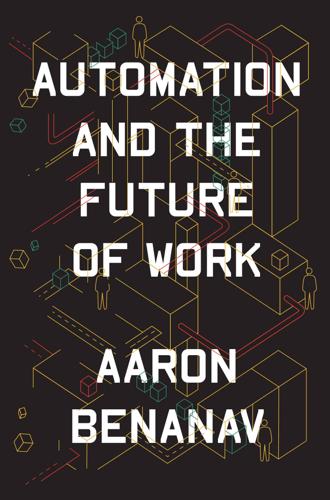
Automation and the Future of Work
by
Aaron Benanav
Published 3 Nov 2020
See also Shiho Futagami, “Non-Standard Employment in Japan: Gender Dimensions,” International Institute for Labour Studies Discussion Paper DP/200/2010, 2010, p. 29. See also Kalleberg, Precarious Lives, pp. 73–107. 22 OECD, Economic Outlook, 2018, p. 54. 23 See Aaron Benanav, “The Origins of Informality: The ILO at the Limit of the Concept of Unemployment,” Journal of Global History, vol. 14, no. 1, 2019, pp. 107–25. 24 Jacques Charmes, “The Informal Economy Worldwide: Trends and Characteristics,” Margin: The Journal of Applied Economic Research, vol. 6, no. 2, 2012, pp. 103–32. See also Aaron Benanav, “Demography and Dispossession: Explaining the Growth of the Global Informal Workforce, 1950–2000,” Social Science History, vol. 43, no. 4, 2019. 25 Jan Breman and Marcel van der Linden, “Informalizing the Economy: The Return of the Social Question at a Global Level,” Development and Change, vol. 45, no. 5, 2014. 26 See Pun Ngai, Migrant Labor in China: Post-socialist Transformations, Polity, 2016. 27 In sub-Saharan Africa, only 3 percent of workers are covered by unemployment benefits—as compared to 76 percent in high-income countries: ILO, World Employment Social Outlook: The Changing Nature of Jobs, 2015, p. 80. 28 See, respectively, the ILO’s Key Indicators, and Women and Men in the Informal Economy: A Statistical Picture, 3rd ed., 2018, p. 23. 29 ILO, World Employment Social Outlook, p. 31. 30 See Ronaldo Munck, “The Precariat: A View from the South,” Third World Quarterly, vol. 34, no. 5, 2013. 31 Some automation theorists do identify underemployment as a common feature of contemporary economies, but they have trouble explaining it, focused as they are on the apparent dynamism of technological change.
…
See also Aaron Benanav, “Demography and Dispossession: Explaining the Growth of the Global Informal Workforce, 1950–2000,” Social Science History, vol. 43, no. 4, 2019. 25 Jan Breman and Marcel van der Linden, “Informalizing the Economy: The Return of the Social Question at a Global Level,” Development and Change, vol. 45, no. 5, 2014. 26 See Pun Ngai, Migrant Labor in China: Post-socialist Transformations, Polity, 2016. 27 In sub-Saharan Africa, only 3 percent of workers are covered by unemployment benefits—as compared to 76 percent in high-income countries: ILO, World Employment Social Outlook: The Changing Nature of Jobs, 2015, p. 80. 28 See, respectively, the ILO’s Key Indicators, and Women and Men in the Informal Economy: A Statistical Picture, 3rd ed., 2018, p. 23. 29 ILO, World Employment Social Outlook, p. 31. 30 See Ronaldo Munck, “The Precariat: A View from the South,” Third World Quarterly, vol. 34, no. 5, 2013. 31 Some automation theorists do identify underemployment as a common feature of contemporary economies, but they have trouble explaining it, focused as they are on the apparent dynamism of technological change.
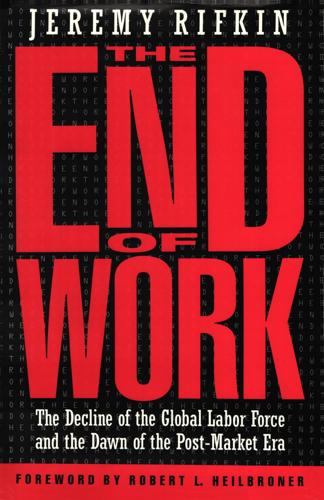
The End of Work
by
Jeremy Rifkin
Published 28 Dec 1994
Wilson blames the exodus for a spiraling decline in the inner-city tax base, a precipitous drop in public services, and the entrapment of millions of black Americans in a self-perpetuating cycle of permanent unemployment and public assistance. In New York City in 1975, more than 15 percent of the residents were on some form of public assistance. In Chicago it was nearly 19 percent. 23 In the 1980s many of the nation's northern cities partially revived by becoming hubs for the new information economy. Scores of downtown areas made the transition from "centers of production and distribution of material goods to centers of administration, information exchange and higher order service provision."24 The emerging knowledge-based industries have meant increased jobs for highskilled white collar and service workers.
…
This small elite owns 37.4 percent of all corporate stocks and bonds and 56.2 percent of all U.S. private business assets. 39 Below the super rich is a slightly larger class consisting of 4 percent of the working population of the United States. Their ranks are made up largely of the new professionals, the highly trained symbolic analysts or knowledge workers who manage the new high-tech information economy. This small group, numbering fewer than 3.8 million individuals, earns as much as the entire bottom 51 percent of American wage earners, totaling more than 49.2 million. 40 In addition to the top 4 percent of American income earners who make up the elite of the knowledge sector, another 16 percent of the American workforce also consists mostly of knowledge workers.
…
'l\t the end of the morning," says Brod, "she is exhausted, and wonders how she'll find the energy to complete the day's work."19 The new computer-based technologies have so quickened the volume, flow, and pace of information that millions of workers are experiencing mental "overload" and "burnout." The physical fatigue generated by the fast pace of the older industrial economy is being Requiem for the Working Class 189 eclipsed by the mental fatigue generated by the nanosecond pace of the new information economy. According to a study conducted by the National Institute of Occupational Safety and Health (NIOSH), clerical workers who use computers suffer inordinately high levels of stress. 20 The hyperefficient high-tech economy is undermining the mental and physical well-being of millions of workers around the world.
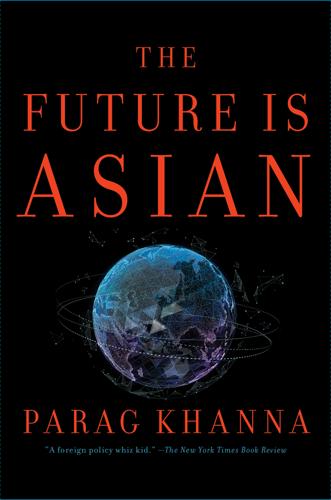
The Future Is Asian
by
Parag Khanna
Published 5 Feb 2019
ASIA’S GRAY MARKETS Billions of Asians are accustomed to life in the informal economy, working either in sectors unregulated by the state or for unregistered businesses. This gray economy represents anywhere from 12 to 50 percent of GDP and employment in Asian countries. Hustling is nothing new to Asians. Westerners are only now becoming accustomed to life in the gigonomy of multiple jobs in the formal and informal economy. But tens of millions of Indians and Pakistanis are used to working half the year in low-skilled industry and the other half in seasonal harvesting. Across Asia, the informal economy accounts for anywhere from 12 to 50 percent of GDP and employment.51 But in another case of taking advantage of late development, most Asian societies have apps that allow people to be hired for part-time work based on their skills.
…
Jaros, “Urban Champions or Rich Peripheries? China’s Spatial Development Dilemmas,” Harvard Kennedy School Ash Center for Democratic Governance and Innovation, April 2016, http://ash.harvard.edu/files/ash/files/261226_ash_jaros_web.pdf?m=1461696669. 51 The largest share of GDP represented by the informal economy is found in countries such as Russia, Thailand, the Philippines, Pakistan, and Bangladesh. 52 Emma Lee, “Nearly 90% Phones Sold in China in 2016 Came from Domestic Makers,” TechNode, Jan. 12, 2017, https://technode.com/2017/01/12/nearly-90-of-560m-phones-sold-in-china-comes-from-domestic-makers-2016/. 53 Chris Cooper, “China to Surpass U.S. as World’s Largest Aviation Market by 2024,” Bloomberg, Oct. 20, 2016, https://www.bloomberg.com/news/articles/2016-10-21/china-to-surpass-u-s-as-world-s-largest-aviation-market-by-2024. 5.
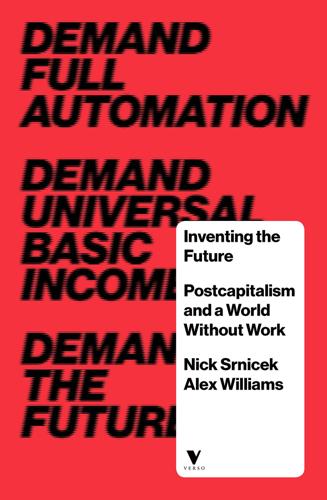
Inventing the Future: Postcapitalism and a World Without Work
by
Nick Srnicek
and
Alex Williams
Published 1 Oct 2015
Wilson, When Work Disappears, pp. 29–31. 92.Ibid., p. 42. 93.Ibid., p. 19. 94.Wacquant, ‘Rise of Advanced Marginality,’ p. 127. 95.While the size of the informal economy is notoriously difficult to measure, by all accounts it forms a significant part of the global economy. For an overview of methods to measure the global shadow economy, see Friedrich Schneider and Andreas Buehn, Estimating the Size of the Shadow Economy: Methods, Problems, and Open Questions (CESifo Working Paper Series No. 4448, 2013), pdf available at papers.ssrn.com. For a more detailed, ethnographic account of one urban informal economy, see: Sudhir Alladi Venkatesh, Off the Books: The Underground Economy of the Urban Poor (Cambridge: Harvard University Press, 2006). 96.The United Nations suggests that two-fifths of workers in developing economies are in the informal sector, while other research notes a significant growth in this proportion between 1985 and 2007.
…
Index 1968, 16–7, 63, 188n33 15M, 11, 22 abstraction, 10, 15, 36, 44, 81 additive manufacturing, 110, 143, 150, 182 affect, 7–8, 113–4, 140–1 afro-futurism, 139, 141 AI (artificial intelligence), 110, 143 alienation, 14–5, 82 algorithmic trading, 111 Allende, Salvador, 148, 149 alternativism, 194n95 Althusser, Louis, 81, 141–2 anti-globalisation, 3, 159, 162 anti-war, 3, 5, 22, 162 Apple, 146, Arab Spring, 131, 159 Argentina, 37–9, 173 authenticity, 10–1, 15, 27, 82, 180 automation, 1–2, 86, 88–9, 94–5, 97–8, 104–5, 109–17, 122, 127, 130, 143, 150–1, 167, 171–4, 181–2, 203n15, 212n121, 214n161, 215n9, 218n45 banking, 43–6, 61, 147 Beveridge Report, 118 big data, 110, 111 Bolshevik Revolution, 131 Bolsheviks, 137 Russian Revolution, 139 Brazil, 75, 119, 147, 157, 169 Bretton Woods, 61–2 Brown, Michael, 173 care labour, 113–4 Chicago School, 51, 59–60 Chile, 52, 62, 148, 149, 150 China, 87, 89, 97, 170 class, 14, 16–7, 20–1, 25, 53, 64–5, 87, 91, 96–102, 116, 120, 122–3, 126–7, 132–3, 155–62, 170, 173–4, 189n1, 206n44, 233n119, 233n4, 233n5, 234n18 Cleaver, Eldridge, 91–2 climate change, 13–4, 116 colonialism, 73, 75–6, 96–7, 225n3 common sense, 9–11, 21–2, 40, 54–5, 58–60, 63–7, 72, 131–7 communisation, 92, 225n5 competitive subjects, 63–5, 99, 124 complex systems, 13–4, conspiracy theories, 14–5 cosmism, 139 Critchley, Simon, 72 cryptocurrencies, 143, 182 Cybersyn, 149–150 debt, 9, 22, 35–6, 94 demands, 6–7, 30, 33, 107–8, 130, 159–62, 167 no demands, 7, 34–5, 107, 186n3 non-reformist demands, 108 transitional demands, 215n5 democracy, 31–3, 182 direct democracy, 27–9, 31–3, 164, 190n8 direct action, 6, 11, 27–9, 35–6 education, 64, 99, 104, 141–5, 165–6 Egypt, 32–4, 190n21 energy, 2, 16,19,41, 42–43, 116, 147, 148, 150–51, 164, 171, 178, 179, 182, 183 Engels, Friedrich, 79 Erhard, Ludwig, 57 ethics, 42 work ethic, 124–6 evictions, 8, 12, 36 feminism, 18–21, 122, 138, 161 Fisher, Antony, 58–9, 196n34 food miles, 42–3 fracking, 8 France, 17, 62, 149, 167 free time, 80, 115–6, 120–1, 167, 219n50 freedom, 63–5, 120–1, 126–7, 180–1 negative freedom, 79 synthetic freedom, 78–83 Friedman, Milton, 56, 59–61 full employment, 98–100 future, 1, 71–5, 175–8, 181–3 G20, 6, 94 gender, 21, 41, 90, 122 Germany, 45, 56–7 ghettos, 95–6 Gramsci, Antonio, 132, 165 Graeber, David, 33 grand narratives, 73–4 Great Depression, 46, 65, 99–101, 114–5 Harvey, David, 135 Hayek, Friedrich, 54–6 Holzer, Jenny, 175, 178 horizontalism, 18, 26–39 housing, 8, 28, 35, 48, 77, 80, 95, 96, 148, 159, 167, 168, humanism, 81–3, 180–1 hyperstition, 74–5, 138–9 Iceland, 34, 164 idleness, 85–6 immediacy, 10–1 immigration, 101–2, 161 India, 87, 97–8, 130 inequality, 22, 80, 93–4 informal economy, 95–8, 203n10, 206n44, 210n95 Institute of Economic Affairs, 58–9 Iranian Revolution, 131 Jameson, Fredric, 14, 92, 198n10 Japan, 147 Jimmy Reid Foundation, 117 jobless recovery, 94–5 Jobs, Steve, 179 Johnson, Boris, 172 Kalecki, Michał, 120 Krugman, Paul, 118 labour, 2, 3,9, 17, 20, 21, 33, 38, 48, 52, 58, 61–3, 74, 79, 81, 83, 85–143, 148, 150, 151, 156–8, 161, 163–181, 182 Laclau, Ernesto, 155, 159 Lafargue, Paul, 115, language, 81, 132, 160, 164–5 leisure, 85–6 Leninism, 17, 131, 188n33 Live Aid, 8 localism, 40–6 locavorism, 41–2 Lucas Aerospace, 147 Luxemburg, Rosa, 15 Lyotard, Francois, 73, 74 Manhattan Institute for Policy Research, 58, 59 marches, 6, 30, 49 Marikana massacre, 170 Marinaleda, 48 Marx, Karl, 73, 79, 85, 86, 92, 115, 119, 121, 122, 132, 142, 156, 158, 180 Mattick, Paul, 92, 118 media, 2, 7–8, 31, 36, 52, 58, 60, 63, 67, 88, 118, 125–6, 129, 133–5, 163–5, 176, 182 Mirowski, Philip, 66 modernity, 23, 63, 69–85, 86, 131, 176, 181 modernisation, 23, 60, 63, 137, 174 Mont Pelerin Society, 54, 86, 134, 164, 166 MPS, 55, 56, 58, 66, 67, 134 Move Your Money, 44 Murray, Charles, 59 Musk, Elon, 179 National Union of Rail, Maritime and Transport Workers, 172 negative solidarity, 20, 37 neoliberalism, 3, 12, 20–3, 47, 49, 51–67, 70, 72, 108, 116, 117, 119, 121, 124, 134, 141, 142, 148, 156, 176, 179, 183 neoliberal, 7, 9, 14–16, 20, 21, 37, 47, 49, 73, 93, 99, 118, 126, 127, 129, 131–2, 134, 135, 162, 169, 174, 176, 181 New Economics Foundation, 117, 144 new left, 18–22 New Zealand, 151 occupations, 5, 7, 10, 11, 29–31, 34, 49, 94, 172 Occupy Wall Street, 3, 6, 7, 11, 18, 22, 26, 29–38, 126, 133, 158, 159, 160, 162, 189n1 ordoliberals, 54, 57 organic intellectual, 165–6 Overton Window, 134, 139 Partido dos Trabalhadores, 169 parties, political, 2, 10, 16, 17, 18, 20, 21, 30, 34, 39, 46, 59, 105, 116, 118, 124, 129, 162, 164, 168, 169 personal savings, 94 Piketty, Thomas, 140 Plan C, 117 planning, 1, 15, 56, 141, 142, 149, 151, 182 Plant, Sadie, 82 Podemos, 159, 160, 169 police, 6, 30, 33, 36, 37, 102, 133, 161, 168, 171, 173 postcapitalism, 17, 38, 130, 143, 145, 150, 151, 158, 168, 178, 180 postcapitalist, 12, 15, 16, 32, 34, 83, 109, 115, 126, 136, 143, 145, 150, 152, 153, 157, 179, 180 Post-Crash Economic Society, 143 post-work, 23, 69, 83, 85, 86, 105, 107–127, 129, 130, 138, 140, 141, 153, 155, 156, 158, 161, 163, 164, 167, 174, 175, 176, 177, 178 Pou Chen Group, 170 power, 1, 2, 7, 9, 10, 14, 15, 18–21, 26, 28–30, 33, 36, 43, 46, 48, 49, 59, 61, 62, 65, 73, 78, 79, 80, 81, 87, 88, 93, 100, 108, 111, 116, 120, 123, 127, 130–5, 146, 148, 151, 153, 155–74, 175, 176, 179, 180, 182 precarity, 9, 86, 88, 93, 94, 95, 98, 104, 121, 123, 126, 130, 156, 157, 166, 167, 173, 174 precarious, 2, 64, 117, 129, 167 Precarious Workers Brigade, 117 premature deindustrialisation, 97, 98 primitive accumulation, 87, 89, 90, 96, 97 prison, 90, 102, 103, 119, 133 incarceration, 102, 103, 104, 105, 161 productivity, 74, 88, 97, 110–17, 125, 150, 167 progress, 21, 23, 46, 71–5, 77, 107, 114, 115, 120, 126, 131, 138, 179, 180 protests, 1, 7, 18, 22, 28, 31, 37, 49, 66, 153, 164 psychopathologies, 64 radio-frequency identification, 110 race, 14, 31, 90, 102, 103, 140, 156, 171, 172 Reagan, Ronald, 60, 62, 66, 70 Republican Party (US), 135 resistance, 2, 5, 12, 15, 30, 35, 46–8, 49, 69, 72, 74, 83, 114, 124, 134, 158, 173, 181 Rethinking Economics, 143 Robinson, Joan, 87 Roboticisation, 110, 209n69 mechanisation, 95, 101 Rolling Jubilee, 9 Samuelson, Paul, 142 second machine age, 111 secular stagnation, 143 self-driving cars, 110, 111, 113, 173 shadow work, 115 slavery, 74, 90, 95, 103 slow food, 41, 42 slum, 86, 96–8, 102, 104 social democracy, 3, 17, 46, 66, 70, 167, 176 social democratic, 10, 13, 16, 17, 19, 21, 22, 47, 57, 72, 80, 98, 100, 108, 123, 127, 168 social media, 1, 8, 182 South Africa, 119, 157, 170 Spain, 12, 22, 34, 35, 45, 159, 164 stagflation, 19, 27, 61, 65, 100 Stalinist, 17, 18, 137 strategy, 12, 20, 26, 49, 56, 67, 117, 127, 131–3, 136, 148, 153, 156, 163, 164 strategic, 8, 9, 11, 12, 14, 15, 17, 18, 25, 28, 29, 35, 49, 52, 55, 66, 70, 77, 108, 116, 131, 135, 157, 162, 163, 164, 170, 171, 173, 174 strikes, 9, 10, 28, 36, 37, 116, 120, 157, 167, 170–3 suicide, 94 surplus populations, 40, 86, 88–94, 96–97, 101–3, 104, 105, 120, 130, 166–7, 173, 203n10 Syriza, 159, 160 tactics, 6, 10, 11, 15, 18, 19, 26, 28, 39, 40, 49, 157, 164, 171–4 Tahrir Square, 32, 34 Taylorism, 152 technology, 1, 3, 72, 81, 88, 89, 98, 109, 110, 111, 129, 136, 137, 145–8, 150–3, 178, 179, 182 Thatcher, Margaret, 59, 60, 62, 66, 70, 72, 100 think tanks, 16, 55, 56, 58, 59, 60, 63, 67, 117, 134, 135, 165 trade unions, 10, 27, 47, 59, 61, 62, 71, 105, 116, 117, 124, 129, 148, 162, 166 labour unions, 16, 171 unions, 17, 18, 20, 27, 30, 44 UK Uncut, 126 unemployment, 20, 56, 60, 79, 86–98, 99, 100, 101, 101, 102, 115, 116, 118, 121, 123, 125, 127, 129, 147, 159, 161, 168, 170, 173, 207n44 United Automobile Workers, 170 United Kingdom UK, 8, 20, 40, 42, 45, 52, 54, 56, 58, 61, 62, 92, 93, 94, 117, 118, 126, 144, 147, 151, 172 United States, 8, 18, 29, 36, 44, 45, 59, 62, 78, 92, 95, 103, 114, 118, 123, 133, 135, 138, 167 America, 6, 16, 30, 38, 47, 56, 62, 76, 95, 97, 98, 100, 101, 102, 103, 110, 164 universal basic income, 108, 118, 123, 127, 140, 143 basic income, 80, 108, 118, 119, 120, 121, 122, 123, 124, 127, 129, 130, 140, 143, 164, 165, 167 universalism, 69, 70, 75–8, 83, 119, 132, 175, 197n1, 199n40 USSR, 62, 63, 79, 139 Soviet Union, 57, 70, 74, 139 utopia, 3, 28, 32, 35, 48, 54, 58, 60, 66, 69, 70, 72, 108, 113, 114, 132, 136, 137, 138, 139, 140, 141, 143, 145, 146, 150, 153, 177, 179, 181, 182 vanguard functions, 163 Venezuela, 169 wages, 2, 71, 87, 90, 91, 93, 94, 97, 98, 101, 111, 120, 122, 125, 156, 166, 167 welfare, 14, 38, 57, 59, 61, 62, 63, 64, 71, 73, 90, 100, 101, 103, 105, 118, 119, 122, 124 Wilde, Oscar, 182 withdrawal, 11, 47, 48, 69, 131, 182 exit, 47, 48, 181 escape, 3, 9, 11, 38, 69, 107, 114, 139, 165, 178 work, 1, 2, 16, 17, 23, 32, 36, 41, 44, 47, 64, 71, 85, 86, 90–6, 98, 100, 101, 103–5, 108, 109, 110–7, 120–7, 130, 131, 132, 133, 134, 136, 140, 141, 142, 143, 147, 150, 151, 152, 157, 163, 165, 166, 170, 173, 174, 176, 177, 178, 181 wage labour, 74, 85, 86, 87, 89, 90, 92, 103, 104, 105, 120, 136, 141, 180 job, 2, 38, 41, 47, 48, 63, 64, 79, 85, 86, 88, 89, 90, 93, 94, 95, 96, 97, 98, 99, 100, 101, 103, 104, 105, 110, 111, 113, 114–23, 124, 125, 126, 129, 147, 148, 161, 166, 167, 171 worker-controlled factories, 38, 39 workfare, 59, 100, 104 World Trade Organisation, 6 World War II, 46, 54, 56, 57, 115, 156 Zapatistas, 11, 22, 26, 35 zero-hours contracts, 93 Žižek, Slavoj, 140 Zuccotti Park, 31, 32
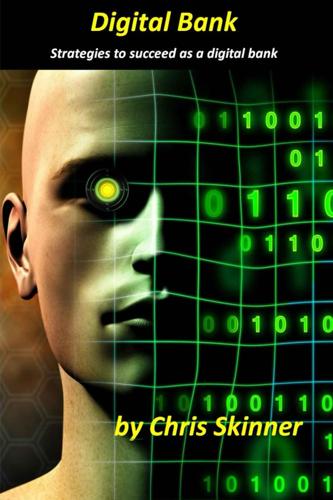
Digital Bank: Strategies for Launching or Becoming a Digital Bank
by
Chris Skinner
Published 27 Aug 2013
Admittedly, he made these statements as we moved through the height of the information revolution discussions of the 1990s, when Microsoft was rocking the world as mainframe moved to desktop, and internet banking was bubbling on the horizon. Even then, it should be noted that most of this banker’s views that the basis for wealth has evolved from land to labour to information were formed back in the 1970s, when technology first hit the banking system and moved us to an information economy. Today, this vision is realised and businesses exist as information economies and they fight based upon information. Google is not a monopoly as there were and are plenty of search engines around - Ask Jeeves, Lycos, Altavista, Bing, etc - but Google won this game early on by making algorithmic analysis of data more relevant and organised.
…
It’s similar to the days of Business Process Re-engineering, where the push was for banks to reinvent the customer relationship from the external interaction viewpoint inwards ... instead, most banks opted for purely incremental improvements to internal processes to lower costs. Now there is a big change. That big change is the information economy and the ability of new players to use information as a competitive weapon. Deep data mining can now be used to leverage electronic relationships that deliver the depth, loyalty and sales that banks were seeking a decade ago, and it can all be done today without a human hand involved. We see this with Apple, Amazon, Google and more.
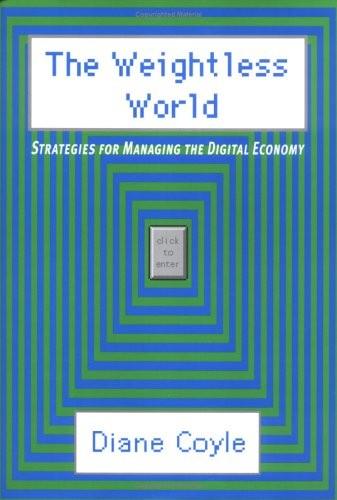
The Weightless World: Strategies for Managing the Digital Economy
by
Diane Coyle
Published 29 Oct 1998
Even trickier for the existing social contract, as the average productivity and income in Western society rises, a small group of citizens is getting left behind. Their productivity is not rising but their expectations keep pace with the rest of us. They will not accept the exploitative jobs in which they might be employable, preferring the informal economy or even the illegal, drugsbased economy. Meanwhile, the grotty jobs that still need carrying out — we still need the cleaners, the auxiliary nurses and the all-night sales assistants at the convenience store — become harder to fill because of the political classes’ mania about keeping out immigrants.
…
From the late 1980s onwards policy-makers became much more concerned about the effects of social security on incentives to work. However, there was no great rolling back of the state under that most ideological of governments. The Thatcher experiment can be interpreted as an attempt to shape the welfare state into a more flexible form better suited to the modern information economy — not that there was any master plan to do so. There can be no doubt that the devolution of managerial power to unelected bodies such as the boards of hospital trusts and self-governing schools has damaged the fabric of democracy.10 It has devolved the responsibility without the accountability.
…
It is less true in education that the public sector is more efficient, but there the issue is the benefits to the economy as a whole derived from having a better-educated work force. There is a social benefit on top of the private benefit people reap from education in the form of higher earnings. Skills and a sophisticated general education are essential to the information economy and no government can afford to see its citizens under-invest in their own education. So if there is one branch of the welfare state that will have to continue growing, it is spending on education. With education essential to individual economic success, higher public expenditure might even be repaid in the form of reduced demands on other forms of social spending in future.
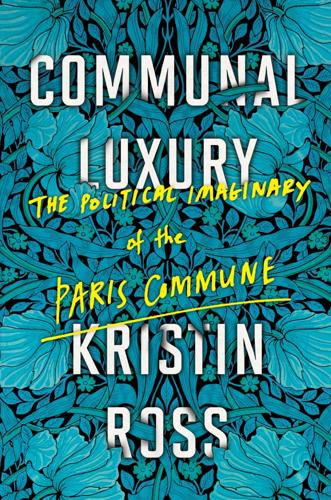
Communal Luxury: The Political Imaginary of the Paris Commune
by
Kristin Ross
Published 6 Apr 2015
For the most part, I have not felt the need to make explicit the Commune’s resonances with the politics of today, although I believe those resonances do indeed exist—some of them quite humorous, as when the New York Times reported unknowingly the name of the young activist they were interviewing in the streets of Oakland, California in November 2011 as Louise Michel.2 There is little need to spell out in detail how the way people live now under the contemporary form of capitalism—with the collapse of the labor market, the growth of the informal economy, and the undermining of systems of social solidarity throughout the overdeveloped world—bears more than a passing resemblance to the working conditions of the laborers and artisans of the nineteenth century who made the Commune, most of whom spent most of their time not working but looking for work.
…
The way people live now—working part-time, studying and working at the same time, straddling those two worlds or the gap between the work they were trained to do and the work they find themselves doing in order to get by, or negotiating the huge distances they must commute or migrate across in order to find work—all this suggests to me, and to others as well, that the world of the Communards is in fact much closer to us than is the world of our parents. It seems utterly reasonable to me that younger people today, put off by a career trajectory in video-game design, hedge-fund management, or smart-phone bureaucracy, trying to carve out spaces and ways to live on the edges of various informal economies, testing the possibilities and limitations of living differently now within a thriving—if crisis-ridden—global capitalist economy, might well find interesting the debates that took place among Communard refugees and fellow travelers in the Juras in the 1870s that led to the theorizing of something called “anarchist communism”—debates, that is, about decentralized communities, how they might come into being and flourish, and the way they might become “federated” with each other in relations of solidarity.
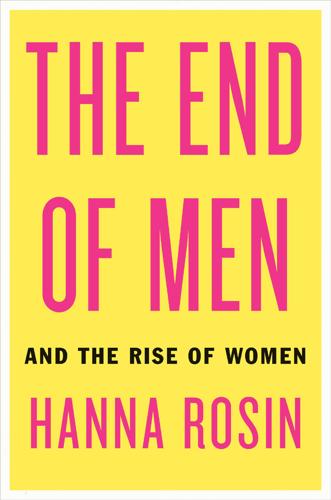
The End of Men: And the Rise of Women
by
Hanna Rosin
Published 31 Aug 2012
Our vast and struggling middle class, where the disparities between men and women are the greatest, is slowly turning into a matriarchy, with men increasingly absent from the workforce and from home, and women making all the decisions. In the past, men derived their advantage largely from size and strength, but the postindustrial economy is indifferent to brawn. A service and information economy rewards precisely the opposite qualities—the ones that can’t be easily replaced by a machine. These attributes—social intelligence, open communication, the ability to sit still and focus—are, at a minimum, not predominantly the province of men. In fact, they seem to come more easily to women.
…
“We get graded on people skills,” Hannah says about her upcoming residency, and then “the drug knowledge is important, too.” As a profession, pharmacy put itself on the right side of history. It sidestepped a future in manual labor and moved itself into the more feminine-friendly service and information economy, where higher degrees are always required and technology does not make your job obsolete; instead it frees you to shake hands and smile. Pharmacy followed the script for success in the modern economy. And in that script, the flood of women into the profession is no longer a sign of pollution, but the assurance of a bright, happy future.
…
See also Doctors, female; Nursing profession; Pharmacists Hearts of Men, The (Ehrenreich), 63 Hegedus, Nathan, 267 Heilman, Madeline, 210–11 Henderson, Darren, 89 Heriot, Gail, 145–48, 158 Hewlett Packard (HP), 219 “Hey, Soul Sister” (song), 122 Higher education, 94, 163 gender dynamics of, 149–60 See also specific colleges and universities Hiroshima, atomic bombing of, 175 History Channel, 126 Hodge, Monica, 109 Home health care, 118, 124 Honduras, 81 Hooking Up (Bogle), 20 Hook-up culture, 17–45 Housewives, 65, 152, 172 in Asian cultures, 239, 259 role reversal fantasy about, 122 in television shows, 47–48 Housing industry, collapse of, 87, 89 Houston, 81 How to Train Your Dragon (Cowell), 190 Huggies, 266 Humber, Gabby, 100 Hungary, 237 Hunger Games, The (Collins), 34, 190 Hunter-gatherer societies, 175 Hwang Myeong-eun, 241–45 Hyundai Motors, 204, 234, 250 Iceland, 5, 202 I Love Lucy (television show), 47–49 India, 5, 119, 184, 188 traditional families in, 220 Indiana, University of, 21 Information economy, 5 Information technology (IT), 138 Institutional Investor, 203 International Olympic Committee, 250 Internet boom, 201 Iowa, 96 Iraq war, 175 Israel, 237 Ivy League schools, 26–29, 31, 145, 198. See also specific universities J. C. Penney department stores, 97 Jackass 3D (movie), 143 Jacks, Margaret, 132 Jackson, Shirley, 170 Japan, 55, 238, 241, 253, 267 Jersey Shore (TV reality show), 178–79 Jews, 227 Job, The (Lewis), 120–21 Job loss.
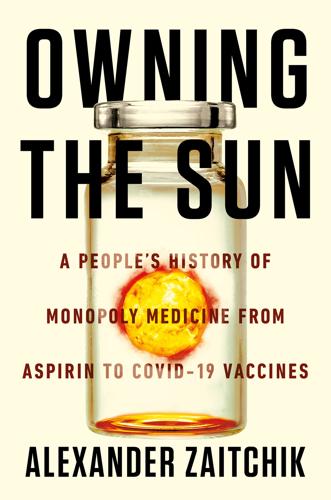
Owning the Sun
by
Alexander Zaitchik
Published 7 Jan 2022
“The available evidence shows just the opposite,” he told the red-faced senators. There was no need to study the patent policies of Japan or Germany, because the best case against turning public science into private monopolies was the high-tech innovation surge on the cusp of transforming the U.S. economy. The foundational technologies of the information economy—solid-state transistor circuits, lasers, fiber optics—had origins in three things: publicly funded research, liberal government licensing of that research, and above all, a 1954 Justice Department consent decree that forced open Bell Labs’ patent vault and diffused its contents. Had corporate America’s most notorious high-tech monopolist and knowledge-squatter been allowed to continue hiding its patented technology on bunkered shelves, the course of U.S.
…
As the Reagan administration intended, the executives focused the committee’s work on the patent issue, establishing an intellectual property task force and stacking it with patent lawyers and executives from patent-based manufacturing associations. Most of them represented chemicals and pharmaceuticals, but the task force also featured new players in the budding high-tech information economy—entertainment, software, biotech, agriculture, semiconductors—who were learning to see the world through pharmaceutical eyes. The patent-globalization train gained momentum during the Carter-Reagan transition year, but it still wasn’t clear where it was going. This changed in 1982, when the industry-administration nexus overseen by Pratt and Opel settled on a destination: the Uruguayan resort town of Punta Del Este.
…
Five years passed between MacTaggart’s op-ed and the U.S. government’s announcement of its intellectual property agenda at Uruguay. In a letter to the GATT secretariat dated October 19, 1987, U.S. Trade Representative Clayton Yeutter outlined a “basic framework” for the negotiations that amounted to what Drahos and Braithwaite call “a declaration of principles of property wanted by big business for the coming global information economy.” The G77 that faced this challenge was not the same G77 that called for a New International Economic Order and demanded health as a basic human right at Alma-Ata. By the mid-1980s, the global south was reeling from a debt crisis and tumult in the global political and economic order. Development funds and technology from the Soviet Union were disappearing, and the World Bank and International Monetary Fund were stepping into the void.
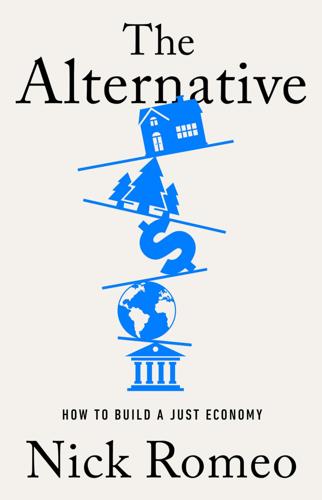
The Alternative: How to Build a Just Economy
by
Nick Romeo
Published 15 Jan 2024
A different approach, Rowan suggested, might fundamentally improve all eight issues. “What does a really healthy hourly labor market look like in the twenty-first century?” Rowan asked the participants from his book-lined office in London. As he enumerated such a market’s optimal features—the power to draw economic activity out of the informal economy, minimal transaction fees, data transparency, and responsiveness to labor laws and to workers’ ultimate goals, which might include education and training—it became clear what he was not imagining. “Everything I just described does not add up to a sizzling Silicon Valley investment opportunity,” he said.
…
Some on the left will see it as capitulation to an inherently exploitative mode of employment. Yet there are more attractive framings for supporters of both political persuasions. It’s a way to help businesses with an acute labor shortage and to create a more efficient market to match workers and employers. It’s a way to bring more of the informal economy into the formal sector and to strengthen the tax base of cities and states. It’s a way to staff and execute green infrastructure projects, and in the “big-vision” version, it’s a public infrastructure for neighbors to rent out all sorts of goods and assets, reducing the need to buy expensive, carbon-costly appliances while also providing people with additional income streams.
…
In the “big vision” version, people could use the platforms to realize the value of all sorts of other assets—renting bikes, barbecue sets, and spare rooms and even making loans—and earn additional income. Employers could use the platforms to solve hiring shortages, accessing a deep pool of workers differentiated by skills, interest, and experience. Cities would enjoy a stronger tax base as more economic activity was drawn out of the informal economy. Many worker-owners at the Mondragon cooperatives discussed in Chapter 6 chose to limit their profits during the pandemic to preserve jobs and make strategic investments. They also deliberated collectively about how to respond to the rising cost of shipping and raw materials as inflation worsened.
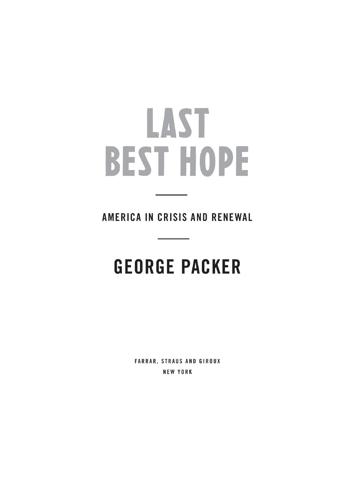
Last Best Hope: America in Crisis and Renewal
by
George Packer
Published 14 Jun 2021
The tensions within each country will persist even as the cold civil war between them rages on. But the election, forcing a binary choice, temporarily consolidated the narratives on either side of the divide. In one country, cities are magnets for talent and ambition, higher education is the key to success in the information economy, diversity is a sign of progress, and Joe Biden is the legitimate president. In the other, the home fires of American greatness burn in aging towns and rural areas, the good jobs are in manufacturing, farming, and fuel extraction, diversity is shredding the national fabric, and Donald Trump was robbed.
…
The first step to renewing a democratic press is for its owners, practitioners, and readers to find the moral courage to think for themselves and stand on their own if necessary, even if the cost is high. But the changes also have to be structural, because technology and finance have driven the media into an economy of scarcity amid plenty. The transformation of the information economy and the effect on our minds are so radical that we’re whipsawed almost minute to minute by immense changes without understanding their meaning. From its beginning, Silicon Valley combined the narrative of Free America (no regulation) with that of Smart America (meritocracy with an idealistic global mission).
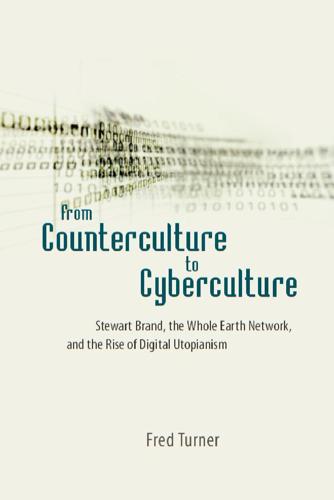
From Counterculture to Cyberculture: Stewart Brand, the Whole Earth Network, and the Rise of Digital Utopianism
by
Fred Turner
Published 31 Aug 2006
As Savio’s speech suggested, the students of the Free Speech Movement were afraid not only of becoming victims of a social machine, but also of becoming fuel for the engines of economic production. In the 1990s, the computer once again served as a metaphor for the organization of production and labor, but this time that link promised to liberate both individuals and society. How was it that the informational economy came to be seen not as an oppressive force, but as a site of political and cultural change? In order to answer this question, we need to revisit the research world out of which the computational metaphor arose in the 1940s and 1950s and the countercultural world of the 1960s. Contrary to the perceptions of many in the counterculture in the 1960s and of many scholars since, the two worlds had a great deal in common.
…
Thus, the rhetoric of community provided the ideological cover necessary to transform a potentially stark and single-minded market transaction into a complex, multidimensional act. To the extent that they could describe themselves as the givers and receivers of informational gifts within a community, members of the WELL could simultaneously recognize and ignore the degree to which they were also exchanging financially valuable goods within a newly informational economy. As a result, they could increase their own social capital and their access to the informational and social resources on which their work off-line depended. On the WELL, this heterarchical form of information work came together with the experience of interpersonal intimacy. Under the rubric of a New Communalist vision of a community of consciousness, this blend of emotional interconnection and informational labor gave rise to one of the most influential frames with which we have since understood the Internet: virtual community.
…
Richard Barbrook has argued that the gift-economy paradigm grew out of the New Left and has become a standard feature of the working world online. The history of the Whole Earth network suggests that in America, at least, it was the New Communalist movement rather than the New Left that drove the rise of the gift-economy paradigm. But Barbrook’s work remains an early and influential account of the gift economy’s role in the information economy. See Barbrook, “Hi-Tech Gift Economy.” 44. Mauss and Halls, The Gift. For a critique and extension of Mauss’s arguments, see Lévi-Strauss, “Selections from Introduction to the Work of Marcel Mauss.” See also Bourdieu, “Selections from The Logic of Practice”; and Bourdieu, “Marginalia.” For a broad-brush analysis of gift economies, see Cheal, Gift Economy.
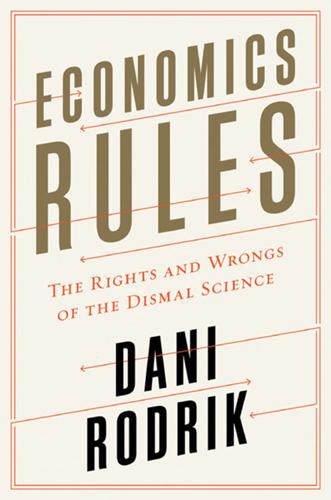
Economics Rules: The Rights and Wrongs of the Dismal Science
by
Dani Rodrik
Published 12 Oct 2015
Some branches of economics, such as mathematical economics, have come to look more like applied mathematics than like any kind of social science. Their reference point has become other mathematical models instead of the real world. The abstract of one paper in the field opens with this sentence: “We establish new characterizations of Walrasian expectations equilibria based on the veto mechanism in the framework of differential information economies with a complete finite measure space of agents.”16 One of the profession’s leading, and most mathematically oriented, journals (Econometrica) imposed a moratorium at one point on “social choice” theory—abstract models of voting mechanisms—because papers in the field had become mathematically so esoteric and divorced from actual politics.17 Before we judge such work too harshly, it is worth noting that some of the most useful applications in economics have come out of highly mathematical, and what to outsiders would surely seem abstruse, models.
…
Schelling, The Strategy of Conflict (Cambridge, MA: Harvard University Press, 1960); Schelling, Micromotives and Macrobehavior (New York: W. W. Norton, 1978). 15. Diego Gambetta, “‘Claro!’ An Essay on Discursive Machismo,” in Deliberative Democracy, ed. Jon Elster (Cambridge: Cambridge University Press, 1998), 24. 16. Marialaura Pesce, “The Veto Mechanism in Atomic Differential Information Economies,” Journal of Mathematical Economics 53 (2014): 33–45. 17. Jon Elster, Explaining Social Behavior: More Nuts and Bolts for the Social Sciences (Cambridge: Cambridge University Press, 2007), 461. 18. Golden Goose Award, “Of Geese and Game Theory: Auctions, Airwaves—and Applications,” Social Science Space, July 17, 2014, http://www.socialsciencespace.com/2014/07/of-geese-and-game-theory-auctions-airwaves-and-applications. 19.
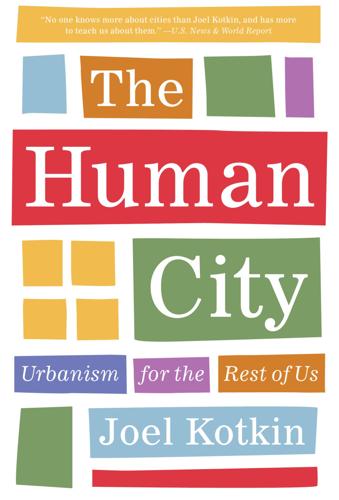
The Human City: Urbanism for the Rest of Us
by
Joel Kotkin
Published 11 Apr 2016
Today, the city has fewer than 200,000 people working in industry; the loss of these firms, Braudel notes, left “a gap in the heart of New York which will never be filled.”84 Yet if the industrial heart was emptied, New York was not without recourse. The old industry base was supplanted by the “information economy,” which as early as 1982 already accounted for the majority of Manhattan’s jobs. So while plants were slowly going dark throughout the city, new office towers were rising over Gotham. In many ways, this transformation built on New York’s early history of being, first and foremost, a trading and port city.
…
See also United Kingdom attitude toward immigrants in, 98 crime rates in, 167 dispersion in, 148–149 future growth in, 197 housing shortage in, 174–175 industrial-era population of, 115 millennial living preferences in, 172 movement of city center populations in, 165 secularism in, 126 urban growth in, 26–27 war against suburbia in, 145–146 Great Depression, 150 Great Recession, 151, 152 Greece, 106, 113, 119 Greek city-states, 23, 56 Greenbelt, Maryland, 30 Green belt towns, 176–177 Greendale, Wisconsin, 30 Greene, Jeff, 45 Greenhills, Ohio, 30 Greenhouse gas (GHG) emissions, 10–11, 190, 283n159 Green Metropolis (Owen), 10 Greenwich Village, 15–16 Gruen, Victor, 20 Gunther, John, 93 Gutnov, Alexei, 34–35 H Hais, Michael, 175 Hall, Peter, 2, 81, 92, 94 Hamburg, 118, 154 Hangzhou, 54 Hanoi, 77 Harris, Richard, 162 Hartford, 183 Hartley, Kris, 74 Haussmann, Georges-Eugène, 59, 116 Health conditions, 57–59, 65–67, 192 Heartfield, James, 94, 170, 197 Heat island effect, 190–191 High-income metropolitan areas, 183 High-rise cities, 7–8 Hirsch, Fred, 178 Hitchens, Peter, 137–138 Hitler, Adolf, 8, 29, 35 Ho, Peter, 108 Ho Chi Minh City, 54 Home-based economy, 187–189 “Home,” notion of, 47 Homeownership, 153, 154 among millennials, 172, 173 in industrial cities, 28 and net worth, 198 as reason for dispersion, 149–153 “rentership society” vs., 160 and social cohesion, 163 Hong Kong aging population in, 122 childlessness in, 16 colonial influence in, 87 emigration from, 16 family-friendly policies in, 195 family ties in, 114 foreign-born population of, 97 foreign housing investments in, 101 as global city, 84, 90, 91–92, 274n8 global influence of, 81, 82 housing prices in, 41, 134 inequality in, 102 as “necessary” city, 83 post-familialism in, 119 SARS epidemic in, 66 Horan, Thomas, 188 House sizes, 179 Housing affordability density and, 11–12 for families, 18 for millennials, 172, 173 and move to suburbs, 153–154 for next generation, 198–199 in post-familial cities, 133–134 and rise in fertility rates, 195 and shortage of housing, 173–174 Housing bubble, 151, 152 Housing inflation, 100–102 Housing options, future, 196–198 Housing production, 173, 174 Housing shortage, 173–175 Houston advantages in suburbs of, 157 bayou park system in, 46 density of, 183 family households in, 144 foreign-born population of, 98 global influence of, 82 housing production in, 174 as “necessary” city, 83 suburban growth around, 141–143 Howard, Ebenezer, 153, 176, 200 Howard, Sir Edward, 29 Human city, 5, 45–47 as approach to dispersion, 167–168 focus on choices in, 167–168 global cities as, 83 Human connectivity, 85–87 Human scale, 7, 12–14, 112, 200 Huxley, Aldous, 139 Hyderabad, 54, 68, 74 I Identity, 103–106, 108–110 Immigrants to global cities, 86–87, 97–100 to maintain workforce, 169 to post-familial cities, 136–139 in suburbs, 157–159 Imperial cities, 23–25 India, 49–50 carbon emissions in, 190 colonial domination in, 61 declining growth rate in, 55 growth of spaces in, 197–198 housing investors from, 100 housing shortage in, 175 infrastructure lack in, 68 megacities in, 54, 73–75 poverty in, 65 shift of business to rural areas in, 74 Singaporean immigrants from, 99 tech employment in, 185 telecommuters in, 188 villages in, 75 Individualism, 131–132 Indonesia, 90, 124 Industrial cities, 26–28, 58–59 Inequality geography of, 39–42 Gini index, 287n131 in global cities, 95–96, 102–103 income, 156–157 (See also Poverty) in suburbs, 159–160 Information economy, 38, 42 Infrastructure, 67–70, 84–85 Inherited wealth, 96–97 Innovative businesses, 8–9 “In Praise of Slums,” 71 International Congresses of Modern Architecture, 146 Iran, 126 Irvine, California, 166, 177, 184 Irving, Texas, 184 Islam, Nazrul, 62 Islip, New York, 177 Istanbul (Constantinople), 12–13, 52, 85, 199 Italian Renaissance, 114 Italy, 98, 119, 133, 137 Iwasawa, Miho, 129 J Jackson, Kenneth, 156 Jackson Hole, 188 Jacobs, Jane, 2, 15, 21, 31, 112, 146, 178 Jakarta (Batavia), 53, 55, 60, 63–64, 69 Japan, 52 aging population in, 122–124 colonialism by, 61 dispersion in, 153–154 family-friendly policies in, 195 housing affordability in, 133 inequality in, 95 infrastructure of, 67 post-familialism in, 119, 121, 128–129, 131 renovation of cities in, 60 secularism in, 126 women in workforce in, 135 Japan (Jolivet), 119 Jeddah, Saudi Arabia, 87 Jerusalem, 21–22 Job decentralization, 186–187 Johannesburg-East Rand, 54 Jolivet, Muriel, 119 Jones, Emrys, 25, 76, 82 Jones, Gavin, 120, 130, 133, 135 Josey, Alex, 90, 91 K Kaliski, John, 20, 199 Kandell, Jonathan, 55 Kaneko, Ryuichi, 129 Karachi, Pakistan, 52, 53, 55, 270n18 Kasarda, John, 85 Katz, Peter, 166, 171 Kaufmann, Eric, 125 Khaldūn, Ibn, 58 Khrushchev, Nikita, 34 Kinshasa (Leopoldville), 60, 71 Kirby, Andrew, 147 Kirshenblatt-Gimblett, Barbara, 20 Klinenberg, Eric, 128, 131, 132 Knox, Paul, 83, 147, 163 Kolkata (Calcutta), 54, 60, 64, 69 Kolko, Jed, 152, 172 Kolson, Kenneth, 44 Koolhaas, Rem, 103, 105 Korea, 123, 172, 185 Kothari, Priya, 142–143 Krier, Léon, 161 Krugman, Paul, 151 Kumar, R.
…
See also Everyday life Lifestyle centers, 177 Liotta, Peter, 53 Lithuania, 138 Liu, Eveleen, 166 Living well, 5, 6 Llewellyn Park, New Jersey, 176 Locational preferences, 38 Logan, John, 39 London aging population in, 130 as “connected” city, 85 dispersion from, 28–29 educational gap in, 166 foreign-born population of, 97 foreign housing investments in, 100, 101 as global city, 87–89, 97, 274n8 global influence of, 82 growth of, 51 homogenization of, 106 housing prices in, 41 as new consumer city, 37 in 19th century, 28 objection to densification in, 13, 199 population of, 51, 52, 115, 155 post-familialism in, 117–118 slums in, 58 suburbs of, 143, 155 as wealthy city, 52 working classes in, 27 Longman, Phillip, 137 Los Angeles black children living in, 156 commuting time in, 68 as “connected” city, 85 environmental wastefulness of, 11 as federation of communities, 176 foreign-born population of, 98 foreign housing investments in, 101 global influence of, 82 growth of, 176 and housing bubble, 134, 152 income spent on rent in, 174 inequality in, 95–96 as luxury-oriented city, 40 migration to, 173 as “necessary” city, 83 opposition to increased density in, 13 pollution in, 196 population of, 52 post-familialism in, 128 suburban inequality around, 159 as wealthy city, 52 Louv, Richard, 192 Luanda, 54 Lutz, Wolfgang, 130, 136, 195 “Luxurious extinction,” 144–145 Luxury-oriented cities, 39–40, 43–44 Lynd, Robert, 151 M Macau, 183 Madison, 9 Madrid, 154–155 Mahmoudi, Dillon, 42 Making Smart Growth work (Porter), 165 Malaysia, 85, 90 Malthusian urbanism, 192–194 Manchester, 27, 115 Manhattan asset-backed wealth in, 96 children living in, 15, 16 and densification proposal, 13 high-density development in, 146–147 inequality in, 97 information economy in, 38 as Le Corbusier’s inspiration, 7 move to Brooklyn from, 177 neighborhoods of, 142 single households in, 117, 139 Manila, 55, 63–64, 66, 69 Marin County, California, 178 Markham (Canada), 158 Marriage, 129–130, 180 Martelle, Scott, 32 Marx, Karl, 25, 51 Master-planned communities, 30–31, 176–177 Maya, 167 Megacities, 6, 49–78 alternatives to, 72–74 ancient, 56–58 colonial legacy in, 60–61 density decline in, 14 dispersion in, 155 early industrial cities, 58–59 health conditions in, 65–67 and humanization of urbanization, 74–76 infrastructure problems in, 67–70 in late 19th century Europe, 59–60 life expectancy in, 65 limits of density in, 76–78 negative conditions in, 61–65 and prosperity, 54–56 quality of life in, 65–67 rise of, 50–54 slums in, 69–72 Mehta, Suketu, 55, 56, 68 Melaka, Malaysia, 81 Melbourne, 98, 158–159 Merkel, Angela, 138 Metropolitan areas, 263n5, 269n5, 274n8 Mexico, 53, 73, 139 Mexico City appeal of, 22 colonialism in, 60 commuting time in, 68 employment in, 64 as megacity, 51 middle class in, 63 organic growth of, 73 pattern of building in, 55–56 share of national GDP, 55 tech employment in, 185 urbanization in, 53 water system in, 68–69 Miami, 97–98, 100, 134, 152 Michigan, 188 Micro-units/micro-apartments, 12, 132–133 Middle class, 64 detached housing of, 160 encouraging growth of, 194 forces undermining, 93–97 global cities and, 92–97 homeownership and, 153 in Mexico City, 63 move to periphery by, 116 and shift to suburbs, 150 smart growth vs. interests of, 44 Middle East, 98, 100, 138 Migration, 62–63, 76, 77, 85, 99, 136–139 Milan, 115, 137, 154 Milch, Michael, 111 Mildner, Gerard, 11 Millennials, 170–176, 179–180, 189 Mills, Edwin, 59–60 Milton Keynes, 149, 163, 197 Minneapolis, 156–157 Miskel, James, 53 Mississauga (Canada), 158 Modarres, Ali, 2, 62, 64–65 Modi, Narendra, 76 Molotch, Harvey, 39 Montreal, 117 Moral order, 22 More developed world, 280n58 Mori, Minoru, 70 Morocco, 139 Morrill, Richard, 159 Morrison, Herbert, 148 Moscow, 33, 34, 52, 82, 194–195 Multigenerational households, 182–183 Multiracial suburbs, 156–159 Mumbai, 49–50 colonial influence in, 87 colonialism in, 60 employment in, 64 housing conditions in, 69–70 infrastructure lack in, 68, 69 life expectancy in, 65 living conditions in, 62, 64, 75 population of, 54, 170 tech employment in, 185 Mumford, Lewis, 2 on ancient Rome, 57 on civic identity, 21 on Radburn, 30 on small units, 200–201 on suburbia, 160 on technical prowess, 200 Munich, 118 Murray, Charles, 131 Myanmar, 124 N Nagoya, 52, 153, 176 Nantucket, 188 Naperville, Illinois, 177 Napoleon III, 8, 29, 59 Nature, connecting with, 46, 191–192 Navi Mumbai, 185 Nazis, 35 “Necessary” cities, 83–84 Nelson, Ted, 141 Netherlands attitude toward immigrants in, 98 dispersion of economic activities in, 185 focus on family in, 113–114 immigrants to, 98 producer cities in, 25–26 New consumer cities, 36–42 New Deal, 30, 150, 176 New Jersey, 178 New Orleans, 32, 107, 144–145 News Corp, 130 New social environment, 132 New Urbanism, 7, 151, 161, 164 New urban paradigm, 19, 42–43.
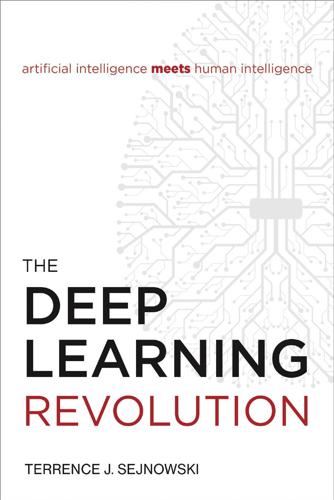
The Deep Learning Revolution (The MIT Press)
by
Terrence J. Sejnowski
Published 27 Sep 2018
This investment is still paying off today since microelectronics and advanced materials are the among the few industries where the United States is still competitive. Thus, China’s big investment in the AI race could give it the lead in several key industries well into the twenty-first century. This is our wakeup call. AI is accelerating the “intangible” information economy. The output of an economy is measured by its Gross Domestic Product (GDP), the total value of all goods and services in dollars. This measure was designed for an industrial economy whose primary products and services were tangible, such as food, automobiles and medical care. However, more and more of the value of an information company is not measured by such products.
…
Scientific instruments, from telescopes to microscopes, are collecting larger and larger data sets that are being analyzed with machine learning. The National Security Agency uses machine learning to sift through all of the data it has been collecting everywhere. The economy is going digital, and programming skills are in great demand at many companies. As the world shifts from an industrial to an information economy, education and job training will have to adapt. This already is having a profound impact on the world. Information Theory In 1948, Claude Shannon (figure 15.1) at the AT&T Bell Laboratories in Murray Hill, New Jersey, proposed a remarkably simple but subtle theory for information to understand signal transmission through noisy phone lines.1 Shannon’s theory drove the digital communications revolution that gave rise to cell phones, digital television, and the Internet.
…
See Super-Turing computation Hyvarinen, Apo, 295n5, 296n10 IBM, 143, 171–172 Identity, the future of, 173–174 Identity database, digital, 173–174 Identity theft, 173 Independent component analysis (ICA), 81–85, 89, 296nn14–15 applied to EEG recordings from scalp, 66, 87f applied to fMRI data, 86, 88f beyond, 89–90 ICA filters derived from natural images, 85f overview and nature of, 82, 82f, 84b, 85, 85f vs. principal components analysis, 84b Inferotemporal cortex, 130 Infomax ICA algorithm, 85–86, 295n3 Infomax learning principle, general, 82 Information, units of, 219–220 Information economy, intangible, 193 Information explosion, 230–231 Information-theoretic learning algorithm. See Independent component analysis Information theory, 219–220 Institute for Advanced Study, Princeton, 200, 259 Index Institute for Neural Computation at UCSD, 175, 182, 272 Integrated circuits. See Chips Intelligence evolution of, 263–264 fluid vs. crystallized, 20 general, 257 Intelligence tests (IQ tests), 21 IQ and Human Intelligence (Mackintosh), 277 Jacobs, Irwin, 222 Jennings, Ken, 171 Jeopardy!
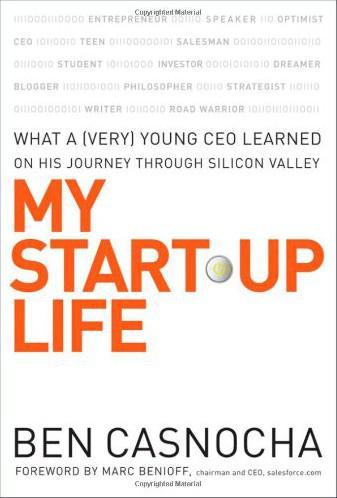
My Start-Up Life: What A
by
Ben Casnocha
and
Marc Benioff
Published 7 May 2007
My Start-Up Life is not a how-to that will delineate how to create a successful business like Comcate with a few cookie-cutter instructions. This narrative will, however, reveal everything you xiv FOREWORD need to know as you begin your entrepreneurial journey. You’ll learn about everything from writing a business email to dealing with offshore contractors to the dynamics of an information economy. You’ll learn about the risks Ben took: the ones that paid off (offering early customers a discount) and the ones that didn’t (prematurely hiring an outsider as CEO). Most of all, you will enjoy this provocative, honest, and fun romp through an entrepreneurial achievement, which will leave you determined to embark on your own enterprising endeavor—and inspired to find your own way to make a difference.
…
On the business side, I learned the difference between a sole proprietorship and a corporation. I learned about client relations and marketing. I learned how to write a business letter and how to make a business phone call. On the technology side, I learned about dealing with offshore contractors. I learned about the wonders of a “flat” information economy, and how even someone as young and inexperienced as I could partake in it. It all boiled down to one revelation: While I had learned a lot through ComplainandResolve, I was ready to move on. To what, I didn’t know, but something big, something world-changing. . . . Brain Trust: Take Responsibility BY HEIDI ROIZEN Three weeks into my junior year in college, my boyfriend was killed in a plane crash.

Fewer, Better Things: The Hidden Wisdom of Objects
by
Glenn Adamson
Published 6 Aug 2018
The material object serves as a bridge between these two perspectives. One of the most fascinating aspects of the material landscape is the way everything in it is interwoven, in ways that are just as profound and subtle as the “networked” realm of the digital. When we overemphasize the promise of the digital information economy, we not only express an irrational preference for the new over the old, we also miss the physical know-how that binds our society together. The cultural habit of marginalizing this kind of expertise has deep historical roots and has always been related to class condescension. I believe that by challenging this legacy and building respect for material intelligence across our culture, we can form a bridge that emphasizes shared experience: a greater awareness of the things we hold in common.
…
In order to work the hard shells, he was forced to make his own tools, turning discarded blades into files and adapting bicycle spokes for the purpose of punching holes. Having mastered the newly invented craft, he went on to teach it to others, earning the local nickname “cleverest of the clever.” Within a short time the island was home to a thriving cottage industry of coconut carvers. These craftsmen were able to build an informal economy for their wares by selling them to tourists from Europe and from mainland Africa, who in turn happily brought the objects home as souvenirs, under the assumption that they were helping sustain a centuries-old craft tradition.2 The story of clever Murage is clearly an extraordinary case, as his innovations began more or less from scratch.
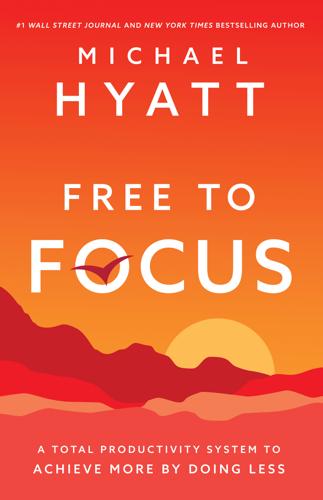
Free to Focus: A Total Productivity System to Achieve More by Doing Less
by
Michael Hyatt
Published 8 Apr 2019
It’s almost impossible to accomplish anything significant when you’re racing through an endless litany of tasks and emergencies. And yet this is how many of us spend our days, weeks, months, years—sometimes, our entire lives. We should know better by now. We’ve been doing business in the so-called Information Economy for decades. In 1969 and 1970 Johns Hopkins University and the Brookings Institution sponsored a series of conferences on the impact of information technology. One speaker, Herbert Simon, was a Carnegie Mellon professor of computer science and psychology who later won a Nobel for his work in economics.
…
See smartphone Center for Creative Leadership, 15 Centers for Disease Control and Prevention (CDC), 74 Chesterfield, Lord, 162, 180 Churchill, Winston, 71, 81–82 circumstances, 61 clarifying one’s objectives, 225 Clayton, Russell, 75–76 clearing the decks, 224–25 Cloud, Henry, 77 clutter, 218–19 commitments, 96–99 elimination of, 108–10 to free time, 111 confusion, 193 connect, 195 connections, 77–79 Consolidate, 21, 161–81 contribution, 48 control, taking vs. surrendering, 196 coordination, 168–69 Costolo, Dick, 81 counterproductive productivity, 17–18 Covey, Stephen, 191 coworkers, 78 “cozy rut,” 99 creativity and changing environment, 72 through disengagement, 37 freeing up, 117 and play, 79 Currey, Mason, 117 Cut, 19–21, 89–158, 227 Daily Big 3, 196–202, 204, 220, 226 Daily Rituals Worksheet, 135 decluttering workspace, 218–19 deep work, 33, 52, 164, 197, 210, 215, 218 deferring, 190 delayed communication, 208–9 Delegate, 21, 137–57, 168 levels of, 148, 149–56 and mentoring, 153 process, 145–49 as smart and organizationally sound, 140 Delegation Hierarchy, 141–46 Designate, 21, 183–204 Desire Zone, 49, 51–53, 55–59, 97, 98, 101, 140, 144–45, 146, 199–201 developing potential, 61 development, 168, 169–70 Developmental Zone, 53–55 digital technology, 14–16 Dillard, Annie, 161 disappointing people, 107–8 discipline, 59–60 Disinterest Zone, 49–50, 55, 100, 116, 143–44, 146 disruptions, minimizing of, 221 Distraction Economy, 13–14, 185, 206, 227 distractions, 35, 212–15, 226 Distraction Zone, 50–51, 55, 99, 100, 144, 146 doing nothing from time to time, 36–37 Doland, Erin, 218 dopamine, 209, 215 downhill tasks, 213–15 drink, 73 Drudgery Zone, 48–49, 50, 55, 58, 100, 109, 116, 142–43, 144 eating, 72–74, 195 Edison, Thomas, 71 efficiency, 27–30 Eisenhower, Dwight, 81 Eisenhower Priority Matrix, 191–94, 199 Eisner, Michael, 69 Eliminate, 21, 91–113, 168, 190 email, 13, 15–16, 29, 85, 120, 163, 179 filtering software, 130–31 signature feature, 124 templates, 123–24 energy, 74, 86–87 energy drinks, 73 energy flexing, 68, 87, 101 energy management, 78 energy producers and drains, 78 environment, taking charge of, 218 Ericsson, Anders, 54 Evaluate, 19, 43–64, 87 evening ritual, 119 Evernote, 127 exercise, 74–77 exhaustion, 66–67 Fabritius, Friederike, 208, 220 Facebook, 71, 78, 213 factory workers, 28, 38 fake work, 14, 99, 214 family and friends, time with, 35–36, 41, 170 fear of missing out, 193 feedback, 149 focus, 33–35, 180, 206 Focus@Will, 217 Focus Defense Worksheet, 221 focus tactics, 215–20 food, 72 Ford, Henry and Edsel, 38 Ford Motors, 38–40 Formulate, 19, 25–42, 87 freedom, 41 Freedom (app), 215–16 Freedom Compass, 45, 55–58, 64, 96–97, 195, 226 freedom (productivity objective), 33–37 freedom to be present, 35–36 freedom to be spontaneous, 36 freedom to do nothing, 36–37 freedom to focus, 33–35 free time, commitment to, 111 frenetic schedules, 84 Fried, Jason, 164 friendships, time for, 79 Front Stage, 166, 167–68, 171, 173, 176, 178–79, 197 frustration tolerance, 219–20 gardening, 97 Gates, Bill, 81 Gazzaley, Adam, 213 Gernsback, Hugo, 205, 212 Google Voice number, 210 Grant, Ulysses S., 81 guilt, 193 Hagemann, Hans, 208, 220 Hallowell, Edward, 215 Hansen, Morten T., 67 Hardy, Benjamin, 218 Hastings, Reed, 71 health, 228 Heinemeier, David, 164 hobbies, 41, 79, 228 Holland, Barbara, 71 Ideal Week, 119, 162, 172–81, 226 Ideal Week template, 182 I Love Lucy (TV program), 25–26 impairment, 70 Information Economy, 13 innovation, and changing environment, 72 instant communication, 207–11 instant-gratification culture, 84 interruptions, 207–11, 226 Isolator, 205–6, 212 Jobs, Steve, 111 Johnson, Paul, 81–82 Jones, Charlie “Tremendous”, 50 journaling, 220 karoshi (death by overwork), 32 Kennedy, John F., 71 King, Stephen, 223 knowledge workers, 28 Koch, Jim, 200, 202 Lewis, Penelope A., 70 liberating truths, 59–63 lifestyle objectives, 38 limiting beliefs, 59–63 “loss of separation,” 184 lunch, 72 MacArthur, Douglas, 71 McCartney, Paul, 99 McKeown, Greg, 183 macro-processing software, 131–32 maintenance, 168, 169 margin, 33, 36, 52, 111, 157, 224, 225, 226 meals, and building relationships, 74 meetings, 197 MegaBatching, 162, 163–66, 172, 180–81 mental health, 83 mentoring, 153 Michel, Alexandra, 65–66 Michelangelo, 21, 100 micro-breaks, 82–83 micromanagers, 149 Miller, Megan Hyatt, 54 mindset, 54 Minor, Dylan, 78 morning ritual, 119 Mortimer, Ian, 223 movement (exercise), 74–77, 195 multitasking, 161–62, 212 music, 217 musicians, 46 Musk, Elon, 67–68 Naish, John, 161, 212 naps, 71 Nashville, 46 natural foods, 73 nature, 82–83 necessary routines, 147–48 Netflix, 71 Newport, Cal, 161–62, 164 Not-to-Do List, 93, 99–100, 113 Nozbe, 202 nutrition, 73 nutritional supplement protocol, 73 offloading tasks, 138, 225–26 Off Stage, 166, 170, 173, 176, 195 OneNote, 127 Opipari, Ben, 75 outdoors, 82–83 overgrowth.
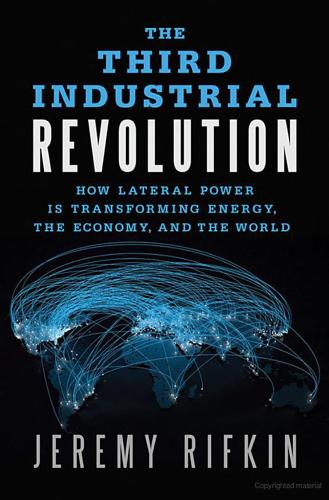
The Third Industrial Revolution: How Lateral Power Is Transforming Energy, the Economy, and the World
by
Jeremy Rifkin
Published 27 Sep 2011
The issue, then, becomes more of how we reenvision what we mean by work rather than just how we retrain the workforce. There are four areas where people can engage in work: the market, the government, the informal economy, and the civil society. Market employment, however, is going to continue to shrink with the introduction of intelligent technology systems. Governments around the world are also culling their work-forces and introducing intelligent technology in areas as diverse as tax collection and military service. The informal economy, which includes household production, barter, and at the extreme end, black-market and criminal economic activity, is also likely to diminish as traditional economies transition into high-tech societies.
…
The Third Industrial Revolution offers the prospect, at least, that the poorest countries on Earth, who were virtually left out of both the First and Second Industrial Revolutions, could leapfrog into the new era of distributed capitalism over the course of the next half century. Still, no one, myself included, doubts the enormity of the challenge ahead. Assuring that 40 percent of the human race reaches the level of material comfort necessary to free themselves from the shackles of backbreaking and often mindless toil in the marketplace and informal economy, so they can be free to engage in deep play in the pursuit of social capital is a daunting task—made all the more difficult by the need to reorganize economic life to mitigate industrially induced climate change. Yet, for the first time in history, we are close enough to at least imagine such a possibility, which makes me guardedly hopeful that we might succeed.
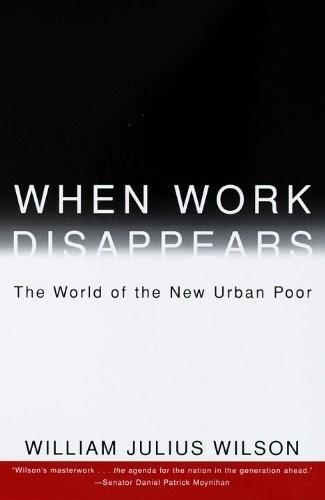
When Work Disappears: The World of the New Urban Poor
by
William Julius Wilson
Published 1 Jan 1996
Americans in more affluent areas have jobs that offer fringe benefits; they are accustomed to health insurance that covers paid sick leave and medical care. They do not live in neighborhoods where attempts at normal child-rearing are constantly undermined by social forces that interfere with healthy child development. And their families’ prospects for survival do not require at least some participation in the informal economy (that is, an economy in which income is unreported and therefore not taxable). It is just as indefensible to treat inner-city residents as superheroes who are able to overcome racist oppression as it is to view them as helpless victims. We should, however, appreciate the range of choices, including choices representing cultural influences, that are available to inner-city residents who live under constraints that most people in the larger society do not experience.
…
Among the inner-city mothers who were not receiving AFDC, those who lived in a coresidential household and received informal child care had a very high (90 percent) probability of labor-force activity. On the other hand, those who maintain sole-adult households and did not receive informal child care had a much reduced (60 percent) probability of working. Of the 12 percent of inner-city women on AFDC who candidly reported that they worked at least part-time—probably in the informal economy—those who lived in a coresidential household and received informal child care were more than five times as likely to work as were those who lived in single households and did not receive informal child care. There are many factors involved in the precipitous decline in marriage rates and the sharp rise in single-parent families.
…
The absence of effective informal job networks and the frequency of many illegal activities increases nonmainstream behavior such as hustling. As Sharon Hicks-Bartlett, another member of the UPFLS research team, points out, “Hustling is making money by doing whatever is necessary to survive or simply make ends meet. It can be legal or extra-legal work and may transpire in the formal or informal economy. While both men and women hustle, men are more conspicuous in the illegal arena of hustling.” In a review of the research literature on the experiences of black men in the labor market, Philip Moss and Christopher Tilly point out that criminal activity in urban areas has become more attractive because of the disappearance of legitimate jobs.
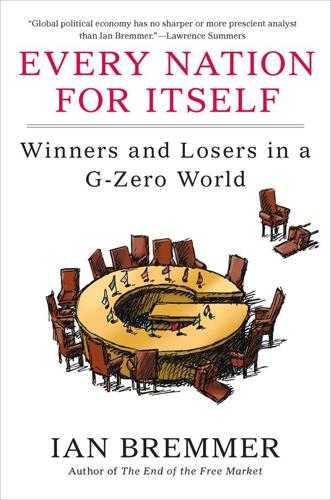
Every Nation for Itself: Winners and Losers in a G-Zero World
by
Ian Bremmer
Published 30 Apr 2012
That kind of breakdown in Pakistan or Russia is quite another. Then there is the subtler version of this issue. In countries like India and Brazil, large populations of the urban poor living in largely ungoverned enclaves might simply provide their own governance, neighborhood by neighborhood, with an informal economy that operates under its own rules. This is a phenomenon already developing in some of the world’s most important emerging cities.15 Call this larger scenario the G-Subzero. As leadership weakens and power fragments inside individual countries, control is divided between local and central leaders, and competition arises among power brokers within individual states.
…
Political concessions and a shift in rhetoric earned a visit from Secretary of State Hillary Clinton. It remains to be seen if Myanmar will follow through, but even Myanmar’s leaders recognize that a single powerful friend can’t beat the power of the pivot. * Given the importance of drug trafficking for organized crime and the flow of drugs across the border, even Mexico’s informal economy is heavily dependent on U.S. demand. * They warned, however, that debt was the tie that bound the two together and later argued that the financial crisis had killed what had always been an unnatural alliance. * That said, this period featured several smaller wars and revolutions. * More than a million Taiwanese now live on the mainland
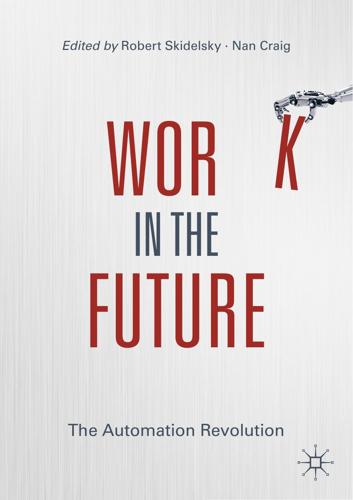
Work in the Future The Automation Revolution-Palgrave MacMillan (2019)
by
Robert Skidelsky Nan Craig
Published 15 Mar 2020
Lower and lower-middle classes in the global South live in income- pooling family households; in many cases they have a trans-regional character, including family members in the countryside (eventually working the land), family members in local towns (eventually working as factory-workers, in administration or in the informal economy), as well as family members who emigrate to work abroad. This description may serve as a prototype which is adapted by each family in a specific way. Occupations and responsibilities change along the life-cycle and often single family members get lost, not contributing to the common household anymore.
…
Strong, 99 Artisans, 12, 29, 38, 74, 93, 94 Attitudes to work, 1, 4, 53–62, 73, 75 Aubrey, 184 Austria, 68, 196 Authenticity, 116 Authority, 120, 165 Automation restrictions on, 95 speed of, 21, 137 task automation vs job automation, 92, 93, 110, 141 Autonomous cars, 114, 115, 118 Autor, David, 59, 126 Autor Levy Murnane (ALM) hypothesis, 126–128, 131 B Bailey, Olivia, 180 Bairoch, Paul, 44, 46 Banking (automation of ), 87, 147 Bargaining, 68, 70, 177, 181, 182, 184, 185 Bastani, Aaron, 179n2 Beckert, Sven, 44 Berger, Thor, 95 Bessen, James, 4 Blumenbach, Wenzel, 41 Bosch, Gerhard, 179 Bostrom, Nick, 112, 113 Bourgeois household, 39 Brain and AI, 113 analagous to computer, 100, 103, 104, 115 Brown, William, 185 Bullshit jobs psychological effects, 162 Bureaucracy, 169 C Capitalism, 12, 17, 28, 53, 57, 58, 61, 75, 135, 159 Capper, Phillip, 127, 128 Care work, 3, 48, 75, 117, 178 Carlyle, Thomas, 28 Catholic, 74 Central Europe, 38, 40 Centralisation, 69, 175, 176 Chalmers, David, 103 Chatbots, 91 Chen, Chinchih, 95 Chess (and AI), 112 China, 95, 135 Christian (view of work), 74, 75, 161, 166 Clark, A, 60 Class, 13–15, 17, 30, 39, 43, 46, 47, 118, 159, 160, 162, 165, 172 Classical economics, 54, 55 Climate change, 30, 198 Cloud computing, 139, 140 Coase, Ronald, 70 Coats, David, 184, 185 Collective bargaining, 68, 181, 182, 185 Communism, 13, 57, 58, 61 Competition, 12, 16–18, 39, 91, 94, 112, 115, 119, 139, 140, 152, 199 Index Computational Creativity, 109, 115, 120, 121 Computer aided design (CAD), 34, 35 Computer programming, 100, 116 Computer revolution, 90, 94, 95, 99 Computers, 20, 34, 84, 86, 90, 92–94, 99–107, 110, 111, 115, 116, 120, 131, 134, 146, 147, 151, 197 Consciousness of AI, 110–111 the hard problem, 103 of humans, 105 objective vs. subjective, 102, 103 Consumerism/consumer society, 30, 74, 161, 194 Consumption, 3, 5, 12, 13, 16, 19, 38, 41, 56, 59, 61, 62, 66, 85, 88, 166, 176, 192, 194, 197, 199 Contested concepts, 120 Cooperatives, 40, 61, 69 Craftsmanship, 3, 11, 35, 36, 39, 194 Craig, Nan, 4, 179 Creative work, 3, 48, 74 Creativity, 3, 5, 57, 91, 105–107, 110, 120, 121, 193–195 D D’Arcy, Conor, 177 Data, 2, 84, 92, 107, 129, 130, 137–140, 146, 149, 150, 153, 178, 191, 197, 198 Davies, W.H., 31 De Spiegelaere, Stan, 181, 183 205 Deep Blue, 91, 112, 129, 130 Dekker, Fabian, 180 Deliveroo, 136 Demand effects on automation, 4, 21, 86 elasticity, 86 of work, 4, 13, 15, 16, 76, 158, 164, 180, 199 Democracy, 28 Denmark, 68, 177, 180 Dennett, Daniel, 100, 102, 103 Developing countries, 145 Digital economy, 5, 19, 125–132, 140 Digital revolution, 70 Division of labour, 11, 35, 38, 43, 44, 55 Donkin, Richard, 3 Dosi, Giovanni, 192, 195 Do what you love, 73, 74, 76 Dreyfus, Herbert, 100 E Economics, 1, 4, 5, 7, 10, 12, 14, 15, 18, 29, 30, 53–62 Economic view of work, 53–62 Education, 41, 42, 48, 67–69, 126, 131, 169, 171, 196, 197 Efficiency, 5, 16, 75, 159, 168, 184 Empathy, 106, 107 Employment law, 68 rates, 67, 68, 70 English East India Company, 44 Entrepreneurs, 29, 70, 77, 190, 192, 197, 199 Environment, 25, 31, 56, 70, 87, 91, 109, 111, 113, 120, 178, 198 206 Index Equality of opportunity, 69 of outcome, 69 social, 163 Ethics of AI, 6, 110, 119, 145–153, 197 stagnation of, 151–152 of work, 28 Exit, 69 Experience, 36, 61, 85, 90, 94, 99–105, 116, 119, 189, 190 F Facebook, 136–141, 161 Factory system, 29–30 Families, 3, 26, 29, 37–48, 75, 76, 138, 159, 162, 178, 196 Feminist (arguments about work), 79 Finance, 48, 87, 170, 197 Fire, harnessing/discovery of, 29 Firestone, Shulamith, 159 Firms, 16, 17, 68, 70, 85, 87, 133, 148, 149, 151, 152, 168, 169, 172, 190 Flexicurity, 68 Ford, Henry, 30 Ford, Martin, 2, 59, 106 France, 4, 6, 66–70, 177, 181, 182 Franklin, Benjamin, 28 Freeman, Chris, 192 French Revolution, 43 Frey, Carl Benedikt, 4, 180 Friedman, Milton, 171 Fuzzy matching, 148, 149 G Galbraith, JK, 66 GDP, 19, 178 Gender, 38, 43, 44, 48, 151, 178 Gendered division of labour, 38, 43, 44 Germany, 6, 177, 180–182, 196 Gig economy, 27, 184 Globalisation, 20, 30, 90, 95 Google Google Cloud, 140 Google Home, 140 Google Maps, 35 Google Translate, 106 Google DeepMind, 112, 119 Gorz, A., 59 Graeber, David, 6, 76, 157, 161, 168 Greek ideas of work, 74 Growth, 2, 6, 7, 12, 25, 27, 30, 31, 55, 69, 75, 85, 86, 88, 110, 126, 128, 130, 135, 169, 176, 180, 183, 185, 190, 192, 198, 200 H Happiness, 5, 62, 195 Harrop, Andrew, 180 Hassabis, Demis, 119 Hayden, Anders, 182, 183 Healthcare, 3, 87, 94, 117, 165, 197 Heterodox economics, 54, 56, 62 Hierarchy, 46, 48, 55, 69, 170 High-skilled jobs, 128, 134 Homejoy, 135 Homo economicus, 56, 57 Homo laborans, 3 Homo ludens, 3 Household economy, 4, 38–40, 45, 47 Housewives, 42, 43, 46, 47 Housework, 39, 40, 42, 44, 47 Hunter-gatherers, 11, 26, 27, 30 Index I Idleness, 54 India, 44–47 Industrial Revolution, 2, 4, 14, 29, 37, 75, 93, 94, 175, 177, 190, 191 Inequality, 67–69, 86, 87, 192, 193, 199, 200 Informal economy, 47 Information technology, 86, 161 Infrastructure digital, 140 physical, 103 Innovation, 6, 10, 14, 16, 18, 34, 67, 69, 189–199 process innovation vs. product innovation, 16, 18, 190–191, 195 International Labour Organisation (ILO), 193 Internet of Things, 139, 191 Investment in capital, 114 in skills, 70 J Japan, 117 Jensen, C, 55 Job guarantee, 172 Jobs, Steve, 73 Journalism automation of, 118 clickbait, 118 Juries, algorithmic selection of, 150, 153 K Karstgen, Jack, 196 Kasparov, Garry, 91, 112, 129, 130 207 Katz, Lawrence, 198 Kennedy, John F., 160 Keune, Maarten, 180 Keynes, John Maynard, 6, 9, 11, 27, 60, 61, 160, 161, 176 King, Martin Luther, 171 Knowledge (tacit vs. explicit), 127 Komlosy, Andrea, 4, 75 Kubrick, Stanley, 26 Kurzweil, Raymond, 101, 103, 104 Kuznets, Simon, 190 L Labour, 3, 10, 11, 13–16, 18–21, 29, 34–36, 38, 43–46, 55, 59, 65–70, 73–76, 85–87, 89, 90, 93, 94, 96, 114, 125, 126, 128, 130, 131, 141, 158, 165, 176–180, 183–184, 189, 190, 192–196, 199–200 Labour market polarisation, 67, 70, 126 Labour markets, 67, 68, 70, 87, 90, 96, 125, 126, 128, 130, 131, 141, 178, 183–184, 189, 192, 193, 195, 196, 199–200 Labour-saving effect, 86 Lall, Sanjaya, 193 Language translation, 105, 106 Latent Damage Act 1986, 127 Law automation of, 145, 152, 153 ethics, 145–153 Lawrence, Mathew, 177 Layton, E., 58 Le Bon, Gustave, 101 Lee, Richard, 26 Legal search/legal discovery, 148–150 208 Index Leisure, 3, 10, 11, 19, 27, 48, 55, 56, 59–62, 65, 77, 79, 117, 118, 159, 161, 178, 180, 182, 184, 191, 195 Levy, Frank, 126 List, Friedrich, 193 Love, 55, 74, 76, 99, 103, 106, 112, 118 Low-income jobs, 96 Loyalty, 69 Luddites, 2, 14, 18, 35, 59, 94, 96 Lyft, 136 M Machine learning, 59, 84, 90, 91, 96, 138, 139 Machines, 2, 5, 10, 12–15, 17, 19, 20, 35, 36, 38, 59, 84–87, 90–96, 99–103, 105–107, 109–121, 127–131, 138, 139, 145, 147, 148, 160, 168, 191 Machine vision, 120 Malthusian, 19 Man, Henrik de, 79 Management, 27, 30, 41, 69, 70 management theory/ organisational theory (see also Scientific management) Mann, Michael, 46 Manual work, 1 Manufacturing, 86, 87, 90, 94, 95, 176, 184, 198 Markets/market forces, 5, 6, 21, 38, 44–46, 67, 68, 70, 79, 85–88, 90, 96, 120, 125, 126, 128, 130, 131, 140, 141, 150, 152, 159, 164, 165, 171, 178, 183, 189–193, 195, 196, 198–200 Marx, Karl, 17, 18, 27, 56–59, 61, 62, 78 Matrimonial relationships, 37 McCormack, Win, 159 Meaning, 4, 9, 10, 19, 25, 54, 57, 58, 66, 73, 76, 78, 79, 84, 106, 116, 176, 180 Mechanisation, 15, 17, 19, 20, 192 Meckling, W., 55 Méda, Dominique, 183 Medical diagnosis (automation of ), 128, 129 Menger, Pierre-Michel, 4 Mental labour, 3 Meritocracy, 28 Middle-income jobs, 90, 93, 94 Migration, 40, 47 Minimum wage, 67, 69 Mining, 26, 38, 197 Mokyr, J., 59 Monopolies, 6, 136, 138–140 Morals/morality, 48, 77, 159, 160, 162, 164, 166, 167 Moravec’s paradox, 131 Murnane, Richard, 126 N Nagel, Thomas, 100, 102 National Living wage, 184 Needs vs.
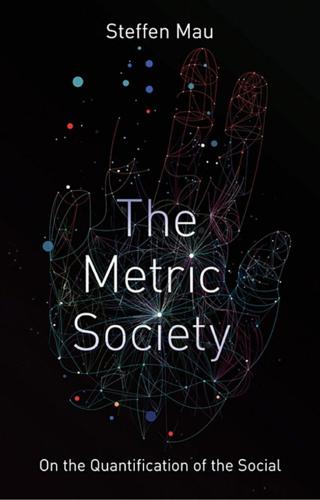
The Metric Society: On the Quantification of the Social
by
Steffen Mau
Published 12 Jun 2017
The multitude of data we churn out and store is creating an ever-larger digital shadow – sometimes with our consent, but often without it. In the world of Big Data, information on users, citizens or people in general offers the ideal raw material for making a profit. Small wonder, then, that the information economy has evolved into a monster which not only swallows huge quantities of data but grinds them up with algorithms and spits them out again for a variety of purposes. The aim in every case is to create – and encode – difference, with far-reaching consequences for processes of classification and status assignment.
…
Index ‘20-70-10’ rule 155 academics 139 and altmetrics 77–8 and h-index 75–6, 139, 144 self-documentation and self-presentation 76–7 status markers 74–8 accountability 3, 91, 115, 120, 134, 147, 159 accounting, rise of modern 17 activism alliance with statistics 127 Acxiom 164–5 ADM (automated decision-making) 63 Aenta 108 Airbnb 88 airlines and status miles 71–2 algorithms 7, 64, 127, 167 and nomination power 123–5, 126, 141–2 AlgorithmWatch 127 altmetrics 77–8 Amazon 96, 150, 156 American Consumers Union 167 apps 99, 105, 150 finance 66–7 fitness and health 68, 102–3, 104, 107 Moven 65–6 Asian crisis (1997) 57 audit society 24–5 automated decision-making (ADM) 63 averages, regime of 155–7 Barlösius, Eva 113 Baty, Phil 48 Bauman, Zygmunt 143 behavioural reactivity 131 benchmarks, regime of 155–7 Berlin, television tower 40 Better Life Index 20 Big Data 2, 79, 123 biopolitics 19 of the market 70 biopower 19 Boam, Eric 104 body images, regime of 156–7 Boltanzki, Luc 125–6 border controls 73–4 borders, smart 74 Bourdieu, Pierre 111, 114, 115, 162 BP 108 Bude, Heinz 37 bureaucracy 18 calculative practices 11, 124 expansion of 11, 115 and the market 15–17 Campbell, Donald T. 130–1 Campbell's Law 130–1 capitalism 15, 54, 55 digital 150 capitalists of the self 163 Carter, Allan 48 Chiapello, Ève 125–6 Chief Financial Officer (CFO) 17 China Sesame Credit 67 Social Credit System 1, 166 choice revolution 118–19 class and status 33 class conflict switch to individual competition 168–70 classification 60–80 see also scoring; screening collective body 104–6 collective of non-equals 166–8 commensurability 31–3, 44, 159 Committee of Inquiry on ‘Growth, Wealth and Quality of Life’ (Germany) 127 commodification 163, 164 Community (sitcom) 96 companies 16–17 comparison 7, 26–39, 159 and commensurability/incommensurability 31–3 and competition 28 dispositive(s) of 7, 28–31, 159, 169 new horizons of 33–5 part of everyday life 27 prerequisites for social 35–6 registers of 135–9 and self-esteem 30 shifts in class structure of 33 and status 29–30, 36–7 universalization of 27–8 COMPAS (Correctional Offender Management Profiling or Alternative Sanctions) 79 competition 6, 7, 115–19, 159–60 and comparison 28 increasing glorification of 159 and neoliberalism 23 and performance measurement 115–19 and quantification 116–17 and rankings 45 switch from class conflict to individual 168–70 competitive singularities 169 consumer generated content (CGC) 85–6 control datafication and increased 143, 147, 169 individualization of social 143 levers of social 144 relationship between quantification and 78 conventionalization 128 Cordray, Julia 97 Correctional Offender Management Profiling or Alternative Sanctions (COMPAS) 79 Corruption Perceptions Index 26 cosmetic indicators 135 Couchsurfing 88 credit risk colonialization 64 credit scoring 63–7 and social status 67 criminal recidivism, scoring and assessment of 62–3, 79 criteria reductionism 22 cumulative advantages, theory of 174 CureTogether 106 customer reviews 82–6, 87, 88 Dacadoo 68 Daily Telegraph 149 darknet 87 data behaviourism 171 data leaks 152 data literacy 21 data mining 4, 22, 163 data protection 72, 142 data repositories 62, 73–4 data storage 22, 73, 135 data voluntarism 4, 152, 153, 159 dating markets and health scores 70 de Botton, Alain 30 decoupling 133, 136, 174–5 democratization and digitalization 166 difference 2 visibilization and the creation of 40–3 ‘difference revolution’ digitalization giving rise to 166–7 digital capitalism 150 digital disenfranchisement of citizens 151 digital health plans 70 digital medical records 67 digitalization 2, 7, 21–2, 25, 63, 73, 80, 111, 123, 180 and democratization 166 giving rise to ‘difference revolution’ 166–7 as ‘great leveller’ 166 quantitative bias of 124 disembedding 13 distance, technology of 23–4 diversity versus monoculture 137–40 doctors, evaluation of by patients 92–3 Doganova, Liliana 5–6 double-entry bookkeeping 15, 163 e-recruitment 61 eBay 87 economic valuation theory 5 economization 22–4, 38, 115, 117 and rise of rankings 46 education and evaluation 89–91 evaluation of tutors by students 89–90 law schools 44, 138–9 output indicators and resource allocation in higher 132 and Pisa system 122, 145–6 Eggers, Dave The Circle 41, 82–3 employer review sites 83 entrepreneurial self 3, 154 epistemic communities 121 equivalence 16, 27 Espeland, Wendy 44, 139 esteem 29, 30 and estimation 15, 38 see also self-esteem Etzioni, Amitai The Active Society 20 European Union 122 evaluation 81–98 connection with recognition 38 cult and spread of 7, 97–8, 134 education sector 89–91 loss of time and energy 136 and medical sector 91–3 peer-to-peer ratings 87–8 portals as selectors 84–6 pressure exerted by reviews 147–8 and professions 89–93 qualitative 117 satisfaction surveys 82–4 and social media 93–8 of tutors by students 89–90 evidence-basing 3 exercise and self-tracking 101–4 expert systems 7 transnational 121–2 experts, nomination power of 119–23, 126 Facebook 94 FanSlave 95 Federal Foreign Office (Germany) 53 feedback power of 147–8 and social media 93–4 Fertik, Michael 66 Fitch 56 fitness apps 68, 102–3, 104, 107 Floridi, Luciano 105 Foucault, Michel 19 Fourcade, Marion 163–4 Franck, Georg 29 fraud 137 Frey, Bruno ‘Publishing as Prostitution’ 146 ‘gaming the system’ 132 GDP (gross domestic product) 14 dispute over alternatives to 127–8 General Electric 155 Germany Excellence Initiative 51 higher education institutes 52–3 Gerstner, Louis V. 130 Glassdoor.com 83 global governance 122 globalization 34, 73 governance 12 self- 19, 37, 105 state as data manager 17–20 ‘government at a distance’ 145 governmentality 112 GPS systems 150 Granovetter, Mark ‘The strength of weak ties’ 147 gross domestic product see GDP h-index 75–6, 139, 144 halo effect 90 Han, Byung-Chul 154 Hanoi, rat infestation of 130 happiness and comparison 30 Hawthorne effect 107 health and self-tracking 101–4 health apps 68, 102–3, 104, 107 health scores 67–71 health status, quantified 67–71 Healy, Kieran 163–4 Heintz, Bettina 14, 33, 34 hierarchization/hierarchies 1, 5, 6, 11, 33, 39, 40–59, 174 and rankings 41–2, 43, 44, 48 higher education, output indicators and resource allocation 132 Hirsch, Jorge E. 75 home nursing care 135–6 hospitals and performance indicators 131 Human Development Index 14 hyperindividualization 167–8 identity theory 29 incommensurability 31–3 indicators 2, 3, 5, 20, 23–4, 34, 114, 159 and competition 116–17 and concept of reactive measurements 129–33 cosmetic 135 economic 7 governance by 24 politics of 14 status 35, 75 see also performance indicators individualization of social control 143 industrial revolution 19 inequality 6, 8, 158–76 collectives of non-equals 166–8 establishment of worth 160–2 inescapability and status fluidity 170–4 reputation management 162–6 switch from class conflict to individual competition 168–70 inescapability of status 170–4 information economy 2 information transmission interfaces, between social subsystems 165–6 institutional theory 113 insurance companies 72, 108, 151, 152, 167 International Labour Organization 122 investive status work 36–7 Italian Job, The (film) 138 justice 126 Kaube, Jürgen 2 Kula, Witold 16 Latour, Bruno 34 law schools 44, 138–9 league tables 35, 43, 46, 47, 51, 52, 53, 91, 138, 139, 146, 162, 175 legitimate test, concept of 125–6 Lenin, Vladimir 116 lifelogging 99, 109, 153 Luhmann, Niklas 166 Lyon, David 142 McClusky, Mark 101 McCullough, Nicole 97 Mann, Steve 153 market(s) calculative practices of 15–17 and neoliberalism 23 and rating agencies 55–6 Marron, Donncha 65 Matthew effect 174–5 measurement, meaning 10 media reporting 33 medical sector and evaluation 91–3 hospitals and performance indicators 131–2 MedXSafe 70 meritocracy 23, 161 Merton, Robert K. 161, 174 ‘metric revolution’ 16 Miller, Peter 112 mobility 71–4 border controls 73 digital monitoring of 72 and scoring 71–4 smart cars 72 and status miles 71–2 money as means of exchange 16 monoculture versus diversity 137–40 mood, self-tracking of 101–4 Moody's 56 motivation 106–10 and rankings 45 Moven 65–6 Münch, Richard 145 Nachtwey, Oliver 150 naturalization 113 neoliberalism 3, 12, 23, 25 basic tenets of 23 New Public Management 3, 117, 136, 155 NHS (National Health Service) 118 nomination power 111–28 and algorithms 123–5, 126, 141–2 critique of 125–8 and economization 115 of experts 119–23, 126 performance measurement and the framing of competition 115–19 and the state 112–15 non-equals, collectives of 166–8 normative pressure 144–6 North Korea 144 ‘number rush’ 2 numbers 13–14, 15 numerical medium 8, 14, 16, 18, 28, 33, 113, 160, 166 objectivization 35, 154, 160 OECD 122 Offe, Claus 175 Old Testament 17 omnimetrics 9 O’Neil, Cathy Weapons of Math Destruction 79 optimization 12, 25 Oral Roberts University (Oklahoma) 108 Peeple app 96–7 peer-to-peer ratings 87–8 Pentland, Alex 151 people analytics 150–1 performance enhancement 12 performance indicators 12, 38, 53, 74, 118, 119, 120, 129, 155 and hospitals 131–2 performance measurement 23, 38, 115–19 performance-oriented funding allocation 22 performance paradox 132 performance targets 4 Personicx 165 Pisa system 122, 145–6 politicians 14, 120 politics 114 portals 84–6, 88, 90–1 power of nomination see nomination power prestige 8, 29, 67, 144 principal–agent problem 147–8 private consultancy services 117 professional control, loss of 133–4 professionalization 19, 133 professions and evaluation 89–93 publicity 33 QS ranking 52 qualitative evaluation 117 quantification advantages of 8 engines of 21–5 history 11 impact and consequences of 5, 6 meaning 10, 12–15 risks and side-effects 7, 129–40 role of 35 quantified self 99–110 Quantified Self (network) 99–100 quantitative evaluation see evaluation quantitative mentality 11–12 quasi-markets 116, 118–19 race and assessment of criminal recidivism risk 79 rankings 47–53, 58–9, 60, 144 and competition 45 and compliance 44 differences between ratings and 42–3 disadvantage of 43–4 economization and rise of 46 and evaluation portals 84–6 and hierarchies 41–2, 43, 44, 48 and image fetishization 47 and motivation 45 as objectivity generators 41 performance-enhancing role 46 popularity of 41 as positional goods 45 purpose of 45 and reputation 48, 49, 50, 52 as social ushers 42 and status anxiety 46–7 university 6, 7, 43, 47–53, 144, 175 Welch's forced 155–6 rating agencies, market power of 53–9 ratings 41–3, 53–9, 60 definition 54 differences between rankings and 42–3 and evaluation portals 84–6 as objectivity generators 41 peer-to-peer 87–8 as social ushers 42 rationalization 5, 11, 12, 14, 15, 16, 19, 105, 110, 154, 163 Raz, Joseph 31–2 reactive measurements 129–33 recommendation marketing 85 recruitment, e- 61 reference group theory 29 reputation 29, 39, 66, 74, 121 academic 75–6 cultivating good 47 and rankings 48, 49, 50, 52 rating of 87–8 signal value of 87 social media and like-based 93–8 reputation management 4, 50, 162–6 reputation scoring 87–8 research community 146 and evaluation system 146 and review system 146–7 ResearchGate 77 reviews 136 customer 82–6, 87, 88 doctor 92 high demand for 136 lecturers/tutors 90 performance 25, 149 pressure exerted by popular 147 Riesman, David 37 risks of quantification 129–40 loss of professional control 133–5 loss of time and energy 135–7 monoculture versus diversity 137–40 reactive measurements 129–33 Rosa, Hartmut 94, 173 Rose, Nikolas 112 Rousseau, Jean-Jacques 28–9 running apps 107 Runtastic app 107 satisfaction surveys 82–4 Sauder, Michael 44, 139 Schimank, Uwe 134 Schirrmacher, Frank 152 Schmidt, Eric 147 schools and choice 118–19 evaluation of 90–1 league tables 46 and Pisa system 122, 145–6 scoring 7, 60, 61, 78–80 academic status markers 74–8 and assessment of criminal recidivism 62–3 credit 63–7 health 67–71 mobility value 71–4 pitfalls 79 screening 7, 60–1, 78–9 border controls 73–4 e-recruitment 61–2 function 60–1 smart cars 72 self-direction 105, 121, 143 self-documentation 153 and academic world 76–7 self-enhancement 3, 137 self-esteem 29, 37, 170 and comparison 29, 30 rankings and university staff 50–1 self-governance 19, 37, 105 self-image 37, 47, 50, 89 self-management 3, 20, 25 self-observation 25, 42 quantified 99–110 self-optimization 3, 19, 104, 109, 163 self-quantification/quantifiers 4, 13, 25, 101, 154–5, 156 self-reification 105 self-responsibility 25, 110 self-tracking 4, 7, 99, 100, 106, 109–10 collective body 104–6 as duty or social expectation 108 emotions provoked 109 health, exercise and mood 101–4 and motivation 106–10 problems with wearable technologies 103–4 running and fitness apps 68, 102–3, 104, 107 and sousveillance 153 as third-party tracking 154 self-worth 29, 36, 38, 47, 51, 170 and market value 67 Sesame Credit (China) 67 Shanghai ranking 47 ‘shared body’ 105 shared data 142, 152–3 Simmel, Georg 28 ‘small improvement argument’ 32 smart borders 74 smart cars 72 smart cities 21 smart homes 21 ‘social accounts’ 20 Social Credit System (China) 1, 166 social engineering 20 social management 20 social media 93–8, 153, 166 drivers of activity 93 and feedback 93–4 forms of connection 93 likes 93–5 and online disinhibition 153 and reputation building 95 resonance generated by 94 and running/fitness apps 107 social research 19–20 social security systems 19 social status see status social worth see worth socio-psychological rank theory 46 sociometrics/sociometers 2, 5, 36, 74, 141, 150–1 Sombart, Werner Modern Capitalism 15–16 sousveillance 153 sport 33 rise of world 35 Staab, Philipp 149–50 Stalder, Felix 124 Standard & Poor's 54, 56 statactivism 127 state as data manager 17–20 nomination power of the 112–15 statistics 14 origins of word 17 status and class 33 and comparison 29–30, 36–7 and credit scoring 67 inescapability from 170–4 and life satisfaction 30 seeking of 36 status anxiety 30 and rankings 46–7 status competition 26–39 status data 2, 80, 159, 161–2, 169, 174 functioning as symbolic data 8, 162 status fluidity 170–4 status insecurity 4 status miles 71–2 status sets 161–2 status symbols 158 status work 4, 36–7, 174 Stiglitz-Sen-Fitoussi Commission (France) 127 Streeck, Wolfgang 171–2 subprime crisis (2007) 57, 64 surveillance 8, 142, 152 interdependence of self- and external 153–5 and neoliberalism 23 workplace and technological 149–51 surveys, satisfaction 82–4 symbolic capital 174 status data as 8, 162 target setting 22 tariff models 152–3 technological surveillance, in the workplace 149–51 technologies of the self 25 tertium comparationis 32 Thomas theorem 59 Thompson, David C. 66 Times Higher Education ranking 47, 48, 53 tourism portals 85 tracking as double-edged sword 142 see also self-tracking trade relations 16 transnational expert systems 121–2 transparency 3, 91, 141–3, 144, 147 Transparency International 26 ‘transparent body’ 105 TripAdvisor 85 Trustpilot 86 Turkey 54 tutors evaluation of by students 89–90 Uber 156 űbercapital 163–4 UN Sustainable Development Goals 20 United Nations 122 university lecturers evaluation of 89–90 object of online reviews 90 university rankings 6, 7, 43, 47–53, 144, 175 valorization 5, 58, 124, 161 valuation 5–6 value registration 161 Vietnam War 131 visibilization, and the creation of difference 40–3 Webb, Jarrett 104 Weber, Max 15, 16, 154 Weiß, Manfred 119 Welch, Jack 155 ‘winner-take-all society’ 136 Wolf, Gary 99–100 Woolgar, Steve 34 workplace technological surveillance in the 149–51 World Bank 122 worth 5–6, 7, 11, 78–80, 170 assessments of 27 establishment of 160–2 orders of 11, 15, 29 self- 29, 36, 38, 47, 51, 67, 170 Young, Michael 161 The Rise of Meritocracy 23, 161 Zillien, Nicole 105 Zuckerberg, Mark 158 POLITY END USER LICENSE AGREEMENT Go to www.politybooks.com/eula to access Polity's ebook EULA.
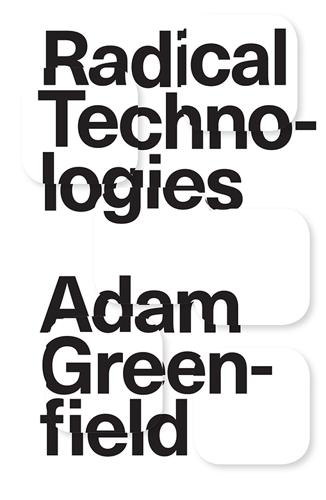
Radical Technologies: The Design of Everyday Life
by
Adam Greenfield
Published 29 May 2017
If not this, then her frequent purchases of condoms would certainly help to flesh out the picture—even though she pays cash, the pharmacy where she buys them retains a service that uses each phone’s unique IMEI number to track customers’ trajectories through the store, and this service maps her path to the Durex display with unerring precision. Here in these ghostly trails are the rhythms of the informal economy, surfacing through seemingly innocuous patterns of fact. The streetcleaner, of course, has a GPS transponder; its moment-to-moment route through the city is mapped by the Mairie, and provided to citizens in real time as part of a transparency initiative designed to demonstrate the diligence and integrity of civil servants (and very much resented by the DPE workers’ union).
…
Why is Bitcoin’s failure to gain traction as a medium of daily exchange so surprising? Firstly, and entirely by design, the currency welcomes those who find themselves locked out of other ways of exchanging value over the global network. This includes the billions of people on Earth who derive all or part of their livelihood from participation in the informal economy; the so-called “unbanked,” those 2.5 billion of us who lack access to conventional financial services; and, of course providers of goods or services that would be overtly illegal in one or more jurisdictions. All of these people can securely transact in Bitcoin, given only a network connection and access to a smartphone or other device on which they can safely store a wallet application.
…
This means there’s no way, other than moral suasion, of enforcing boycotts or blockades on transaction with disfavored parties. In principle, then, Bitcoin ought to have a built-in constituency among those who, for one reason or another, cannot participate in other modes of digital value exchange. And with World Bank and ILO estimates placing the size of the informal economy at anywhere up to 72 percent of total economic output, depending on region, this implies a very large number of highly motivated potential users. Moreover, because of the relatively low transaction costs it imposes—nothing like the considerable overhead banks and credit-card issuers must dedicate to detecting fraud, assessing the merits of chargeback attempts and so on—the Bitcoin network can in principle economically process much smaller amounts than other payment systems.
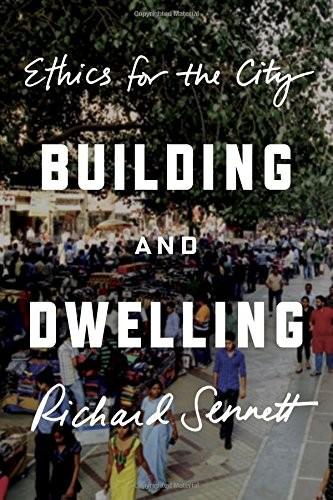
Building and Dwelling: Ethics for the City
by
Richard Sennett
Published 9 Apr 2018
He cannot succumb to disabling depression if he wants to survive; he has no choice but to believe in man as his own maker. Indeed, in his emerging city large numbers of people like him are moving from absolute poverty to a more ambiguous condition. This is due, to use Joan Clos’ metaphor, to the watery realm surrounding the urban octopus; in the informal economy, left out of top-down, big-project planning, he makes his way, as do people like him, with little or no help from the top. So long as his circumstances remain ambiguous, he can retain a faith in his powers to deal with them. His belief in family values can be affirmed as his values. Ambiguity grounds personal ethics for him.
…
Stalin’s Moscow was coming to look like Haussmann’s Paris, with vast boulevards lined by buildings decorated like elaborate wedding cakes and subways illuminated by chandeliers – communism driving the people forwards, while the Angel, as urban builder, looked backwards. Neither ideology nor chandeliered subway could disguise, however, the informal economy by which Muscovites fed, clothed and medicated themselves, in open-air markets like Smolensk bazaar. This was, like Nehru Place, a black market which the authorities tolerated; near Christmas-time Benjamin found it ‘so crowded with baskets of delicacies, tree decorations, and toys that you can barely make your way from the street to the sidewalk.’
…
Thanks in part to their access to the advanced Arabic medicine brought by Muslims to Spain, the Sephardic Jews who lived in that country were much better than local Christian doctors who relied on spells and prayers. So, too, the Venetians resorted to Jewish networks for trade with the East (which at that time stretched along the Silk Road all the way to China). Most Jews, however, were very poor and unskilled; they filled the niches of the informal economy in the way Mr Sudhir operates today, peddling cheap or used goods below the radar of the Venetian authorities. What the authorities sought was a place in which to isolate this especially degraded group, even while making use of them.12 It is easy to imagine today that Jews had always lived in Europe in the isolated conditions of ghetto space.
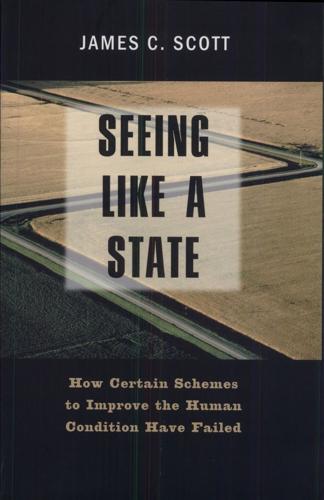
Seeing Like a State: How Certain Schemes to Improve the Human Condition Have Failed
by
James C. Scott
Published 8 Feb 1999
On a more speculative note, I imagine that the greater the pretense of and insistence on an officially decreed micro-order, the greater the volume of nonconforming practices necessary to sustain that fiction. The most rigidly planned economies tend to be accompanied by large "underground, 'gray,' informal," economies that supply, in a thousand ways, what the formal economy fails to supply"' When this economy is ruthlessly suppressed, the cost has often been economic ruin and starvation (the Great Leap Forward and the Cultural Revolution in China; the autarkic, moneyless economy of Pol Pot's Cambodia). Efforts to force a country's inhabitants to maintain permanent, fixed residences tend to produce large, illegal, undocumented populations in urban areas where they have been forbidden to go. 121 The insistence on a rigid visual aesthetic at the core of the capital city tends to produce settlements and slums teeming with squatters who, as often as not, sweep the floors, cook the meals, and tend the children of the elites who work in the decorous, planned center. 129 8 Taming Nature: An Agriculture of Legibility and Simplicity Yes, enumerate the carriage partsStill not a carriage.
…
The thin simplifications of agricultural collectivization and centrally planned production have met a comparable fate, whether on the collective farms of the former Soviet Union or in the ujamaa villages of Nyerere's Tanzania. Here again, the schemes that did not collapse altogether managed to survive thanks largely to desperate measures either not envisaged or else expressly prohibited by the plan. Thus an informal economy developed in Russian agriculture, operating on tiny private plots and and the "theft" of time, equipment, and commodities from the state sector and supplying most of the dairy products, fruit, vegetables, and meat in the Russian diet.' Thus the forcibly resettled Tanzanians successfully resisted collective production and drifted back to sites more suitable for grazing and cultivation.
…
They serve to illustrate that the formal order encoded in social-engineering designs inevitably leaves out elements that are essential to their actual functioning. If the factory were forced to operate only within the confines of the roles and functions specified in the simplified design, it would quickly grind to a halt. Collectivized command economies virtually everywhere have limped along thanks to the often desperate improvisation of an informal economy wholly outside its schemata. Stated somewhat differently, all socially engineered systems of formal order are in fact subsystems of a larger system on which they are ultimately dependent, not to say parasitic. The subsystem relies on a variety of processes-frequently informal or antecedent-which alone it cannot create or maintain.
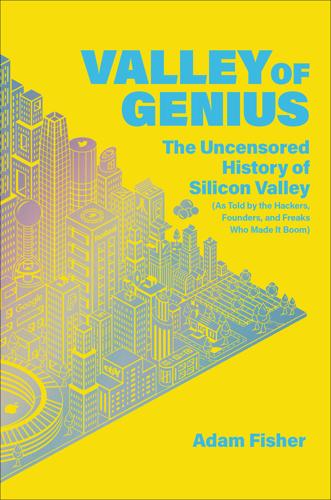
Valley of Genius: The Uncensored History of Silicon Valley (As Told by the Hackers, Founders, and Freaks Who Made It Boom)
by
Adam Fisher
Published 9 Jul 2018
That’s still true, at least in the Silicon Valley I know. Those were the stories that got me excited. And they still do. I’m not saying there isn’t an economic story to be told. In fact, I think that we are witnessing the greatest transition since the industrial revolution. A new economy—the information economy—is being created, and the center of that new economic order will be Silicon Valley. And if that’s not the business story of the century, what is? Still, the bigger question, in my humble opinion, is how that transformation will transform us. We begin to see the answer in the culture that’s being created in Silicon Valley, now.
…
Stewart Brand: So, putting these things out for free is kind of nuts. And, I said, “Well, software—this kind of information—wants to be expensive, but it also wants to be free because it’s so easy to copy.” John Markoff: It was a dialectic, right? Stewart is not a Marxist, but it was a very Marxist view of the information economy. Steven Levy: It was a conversation, they were engaging. The whole thing was almost like a jazz improvisation. Just like building up in one of those long Coltrane songs or something like that. Stewart Brand: I was really just restating something that was written down in Levy’s book as “the hacker ethic.”
…
And when Gassée got back he was furious, but he couldn’t stop it because HyperCard was really well received. It got great press. There are a lot of stories like that. Andy Hertzfeld: But the beginning of General Magic is really Marc Porat. He’s a very clever nontechnical person—an impresario businessman who in the thesis he did at Stanford came up with the first use of the term “information economy.” Marc was a college friend of Larry Tesler’s. So that was his connection to Apple. And he was hired on in the fall of 1988 to work in the Advanced Technology Group at Apple to try to help figure out what’s the next thing beyond personal computers. Megan Smith: Marc was very tied into Nicholas Negroponte and is part of that whole MIT Media Lab conversation.
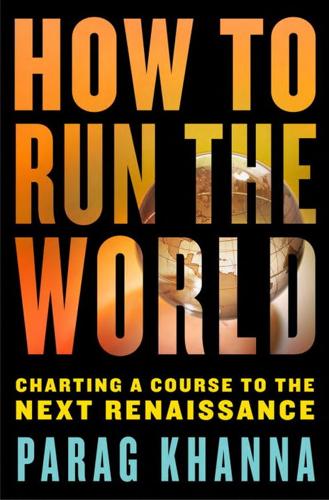
How to Run the World: Charting a Course to the Next Renaissance
by
Parag Khanna
Published 11 Jan 2011
The Self-Employed Women’s Association (SEWA) in India has its own community-level banks, health clinics, child-care programs, legal services (such as sexual harassment and workers’ compensation), and retirement accounts. SEWA doesn’t just champion women’s rights; it provides those rights through its own quasi-economic and political communities across India. The so-called informal economies of community cooperatives often go unregistered in economic statistics, yet they are a legitimate mode of economic and social survival for hundreds of millions of people worldwide. What is crucial to understand about Grameen, BRAC, SEWA, and other such organizations is that their primary unit of organization is not the town or village but the community.
…
New York: Palgrave Macmillan, 2008. Simmons, P. J., and Chantal de Jonge Oudraat, eds. Managing Global Issues: Lessons Learned. Washington, D.C.: Carnegie Endowment for International Peace, 2001. Singer, Peter. One World. New Haven, Conn.: Yale University Press, 2002. Singh, J. P. Negotiation and the Global Information Economy. Cambridge, UK: Cambridge University Press, 2008. Slaughter, Anne-Marie. A New World Order. Princeton, N.J.: Princeton University Press, 2004. Smith, David Livingstone. The Most Dangerous Animal: Human Nature and the Origins of War. New York: St. Martin’s Press, 2007. Smith, Rupert. The Utility of Force: The Art of War in the Modern World.
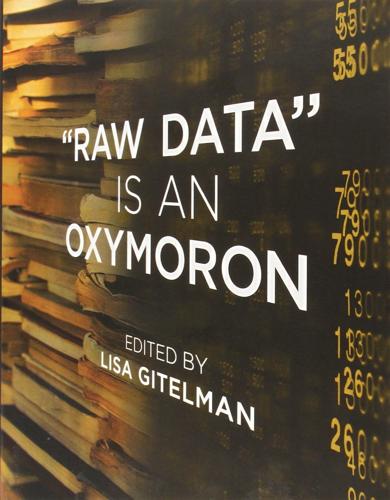
Raw Data Is an Oxymoron
by
Lisa Gitelman
Published 25 Jan 2013
True interpellation—in his terms “a complicated configuration of unconsciousness, indirection, automation, and absentmindedness”—requires a coercive system, a “superpanopticon,” capable of rendering us as both subjects of and subjects to that particular assemblage that David Mitchell, in a fictional context, calls a corpocracy.22 For Kevin Robins and Frank Webster, this is the essence of “cybernetic capitalism,” by which they mean the whole of the socioeconomic control system that is in part dependent on the capacity of state and corporate entities to collect and aggregate personal data to the extent that each individual can be easily monitored, managed, and hence controlled.23 As my epigraphs indicate, Robins and Webster are far from alone in their concern with our dynamic incorporation within a totalizing technological system of data management. 24 Greg Elmer also explicates the techniques by which consumer profiles are developed and individuals are “continuously integrated into a larger information economy and technological apparatus.”25 But for Elmer and Lyon and others, a crucial aspect of this incorporation is our voluntary participation: the composition of consumer profiles in part results from solicitation—whether in the form of a request for feedback or personal data so as to be granted access to a particular service or program—which means we are interpellated as “self-communicating” actors.26 To be sure, to participate in the project of modernity has arguably always meant that one becomes a calculable subject by voluntarily surrendering data.
…
For a thorough account of pattern-based searches by government and corporations and the techniques one can use to mask online activity; a detailed overview of the public outcry over TIA, its subsequent de-funding, and the continuation of the same data-mining exercises under the classified intelligence budget; and, finally, a detailed legal review that makes the case for transparency and new identity technologies with privacy protections, see Rubinstein, Lee, and Schwartz, “Data Mining and Internet Profiling.” It is important to note, however, that these debates are premised on a notion of privacy with a particular history and cultural specificity. 25. Greg Elmer, Profiling Machines: Mapping the Personal Information Economy (Cambridge, MA: MIT Press, 2004), 17. 26. Lyon, The Electronic Eye, 52. 27. There are substantive juridico-political questions that need to be addressed as the legal infrastructure develops: What is the legal status of our financial records, unique ID codes, and biometric data? How or to what extent will individual data be monetized?
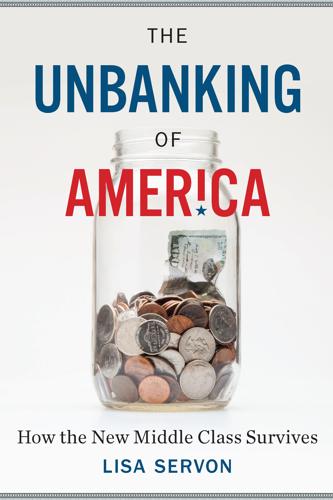
The Unbanking of America: How the New Middle Class Survives
by
Lisa Servon
Published 10 Jan 2017
Others, like loan sharking—lending at illegal interest rates—have clear rules, and there are consequences for failing to abide by them. Some practices, like tandas, are perfectly legal, while others, like lending at prices above the usury rate, are not. The sociologist Sudhir Venkatesh, who studied the informal economy of a black neighborhood in Chicago, defines the “underground economy” as “a widespread set of activities, usually scattered and not well integrated, through which people earn money that is not reported to the government and that, in some cases, may entail criminal behavior.” Informal economic activities of all kinds tend to be more prolific in low-income communities.
…
It is the rare contractor in New York City who reports all of her income. The thousands of recent college graduates working as babysitters and nannies in New York City alone tend to be paid in cash or by personal check, and it is the norm not to report this income on tax returns. Estimates put the size of the US informal economy at between 5 and 10 percent of the GDP, and up to 40 percent of the labor force is thought to be informal. But the proportion of informal activity is higher in some communities than others. Saving and lending practices are no exception. Blanca herself offers a window into the complexity of informal financial services.
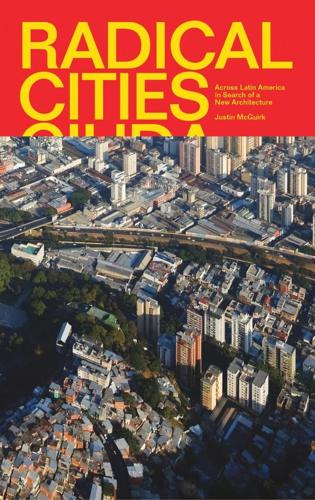
Radical Cities: Across Latin America in Search of a New Architecture
by
Justin McGuirk
Published 15 Feb 2014
Why not measure it as a number of social and economic exchanges per acre?’ Cruz was inspired to think this way by studying the land uses in San Ysidro, which are often multiple and overlapping – a Buddhist temple functioning as an unofficial City Hall, a house front operating as a taquería. In the informal economy, as can be witnessed across Latin America, people will find a way to put even the most unpromising or unlikely places to social and economic use. By contrast, the strict regulations governing any American city strive to segregate the domestic from the economic, and categorise the city into zones suitable for property speculation rather than rich social interaction.
…
After all, the sub-prime mortgage fiasco was the product of America’s fixation with private property, and the logic, as Cruz once put it, ‘of democracy being based on the almighty right to be left alone behind a picket fence’. Instead, the city could be more communal, more productive. And he’s drawing on the much more complex dynamics of informal economies, where no space goes to waste, where every inch belongs to a dense network of social and economic exchanges. That’s the model he’s using to try to transform policy in San Diego. The regulations need to be more flexible, more ambiguous, more easily adapted to people’s needs. This is not a Turneresque laissez-faire attitude, but an attempt to get the top-down to facilitate the bottom-up.
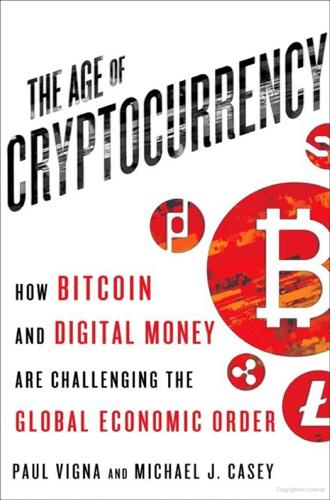
The Age of Cryptocurrency: How Bitcoin and Digital Money Are Challenging the Global Economic Order
by
Paul Vigna
and
Michael J. Casey
Published 27 Jan 2015
But with this work, they are merely scratching the surface. In aggregate, this global informal economy, or System D as the journalist Robert Neuwirth has chosen to call it, is worth $10 trillion by his estimates. If it were its own country—Neuwirth suggests the names Bazaaristan or the USSR, the United Street Sellers Republic—this economy of the undocumented would be second only to that of the United States. As BitPesa’s Rossiello suggests, the biggest opportunities may lie not with the digital currencies per se but with the technology behind them. The potential is great for people in the informal economy to exploit the blockchain’s middleman-free way to exchange assets and information and its irrefutable public record that’s free from the control of any one central institution.
…
Jonathan Mohan, who works at Ethereum, the new Bitcoin 2.0 platform that’s seeking to disrupt all sorts of legal and contractual arrangements, offers a compelling explanation for how these “smart contracts,” each designed to be executed on the blockchain via an automated piece of software, would benefit the informal economy. “As long as you render collateral for a contract and the blockchain recognizes the contract, then you know there’s no fraud and you know there’s no need to have to trust a third party,” he said at an Inside Bitcoins conference in New York. “So the contract is simple and all these other things sort themselves out.
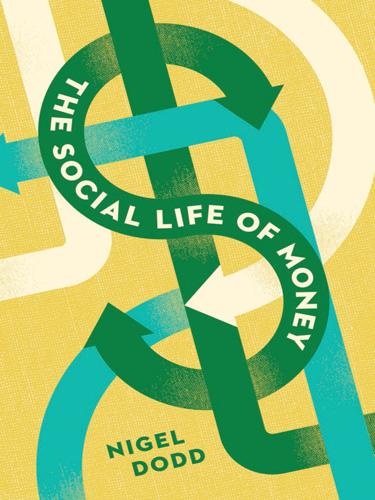
The Social Life of Money
by
Nigel Dodd
Published 14 May 2014
Second, there is the increasing use of major currencies beyond the legal jurisdiction of their respective authorities, whatever the preferences of governments, together with dollarization (where a government chooses to adopt a foreign currency in place of its own) (Cohen 2004). There is also widespread use of major currencies (especially U.S. dollars and euros) within the global informal economy, wherein currencies (normally in the form of cash) are used for transactions that take place in the interstitial spaces of the international system (Staudt 1998; Neuwirth 2011). Third, there is a transnational monetary union: although the Eurozone has been in crisis, it is by no means clear that the project will be abandoned altogether; indeed, with the inclusion of Latvia on January 1, 2014, the Eurozone has now expanded to a membership of eighteen states.
…
Life Without Money: Building Fair and Sustainable Economies, London, Pluto Press. Nettlau, M. (1996). A Short History of Anarchism, London, Freedom Press. Neu, J. (2005). In Memoriam Norman O. Brown, Santa Cruz, CA, New Pacific Press. Neuwirth, R. (2011). Stealth of Nations: The Global Rise of the Informal Economy, New York, Pantheon Books. Newton, T. (2003). “Credit and Civilization.” British Journal of Sociology 54 (3): 347–71. Nietzsche, F. (1973). The Will to Power: In Science, Nature, Society and Art, New York, Random House. Nietzsche, F. (1979). Ecce Homo: How One Becomes What One Is, Harmondsworth, U.K., Penguin.
…
Real Utopia: Participatory Society for the 21st Century, Oakland, CA, AK Press. Sperber, J. (2013). Karl Marx: A Nineteenth-Century Life, New York/London, W. W. Norton and Co. Spiegel, H. W., Ed. (1991). The Growth of Economic Thought, 3rd ed., Durham, NC, Duke University Press. Spinoza, B. (1996). Ethics. London, Penguin. Staudt, K. (1998). Free Trade? Informal Economies at the U.S.–Mexico Border, Philadelphia, Temple University Press. Steiner, P. (2008). “Who Is Right about the Modern Economy: Polanyi, Zelizer, or Both?” Theory and Society 38 (1): 97–110. Stephens, H. M. (1915). “Nationality and History.” Annual address of the president of the American Historical Association, Washington, DC, December 28, American Historical Review 21 (2): 225–36.
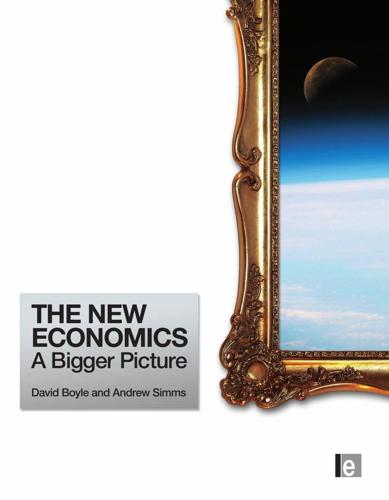
The New Economics: A Bigger Picture
by
David Boyle
and
Andrew Simms
Published 14 Jun 2009
It may not be appropriate for that work to be paid but, equally, it is certainly not right to ignore it, or pretend that somehow it isn’t essential and hugely valuable. The futurist Alvin Toffler used to ask executives what it would cost in real cash terms if none of their staff members had been toilet trained. The fact that they are is, in effect, a massive subsidy from the informal economy to the formal. The co-production theoretician Edgar Cahn describes this informal economy as ‘core’ because it is far more important than the money economy.23 Yet the money economy, and the traditional economic obsession with it, is constantly corroding the core economy, leading to the current problems of crime and alienation. There is also another, new category of activity – rewarded work, that is not paid with money – that is beginning to emerge, especially for single mothers, or refugees and asylum seekers who are not allowed to work, also for people with mental health problems.
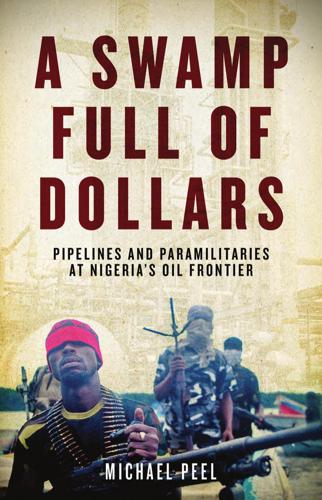
A Swamp Full of Dollars: Pipelines and Paramilitaries at Nigeria's Oil Frontier
by
Michael Peel
Published 1 Jan 2009
Not for nothing did road-safety signs warn in pidgin English that ‘Life no get duplicate’. In the hands of skilful operators, Lagos’s disorder and disorientation can be turned to financial advantage. The stop-start geography of the roads is well suited to the army of street sellers who underpin the city’s dynamic informal economy. One day I saw a man hawking T HE BOYS FROM THE BOOKSHOP STARK ILLITERATES AND JUNKIES 79 an eclectic selection of magazines that included Vanity Fair and BBC Top Gear; another held a wilted puppy up for sale in the lunchtime sun. Men even stand dangling dead rats on strings, to show the effectiveness of the rodent poison they are trying to sell.
…
I am struck by Scorpion’s characterization of a beach society whose superficial chaos hides sophisticated shadow systems of organization and support. Just as on Lagos Island, or in a Delta militant camp, financial power flows on the beach through highly personalized structures buttressed by oil money. I wonder how many oil-worker expense accounts have drained into Kuramo Beach’s informal economy. Many multinational employees seem to come to Lagos with the same attitude as the man who, on finding out that a friend of mine had moved to Nigeria with his girlfriend, had asked in puzzlement, ‘But why bring a sandwich to a restaurant?’ The top dogs and paymasters in Kuramo are bar owners such as Kenneth Eze, manager of Dreams, a rival bar to Varieties down the T HE BOYS FROM THE BOOKSHOP STARK ILLITERATES AND JUNKIES 85 sand.
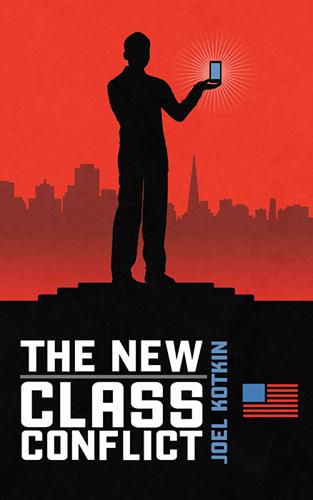
The New Class Conflict
by
Joel Kotkin
Published 31 Aug 2014
Their wealth, in the era before income taxes, was immense; by the 1880s the revenues of Cornelius Vanderbilt’s railroad empire were greater than those of the federal government.8 Like John D. Rockefeller (Standard Oil), J. P. Morgan, and railway mogul Edward Harriman, the tech Oligarchs have taken advantage of the shift in the economic paradigm to garner enormous wealth and power. The information economy’s emergence is allowing them to establish sway over vast sections of the economy, including such areas as advertising, media, entertainment, and, increasingly, the political system as well. In some senses the new tech hegemons share some similarities to the oligarchs that arose to dominate the post-Soviet Russian economy.
…
By 1990, the Valley accounted for 39 of the nation’s fastest growing electronics companies, compared to just four along Boston’s Route 128. Over the ensuing decade, Valley firms, largely through the application of software, also overcame what had once been considered insurmountable competition from Japan.45 The great hope promised by this emerging, post-industrial information economy was perhaps best stated by futurist Alvin Toffler. He distinguished between bureaucratic, top-down “Second Wave” industrial firms—which still remain powerful in their own right—and the flatter, more dispersed, and fundamentally less hierarchical “Third Wave” firms. The decentralization of technology, allowing people to communicate without going through a centralized computer, Toffler reasoned, would weaken the power of “Big Brother,” promoting instead the decentralization of power.46 Being simply the medium of the message, software companies could not control it, it was believed, and few considered how such companies’ activities could prove harmful to the consumer.47 These new Third Wave companies, noted one journalist, were seen as “wildly productive but humane,” headed by entrepreneurs who embraced an “egalitarian” ethos that saw senior executives hobnobbing with janitors in an almost comradely fashion.
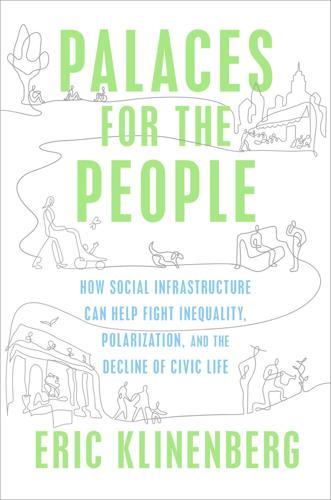
Palaces for the People: How Social Infrastructure Can Help Fight Inequality, Polarization, and the Decline of Civic Life
by
Eric Klinenberg
Published 10 Sep 2018
Yet Carnegie gave away so much of his fortune that the Philanthropy Roundtable, the leading network of charitable donors in the United States, says he “may be the most influential philanthropist in American history.” His contributions, they write, are “without peer.” Entrepreneurs have amassed vast fortunes in the new information economy, and yet no one has come close to doing what Carnegie did between 1883 and 1929, when he funded construction of 2,811 lending libraries, 1,679 of which are in the United States. Today, the Carnegie libraries are set in ordinary residential neighborhoods throughout the world, and they continue to be powerful sources of uplift.
…
Like Zuckerberg, corporate leaders are always happy to experiment with projects that promote the common good while raising their market capitalization. But there are limits to how much they can accomplish by giving while taking. How much more wealth do they need to accumulate before they are ready to help? It’s particularly puzzling that so few corporate leaders from the information economy, including those in technology and finance, have supported the library, the primary institution promoting literacy and providing Internet access to those who would otherwise have no way to get online. There are exceptions. In the 1990s, Microsoft and the Gates Foundation, which stands out for its investments in schools, health centers, and other vital social infrastructures, donated $400 million to help libraries across the United States establish Internet connections.
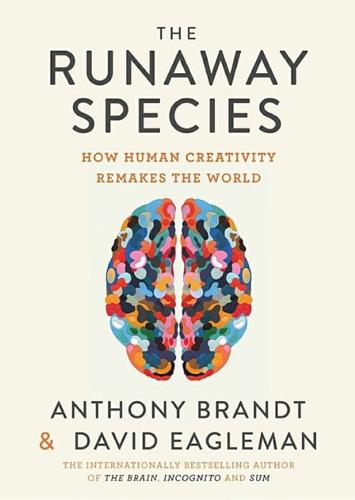
The Runaway Species: How Human Creativity Remakes the World
by
David Eagleman
and
Anthony Brandt
Published 30 Sep 2017
As important as creativity has been in our species’ recent centuries, it is the cornerstone for our next steps. From our daily activities to our schools to our companies, we are all riding arm-in-arm into a future that compels a constant remodeling of the world. In recent decades, the world has found itself transitioning from a manufacturing economy to an information economy. But that is not where this road ends. As computers become better at digesting mountains of data, people are being freed up to work on other tasks. We’re already seeing the first glimpses of this new model: the creativity economy. Synthetic biologist, app developer, self-driving car designer, quantum computer designer, multimedia engineer – these are positions that didn’t exist when most of us were in school, and they represent the vanguard of what’s coming.
…
Wheeler Elementary School (Burlington) ref1 Hobbes, Thomas ref1 Hockney, David ref1 Hokusai, Katsushika ref1 Holoroom ref1 Holz, Karl ref1 Honda ref1 honeybees ref1, ref2, ref3 Honeywell ref1 horses ref1 Hot Bertaa tea kettle ref1 How Buildings Learn (Brand) ref1 Hughes, Robert ref1 human form bending ref1, ref2, ref3 blending ref1, ref2 mythical creatures ref1 human genome project ref1 humor ref1 Iberian sculpture ref1 IBM ref1, ref2, ref3 Icebag (Oldenburg) ref1 idea flings ref1 idea quotas ref1 IDEO ref1, ref2 Idriss, Ali Mohamed Younes ref1 Ihering, Hermann von ref1 image recognition ref1 image-labeling ref1 imagination ref1, ref2, ref3 “Imagine Mars” project ref1 Indian dance ref1 indigenous art ref1 Industrial Revolution ref1, ref2, ref3 information economy ref1 instant replay ref1 insulin ref1 intravenous (iv) drips ref1 inventions see design iPad ref1 iPhone ref1, ref2, ref3, ref4 iPod ref1, ref2, ref3, ref4 Isaiah (Michelangelo) ref1 iTunes ref1 Ive, Jonathan ref1, ref2, ref3 IXI music player ref1 Japanese Imperial court ref1 Japanese Noh drama ref1 The Japanese Footbridge (Monet) ref1 Jay Z. ref1 Jesus phone (iPhone) ref1, ref2, ref3, ref4 “Jewish science” ref1 jigsaw method ref1 Jobs, Steve ref1, ref2, ref3, ref4 Johns, Jasper ref1, ref2, ref3 Johnson, Ben ref1 Johnson, Lonni Sue ref1, ref2 Johnson, Steve ref1 JR (artist) ref1 The Judgment of Paris (Raimondi) ref1 K-12 campuses ref1 Kahlo, Frida ref1, ref2 Kandinsky, Wassily ref1, ref2 Kettering, Charles ref1, ref2 Keystone Cops ref1 Khine, Michelle ref1 Killian, Michael ref1 kin selection ref1 King Jr, Martin Luther ref1 King Lear (Shakespeare) ref1 King Tee ref1 kingfisher ref1 Kitty Hawk (airplane) ref1 knives ref1 Koestler, Arthur ref1 Kramer, Hilton ref1 Kramer, Kane ref1, ref2 Kranz, Gene ref1, ref2, ref3, ref4 Krzywy Domek (“Warped Building”) ref1 Ku Klux Klan ref1 “Kubla Khan” (Coleridge) ref1 Kulich, Max ref1 Laarman, Joris ref1 The “Lady Blunt” Stradivarius ref1 Land, Edwin ref1, ref2 landscaping ref1 office ref1 Zen Gardens ref1 language bending ref1 blending ref1 cinema ref1 coding ref1 cultural conditioning ref1 Google Translate ref1 universal ref1, ref2 Large Hadron Collider ref1 Las Meninas (Velázquez) ref1 Picasso variations ref1 lasers ref1, ref2, ref3 The Last Judgment (Michelangelo) ref1 Lauter Piano Company ref1 LCD televisions ref1 Le Bordel d’Avignon (Picasso) ref1 Le Déjeuner sur l’herbe (Manet) ref1, ref2, ref3 Le Déjeuner sur l’herbe (Picasso) ref1 The LEGO Movie (2014) ref1 Leguia, Luis ref1 Leigh, Simone ref1 Lenard, Philipp ref1 Lennon, John ref1 Lenormand, Louis-Sébastien ref1 Les Demoiselles d’Alabama (Colescott) ref1 Les Demoiselles d’Avignon (Picasso) ref1, ref2, ref3, ref4, ref5 “Let Me Ride” (song) ref1 “Letter from Birmingham Jail” (King) ref1 Levi ref1 Lewis, Randy ref1 Lichtenstein, Roy ref1, ref2 “Life is Art” festival ref1 Ligeti, Györgi ref1 light bulbs ref1 Light Warlpiri ref1 Lightning Sonata (Cicoria) ref1 lions ref1 lipids ref1 liquid crystal displays ref1 literature bending ref1, ref2 breaking ref1, ref2 education ref1, ref2 mining history ref1 proliferating options ref1 see also drama Loewy, Raymond ref1 Longitude prize ref1 Longwell, Charles ref1 Lost in Space (tv) ref1 Lou Ruvo Center for Brain Health (Gehry building) ref1 Louis C.K. ref1 Louvre ref1 Lovelace, Ada ref1 Lowes, John Livingston ref1 Lowe’s (US retailer) ref1 McCarthy, John ref1 McCartney, Paul ref1 MacWorld ref1 Maeda, John ref1 Malevich, Kazimir ref1 mami wata (mermaid) ref1 The Man in the High Castle (Dick) ref1 Manet, Edouard ref1, ref2, ref3 Manley, Tim ref1 manufacturing economy ref1 Marclay, Christian ref1 Marlborough Gallery ref1 The Marriage of Figaro (Beaumarchais) ref1 Martin, George ref1 Massachusetts Institute of Technology ref1 Maternity (Brandt) ref1 mathematical techniques ref1 Maugham, W.
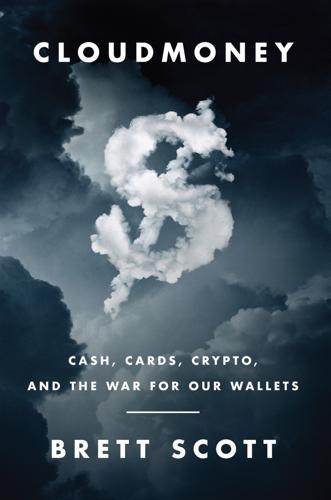
Cloudmoney: Cash, Cards, Crypto, and the War for Our Wallets
by
Brett Scott
Published 4 Jul 2022
Are these the people most likely to view ‘cashlessness’ – which relies upon constant interaction with formal financial institutions – as unproblematic ‘progress’? The Better Than Cash Alliance does not think so. From its New York office, its directors characterise cash as an outdated and dangerous drag on the economy. They assert that it is those living in informal economies around the world who yearn to leave it behind, and upgrade to the lifestyle of the digitally connected urban professional. The ambiguities of being ‘banked’ Organisations like the Better Than Cash Alliance position themselves as players within the broader field of financial inclusion. Practitioners in this field often use the term ‘unbanked’ (or ‘underbanked’) to refer to those who do not use formal financial institutions in their day-to-day lives.
…
This man will be praised by official institutions – he is adapting to keep up with a rapidly changing world. If you look at all the POS terminals and fintech apps in the context of the global economy, they are like front line agents in a process of global gentrification, paving the way for the card companies, Big Finance and Big Tech to overrun informal economies. Gentrification is just the leading edge of corporate seep, the process by which previously informal and direct peer-to-peer economic relationships are replaced with institutionally mediated ones. It is in this context that ‘financial inclusion’ needs to be analysed. I have already suggested that – in mainstream circles at least – inclusion is more akin to absorption.

Superbloom: How Technologies of Connection Tear Us Apart
by
Nicholas Carr
Published 28 Jan 2025
ACLU laid out the “basic case for the democratizing effect of the Internet.” But, with eight more years of experience to draw on, he pushed the case much further. Across five hundred pages of dense, suitably technocratic prose, he argued that “the Internet revolution” was well on its way to supplanting mass media’s centralized “industrial information economy” with a radically decentralized “networked public sphere.” Spurring the epochal transformation were two developments, one technical, the other economic: The first element is the shift from a hub-and-spoke architecture with unidirectional links to the end points in the mass media, to distributed architecture with multidirectional connections among all nodes in the networked information environment.
…
Like most observers at the time, Benkler didn’t foresee how these popular new sites would come to position themselves as central, corporate-controlled clearinghouses of news, messages, and other content. Indeed, he assumed the net would continue to resist such corporate control. “By creating sources of information and communication facilities that no one owns or exclusively controls,” he concluded, “the networked information economy removes some of the most basic opportunities for manipulation of those who depend on information and communication by the owners of the basic means of communications.”10 In ignoring or downplaying trends that didn’t fit the favored narrative, he seems to have been a victim of confirmation bias himself.
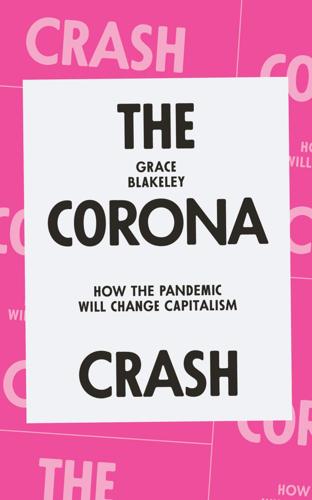
The Corona Crash: How the Pandemic Will Change Capitalism
by
Grace Blakeley
Published 14 Oct 2020
They have struggled to roll out measures such as mass testing owing to state under-capacity and to achieve social distancing given the cramped living conditions faced by many families.24 The mass evacuations associated with Cyclone Amphan will only increase the challenge. Meanwhile, those working in the informal economy, migrant workers and the industrial working class have suffered immensely during the lockdown, which has constrained already-low incomes and left many people destitute. In the Global North, the answer to climate change and the coronavirus is simple: spend. When these states are hit by extreme weather events – flooding in the United Kingdom, the recent spate of fires in Australia or the increasing frequency of hurricanes and storms in the United States – they pay out billions to contain the economic impact.
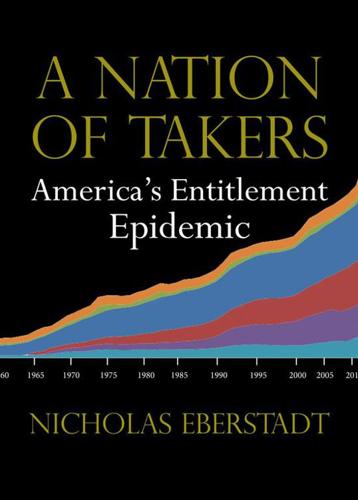
A Nation of Takers: America’s Entitlement Epidemic
by
Nicholas Eberstadt
and
Nick Eberstadt
Published 18 Oct 2012
Between 1960 and 2009, according to the reckoning of the Human Mortality Database, overall life expectancy at birth in the United States increased by nearly nine years, and life expectancy at age eighteen jumped by seven years (from 54.5 to 61.5). Over that same period, the odds of dying between one’s eighteenth and sixty-fifth birthdays fell markedly: from 26.1 percent to 15.1 percent, or by well over two-fifths46 (see Figure 25). Furthermore, the automation of work and the rise of the service/information economy over those same decades made the daily routines of Americans ever less physically demanding. Given these factors, what’s the source of the seven-fold rise in the proportion of working-age Americans on government-paid disability over the past half-century? Paradoxically, despite the general aging of the population as a whole and the workforce in particular, there has been a gradual reduction in the age of the disability-entitled over time.47 In 1960, for example, 6.6 percent of men and 6.4 percent of women on disability were in their 30s or early 40s; by 2011 the corresponding shares were 15 percent and 16.2 percent, respectively.48 More and more Americans, it would seem, are making the securing of disability status their lifelong career.
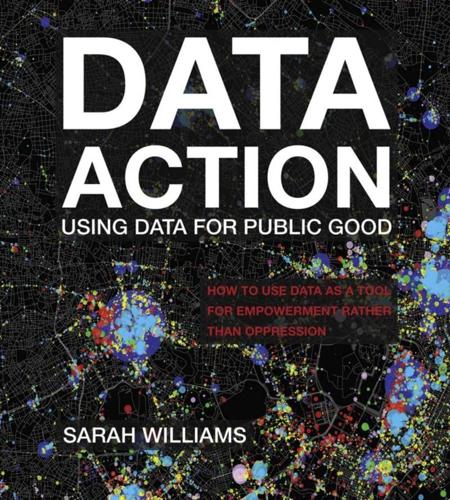
Data Action: Using Data for Public Good
by
Sarah Williams
Published 14 Sep 2020
I would argue this is because the maps and data were developed collaboratively, and through that effort the maps were co-owned by multiple actors, with none having a singular power over its message. Nairobi's matatu drivers do equate the maps to those of European and American transport systems, and that gives them a sense of pride in their system. Rather than being viewed as part of an informal economy, equating the matatus with formal systems helps show that they contribute an important public infrastructure in the city. The matatu maps “do no harm” because they tell the untold story of the matatu system. The narrative created by the matatu maps does not paint a picture of an unsafe, corrupt system that needs to be removed but rather one in which transportation actors need to work collaboratively to make the current system more usable.
…
For example, cell phone call detail record (CDR) data could unintentionally expose persecuted people during disaster events if that data were disseminated without regard to the proper precautions, or without determining who has access to the data and for what reason. These protections are often forgotten in the name of the public good. Some people want to remain hidden; this might be especially true in informal economies. In Nairobi we spoke to the matatu owners to ensure that mapping their stops and routes was something they supported, and would not expose them to harm. The matatus owners were in favor of generating the map in order to bring attention to their needs. But you can imagine how that would not be the case in other contexts where this type of infrastructure is criminalized even though people depend on it daily.
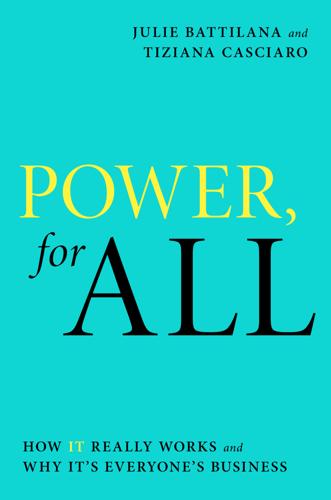
Power, for All: How It Really Works and Why It's Everyone's Business
by
Julie Battilana
and
Tiziana Casciaro
Published 30 Aug 2021
And when, as they often did, clients spontaneously asked for an extra service, like cleaning the windows or the ceiling fan, renegotiating the price was often uncomfortable and, with Sandra’s limited English, just plain hard. These working conditions represent the reality for most domestic workers, today and throughout history. Some sixty-seven million domestic workers worldwide—one out of twenty-five women workers—operate quasi invisibly, many of them as part of the informal economy, in the private confines of people’s homes, caring for their children, cleaning their rooms, and tending to the elderly.45 The work is intimate and mostly unregulated. In the United States, domestic workers, alongside farmworkers, were excluded from New Deal worker-protection laws. As Palak Shah, the social innovations director of the National Domestic Workers Alliance in the United States, told us, “these labor markets have been informal, invisible, and underground for generations.
…
Even though the companies that engage with these purportedly “self-employed contractors” cannot operate their businesses without them, they have unilateral control over their working conditions. So, the health and financial risks of cycling through busy cities or maintaining their cars fall on the workers, while the benefits (from selling highly priced shares) accrue to the owners. Even with better legal protections for workers in the gig and informal economies, however, true power sharing requires that organizations be redesigned. To see how, let’s return to Sandra Lopez. Her working conditions have evolved significantly: She now uses an application called Up & Go that matches her to clients across the city. You might assume that Up & Go, like Uber or DoorDash, holds tremendous power over Sandra because it controls access to her critical resource—her clients.

Sunbelt Blues: The Failure of American Housing
by
Andrew Ross
Published 25 Oct 2021
During the Great Recession, even budget tourism was slack, so the owners turned to weekly and monthly rentals to fill their rooms. There was no shortage of takers: families like the Warrens, unable to fully recover from the foreclosure trauma; tourism employees scrambling to make ends meet on a poverty wage; hustlers working the informal economy; and homeless people with just enough income from government checks and panhandling to move themselves off the street. THE SANDPIPER The Sandpiper Inn offers cheap nightly rates, and not much else. Like some other budget motels on 192, it charges guests a small “resort fee” on top of their bill, but no one would mistake the Sandpiper for a resort.
…
The 2019 HUD count showed that 44 percent of the homeless in Florida and 72 percent of those in California were unsheltered, for example, well above the national average of 35 percent.7 During the time I spent in Osceola’s woods, I found that the camps accommodate a wide range of people—most of them working in some aspect of the informal economy, though some are employed in full-time regular jobs. A goodly number have been woods dwellers for a decade or more. Others are more recent casualties of the low-road economy—shunted out of stable employment, starved of income, and fallen prey to the drug addictions and mental health problems that chase poverty.
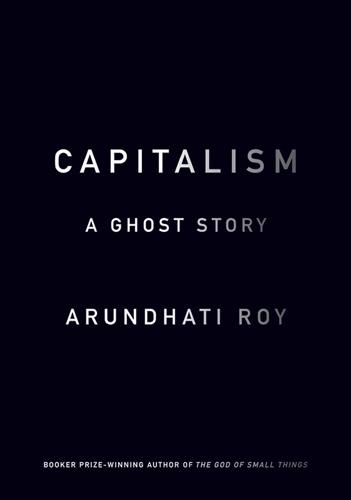
Capitalism: A Ghost Story
by
Arundhati Roy
Published 5 May 2014
The state-supported study notes that though a “buoyancy in the economy did lead to a sense of euphoria by the turn of the last century . . . a majority of the people . . . were not touched by this euphoria. At the end of 2004–5, about 836 million or 77 per cent of the population were living below Rs.20 a day and constituted most of India’s informal economy” (1). 6. As of March 2013, Mukesh Ambani was worth $21.5 billion, according to a Forbes profile: http://www.forbes.com/profile/mukesh-ambani/. 7. “RIL Buys 95% Stake in Infotel Broadband,” Times of India, June 11, 2010, http://articles.timesofindia.indiatimes.com/2010-06-11/telecom/28277245_1_infotel-broadband-broadband-wireless-access-spectrum-world-class-consumer-experiences. 8.
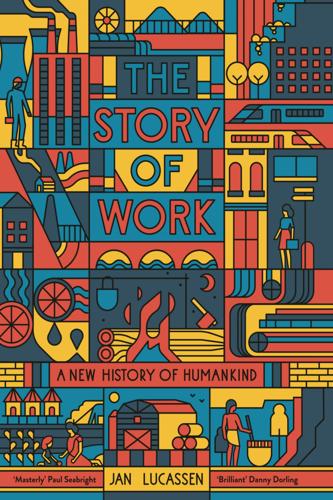
The Story of Work: A New History of Humankind
by
Jan Lucassen
Published 26 Jul 2021
This is not surprising for a country that stands on the cusp of ageing, something that has already begun in Japan and South Korea.3 Fourthly, and certainly not unimportant, for most states, globalization means an erosion of democratic decision making at the national level. Capital is withdrawing itself from the rules of play agreed within nation states. But it is also taking labour with it with the rise of the informal economy, if we define this as ‘socially legitimate [in contrast to the criminal economy] paid work that is not declared to, hidden from, or unregistered with, the authorities for tax, social security and/or labour law purposes when it should be declared’. Where capital cancels the national contract, labour reaps the bitter benefits.
…
In the European Union, some 10 per cent of the total labour input in the private sector is in the informal sector, representing 14.3 per cent of total gross value added (GVA, varying from 25 per cent in Poland, Romania and Lithuania to 7 per cent in Germany). It is even more impressive beyond Europe, with some 60 per cent of non-agricultural workers – based on a survey of 36 developing countries – being primarily employed in the informal economy.4 Seen in this light, globalization means the termination of the national social contract in the North Atlantic, or the failure to pursue it where it has already been weak for a long time. Large companies choose countries with low production costs (including low wages) and low taxes and pay their top management and shareholders from the increased profits.
…
‘Inequalities in Food Security and Nutrition: A Life Course Perspective’, Inaugural lecture, Wageningen University, 4 December 2014. Brass, Tom & Marcel van der Linden (eds). Free and Unfree Labour: The Debate Continues (Bern: Peter Lang, 1997). Breman, Jan. Taming the Coolie Beast: Plantation Society and the Colonial Order in Southeast Asia (New York: OUP, 1989). Breman, Jan. Footloose Labour: Working in India’s Informal Economy (Cambridge: CUP, 1996). Breuker, Remco E. & Imke B.L.H. van Gardingen (eds). People for Profit: North Korean Forced Labour on a Global Scale (Leiden: Leiden Asia Centre, 2018). Brewer, Douglas. ‘Agriculture and Animal Husbandry’, in Toby Wilkinson (ed.), The Egyptian World (London/New York: Routledge, 2007), pp. 131–45.

Nexus: A Brief History of Information Networks From the Stone Age to AI
by
Yuval Noah Harari
Published 9 Sep 2024
Each day billions of us conduct numerous transactions with the tech giants, but one could never guess that from our bank accounts, because hardly any money is moving. We get information from the tech giants, and we pay them with information. As more transactions follow this information-for-information model, the information economy grows at the expense of the money economy, until the very concept of money becomes questionable. Money is supposed to be a universal measure of value, rather than a token used only in some settings. But as more things are valued in terms of information, while being “free” in terms of money, at some point it becomes misleading to evaluate the wealth of individuals and corporations in terms of the amount of dollars or pesos they possess.
…
To produce AI that recognizes images, you need cat photos. To produce the trendiest fashion, you need data on fashion trends. To produce autonomous vehicles, you need data about traffic patterns and car accidents. To produce health-care AI, you need data about genes and medical conditions. In a new imperial information economy, raw data will be harvested throughout the world and will flow to the imperial hub. There the cutting-edge technology will be developed, producing unbeatable algorithms that know how to identify cats, predict fashion trends, drive autonomous vehicles, and diagnose diseases. These algorithms will then be exported back to the data colonies.
…
These algorithms will then be exported back to the data colonies. Data from Egypt and Malaysia might make a corporation in San Francisco or Beijing rich, while people in Cairo and Kuala Lumpur remain poor, because neither the profits nor the power is distributed back. The nature of the new information economy might make the imbalance between imperial hub and exploited colony worse than ever. In ancient times land—rather than information—was the most important economic asset. This precluded the overconcentration of all wealth and power in a single hub. As long as land was paramount, considerable wealth and power always remained in the hands of provincial landowners.
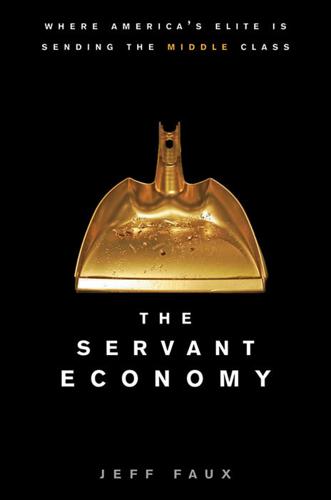
Servant Economy: Where America's Elite Is Sending the Middle Class
by
Jeff Faux
Published 16 May 2012
Projections by the Bureau of Labor Statistics in 2006 concluded that by 2014 the number of occupations filled by people with college degrees will rise by merely 1 percent, from 28 to 29 percent. The share of jobs for which a college education will actually be required is projected to be just 21 percent.6 It turned out that much of the job and wealth creation associated with the information economy was tied to the making of goods; success results from setting trained people to work on problems in the context of day-to-day production, whether of sneakers, automobiles, pharmaceuticals, or Hollywood films. The more we offshored production jobs, the more we offshored research and development as well.
…
Government from attempting to force its subsidiaries to conform to American interests.”16 In 1995, the CEO of the Ford Motor Company said, “Ford isn’t even an American company, strictly speaking. We’re global. We’re investing all over the world. . . . Our managers are multinational. We teach them to think and act globally.”17 In 2006, the CEO of Cisco Systems—poster company for the information economy—went a step further: “What we are trying to do is outline an entire strategy of becoming a Chinese company.”18 And the CEO of Intel—a company like Cisco, whose growth was built on technology paid for by the American taxpayer—stated, “Intel can thrive today and never hire another American. It is not our desire [to never hire another one].
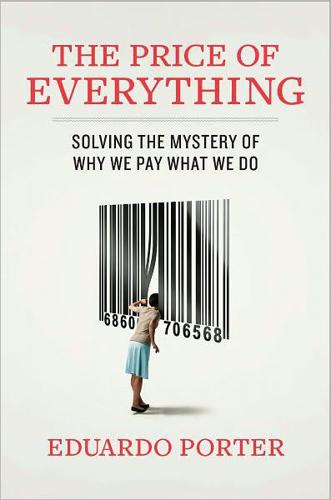
The Price of Everything: And the Hidden Logic of Value
by
Eduardo Porter
Published 4 Jan 2011
This surpassed the sales of the previous two albums, Hail to the Thief and Amnesiac . Pumped by the enormous publicity surrounding the album’s release, the subsequent concert tour was a smashing hit. To believers in the transformational potential of the Internet, Radiohead’s experiment suggested that the information economy could revolutionize capitalism by allowing creators to make a living while giving away their creations for free. This new economy might require people to radically change their approach to property. But In Rainbows demonstrated that if creators would free themselves of the capitalistic shackles represented by record labels, Hollywood studios, and other representatives of corporate greed that siphoned off a big slice of their revenues, this new paradigm could work out for everybody.
…
Giulio Prisco, a former scientist at CERN who founded Metafuturing Second Life, an Internet services company, added: “You cannot stop a tide with a spoon.” Perhaps not. The media companies that rose in the twentieth century might be irrevocably doomed. Record labels might disappear. But I doubt that free information will ever be the natural state of affairs in a capitalist economy. In fact, I would wager that whatever the information economy looks like ten years from now, information in it will not be free. The last battle over free might serve as an illustrative precedent. Music piracy didn’t exist until the late eighteenth century because property rights didn’t cover music compositions. Agents from opera companies would attend the opening nights of their rivals to “steal” the best melodies and reuse them in their own dramas.
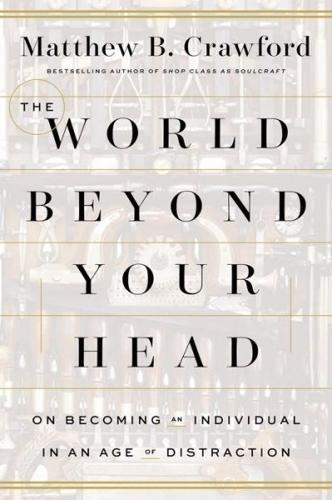
The World Beyond Your Head: On Becoming an Individual in an Age of Distraction
by
Matthew B. Crawford
Published 29 Mar 2015
.® When I got to my hotel, I was handed a key card that was printed on one side with an advertisement for Benihana, the restaurant. Somehow, the fact that such a key card presents about five square inches for inevitable eyeballing had gone unnoticed, or rather unmonetized, until recently. Capitalism has gotten hip to the fact that for all our talk of an information economy, what we really have is an attentional economy, if the term “economy” applies to what is scarce and therefore valuable. As these last examples illustrate, the pertinent development here is a social technology, not something electronic. Turning unavoidable public surfaces into sites of marketing isn’t inherently “digital.”
…
escaping of, through abstraction as inflicted by world of objects Kant on will and heuristics hipsters Hobbes, Thomas on “war of all against all” homosexuality Houk, Peter How to Keep Your Volkswagen Alive (Muir) Huffington Post human beings conflicting views on environmental claims on as evaluative creatures potential capabilities of hunches Husserl, Edmund HVAC system hyperpalatable stimuli hypocrisy IBM ice hockey hockey stick intimacy in motorcycling and puck-handling finesse and mastery in rules as jigs in identity theft Igo, Sarah immune system imperfect contingency independence individualism epistemic paradox of in U.S. individuality conformity vs. Fichte on other people and as passé subjectivism and see also self infants gaze-checking by learning by perfect contingency in minds of inference infidelity information economy information technology inheritance installment plan “Intelligence Without Representation” (Brooks) “Intelligent Use of Space, The” (Kirsh) intensification of nervous stimulation intentionality interactionism introspection Iraq War Italy Jacksonian era jail, staying out of James, William James-Lange theory of emotions Japan “jazz hands” jazz musicians, collaborative improvisation of Jefferson, Thomas jigs, jigging administrative background cultural for hire nudging vs.
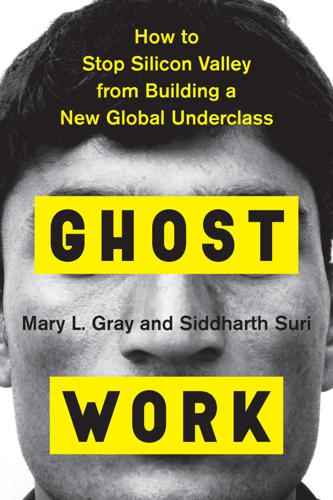
Ghost Work: How to Stop Silicon Valley From Building a New Global Underclass
by
Mary L. Gray
and
Siddharth Suri
Published 6 May 2019
The door opened by the Supreme Court’s 1944 decision to interpret the Fair Labor Standards Act as covering all workers was closed by the Taft-Hartley Act’s explicit litmus tests and classifications for full-time employment and independent contractor work. This change also created a new class of non-unionized, expendable labor more valuable to the rapidly expanding service industry sectors and so-called information economy that was now booming in telecommunications, aerospace, and consumer retail. In sum, companies selling everything from advertising to space exploration could grow without investing in long-term, full-time employees. TEMPORARY COMPUTERS SENT US TO THE MOON The erosion of labor protections for workers seen as “unskilled” but working outside of unionized manual jobs moved like water through cracks, exploiting and capitalizing on society’s assumptions about whose work needed protection and who was worth protecting.
…
Firms used to invest in individuals early in their careers to retain a steady, on-site workforce. Keeping costs down meant gaining loyalty and longevity, striving for workforce diversity to get the most of distinct perspectives; this model no longer fits today’s highly specialized, always updating service and information economies. If on-demand work is a harbinger of the future, it’s noteworthy that traditional employment contracts are being replaced by a platform’s “terms of service.” The obligations in these agreements spell out the limits of what a worker can expect from the platform. They rarely detail how a worker would ever challenge work conditions, beyond deleting their account.
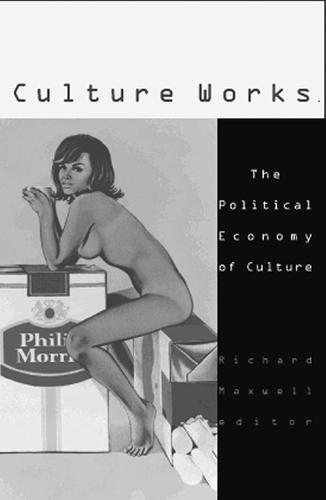
Culture works: the political economy of culture
by
Richard Maxwell
Published 15 Jan 2001
Kerry as Masculine Melodrama,” in SportCult, ed. Randy Martin and Toby Miller (Minneapolis: University of Minnesota Press, 1999), 191. 46. Quoted in R. Snoddy, “Alliances for a Digital Future,” Financial Times, December 11, 1996, 1. 47. Quoted in C. Bruck, “The Big Hitter,” New Yorker, December 8, 1997, 826. 48. Forefronting the new informational economy is a species of economically and culturally imposing global media corporations such as Time Warner, Disney, Viacom, Sony, Seagram, Bertelsmann, Granada, and News Corporation. These purveyors of variously formatted mass-mediated cultural products represent the dynamic force in the latecapitalist economy, occupying much the same role as mass-manufacturing titans such as Ford, General Motors, General Electric, Dupont, and Westinghouse Electric did in the industrial economy.
…
It has been created and maintained by programmers working over the Internet on a largely voluntary basis, and is legally organized by what people are calling an Open Software License, wherein one not only can use it free of charge, but one can have access to the source code for further modification and improvement as long as those improvements are published and shared. Source code is at the heart of all forms of software. This is what companies and intellectual property lawyers fight so rabidly to protect and to market; it is the commodity par excellence of the so-called information economy. Linux, however, is the flagship of the Open Software movement, which sees itself in a struggle against the protection and marketing of source code. Open Software is in one view a kind of political movement against the commodification of information. And it has been making some significant inroads among computer users, which in turn has inspired emulation by some of the major firms in the industry.
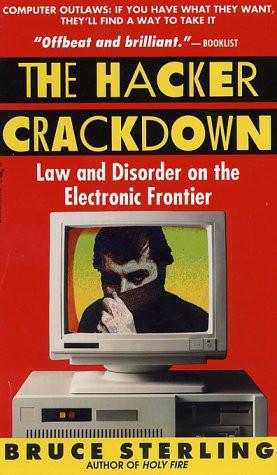
The Hacker Crackdown
by
Bruce Sterling
Published 15 Mar 1992
In a campus environment, though, this meant that grad students, teaching assistants, undergraduates, and eventually, all manner of dropouts and hangers-on ended up accessing and often running the works. Universities, even modern universities, are not in the business of maintaining security over information. On the contrary, universities, as institutions, pre-date the "information economy" by many centuries and are not-for-profit cultural entities, whose reason for existence (purportedly) is to discover truth, codify it through techniques of scholarship, and then teach it. Universities are meant to PASS THE TORCH OF CIVILIZATION, not just download data into student skulls, and the values of the academic community are strongly at odds with those of all would-be information empires.
…
He was, however, blithely running a not-for-profit AT&T software-piracy ring. This was not an activity AT&T found amusing. AT&T security officer Jerry Dalton valued this "stolen" property at over three hundred thousand dollars. AT&T's entry into the tussle of free enterprise had been complicated by the new, vague groundrules of the information economy. Until the break-up of Ma Bell, AT&T was forbidden to sell computer hardware or software. Ma Bell was the phone company; Ma Bell was not allowed to use the enormous revenue from telephone utilities, in order to finance any entry into the computer market. AT&T nevertheless invented the UNIX operating system.
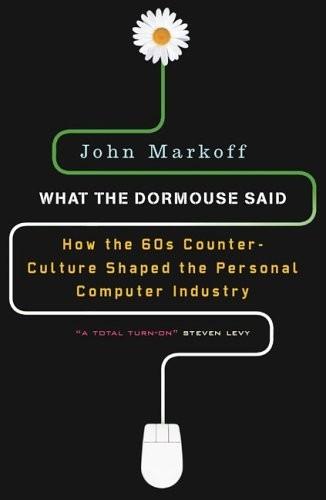
What the Dormouse Said: How the Sixties Counterculture Shaped the Personal Computer Industry
by
John Markoff
Published 1 Jan 2005
It seemed only logical to him that it was all about media coverage, and he was determined to become a top executive at CBS, which would enable him to make the changes from the inside. It didn’t work out that way, however, and two years later he was back at Stanford, where he received a graduate degree in economics. He coined the term “information economy,” went to work for Apple Computer, and later became the cofounder of General Magic, one of Silicon Valley’s ill-starred start-up companies. The West Coast counterculture acted like a magnet for thousands of young people around the country. Dorothy Bender picked the Summer of Love to leave Washington, D.C., and come to California.
…
Certainly Stolaroff’s impact on the history of the computer was less direct than those of Engelbart and Moore. But his obsession with creativity and psychedelics unleashed forces the impact of which has never been adequately acknowledged. In their individual ways, all three men helped lay the groundwork for the personal computer, which in turn during the past three decades has given risen to the information economy. Today, that industry embodies some of what all three men dreamed of. It has spread the conflict over the dual nature of digital information into every nook and cranny of modern life. In league with Hollywood and publishers, Microsoft and Intel have now embarked on a crusade to build computer software and hardware that wraps information with a protective layer of encryption designed to prevent sharing via computer networks.
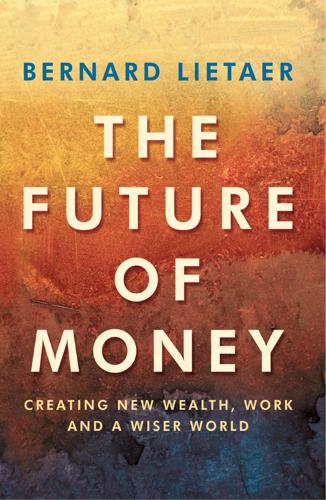
The Future of Money
by
Bernard Lietaer
Published 28 Apr 2013
Some people foresee the spread of a 'Winner-Takes-All' economic environment.81 The trend towards increasingly exorbitant compensation for the very few at the top has been notorious. It started with movie stars, entertainment and sports heroes, and spread over the past decade to high-performance CEOs, traders, lawyers and doctors. Is this just a strange shift in societal values, or is this also a consequence of deep-seated forces in the information economy? The 'network economist' Brian Arthur claims that positive marginal rates of return can propel some corporations into an almost impregnable monopoly. For instance, once a particular software moves towards becoming an industry standard, it will tend automatically to crowd out competitors until it captures 100% of the market.
…
The most coherent management structure in such circumstances is the traditional command and control hierarchical structure, which is now almost ubiquitous. However, as breakdowns and crises spread to many domains (e.g. global monetary system, government, education, environment, jobs, etc.) if the transition towards an information economy becomes indeed an 'Age of Uncertainty’ then the time is ripe to reconsider the old organisational assumptions. Under such circumstances, holding on to the old expert-driven, hierarchical command and control structures will predictably kill the very innovations that the circumstances require.
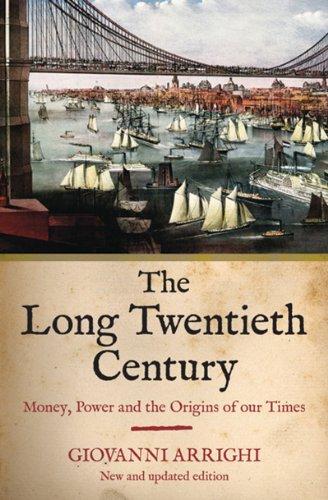
The Long Twentieth Century: Money, Power, and the Origins of Our Times
by
Giovanni Arrighi
Published 15 Mar 2010
Pollard, Sidney, “Fixed Capital and the Industrial Revolution in Britain,” ]ournal of Economic History, 24, 1964, pp. 299-314. “Capital Exports, 1870-1914: Harmful or Beneficial?” Economic History Review, 2nd ser., 38, 1985, pp. 489-514. Portes, Alejandro, “Paradoxes of the Informal Economy: The Social Basis of Unregulated Entrepreneurship,” in N.J. Smelser and R. Swedberg, eds., Handbook of Economic Sociology, Princeton, NJ: Princeton University Press 1994, in press. Portes, Alejandro, Manuel Castells, and Lauren A. Benton, eds., 77Je Informal Economy, Studies in Advanced and Less Developed Countries, Baltimore, MD: The Johns Hopkins University Press 1989. Postma, Johannes Menne, 77Je Dutcb in tbe Atlantic Slave Fade, 1600-1815, Cambridge: Cambridge University Press 1990.
…
Farnie, D.A., 771e Eng is/7 Cotton Industry and tbe 1%rld Mar/eet, 1815-1896, Oxford: Clarendon Press 1979. REFERENCES 393 Favier, Jean, Les Finances pontificales a l ’e’poque du grand scbisme d ’Occident, 1378-1409, Paris: Boccard 1966. Feige, Edgar, “Defining and Estimating Underground and Informal Economies: The New Institutional Economic Approach,” I%rld Development, 18, 7, 1990, pp.989—1002. Fieldhouse, D.K., 771e Colonial Empires:/1 Comparative Survey fiom tbe Eigbteentb Century, New York: Delacorte 1967. Fishlow, Albert, “Lessons from the Past: Capital Markets During the 19th Century and the Interwar Period,” in M.
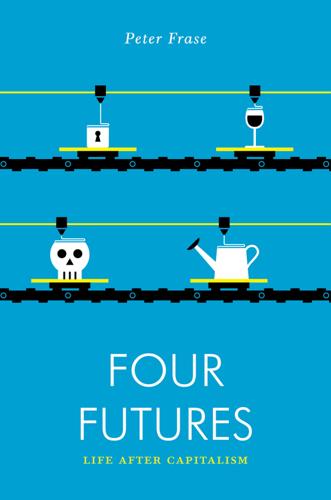
Four Futures: Life After Capitalism
by
Peter Frase
Published 10 Mar 2015
Off the coast of Lagos, Nigeria, a group of Lebanese developers are building a private city, Eko Atlantic, intended to house 250,000. It is to be “a sustainable city, clean and energy efficient with minimal carbon emissions.”14 It is also going to be a place where the elite can escape from the millions of nearby Nigerians who live on less than a dollar a day and scrounge in the informal economy. Another island, the island of Manhattan, is also gradually being turned into an enclave of the global rich: in 2014, over half of Manhattan real estate sales worth $5 million or more were to foreigners or anonymous buyers behind shell companies (most of whom are believed to be non-American).15 These purchases serve the dual purpose of laundering money and hiding it from prying governments, as well as providing a landing place in case of unrest in their home countries.

Mexico - Culture Smart!
by
Maddicks, Russell;Culture Smart!;
Published 15 Nov 2023
Huerta’s 2022 book Orgullo Prieto (Dark-Skinned Pride) challenges the argument that “Somos todos mestizos” (“We are all mixed race”) and calls for an end to the racism that holds back Black, brown, and Indigenous Mexicans. LIVING FOR THE MOMENT In a society where the uncertainties of life can easily throw a curveball at a person’s best-laid plans and many people survive day to day on what they can make in the informal economy, it’s perhaps not surprising that people have developed an attitude that prioritises living for the moment. In rural communities and in the poorer barrios of Mexico’s cities, the monotony of the daily grind is broken up only by the annual cycle of family get-togethers, religious celebrations, and national holidays, and people make sure they make the most of these events.
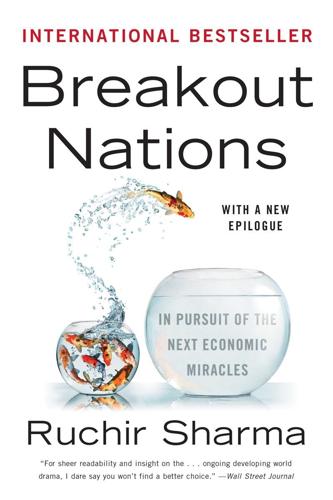
Breakout Nations: In Pursuit of the Next Economic Miracles
by
Ruchir Sharma
Published 8 Apr 2012
Adcorp, South Africa’s largest employment-services company and a leading authority on labor-market trends, calls this split a “new apartheid” and warns that, in the worst-case scenario, it could lead to an upheaval that pits the unemployed rural masses against the privileged urban job holders. Today the 2 million COSATU members are greatly outnumbered by the 6.4 million unemployed, the 3.7 million who do freelance work through labor contractors, and the 2 million-plus working in the informal economy. To date, however, the unemployed are not organized, and they are rebelling only through channels that do not threaten the ANC. While there is scuttlebutt about corruption in powerful places, there is little visible sign of it. No leader is building a vast palace that would attract public protest and serve as the ramparts of his last stand in office.
…
Rates of alcoholism and of street crime are also extremely high: visitors are advised not to walk outside their Johannesburg hotels even in broad daylight, or stop at traffic lights at night, and it is impossible to meet anyone in the capital who has not been a violent-crime victim or known one. Why the Unemployed Masses Are Not Angry at the ANC The sprawling black market for labor may be siphoning off some of the discontent over the official unemployment rate. As many as one out of four workers has a job in the informal economy. At every traffic light and street corner, hawkers sell just about anything from jeans to sunglasses, or hire themselves out as day labor. Unlike surprised citizens in nations like Greece or Spain, where unemployment is climbing today, these South Africans have never experienced better economic times.
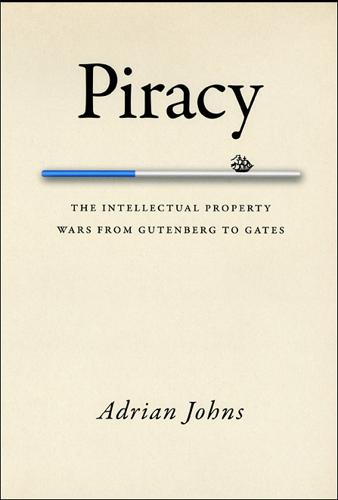
Piracy : The Intellectual Property Wars from Gutenberg to Gates
by
Adrian Johns
Published 5 Jan 2010
They reach, in fact, to the defining elements of modern culture itself: to science and technology; to authorship, authenticity, and credibility; to policing and politics; to the premises on which economic activity and social order rest. That is why the topic of piracy causes the anxiety that it so evidently does. Ours is supposed to be an age of information – even of an information revolution. Yet it suddenly seems as though enemies of intellectual property are swarming everywhere, and the ground rules for an information economy are nowhere secure. Universities find themselves havens for countless devotees of filesharing software, making blithe use of services that the recording industry condemns flatly as piracy. Biotechnology companies, testing genetically modified organisms in Indian cotton fields, accuse local farmers of being “seed pirates” when they use part of one year’s crop as seed for the next.
…
In 1950 Congress and the White House finally settled on a National Science Foundation that would be based on Bush’s design, not Kilgore’s or Wallace’s. Pure science, expert appraisal, and a patentbased structure of public and private research prevailed as policy. The scientific commons shrank into an ideal. intellectual property versus information economy The years of these conflicts saw the inauguration of a series of disciplines dedicated to understanding the sciences and their place in society. Between 1920 and 1945 one can see the beginnings of, for example, sociologies of invention (in S. C. Gilfillan’s Sociology of Invention), science (in R.
…
Because more things fall under the aegis of intellectual property today than ever before – including recordings, algorithms, digital creations, genes, and even living organisms – practices that until relatively recently would not have seemed even potentially piratical may now be deemed actually so. Meanwhile, as the information economy has grown, so it seems that piracy has metastasized beyond anyone’s ability to understand and master it. Some of its species are industries in their own right. In political and economic rhetoric the accusation of piracy has become the indictment of the age, and a ubiquitous element in the framing of national and international trade politics.
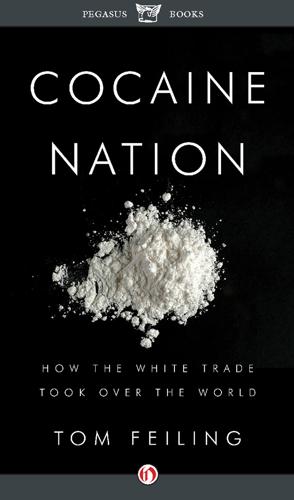
Cocaine Nation: How the White Trade Took Over the World
by
Thomas Feiling
Published 20 Jul 2010
They ensconced themselves as best they could in the shanty towns that sprang up on the peripheries of cities like Lima, Caracas and Kingston. For millions, their first experience of urban life also gave them their first taste of what it meant to be illegal. They worked, if they worked at all, in the informal economy, where their wages went untaxed. They often had no access to basic services, and found themselves maligned by mainstream society and unable to count on the protection of the law. Many of these migrants from countryside to city kept going until they arrived in the United States. In the space of twenty years, traditional village-based societies in countries like the Dominican Republic, Haiti and Guatemala, whose members had been schooled to have strong moral objections to drugs and criminality by the Catholic Church, were uprooted and transplanted into urban milieux.
…
The destitute have latched on to paco, which is made from leftovers from cocaine processing. There has also been an epidemic of crack use among the street children of Mexico City. But to adduce increases in rates of drug use in Mexico to poverty would be to miss the real changes afoot. Most street children get food and shelter from charities and NGOs. They make money in the informal economy, guarding market stalls, picking up rubbish to sell, unloading trucks and the like, and that money goes on crack. More important than poverty in driving the rise in cocaine consumption in Third World countries is the fragility of the family. As more women go out to work, many machista men respond to their partners’ newfound independence with violence.
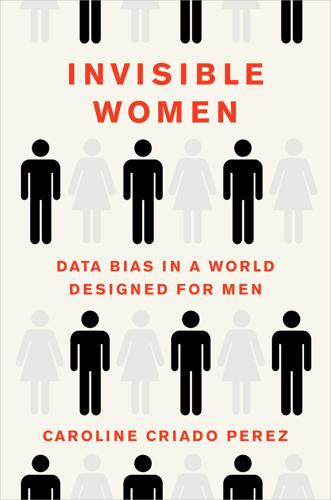
Invisible Women
by
Caroline Criado Perez
Published 12 Mar 2019
Women get up before dawn and then wait for hours until dusk to go out again in search of a relatively private place to urinate or defecate.12 And this isn’t just a problem in poor countries: Human Rights Watch spoke to young girls working in tobacco fields in America and found that they would ‘refrain from relieving themselves at all during the day – aided by avoiding drinking liquids, which increased their risk of dehydration and heat illness’.13 This affects women’s paid labour: women make up 91% of the 86% of Indians who work in the informal economy. Many of these women work as market vendors, and no public toilets means they have nowhere to go during the workday.14 In Afghanistan, female police officers go to the toilets in pairs, because their changing and toilet facilities (described by an international advisor to Human Rights Watch as ‘a site of harassment’) often have peepholes or doors which don’t lock.
…
A 2011 survey by Japan’s labour ministry found that ‘more than a third of married women who worked part time and deliberately curtailed their hours did so to keep the tax deduction’.26 In a slightly different example of a hidden gendered bias, Argentina’s tax system provides a rebate almost four times higher for employees than for the self-employed. Gender comes into it because men are more likely to be employed in the formal economy, while women are more likely to be self-employed in the informal economy.27 So the tax system is essentially covertly giving a higher rebate to men than to women. There’s a fairly simple reason why so many tax systems discriminate against women, and that is that we don’t systematically collect data on how tax systems affect them. In other words, it’s because of the gender data gap.

Distrust That Particular Flavor
by
William Gibson
Published 3 Jan 2012
In the age of wooden television, media were there to entertain, to sell an advertiser’s product, perhaps to inform. Watching television, then, could indeed be considered a leisure activity. In our hypermediated age, we have come to suspect that watching television constitutes a species of work. Postindustrial creatures of an information economy, we increasingly sense that accessing media is what we do. We have become terminally self-conscious. There is no such thing as simple entertainment. We watch ourselves watching. We watch ourselves watching Beavis and Butt-Head, who are watching rock videos. Simply to watch without the buffer of irony in place, might reveal a fatal naïveté.
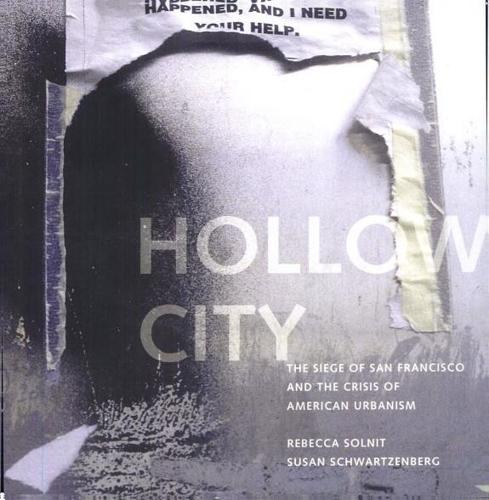
Hollow City
by
Rebecca Solnit
and
Susan Schwartzenberg
Published 1 Jan 2001
losing A appeal to vacation travelers, its developer tells me Fisherman's Wharf, completing American economy: from risks if not to business that dot-coms are its a place moving into passage through the peristaltic of food production with and sensory aspects such labor can provide; to the all a tourist site celebrating that food and labor; to another white-collar worksite for an information economy that could be icon Wharf, the developer notes, is its located anywhere Sil- nickname. Meanwhile, a dot-com has leased the top floor of the Cannery, the fruit and food canning factory whose 1967 conversion into a mall style for — sea- set the such conversions around the country.^ These transforma- tions could be read as the return of labor after sure or as a further deterioration of the life an interlude of lei- of the senses and the further homogenization of the world.
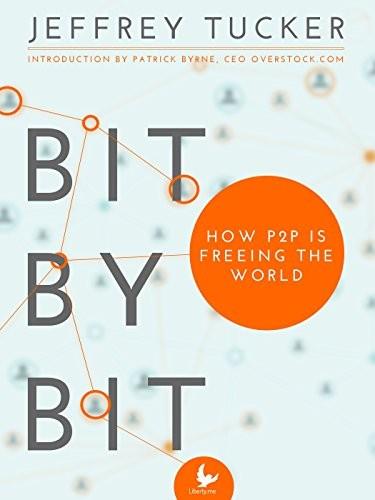
Bit by Bit: How P2P Is Freeing the World
by
Jeffrey Tucker
Published 7 Jan 2015
Marcus for his editorial eye, the team at Liberty.me for showing what progress means, all my teachers in the bitcoin space, Andreas Antonopoulos for radical and inspirational punditry, Laurie Rice for social media and intellectual mastery, Patrick Byrne for corporate leadership and his introduction, Stephan Kinsella for showing me about the magic of information economies, all the god-like brains from the past whose immortal writings have inspired me, and countless others who have added their wits and wisdom to my thinking on this topic. It’s a crowd-sourced book. It’s a crowd-sourced world. Always has been. I. Liberation Ms. Fereshteh Forough, scientist and philanthropist, grew up as a refugee in Iran.
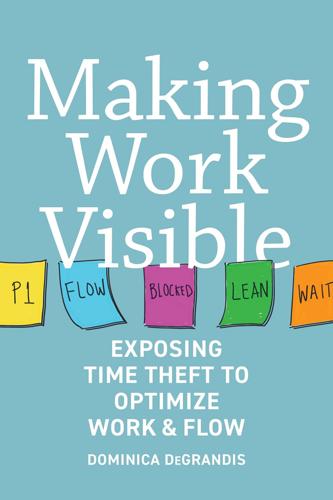
Making Work Visible: Exposing Time Theft to Optimize Workflow
by
Dominica Degrandis
and
Tonianne Demaria
Published 14 May 2017
With these ancient time-tracking tools came the earliest forms of scheduling—when to plant crops and bring in the harvest, when to conduct commerce, and when to perform daily rituals such as eating or sleeping. Fast forward to today. Despite all our modern “conveniences,” effective time management has for many become an uphill battle, an all-consuming if not quixotic goal. While the Information Economy ushered in 24/7 connectivity, it likewise begot round-the-clock expectations, and so, paradoxically, technology like mobile phones and email and video conferencing—tools that would ostensibly make life easier—often enslave us. We allow the chaos of modern work coupled with an often paralyzing number of options at our disposal to overload us, to distract us, to stealthily steal our time and focus and ultimately impede our effectiveness.
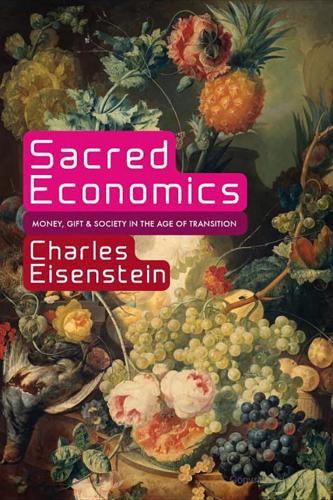
Sacred Economics: Money, Gift, and Society in the Age of Transition
by
Charles Eisenstein
Published 11 Jul 2011
Frightening as that is to those (including myself) who are wary of the surveillance state, my response to that concern is, “Too late.” Already today nearly all important transactions are done electronically anyway, with the notable exception of those involving illegal drugs. Cash is also used extensively in the informal economy to help people avoid taxes, a motive that would disappear if taxation were shifted away from incomes and onto resources as I propose. Moreover, there is no reason why unofficial currencies shouldn’t thrive alongside the official, negative-interest electronic currency. Whether these are electronic or paper depends on the application: probably commercial barter rings and credit-clearing cooperatives would use electronic money while local, community-based currencies might prefer paper.
…
Commercial credit-clearing rings, mutual factoring systems, and commercial barter networks, which I will discuss later, are other ways that information technology is reducing the role of centralized intermediary institutions. All of these developments will reduce GDP by lowering spending on “financial services.” Because these ever-cheaper “information economy” services are a factor of production in nearly every other sector, degrowth here is contagious. This is true even in industries that we think of as growth industries. In 2000, for example, $371 billion was spent on PC hardware, including printers, servicing, and data storage. By 2009, this had shrunk to $326 billion.

Moon Mexico City: Neighborhood Walks, Food & Culture, Beloved Local Spots
by
Julie Meade
Published 7 Aug 2023
It also plays a big role in the service economy and is the headquarters of all of the dominant media and communications conglomerates. THE INFORMAL ECONOMY As they have for generations, many new immigrants to the city begin their new urban lives hawking their modest wares from any street corner not already occupied by another seller. Driven in part by a desire to clean up the downtown area, city authorities have begun regular patrols to evict unlicensed vendors in the city’s central districts. In addition to ambulantes, there are thousands of housekeepers, nannies, cooks, chauffeurs, and other household employees working throughout the city as a part of the informal economy. POVERTY Mexico is a wealthy nation with abundant natural resources.

Born in Flames
by
Bench Ansfield
Published 15 Aug 2025
“To hasten the destruction of the building,” explained the National Fire Protection Association, “the arsonist may cut or bore holes in walls or floors, or open doors and windows to ventilate the fire and create greater draft conditions.”19 The job of the torch was wretched, violent work. It was also skilled work. To complete their task without getting injured, torches had to become proficient with fire science and the fundamentals of building construction and property insurance. They were the demolition workers of the informal economy. * * * though the torches incurred most of the legal and bodily risk involved with firesetting, it was the landlords who determined which buildings burned, and when. Predicting which buildings were at risk for arson was a difficult undertaking for tenants and investigators throughout the 1970s.
…
He and his research team installed a 1959 Oldsmobile in both the South Bronx and Palo Alto, removing the vehicles’ license plates and raising their hoods to create the appearance of abandonment. The Bronx car served as a “comparison,” with Zimbardo hypothesizing that it would not take long for Bronxites to dismantle it. He was correct; after only ten minutes, the informal economies of the Bronx made themselves known, and soon the car’s battery, radiator, and other contents had been taken. Although the research team was surprised that the first “vandals” were not people of color but, rather, a “well-dressed” white family, Zimbardo considered his basic hypothesis confirmed: the lack of community cohesion in the Bronx produced a sense of “anonymity,” which, in turn, generated antisocial behaviors.53 After the Palo Alto Oldsmobile went unscathed for a week, the research team moved the car to the campus of Stanford University, where they decided to “prime” it for vandals by taking a sledgehammer to its windows.
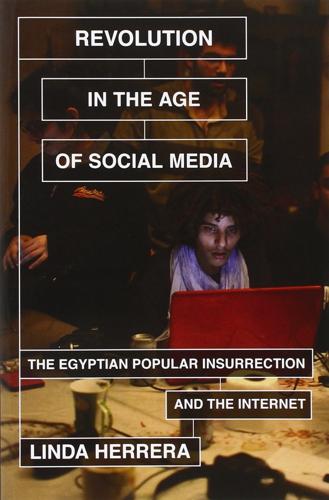
Revolution in the Age of Social Media: The Egyptian Popular Insurrection and the Internet
by
Linda Herrera
Published 14 Apr 2014
The meme-like spread of Mohamed Bouazizi seems to have traveled a path via social media similar to that traversed by Khaled Said. First was the grippingly tragic story of the martyr’s demise. Bouazizi was a twenty-six-year-old man from Tunisia’s interior region of Sidi Bouzid. He left high school early to work full-time in the informal economy as a fruit and vegetable vendor. As the eldest son in his family, he provided the primary support for his widowed mother and five younger siblings. Overwhelmed by the burden of fines, debts, and the humiliation of being serially harassed and beaten—in the end by a female police officer who literally struck the final blow to his dignity when she slapped him in public—he sought retribution.
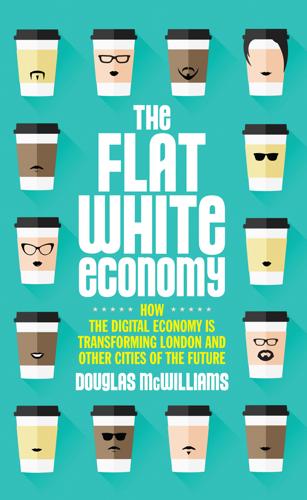
The Flat White Economy
by
Douglas McWilliams
Published 15 Feb 2015
In the days when this definition was invented, no one had ever envisaged that economically valuable research would be carried out by young(ish) kids playing at their desks with their computers in between other activities. But in the new digital economy this is how R&D mainly happens, and with the information economy being one of the largest parts of the world’s economy and certainly its fastest growing, this probably accounts for the bulk of the innovative activity that takes place anywhere in the world, and especially in the UK. The result is that the desk research conducted by government economists using the Frascati definition of research misses the key points – that the UK is not only one of the leading nations in the world for innovation but also for its dissemination.
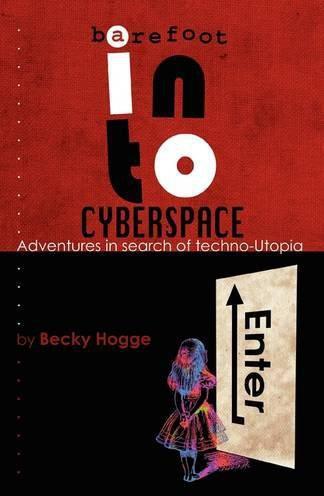
Barefoot Into Cyberspace: Adventures in Search of Techno-Utopia
by
Becky Hogge
,
Damien Morris
and
Christopher Scally
Published 26 Jul 2011
“Space War: Fanatic Life and Symbolic Death Among the Computer Bums.” Rolling Stone, December 7. http://www.wheels.org/spacewar/stone/rolling_stone.html. ———. 1974. “History – Demise Party etc.” Whole Earth Catalog, October. http://wholeearth.com/issue/1180/article/321/history.-.demise.party.etc. ———. 1985. “Keep Designing: How the Information Economy is Being Created and Shaped by the Hacker Ethic.” Whole Earth Review, May. Brandeis, Louis. 1913. “What Publicity Can Do.” Harpers Weekly. Burns, John F. 2010. “WikiLeaks Founder on the Run, Trailed by Notoriety.” The New York Times, October 23. http://www.nytimes.com/2010/10/24/world/24assange.html.
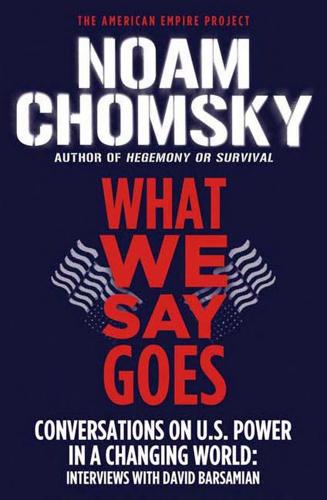
What We Say Goes: Conversations on U.S. Power in a Changing World
by
Noam Chomsky
and
David Barsamian
Published 1 Oct 2007
People are fleeing the devastated countryside, where the large majority lives, and essentially pouring into the Mumbai slums. The most serious economic analyses—not the rave reviews on the op-ed page of the Times but real analyses—indicate that maybe 80 percent of the population or so is in the informal economy, which is not even counted.20 In states such as Uttar Pradesh, which has about the same population as Pakistan, the conditions for women are probably worse than under the Taliban. Go around India, and that’s what you find. There is growth, which is good. They’re improving roads, they have a big software program, they do have great labs.
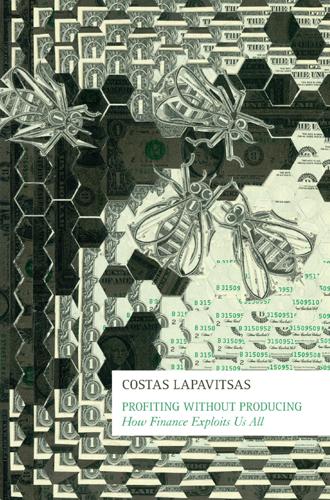
Profiting Without Producing: How Finance Exploits Us All
by
Costas Lapavitsas
Published 14 Aug 2013
Woodford, Michael, Interest and Prices: Foundations of a Theory of Monetary Policy, Princeton: Princeton University Press, 2003. Woodford, Michael, ‘Monetary Policy in a World without Money’, International Finance, 2:3, 2000, pp. 229-60. Woodford, Michael, ‘Monetary Policy in the Information Economy’, Economic Policy for the Information Economy, Jackson Hole, Wyoming: Federal Reserve Bank of Kansas City, 2001, pp. 297–371, Wray, L. Randall, ‘Financial Markets Meltdown: What Can We Learn from Minsky?’, Public Policy Brief No. 94, Annandale-on-Hudson, NY: Levy Economics Institute, April 2008. Wray, L. Randall, ‘Lessons from the Subprime Meltdown’, Working Paper No. 552, The Levy Economics Institute, 2007.
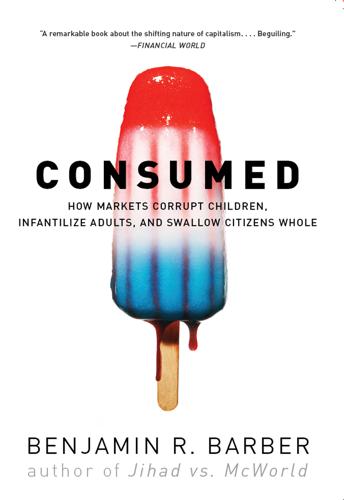
Consumed: How Markets Corrupt Children, Infantilize Adults, and Swallow Citizens Whole
by
Benjamin R. Barber
Published 1 Jan 2007
Bill Gates, Jr., had to do exactly the same in the new anarchic information society economy. He needed to control not just a single programming language, but also operating systems, networking, hardware development, consumer applications, business applications, internet browsers, communication and search applications, and everything else in the information economy on which a profit was to be made. Gates was seeking his own systematic solution to the chaos of early market relations in the digital software industry. As Chernow observes, Rockefeller had gotten hold of “a momentous insight, pregnant with consequences. Instead of just tending to his own business, he began to conceive of the industry as a gigantic, interrelated mechanism” that had to be managed through “strategic alliances and long-term planning…[replacing] competition with cooperation in the industry.”85 The new telecommunications industry of the 1990s needed the same remedy: “cooperation” as a euphemism for the suppression of competition, the elimination of choice, in a phrase, total domination.86 What Rockefeller in effect achieved then was not merely the deploying of the Protestant ethos to rationalize and explain the need for work, saving, investment, and giving as features of both world gain and spiritual salvation.
…
But psychologists teach that there are limits to how many choices we can actually entertain as well as limits to our capacity to calculate the benefits of alternative possibilities. Saatchi & Saatchi CEO Kevin Roberts, who ought to know, writes that “People are overwhelmed by the choices they face. Forget the Information Economy. Human attention has become our principal currency.” He cites Nicholas Negroponte at MIT media lab about the real nature of choice: “I don’t want 500 television channels,” says Negroponte. “I just want the one channel that gives me what I want to see.”39 What Kevin Roberts fails to see, however, is that the choice between five hundred television channels and a channel I really want to watch is the choice between private and public goods.
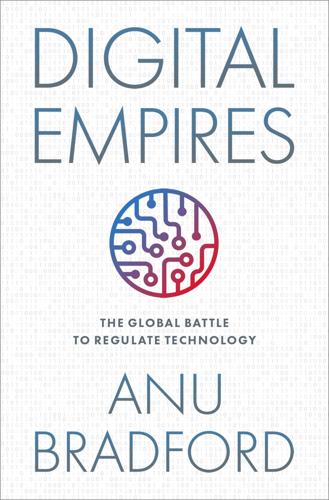
Digital Empires: The Global Battle to Regulate Technology
by
Anu Bradford
Published 25 Sep 2023
Trade & Indus., https://www.meti.go.jp/english/policy/mono_info_service/information_economy/digital_platforms/tfdpa.html (last updated Apr. 16, 2021). 144.Designation of Digital Platform Providers Subject to Specific Regulations Under the Act on Improving Transparency and Fairness of Digital Platforms, Japan Ministry Econ. Trade & Indus. (Apr. 1, 2021), https://www.meti.go.jp/english/press/2021/0401_001.html. 145.Key Points of the Act on Improving Transparency and Fairness of Digital Platforms, Japan Ministry Econ. Trade & Indus. 2 (2021), https://www.meti.go.jp/english/policy/mono_info_service/information_economy/digital_platforms/pdf/0401_001b.pdf. 146.Digital Platforms, Japan Ministry Econ.
…
Trade & Indus. 2 (2021), https://www.meti.go.jp/english/policy/mono_info_service/information_economy/digital_platforms/pdf/0401_001b.pdf. 146.Digital Platforms, Japan Ministry Econ. Trade & Indus., https://www.meti.go.jp/english/policy/mono_info_service/information_economy/digital_platforms/index.html (last updated Oct. 24, 2022). 147.Jeffrey J. Amato & Tomonori Maezawa, Japan: Japanese Legislature Passes Act to Regulate Big Tech Platforms, Winston & Strawn LLP (Jan. 12, 2021), https://www.mondaq.com/antitrust-eu-competition-/1024456/japanese-legislature-passes-act-to-regulate-big-tech-platforms. 148.Natsuko Sugihara, Japan’s Digital Platform Regulations, Clifford Chance (Aug. 31, 2021), https://www.cliffordchance.com/insights/resources/hubs-and-toolkits/talking-tech/en/articles/2021/08/japan-s-digital-platform-regulations.html. 149.Toshio Dokei et al., Recent Developments in Competition Law and Policy in the Digital Economy in Japan, Comp.
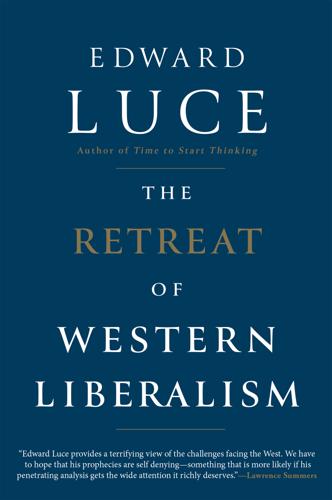
The Retreat of Western Liberalism
by
Edward Luce
Published 20 Apr 2017
Many of our jobs are squeezed by this invisible bargain – and if not our jobs, then our earnings, which never seem to rise. The result is to shrink the worth of the real economy by reducing most consumers’ ability to pay. Even for the owners of the siren servers, this will ultimately prove self-defeating: ‘The dominant principle of the new economy, the information economy, has lately been to conceal the value of information, of all things,’ Lanier says. ‘Ordinary people will be unvalued . . . while those closest to the top computers will become hypervaluable.’ After a while, the data elites may too feel the pinch. Their business model is the opposite of what Henry Ford did when he raised the wage he paid to factory employees to $5 a day, a sum that in the 1920s would afford a comfortable middle-class lifestyle.
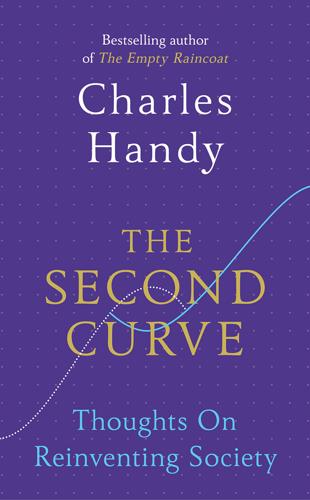
The Second Curve: Thoughts on Reinventing Society
by
Charles Handy
Published 12 Mar 2015
Will algorithms rule our lives, with formulae and programs for every eventuality? The uncertainties thrown up by the new media are worrying but technological change often produces more questions than solutions. Already, as I see it, too much of all that is new favours the few and not the many. Society is out of balance. Power is unequally distributed. In business, the information economy is turning into a winner-takes-all one, where the likes of Amazon, Facebook and Google dominate and gobble up any daring newcomer. We need to challenge orthodoxy, dream a little, think unreasonably and dare the impossible if we are going to have any chance of making the future work for all of us, not just those favoured few.
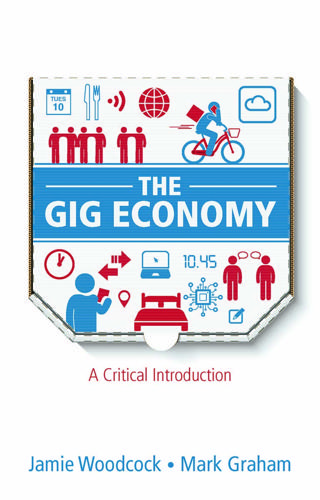
The Gig Economy: A Critical Introduction
by
Jamie Woodcock
and
Mark Graham
Published 17 Jan 2020
A starting definition for precarious work can be found with the International Labour Organization (ILO, 2011: 5), which defines it thus: In the most general sense, precarious work is a means for employers to shift risks and responsibilities on to workers. It is work performed in the formal and informal economy and is characterized by variable levels and degrees of objective (legal status) and subjective (feeling) characteristics of uncertainty and insecurity. Although a precarious job can have many faces, it is usually defined by uncertainty as to the duration of employment, multiple possible employers or a disguised or ambiguous employment relationship, a lack of access to social protection and benefits usually associated with employment, low pay, and substantial legal and practical obstacles to joining a trade union and bargaining collectively.
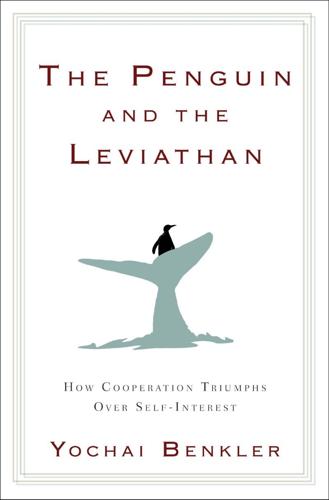
The Penguin and the Leviathan: How Cooperation Triumphs Over Self-Interest
by
Yochai Benkler
Published 8 Aug 2011
A few years ago, when I wrote my previous book, The Wealth of Networks, I spent more than five hundred pages trying to work out, in excruciating detail, whether and how the Internet is a fundamental, long-term change or simply a newer, faster vehicle for accessing, sharing, and disseminating the information we already had available. What I found was that the Internet has allowed social, nonmarket behavior to move from the periphery of the industrial economy to the very core of the global, networked information economy. Information and news, knowledge and culture, computer-mediated social and economic interactions form the foundation of everything in all aspects of our lives—from the pursuit of democracy and global justice, to the latest trends in business and media, to the best innovations in the most advanced economies.

Shadows of Empire: The Anglosphere in British Politics
by
Michael Kenny
and
Nick Pearce
Published 5 Jun 2018
According to the Daily Telegraph columnist and Brexiteer economist Andrew Lilico, a new free trade deal between some of the leading English-speaking countries may well smooth the path towards the establishment of greater military cooperation between them.22 Like Bennett, he takes the emergence of new forms of technological innovation to signal a paradigmatic shift which means that countries such as the UK can now trade just as effectively with far-flung states as with neighbours. The arrival of the internet is seen by some advocates of this view as a vehicle for the increasing promulgation of the English language. For Victor Hill, ‘English is the language of the internet and it is the English-speaking countries which have adapted to the information economy most enthusiastically … But if English is the language of the internet, it is because it is also the language of science.’23 Among these proponents, there is a recurrent interest in detecting signs of support for such a prospect in other Anglophone countries, but in practice the same handful of figures elsewhere tend to be offered as evidence of an uptick of interest in the Anglosphere in its constituent countries.
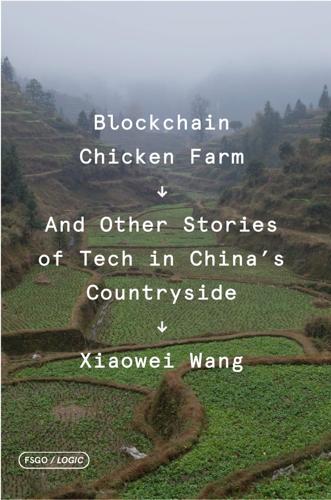
Blockchain Chicken Farm: And Other Stories of Tech in China's Countryside
by
Xiaowei Wang
Published 12 Oct 2020
Like China’s food and language, urban villages have an enormous amount of regional variation. What is common across all urban villages is that they are home to those on the fringes of city life—nannies, housekeepers, construction workers, delivery drivers. In Shenzhen, urban villages have played a key part in the city’s rise, nurturing new inventors with brash ideas and informal economies. Yet because of the socioeconomic status of the population residing in urban villages, these areas are deemed dangerous by upper-middle-class urbanites. The term that upper-middle-class Chinese people use to describe this population is “low-quality” (disuzhi, 低素质). Strangely, the upper-middle class seems to have no qualms about the low-quality population traveling to wealthier parts, watching over their children and cleaning their homes.
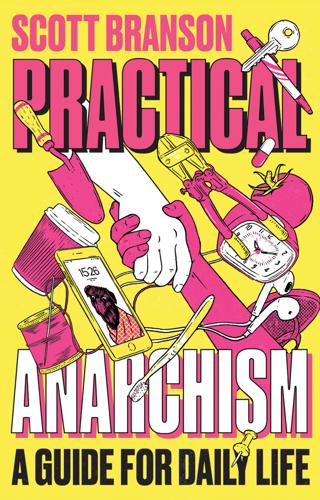
Practical Anarchism: A Guide for Daily Life
by
Scott. Branson
Published 14 Jun 2022
Similarly, urban areas spilling over into slums is like a return of the repressed: the fact that you can’t actually dispose of whole populations. This production of “surplus humanity” is part of the massive dispossession that Mike Davis writes about in Planet of Slums, where neighborhoods overflow and informal economies arise, alongside the booming prison population. Our systems produce waste and that waste doesn’t actually disappear. In every city, we see the police and businesses wage war against unhoused people, trying to wish away the inequalities of property by evicting encampments. The infrastructural attempt to solve this problem is an item in urban geography—the projects of redevelopment.
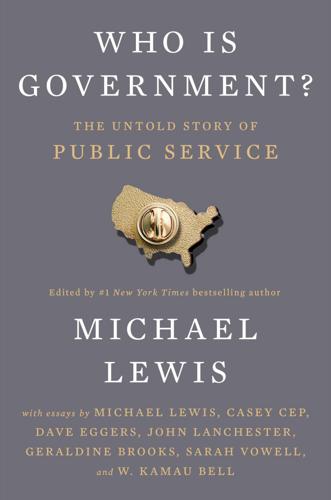
Who Is Government?: The Untold Story of Public Service
by
Michael Lewis
Published 18 Mar 2025
Maybe this double-mindedness is something we have lost or are on the verge of losing. Carl Sagan, writing in 1995, had a dark vision of a future that looks a little like this: I have a foreboding of an America in my children’s or grandchildren’s time—when the United States is a service and information economy; when nearly all the key manufacturing industries have slipped away to other countries; when awesome technological powers are in the hands of a very few, and no one representing the public interest can even grasp the issues; when the people have lost the ability to set their own agendas or knowledgeably question those in authority; when, clutching our crystals and nervously consulting our horoscopes, our critical faculties in decline, unable to distinguish between what feels good and what’s true, we slide, almost without noticing, back into superstition and darkness.

The omnivore's dilemma: a natural history of four meals
by
Michael Pollan
Published 15 Dec 2006
Polyface Farm is a postindustrial enterprise. You'll see." 192 * THE O M N I VO R E ' S D I L E M M A 2. MONDAY EVENING As I neared the blessed, longed-for end of my first day as a Polyface farmhand, I must say I didn't feel at all the way I normally do after a day spent laboring in the information economy. And there was still one more daunting chore before dinner: moving the cows, an operation that, Joel wanted me to understand, is a whole lot easier than it sounds. I certainly hoped so. Throwing and stacking fifty-pound bales of hay all afternoon had left me bone tired, sore, and itchy all over from pricks of the chaff, so I was mightily relieved when Joel proposed we ride the four-wheeler to the upper pasture where the cows had spent their day.
…
"Meds just mask genetic weaknesses," Joel explained one afternoon when we were moving the cattle. "My goal is always to improve the herd, adapt it to the local conditions by careful culling. To do this I need to know: Who has a propensity for pinkeye? For worms? You simply have no clue if you're giving meds all the time." "So you tell me, who's really in this so-called information economy? Those who learn from what they observe on their farm, or those who rely on concoctions from the devil's pantry?" OF COURSE the simplest, most traditional measure of a farm's efficiency is how much food it produces per unit of land; by this yardstick too Poly face is impressively efficient.
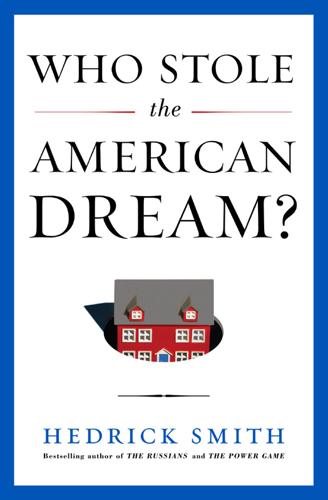
Who Stole the American Dream?
by
Hedrick Smith
Published 10 Sep 2012
(Not Here),” HDNet, January 18, 2011, http://www.hd.net/programs/danrather. 44 Accounting firm Deloitte “Deloitte to Treble Headcount in India,” Diligent Media Corp., November 28, 2009, http://www.dnaindia.com. 45 American IT outsourcing firms Ron Hira, interview, January 7, 2011. 46 Even Perot Systems “Perot Systems, Founded by an Offshoring Foe, Increases Offshoring,” Computer World, February 12, 2009, http://www.computerworld.com. 47 India has burst upon “The Other Elephant,” The Economist, November 4, 2010, http://www.economist.com. 48 India has largely leapfrogged over manufacturing “Information Economy Report 2010,” United Nations Conference on Trade and Development, October 14, 2010, http://unctad.org, 49–40, figures III.4 and III.5. The report estimated global exports in IT services and business processing at $92 billion to $96 billion and India’s share at 35 percent, but it said these figures underestimate the overall global IT offshoring market.
…
Behrman et al., patent assignee: International Business Machines Corp., Armonk, NY, publication date July 12, 2007. 63 Help clients achieve “50% of resources in China” U.S. patent application no. 11/860,336 for “Method and System for Strategic Global Resource Sourcing,” from Ching-Hua Chen-Ritzo et al., patent assignee: International Business Machines Corp., Armonk, NY, publication date March 26, 2009. 64 “Downright unpatriotic” “IBM Files for Patent on Offshoring Jobs,” Times Herald-Record, March 30, 2009; “IBM Drops Patent Application for Outsourcing Offshore Jobs,” Times Herald-Record, March 31, 2009. 65 “Task by task, function by function” David Streitfield, “Office of Tomorrow Has an Address in India,” Los Angeles Times, August 29, 2004. 66 Offshoring today involves brainpower jobs Marla Dickerson, “Offshoring Trend Casting a Wider Net,” Los Angeles Times, January 4, 2004. 67 Shot up exponentially since 1990 “Information Economy Report 2010,” United Nations Conference on Trade and Development, http://www.unctad.org. 68 “They told all the workers” Lee Conrad, interview, January 24, 2011. 69 83 percent cited outsourcing “Americans Sour on Trade,” The Wall Street Journal, October 2, 2010. 70 “Job cuts at home, big hiring overseas” Hackett Group, “Offshoring of Back Office Jobs Is Accelerating,” January 6, 2009; “New Data: 2.8 Million Business-Support Jobs Eliminated Since 2000,” November 15, 2010, and “How Offshoring Could Prolong the Jobless Recovery,” January, 18, 2011, http://news.thomasnet.com/IMT/archives/2011/01/how-offshoring-trend-could-prolong-jobless-recovery-hackett-group.html. 71 The big Wall Street banks Pankaj Mishra & Shruti Sabharwal, “Citi, Bofa & JPMorgan to Outsource $5 Bn of IT and Back Office Projects to India,” Economic Times, Times of India Group, February 14, 2011, http://economictimes.indiatimes.com. 72 At home, the big banks were firing “Profits Falling, Banks Confront a Leaner Future,” The New York Times, August 29, 2011. 73 “How Offshoring Could Prolong the Jobless Recovery” “How Offshoring Could Prolong the Jobless Recovery,” Hackett Group, January 18, 2011, http://www.thehackettgroup.com; “New Data: 2.8 Million Business-Support Jobs Eliminated Since 2000,” Hackett Group, November 15, 2010, http://www.thehackettgroup.com. 74 That “corresponds to about 30–40 million jobs” Alan S.
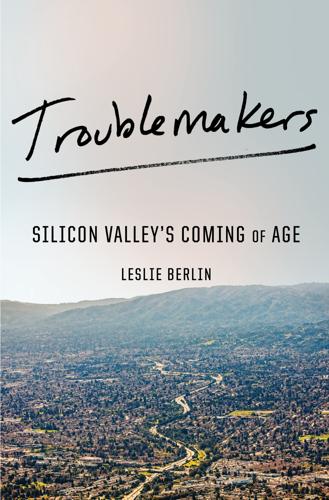
Troublemakers: Silicon Valley's Coming of Age
by
Leslie Berlin
Published 7 Nov 2017
Silicon Valley companies built products for engineers, not consumers. To the extent that the average American thought at all about computers, it was only to curse them as the culprits blamed by banks when a checkbook did not balance properly. Today we consider Silicon Valley the hub of the information economy. In 1969, however, the Valley was a manufacturing center; 60 percent of people working in the local electronics industry worked production jobs.7 Defense-based companies such as Lockheed and GTE Sylvania were pillars of the local high-tech economy, and the sophisticated global electronics supply chain was only beginning to take shape.
…
.: Cohen-Boyer patent application and, 202–4, 263–67 and Reimers, 133–38, 141–44, 189 Swanson and, 194, 199 Commission on Industrial Competitiveness, 255 Commodore, 212n, 230, 240, 247, 250, 284–85, 295, 347 Compaq Computer, 361 computer-aided design, 364 “Computer as a Communication Device, The” (Taylor and Lick), 22–25, 106 Computer Associates International, 371 Computer Conversor, 244–45 computer-facilitated teleconferences, 25 computer graphics, 18, 23, 30, 39, 96, 100, 120, 209, 274–75, 303, 345 computer mouse, 23, 27, 96, 285–86 computer programming, 68–69, 78, 86, 149, 177, 182, 240, 274–77, 284–85, 314, 325, 338 computer science programs, 11–12, 108, 182 computer scientists, 26, 91–98, 102, 138, 177, 218, 226, 247, 283, 289, 341–43, 376 Computer Space game, 107–18 Computer System News, 322 Congress, U.S., 17, 60, 158, 161, 188, 254, 264, 286, 373 consumer electronics, 74, 170, 274, 282, 366 Consumer Electronics Show, 244, 280 Coyle, Arthur “Bud,” 258 Cramer Electronics, 207n Crane, David, 277 Crawford, Gordon, 168 Crisp, Peter O., 249, 293n, 372 Crocker, Charles, 199–201 Cullinane Data Systems, 317 Cupertino, Calif., 41–43, 77, 146, 176, 208, 229, 241, 248, 370 Cyan Engineering, 169–70 Dabney, Ted, 38–40, 107–22, 174, 364 D’Aloia, Garrett C., 296 Data General, 86, 178–79, 208, 357 Davidow, Bill, 213 Death Race game, 172 Decuir, Joe, 277 Defense Communications Agency, 103 defense contractors, xiii, 22, 28, 41–42, 45–48, 86, 180 Defense Department, U.S., 7–9, 15–17, 23, 26n, 28–30, 31, 56–57, 89, 97n, 158 Democratic National Convention, 3, 120 Deutsch, Peter, 96 Diehl, Ron, 44–45, 311 Digital Equipment Corporation (DEC), 74, 86, 101, 178–79, 213, 306, 319, 342–43, 357, 375–76 digital watches, 151, 213, 244 Djerassi, Carl, 203 DNA, see recombinant DNA Dolby, Ray, 38n Doriot, George, 191 dot-com crash, 364 Draper, Bill, 277 Dukakis, Michael, 255 Dynabook, 91, 104 Echelon, 371 Electronic Arts, 248, 346–47 Electronic News, 73 electronics industry, 3–5, 42–44, 47, 74, 164, 170 Eli Lilly, 256, 266n Elkind, Jerry, 94–95, 103, 216, 219–20, 224, 338 Ellenby, John, 217 Ellison, Larry, 38, 185, 364 Ely, Paul, 315 Emmons, Larry, 169, 173 Energy Department, U.S., 203–4 Engelbart, Doug, 23–28, 55, 94–96 English, Bill, 26–28, 96 entrepreneurs, in Silicon Valley, xi–xvi network of, xv, 47–50, 53–54, 84, 127–30, 147–52, 213, 316, 365–66 Environmental Defense Fund, 187 Espinosa, Chris, 248 Estridge, Don, 357 Ethernet network, 92, 288, 366 ethics, 372 E.T. the Extra-Terrestrial game, 275, 345 Eubank, Vineta Alvarez, see Alvarez, Vineta Evans, Dave, 30, 290 Exidy, 172 Facebook, 77, 128, 363–66, 376 Fairchild Semiconductor, 4–5 Alvarez at, 42, 45 founding of, 60, 66, 190 Markkula at, 47–54, 146, 149–50, 154, 232–34 Rock as investor in, 90, 249, 258 start-up companies and, 51, 54, 235 Valentine at, 126–27 Farinon, Bill, 259–60 Farinon Electric, 85 Feigenbaum, Ed, 247 Felsenstein, Lee, 211 floppy disk drives, 244–45, 295 Florida, University of, 60 Forbes, 74, 151, 298 Ford, Henry, 166, 225 FORTRAN programing language, 66n, 149n, 179, 285, 314 Fortune, 253 Fortune 500, 166, 354, 358–59 Fox, Ken, 323, 326 Fuerst, Rory, 192 Fuller, Sam, 343 game design, 111, 116, 120, 130–31, 274–78 Gates, Bill, 212 Gelbach, Ed, 151–52, 213 Genentech, xii, 192, 195, 375 business plan of, 198, 201 initial public offering of, 198, 256–63, 293, 320 intellectual property and, 257 invention rights and, 202–3 investors and, 84, 128, 199–200 launch of, 197–98 licensing agreement and, 265–68 media and, 257 Reimers and, 264–68 Swanson and, xvi, 197–98, 256–63, 266 as virtual corporation, 200–201 as “white-hot risk,” 200 General Electric (GE), 65–67, 76–78, 111–12 genetic engineering, 187–88, 203, 256–57, 375 genetics, 133, 136, 143, 195, 263 Gerard, Manny, 168–75, 269–74, 345–46 Geschke, Chuck, 101, 104n–5n, 217, 223n, 288–91 Gifford, Jack, 47–51 Gilbert, Walter, 263 Glaser, Don, 193 Go (Japanese game), 39, 109 Goeddel, Dave, 261 Goldberg, Marty, 115n Goldman, Jack, 92–93, 103 Good Morning America, 371 Google, 77, 84, 128, 162, 195, 259, 351, 365–66, 375–76 Gotcha game, 120n, 169–70 Graham, Bob, 53–54, 147, 150 Gran Trak game, 124, 130 groupthink, 101, 376 Grove, Andy, xi, 150, 235, 254n Gunning, Bill, 216 hackers, 222, 227 Hack the Future, 369 Hall, John, 235–37 Hambrecht, Bill, 84, 231, 259–60, 290 Hambrecht & Quist, 84, 259–60, 293, 296, 316–19 Hamilton, Bruce, 333–34 Hansen, William, 59 hardware design, 21, 24, 27, 38, 78 Hart, Gary, 255 Harvard Business School, 314–16 Harvard University, 74, 96, 191 Hawkins, Trip, 236n, 248, 285–86, 299–302, 346–47 Health, Education, and Welfare Department, U.S., 134, 142, 145, 189, 203 Herzfeld, Charles, 8–9, 16–19 Hewlett, Bill, 86 Hewlett-Packard, 74, 84–86, 91, 157, 176–86, 191–93, 232, 255, 282, 288–90, 313–14, 319, 357, 372 high-tech revolution, xiv, 74, 253 Hillman, Henry, 191 Hines, Sally, 132, 204, 266–67 hippies, 36, 74, 123, 206, 230–31 hobbyists, 210–14, 230, 244, 247, 284 Hoefler, Don, 73 Hoff, Ted, 347 holographic technology, 279–82 Holt, Rod, 243n Homebrew Computer Club, 209n, 210–12, 222, 227, 231, 264 Home Pong game, 130, 157, 169, 281 Honeywell “kitchen computer,” 91 House, Chuck, 326–27 Hubbard Radio and Television Repair, 32–34, 109 Hughes Aircraft, 47–51, 146, 149, 179–81, 232, 237 human growth hormone, 195, 200, 375 hyperlinks, 24 hypertext, 95 IBM, xiiin, 3, 44, 65, 76–81, 84, 88, 225, 245, 304–6, 353–55, 370 IBM PC, 334, 354, 357, 369 Illinois, University of, 11 Imagic, 278, 346 Indiana, University of, 60 Informatics, 322 information economy, xiv Information Processing Techniques Office, 11–13, 17, 22 initial public offerings (IPOs), 73, 84, 198, 256–63, 287, 293–96, 306, 318–20, 324–25, 360 “innovator’s dilemma,” 213 insider trading, 346 Institutional Venture Associates, 315 insulin, xiv, 199–201, 256, 261, 375 Intel, 51–54, 73–74, 89–90, 102, 126–29, 146–54, 157, 162, 193, 213, 232–33, 238–39, 249, 285, 302, 313, 347 intellectual property, 60, 257, 374 interactive computing, 24, 94, 99, 106, 289 Internet, 6, 17, 78, 103, 331, 338, 376 Internet of Things, 371n Interval Research Corporation, 369 invention disclosures, 59–63, 66, 137–39, 145, 364 inventions, 61–64, 132, 135, 139–40, 144–45, 264–65, 351 inventors, 21, 59–62, 132, 137–39, 144, 219, 245–46, 263, 288, 347 investment bankers, 293, 296, 303 iPhone, 374 IRE Transactions on Human Factors in Electronics, 10 Itek Corporation, 56 Itel, 315 ITT, 292 Japan, 253, 266, 342, 348 Java programming language, 365 Jobs, Patty, 207, 228 Jobs, Paul and Clara, 206 Jobs, Steve, xi–xii, xv, 13n, 82, 154, 157, 176, 206–11, 228–46, 254–55, 287–88, 293–303, 357–59, 365, 372–73 Johnson, Lyndon B., 37 Johnson & Johnson, 256 Kaboom!
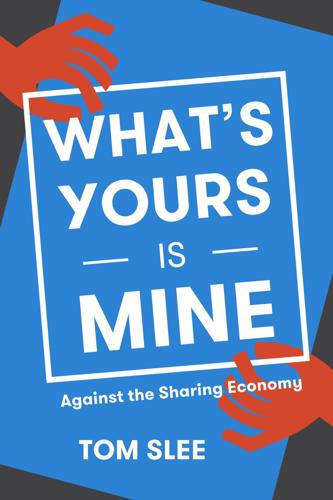
What's Yours Is Mine: Against the Sharing Economy
by
Tom Slee
Published 18 Nov 2015
Taxation is a moral responsibility, I think we are creating a culture of tax cheats.” 16 The way Sharing Economy platforms work, paying taxes is left to the cleaners, and of course there is a temptation for low-paid service workers to postpone or minimize the tax being paid. Services such as cleaning have long been part of the informal economy, done for cash. What’s different now is that people are building billion dollar businesses on this informal model. Molly Maid’s Hipkins believes “there’s a difference when it’s a small under-the-table arrangement between a client and individual cleaner, versus a large US company, with millions in market capitalization.”
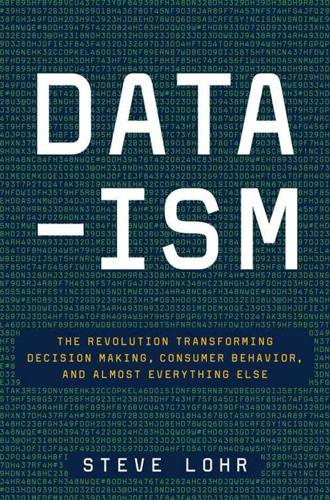
Data-Ism: The Revolution Transforming Decision Making, Consumer Behavior, and Almost Everything Else
by
Steve Lohr
Published 10 Mar 2015
But by now, there are some identifiable camps of thinking—each with a somewhat different emphasis. One camp—think of it as the enlightened business community—contends that the focus of privacy rules should be on the use of data rather than the collection of data. Data, in this view, is an asset, the currency of the information economy. So, like money, the greatest value will be created if it flows freely. That case was forcefully made by the World Economic Forum, in a report issued in 2013, Unlocking the Value of Personal Data: From Collection to Usage. The report grew out of a series of workshops on privacy, attended by government officials and privacy activists, as well as business executives.
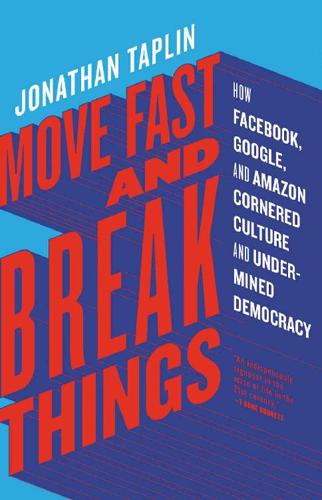
Move Fast and Break Things: How Facebook, Google, and Amazon Cornered Culture and Undermined Democracy
by
Jonathan Taplin
Published 17 Apr 2017
This requires both legal and business innovation, and it is those innovations to which we turn our attention. 2. In August of 2001, at the Federal Reserve Bank’s annual Jackson Hole, Wyoming, symposium, former treasury secretary Lawrence Summers and University of California economist J. Bradford DeLong delivered a paper on economic policy for the information economy. They began with a basic fact of digital economics: given that price equals marginal cost, “with information goods the social and marginal cost of distribution is close to zero.” Marginal cost means the cost of producing one more unit of a good. Once a song is on a Spotify server, the cost of selling one more stream is zero.

They Have a Word for It A Lighthearted Lexicon of Untranslatable Words & Phrases-Sarabande Books (2000)
by
Howard Rheingold
Published 10 Mar 2020
As economist Paul Hawken, author of The Next Economy, has indicated, it isn't hard to foresee that wabi, or something like it, will become increasingly important as our economy changes from a "mass economy," in which wealth is based on large quantities of material resources and energy, to an "informative" economy, based on the design and knowledge built into products and processes. As the economic conditions that created the "consumer society" change, we seem to be changing our buying habits. One such change is the shift from the goal of owning or The Eye of the Beholder 97 consuming a large quantity of possessions or experiences to the goal of owning or consuming a smaller number of higher quality possessions or experiences.
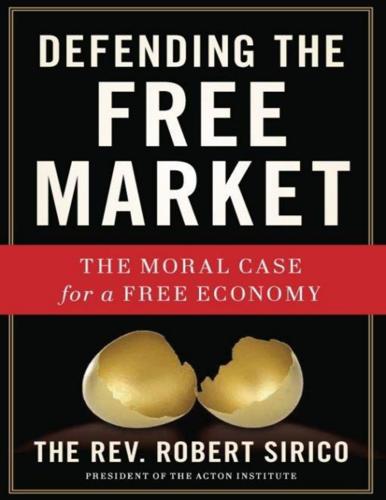
Defending the Free Market: The Moral Case for a Free Economy
by
Robert A. Sirico
Published 20 May 2012
Western mass media often does more harm than good when globalization extends its reach: the degradation of human sexuality, including the exploitation of women; the confusion between “having” and “being” (about which I will have more to say in Chapter Ten); and an inflated sense of our rights along with a lessening sense of social responsibility—these are just a few of the cultural manifestations of Western society that are worthy of critique and that can do real harm to the culture of a developing country once it gets plugged into the global information economy. But these cultural problems are accompanied by positive opportunities, including an invitation for religious communities to do what it is they do best, which is to lead men and women to a conversion of life so that all their values and choices, including those in the economic sphere, reflect their encounter with the truth about God and human nature.
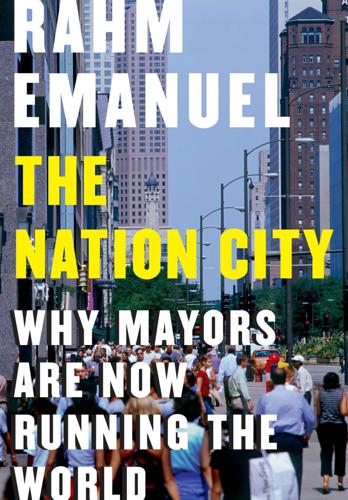
The Nation City: Why Mayors Are Now Running the World
by
Rahm Emanuel
Published 25 Feb 2020
When I closed forty-nine failing schools as part of our reform of the Chicago public school system, it was very unpopular politically. But it had to be done, for the future of those students who were trapped in those schools, and because we desperately need to be preparing our eight-year-olds for the information economy, in order to give them a brighter future. More important, and of equal political value, when it came to fighting Springfield for equitable funding, the willingness to clean up our own fiscal issues gave the city the ability to make a strong case, and to dismiss all those who for decades had derailed equitable funding as a Chicago bailout.
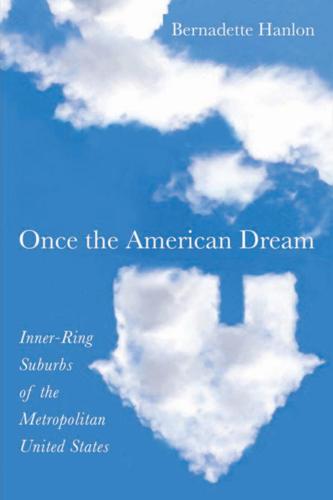
Once the American Dream: Inner-Ring Suburbs of the Metropolitan United States
by
Bernadette Hanlon
Published 18 Dec 2009
Aside from being composed of already-struggling, nonwhite residents in 1980, high-poverty inner-ring suburbs also had widespread underemployment at that time, and, in the case of the Midwest and the Northeast, manufacturing employment declined between 1980 and 2000. In all regions, about four out of every ten residents of working age were not in the labor market in 1980 or 2000. Surely some of these residents either gave up searching for employment or were working in low-wage jobs in the informal economy. This unemployment rate combined with a loss of manufacturing jobs in the Midwest and the Northeast resulted in extreme poverty among some inner-ring suburbs. These high-poverty suburbs had distinct characteristics not unlike the poorest inner-city neighborhoods. Generally moving toward high poverty in 1980, these inner-ring suburbs became poorer over the course of the next two decades.
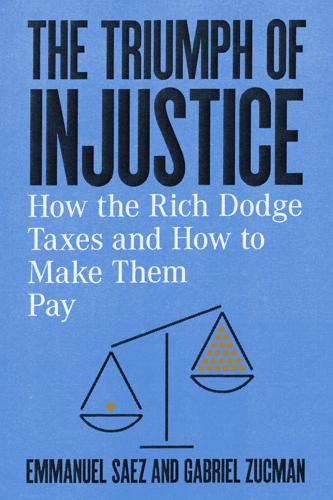
The Triumph of Injustice: How the Rich Dodge Taxes and How to Make Them Pay
by
Emmanuel Saez
and
Gabriel Zucman
Published 14 Oct 2019
The rents that homeowners pay to themselves (which are part of national income, but not easy to tax) are excluded from the base; but the national income tax base does not deduct mortgage interest payments. In practice, tax evasion would make the base of the national income tax slightly lower than 100% of national income. The informal economy, including employees receiving wages off the books or self-employed workers paid in cash, would not be reached, and some businesses would underreport profits. According to the available estimates, these activities would reduce the base by about 7% of national income.15 Because it’s so broad, the national income tax could raise substantial revenues with low rates.

Undoing Border Imperialism
by
Harsha Walia
Published 12 Nov 2013
These displacements bring astounding numbers of people to the centers of capital in order to survive. Forced to endure grinding poverty and stigmatization, displaced people make up the mass in urban slums and low-income neighborhoods. UN figures reveal over one billion slum dwellers across the world in 2005.(29) Women are overrepresented in these statistics, forced into the informal economies of sex work, domestic work, and street vending. This is what border imperialism, embedded in colonialism and capitalism, engenders. The Canary Islands, off the coast of Morocco, are a critical convergence of colonial displacement, forced labor, capitalist circulation, and border securitization within border imperialism.
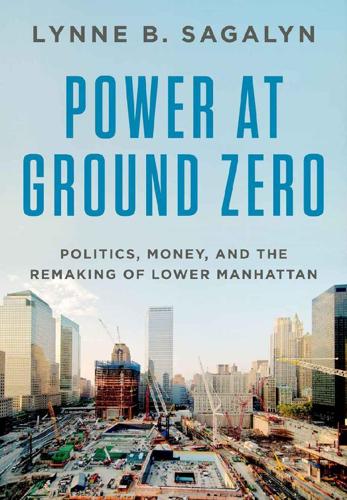
Power at Ground Zero: Politics, Money, and the Remaking of Lower Manhattan
by
Lynne B. Sagalyn
Published 8 Sep 2016
The city’s burgeoning information economy had occurred “without any major help from the state or federal government,” wrote Mitchell Moss in his celebratory century-opening ode to the city, “Why New York Will Flourish in the 21st Century.”41 All of these positive distinctions promised to enhance New York’s ability to recover quickly and benefit long-term from the opportunity born out of the tragedy of 9/11—an opportunity to rebuild the historic heart of the city and assure its central position in the global constellation of cities. How the rebuilding effort could meet the needs of the information economy and related social and economic trends was an open question.
…
As these economic crosswinds of change gathered increasing strength, so too did the economic sectors for which Manhattan always exerted a particularly strong location attraction: financial markets, corporate support services, communications, and the arts. The global economy was reshaping New York’s fortunes, as would the emergent digital technology. These trends were the advance guard of a transition to an information economy and Manhattan held a unique position as the global hub for information. “What the city could do better than any other,” remarked urban planner Mitchell Moss, “was harness its strengths in finance and entertainment to create new forms of electronic production and distribution.”13 The original World Trade Center “symbolized the aggressiveness and the dominance of the New York region in worldly matters,” wrote political scientist Jameson W.
…
“What the city could do better than any other,” remarked urban planner Mitchell Moss, “was harness its strengths in finance and entertainment to create new forms of electronic production and distribution.”13 The original World Trade Center “symbolized the aggressiveness and the dominance of the New York region in worldly matters,” wrote political scientist Jameson W. Doig in his definitive book on the Port Authority of New York, Empire on the Hudson.14 Though it was a financial white elephant for many years, the push behind the original World Trade Center was a harbinger of the city’s move toward an information economy. In 1960, David Rockefeller, president of the family-associated Chase Manhattan Bank and the Downtown–Lower Manhattan Association (DLMA), a business organization he founded to promote downtown’s revitalization, put forth a proposal for a $250 million commercial complex devoted to world trade, on 13.5 acres of land on a site on the East River waterfront.
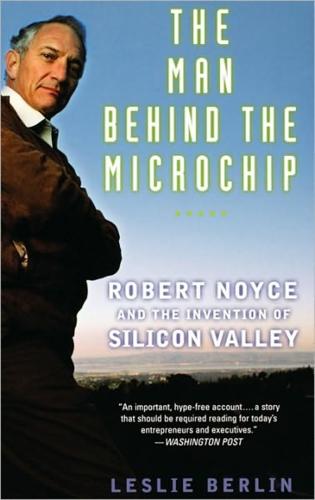
The Man Behind the Microchip: Robert Noyce and the Invention of Silicon Valley
by
Leslie Berlin
Published 9 Jun 2005
The “$120 billion social surplus” was the difference between (on the one hand) the theoretical costs of such productivity improvements if chip prices had not historically fallen so precipitously and (on the other hand) the actual costs to consumers. This “windfall,” Noyce contended, “can be used to further the other goals of society.”44 Noyce repeatedly stressed the link between the semiconductor industry and the emerging “information economy.” He told the Department of Commerce that “half of the country’s work force is now dealing with information rather than goods” and that the semiconductor industry was “fundamental to the new information age.” He promised that the new information technologies would improve workplace efficiency “even more than the mechanical age enhanced the output of manual labor in the last century.”45 Noyce further sought to stress that the semiconductor industry was not seeking protectionist legislation: the Section 301 petition focused on gaining access to Japan’s market, rather than closing off America’s market to Japanese imports.
…
.: as actuary, 23, 106; angel (private) investing by, 192– 93, 218–20, 240, 275; April Fool’s joke, 148; arm fracture of, 41; attitude toward government contracting, 50, 130–31, 281; attitude toward management, 90, 106–7, 128, 154, 180; birth of, 10–11; book-printing analogy of, 138; camera (hobby), 278; camera (stepand-repeat design), 94; childhood of, 11–18; college years, 14 (See also Grinnel College; MIT); on computers, 212, 225–27, 252, 278; on confidence, 113, 133, 179, 246; on cooperative research, 281; creativity of, 97–98, 130–31; day declared in honor of, 3, 246, 304–5; death of, 303–5; decision to leave Fairchild, 149–54; decision to leave Shockley, 81; and dislike of confrontation, 35, 89–90, 145, 198, 260; dislike of hierarchy, 114–16, 128, 191; dissertation of, 38–42; and diving, 18, 19, 21; divorce of, 214–18, 234; draft concerns of, 24, 25, 51, 52; early physics studies of, 17–19; extramarital affair of, 146, 200–202, 215–16, 232; as Fairchild general manager, 105–7, 111–16, 119–23, 128–34, 142–43, 146–48, 153–54; as Fairchild R&D head, 90, 95, 106–7; family life of, 1, 47, 51–53, 65, 117–18, 134, 143–46, 178–79, 220, 228–29, 277, 300– 303; as father of Silicon Valley, 246; finances, early, 16, 20, 34–37, 45, 52, 86, 113, 203; and Fullbright award, 37; glider and model plane building by, 6–9, 37; graduate work of (MIT), 30–42; as Grinnell college student, 17, 19–22, 27–29, 33; as Grinnell college trustee, 144, 166, 193–94, 208; in group of eight, 82–86, 96, 112, 124; on group think, 172; high school, 14– 18; on information economy, 271; as Intel board chair, 238–39, 243– 46, 250, 255; as Intel director, 257– 58, 297; as Intel president, 157–59, 160–91, 195–210, 222–28; investment philosophy of, 240–41; jobs, early, 16, 20, 23, 28; as leader vs. manager, 153, 225–27; Lifetime Achievement Medal, 302; lobbying by (against rolling blackouts), 209; lobbying by (capital gains), 262; lobbying by (SEMATECH), 283– 84; lobbying by (SIA), 262, 266, 268–70, 273; love of California, 59, 82, 118–19; marriages of (See Bowers, Ann; Noyce, Betty Bottomley); mentoring young entrepreneurs, 2, 192–93, 241–43, 275–77, 278, 280, 299–300, 306, 307; on microprocessor, 182–83, 185, 186, 195–96, 203–6; move to California, 59–60, 62; on Murphy’s Law, 255; and music, 15, 35–36, 51, 144, 191; and Nobel Prize, 3, 66, 110, 246; obituaries for, 305; oil and gas investment, 300–301, 304; on optimism, 264; patents of, 48, 87, 97, Index 99, 100, 117, 389–90; philanthropy of, 210–12, 228–29, 274, 306; at Philco, 47–52; philosophy of, 240; physics studies of, 17–19; pig stealing by, 23; pilot hobby and personal airplanes of, 2, 117, 179–80, 201, 202, 208, 213, 228–29, 252, 278–80, 304–5; property owned by, 218, 277, 278, 302; public image of, 243–49; puffin airlift by, 211; on quick-and-dirty research approach, 175; as Rapid Robert, 1, 34, 37; relationship with Japanese, 117, 134, 184, 195, 260, 269; on religion, 16, 118, 235; as Renaissance man, 305; scuba diving of, 278; as SEMATECH CEO, 289– 304; sense of future, 2, 3, 206; and Shell Fellowship, 37; at Shockley Semiconductor Labs, 59–62, 64– 68, 71–78, 80–81; and skiing, 2, 38, 41, 191–92, 228, 248; and smoking, 16, 233–34; speaking schedule of, 297–98; as spokesman, 239; and stock options, 120, 150, 165, 179, 197–98, 246; support for education by, 274, 306; and tinkering, 7, 16, 36–37, 51, 144, 278, 298, 299–300; travel by (business), 117, 184, 195– 97; travel by (family vacation), 168–69; travel by (to China), 277; travel by (to Europe), 117, 121, 196–97, 228; travel by (to Japan), 117, 184, 185, 228; travel by (with Bowers), 277–78, 292; wealth, early discomfort with, 113, 117, 203; wealth of, 255, 275; and youth movement, 213 Noyce Chapel, 228–29 Noyce Foundation, 306 Oakmont, Pennsylvania, 230 obituaries, 305 oil and gas investment, 300–301, 304 Olivetti corporation, 121 Olson, Keith, 387 OmniPage, 276–77.
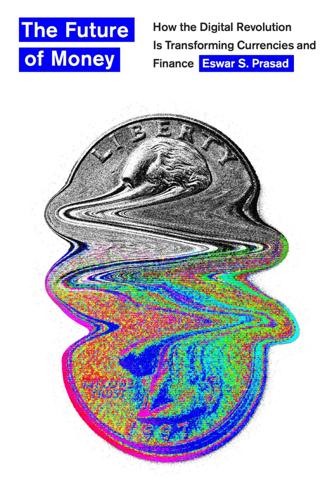
The Future of Money: How the Digital Revolution Is Transforming Currencies and Finance
by
Eswar S. Prasad
Published 27 Sep 2021
Electronic payments accounted for only about 30 percent of even higher-value transactions (roughly above $470) and about 12 percent of the total value of all transactions. The reluctance to use electronic payments because of the associated tax burden lines up with the notion that cash fuels the informal economy. Individuals’ access to the financial system is limited in most Latin American countries. World Bank data show that, based on a broad measure of inclusion—having an account at a financial institution—on average only 57 percent of adults in Latin American countries have direct access to the formal financial system.
…
A PATH FORWARD The IDB study is available at “Government Spending Waste Costs Latin America and Caribbean 4.4% of GDP: IDB Study,” Inter-American Development Bank, September 24, 2018, https://www.iadb.org/en/news/government-spending-waste-costs-latin-america-and-caribbean-44-gdp-idb-study. Barriers to CBDC Introduction The figures on the share of the informal economy in total economic activity are taken from Medina and Schneider (2018). Should Central Banks Venture Boldly into CBDC? Even the Fed has shown openness to evaluating the pros and cons of CBDC, as attested to by this statement: Federal Reserve System, “Federal Reserve Highlights Research and Experimentation Undertaken to Enhance Its Understanding of the Opportunities and Risks Associated With Central Bank Digital Currencies,” press release, August 13, 2020, https://www.federalreserve.gov/newsevents/pressreleases/other20200813a.htm.
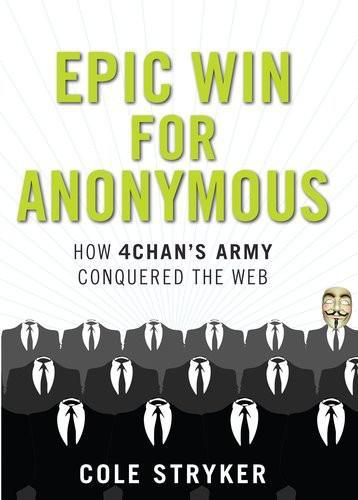
Epic Win for Anonymous: How 4chan's Army Conquered the Web
by
Cole Stryker
Published 14 Jun 2011
Middle East Activism Most recently, some Anons have been fighting for freedom of information in the Middle East, in what is perhaps the collective’s most noble and important mission yet. In 2011, Amnesty International, the human rights NGO, focused its annual report on what could be called the “information economy.” It recognized the Orwellian truism that he who controls information controls the world. Today’s networking technology has placed new power in the hands of the people, which has enabled them to keep their governments more accountable. For one, information is more freely available. Also, social networking platforms give people an opportunity to initiate activism.
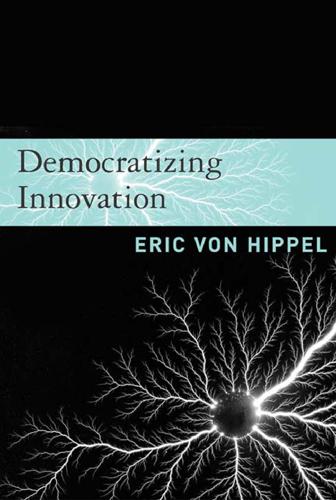
Democratizing innovation
by
Eric von Hippel
Published 1 Apr 2005
As we saw in our earlier discussions of why innovators might freely reveal their innovations, researchers now understand that significant private rewards to innovation can exist independent of intellectual property rights grants. As a general principle, intellectual property rights grants should not be offered if and when developers would seek protection but would innovate without it. The debate rages. Gallini and Scotchmer (2002) assert that “intellectual property is the foundation of the modern information economy” and that “it fuels the software, lifesciences and computer industries, and pervades most other products we consume.” They also conclude that the positive or negative effect of intellectual property rights on innovation depends centrally on “the ease with which innovators can enter into agreements for rearranging and exercising those rights.”

Free as in Freedom
by
Sam Williams
Published 16 Nov 2015
Our decision will be guided by the two goals of preserving the free status of all derivatives of our free software and of promoting the sharing and reuse of software generally. "To compare something to a virus is very harsh," says Stallman. "A spider plant is a more accurate comparison; it goes to another place if you actively take a cutting." For more information on the GNU General Public License, visit [http://www.gnu.org/copyleft/gpl.html.] In an information economy increasingly dependent on software and increasingly beholden to software standards, the GPL has become the proverbial "big stick." Even companies that once laughed it off as software socialism have come around to recognize the benefits. Linux, the Unix-like kernel developed by Finnish college student Linus Torvalds in 16 1991, is licensed under the GPL, as are many of the world's most popular programming tools: GNU Emacs, the GNU Debugger, the GNU C Compiler, etc.

Blindside: How to Anticipate Forcing Events and Wild Cards in Global Politics
by
Francis Fukuyama
Published 27 Aug 2007
The scenarios have had little discernable influence over the expectations or mental models that participants bring to debates over the actions needed to slash global emissions of greenhouse gases. Even the arguably most surprising of the scenarios, the “B1” storyline, where rapid global shifts to a service and information economy combine with widespread use of green technology to eventually reduce global emissions, has prompted little discussion about how policymakers might encourage such an outcome. In fact, contrary to the vision of Wack and 2990-7 ch10 lempert 7/23/07 12:13 PM Page 115 can scenarios help policymakers?
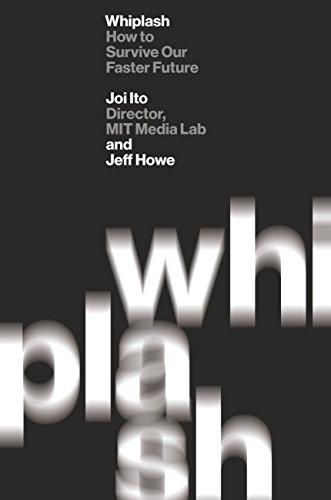
Whiplash: How to Survive Our Faster Future
by
Joi Ito
and
Jeff Howe
Published 6 Dec 2016
We first met to work on this book on a blustery spring day in 2012. It was a Sunday afternoon, and the streets around the MIT Media Lab were virtually empty. The previous fall Joi had been appointed director of the Media Lab, which occupies a storied position as ground zero for many of the technological innovations driving the information economy. Joi had biked in from his temporary apartment in Boston’s South End. (He eventually bought a house in Cambridge, but rarely stays anywhere for more than two or three days.) Our literary agent, John Brockman, had recommended that we meet. We shook hands a little awkwardly, then went upstairs to one of the Media Lab’s many glass conference rooms to see if we wanted to write a book together.
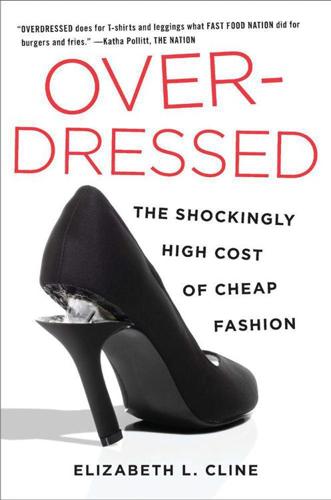
Overdressed: The Shockingly High Cost of Cheap Fashion
by
Elizabeth L. Cline
Published 13 Jun 2012
“We found that wages dropped 9 percent in the year after the end of the MFA and that employment was harder to find,” Quan says. She also found that the out-of-work garment workers, most of them non–English speaking immigrants, were pushed into even lower-paying jobs like child care, home health care, and “other small odd jobs” in the informal economy. In March 2011 the New York Times reporter Nadia Sussman documented the lives of New York City garment workers in a video segment called “Struggling to Stitch.” Sussman interviewed Hispanic day laborers lined up in the early morning hours on Eighth Avenue at West Thirty-eighth Street in the Garment Center, vying for scarce jobs sewing, packing, ironing, or cutting loose threads.
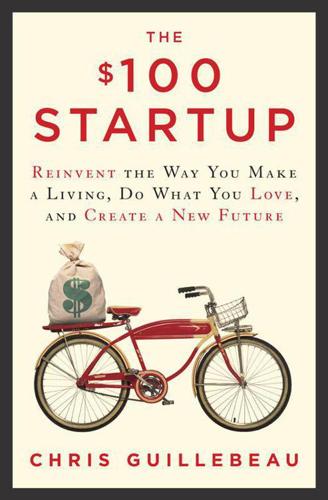
The $100 Startup: Reinvent the Way You Make a Living, Do What You Love, and Create a New Future
by
Chris Guillebeau
Published 7 May 2012
The most important lesson in the whole book: Don’t waste your time living someone else’s life. CODA The story about freedom and value doesn’t end in the Western world; these themes are just as important in helping people create opportunities for themselves wherever they are. In many parts of Africa and Asia, more people work as buyers and sellers in the informal economy than work as employees for someone else. They may not all be professional bloggers or mobile application developers (yet), but they earn their living through the principles outlined in this book. In Phnom Penh, Cambodia, I met a tuk-tuk driver named Rhett. Tuk-tuks are the open-air taxis of Southeast Asia in which you can ride anywhere in the city for a dollar or two.
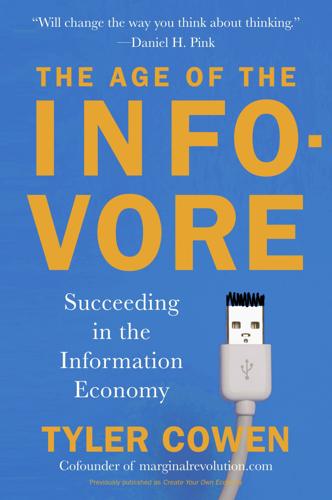
The Age of the Infovore: Succeeding in the Information Economy
by
Tyler Cowen
Published 25 May 2010
Tyler Cowen offers an entertaining guided tour of our unprecedented information age, pondering implications for how creative we are, how long our attention span is, how our politics work, and the future of our economy.” —Samuel R. Sommers, assistant professor of psychology, Tufts University ALSO BY TYLER COWEN Discover Your Inner Economist THE AGE OF THE INFOVORE SUCCEEDING IN THE INFORMATION ECONOMY Tyler Cowen Previously published as Create Your Own Economy A PLUME BOOK PLUME Published by the Penguin Group Penguin Group (USA) Inc., 375 Hudson Street, New York, New York 10014, U.S.A. Penguin Group (Canada), 90 Eglinton Avenue East, Suite 700, Toronto, Ontario, Canada M4P 2Y3 (a division of Pearson Penguin Canada Inc.); Penguin Books Ltd., 80 Strand, London WC2R 0RL, England; Penguin Ireland, 25 St.
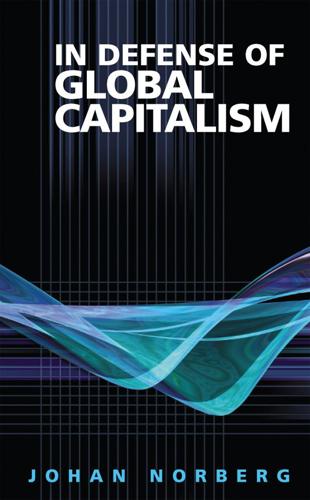
In Defense of Global Capitalism
by
Johan Norberg
Published 1 Jan 2001
Little wonder, then, that more people do not translate their good ideas into entrepreneurial activity.1 Such rules are also harmful in another way. When regulation raises barriers to necessary activity, a large portion of a firm’s time—time that could otherwise be devoted to production—ends up being spent either complying with or circumventing the rules. If this proves too burdensome, people join the informal economy instead, thereby depriving themselves of legal protection for their business dealings. Many firms will use their resources—resources that could otherwise have been used for investment—to coax politicians into adapting the rules to their needs. Many will be tempted to take shortcuts, and bureaucrats will oblige in return for generous bribes, especially in poor countries where salaries are low and regulatory systems more or less chaotic.
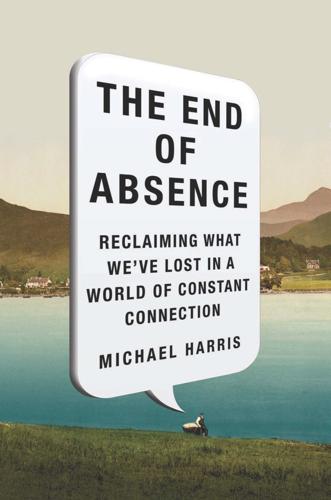
The End of Absence: Reclaiming What We've Lost in a World of Constant Connection
by
Michael Harris
Published 6 Aug 2014
An elderly woman, with perfect white hair, turns to look out the window and appears to disappear. • • • • • Jaron Lanier wrote that “one good test of whether an economy is humanistic or not is the plausibility of earning the ability to drop out of it for a while without incident or insult.” This seems a good gauge to me. And I know that dropping out of our current information economy would indeed damage my livelihood, put me at odds with the “ordinary” lives of my peers. It’s this fact of the hassle—the incorrectness of dropping off the grid—that solidifies my ambition to do it. I decide that I will take that sabbatical from the future. For thirty days, I will return to something akin to the technological circumstances of my childhood.

Working in Public: The Making and Maintenance of Open Source Software
by
Nadia Eghbal
Published 3 Aug 2020
If a house is built in an upscale neighborhood but that neighborhood later falls into disarray, the house’s value will depreciate as well. Similarly, treating code as a living organism does not replace the idea of software as a commodity. Rather, it’s that software can be understood as both artifact and organism. The rules of the “information economy,” like patents and licenses, lend themselves well to commoditized content, but when content is a living organism its value is better measured in terms of people and relationships. This innate duality—software visible as both a fixed point and a line—is at the heart of today’s conflict around how we value not just software but online content more broadly.
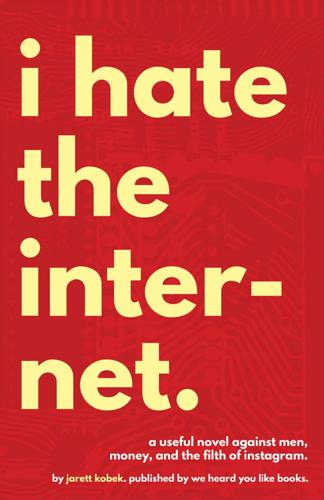
I Hate the Internet: A Novel
by
Jarett Kobek
Published 3 Nov 2016
Physical work stops mattering. Money starts making its own money. Some people are good at helping money make money.” “Our dear old Mother,” said Adeline, “made beaucoup bucks from Daddy’s money, but even our decadence wasn’t nothing like yours.” Like many of the men who worked with technology in the information economy, Erik Willems had a deep affection for juvenile literature. Which is to say that he liked Science Fiction. Which is to say that he also liked Robert Heinlein. Which is to say that he also liked J.R.R. Tolkein. Which is to say that he also liked Ayn Rand. Science Fiction was a dying genre in which writers with no personal understanding of the human experience posited many theoretical futures of the species.
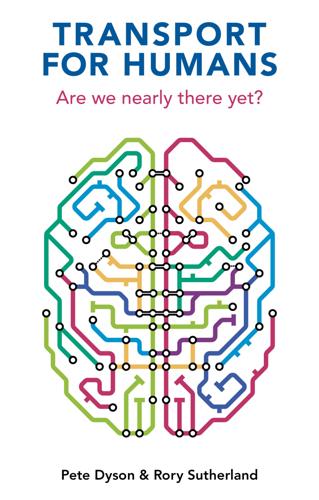
Transport for Humans: Are We Nearly There Yet?
by
Pete Dyson
and
Rory Sutherland
Published 15 Jan 2021
Consider the fact that, while Milton Keynes has more kilometres of protected lanes than neighbouring Cambridge, cycling comprises just 4% of commutes in the former compared with 30% in the latter, a city renowned for being bicycle friendly. Why is this so? One explanation is cultural. The historic university city has grown up with the bicycle, helping to make it aspirational and creating an informal economy of bikes, racks and repair shops. The case study teaches us that metropolises need both bike lanes and the complementary services and culture in order to thrive. More widely, cycling is bounded in its ability to reduce car mileage, and not just for the obvious reason that bikes do not go as far or as fast.
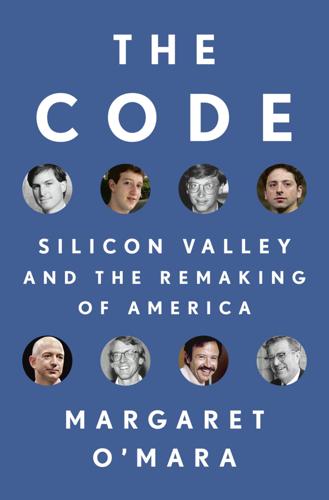
The Code: Silicon Valley and the Remaking of America
by
Margaret O'Mara
Published 8 Jul 2019
Financial Chief Avoids Pitfalls that Stymied Others,” The New York Times, November 10, 2010, B1; John Cassidy, “The Woman in the Bubble,” The New Yorker, April 26, 1999, 48. Ruth Porat’s brother Marc was also the author of a first-of-its-kind 1977 Commerce Department study of the information economy (part of which originated as his Stanford PhD thesis): Marc Uri Porat and Michael Rogers Rubin, The Information Economy, U.S. Department of Commerce, Office of Telecommunications (1977). On General Magic, the company Marc Porat founded and many of whose employees went on to play seminal roles in the development of Apple’s iPhone and Google’s Android, see Sarah Kerruish, Matt Maude, and Michael Stern, General Magic: The Movie (Palo Alto, Calif.: Spellbound Productions, 2018). 29.
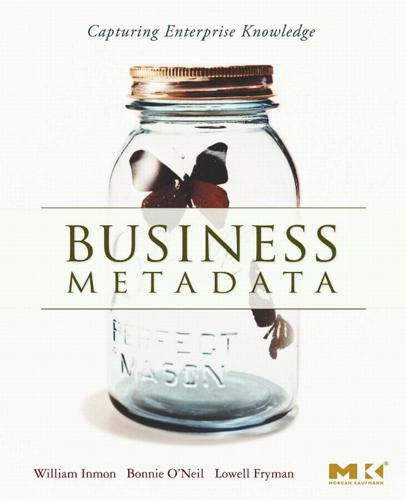
Business Metadata: Capturing Enterprise Knowledge
by
William H. Inmon
,
Bonnie K. O'Neil
and
Lowell Fryman
Published 15 Feb 2008
Is this the same type of experience that people would have if they were unable to find information to do their jobs? 4.4.1.1 Information and “Knowledge Workers” Peter Drucker first created the term “knowledge worker” in the late 1950s and early 1960s. The economy of the twenty-first century is an information economy, and most workers today are knowledge workers who produce abstract work products consisting mainly of information, not tangible items like cars or pencils. Therefore, the know-how of the knowledge worker is not necessarily knowledge of everything, but knowing where to find it. Samuel Johnson, who compiled the first English dictionary in the 1700s, said: 66 Chapter 4 Business Metadata, Communication, and Search Figure 4.4 Searching for a Needle in a Haystack.
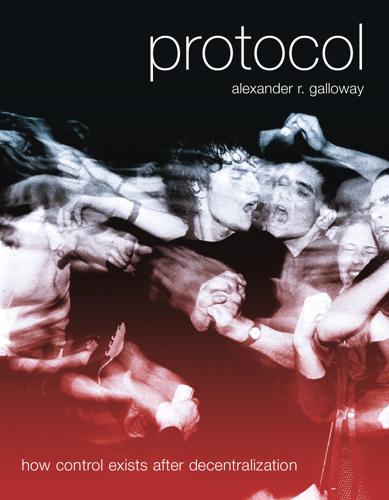
Protocol: how control exists after decentralization
by
Alexander R. Galloway
Published 1 Apr 2004
Parts II and III examine protocol in its negative representation, a profile that Armand Mattelart describes well within a larger context of globalization: When some political scientists speak of the “new global fronts of disorder,” “areas of darkness,” or “anti-worlds,” they are referring to fundamentalism, sects, channels or the underground of informal economy, Mafia networks and illicit trafficking (from narcotics to children or contraband electronics), transnational flows of diasporas and migrant labor—both regular and illegal—toward the affluent countries and regions, etc. These dissonant fronts and parallel worlds reveal the crises, conflicts, and Conclusion 241 imbalances affecting our changing societies and confront them [with] the constant risk of collapse or disaster.1 This constant risk of collapse or disaster is what makes the subcultures discussed here—hacking, cyberfeminism, Net art—so necessary for the assumption and continuing maturation of protocol.
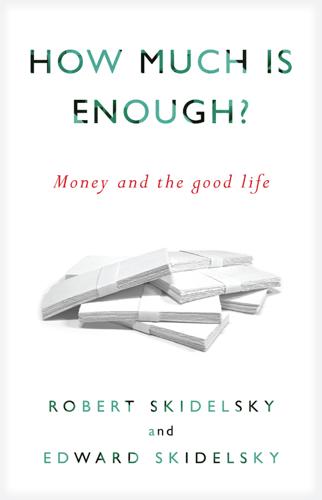
How Much Is Enough?: Money and the Good Life
by
Robert Skidelsky
and
Edward Skidelsky
Published 18 Jun 2012
Britain is an intermediate case, more open to wealth-creation than Continental Europe, less socially egalitarian than the United States. These cultural differences are embedded in, and reinforced by, the specific institutions of the tax system, welfare system and labor market. It may well be that the long Italian hours miss out those who work only intermittent hours in the informal economy. (This seems to be a feature of all the Mediterranean countries.) Chart 4. Hours of Work since 1983 Source: OECD Employment Outlook 2011 Second, the fall in average working hours conceals a divergence in hours worked by different groups within countries. While overall working hours have stalled, many lower paid workers are working less than they want to, while many of the rich are working more than they need to.

$2.00 A Day: Living on Almost Nothing in America
by
Kathryn Edin
and
H. Luke Shaefer
Published 31 Aug 2015
Locales like the Delta have long been among America’s poorest places—stops on the “poverty tours” of generations of politicians—due to economic travails evidenced generations ago. If legitimate means for getting cash—from either welfare or employment—have become increasingly scarce, the infrastructure necessary to earn cash in the informal economy isn’t much in evidence either. There are no plasma clinics to be found, and only a few scrapyards in the region’s biggest cities. Private charity, which is in greater abundance in rich cities such as Chicago, is noticeably absent here, and many of the public spaces are in disrepair. For the residents of these little towns, the nearest food pantry is often miles away, despite the sky-high poverty.
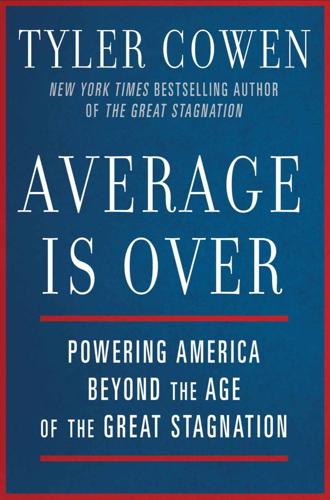
Average Is Over: Powering America Beyond the Age of the Great Stagnation
by
Tyler Cowen
Published 11 Sep 2013
Investment in the internet correlates with wage and employment growth in American counties that represent about 42 percent of the American population. In the other locales wages have not benefited from the internet at all, and so it can be said that the internet has increased regional inequality in the United States. This is far from the utopian dreams of the early days of the information economy. It is worth considering a little more exactly the new ways in which distance does and does not matter. Because of the internet and Amazon, among other developments, it is easier to become self-educated in many more different parts of the world. It is also easier to have a “good enough” or low budget (but happy) life in many more different parts of the world, again because of technology.
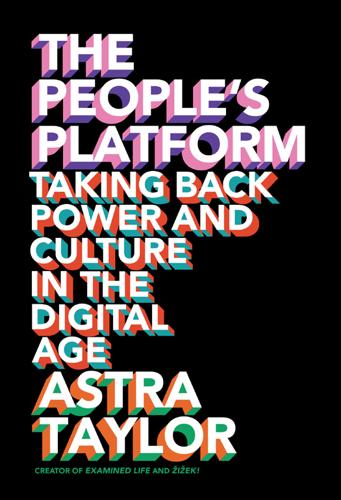
The People's Platform: Taking Back Power and Culture in the Digital Age
by
Astra Taylor
Published 4 Mar 2014
By the ’80s, any job requiring that the same steps be performed repeatedly was disappearing—going over there or into software.25 At the same time the ideal of a “postindustrial society” offered the alluring promise of work in a world in which goods were less important than services. Over time, phrases like “information economy,” “immaterial labor,” “knowledge workers,” and “creative class” slipped into everyday speech. Mental labor would replace the menial; stifling corporate conventions would give way to diversity and free expression; flexible employment would allow them to shape their own lives. These prognostications, too, were not to be.
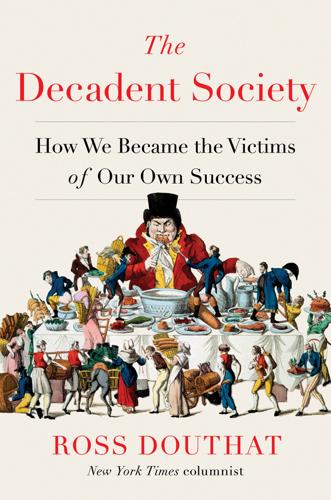
The Decadent Society: How We Became the Victims of Our Own Success
by
Ross Douthat
Published 25 Feb 2020
Aside from Israel, there is no rich country in the world whose population would not, absent immigration, be on track to shrink. Why is this happening? In broad terms, the downward trend is old and overdetermined. Plunging infant mortality rates meant that more children survived to adulthood, reducing the incentive to have the largest family possible. The shifts from an agrarian to an industrial and then to an information economy made children less valuable as extra household laborers and made an intense educational investment in each child make far more economic sense—which in turn raised the costs of childrearing for the ambitious and successful. The birth control pill made accidental pregnancy less likely and delayed parenting more plausible.
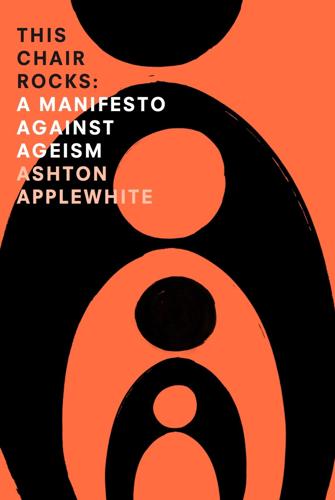
This Chair Rocks: A Manifiesto Against Ageism
by
Ashton Applewhite
Published 10 Feb 2016
In other words, according to this school of thought, Western imperialism is in decline not because of the accumulation of “toxic” debt that threatened the global banking system, or the effects of climate change, or the stagnation of real wages, or high youth unemployment rates, or crumbling public infrastructures, or a workforce left behind by the information economy, or because the middle class is under siege and wealth is being concentrated in ever fewer hands. The problem is too many old people! This is hogwash. In The Imaginary Time Bomb, British economist Phil Mullan exposes the reactionary analyses of people like Fishman and makes a persuasive case that the modern world’s growing preoccupation with aging has little or nothing to do with demography.
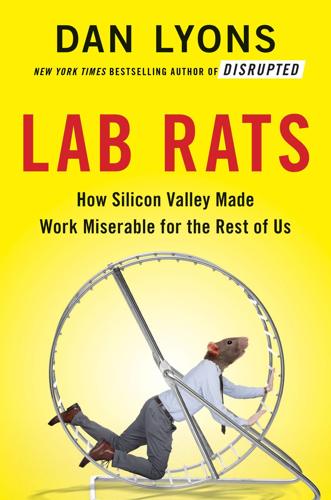
Lab Rats: How Silicon Valley Made Work Miserable for the Rest of Us
by
Dan Lyons
Published 22 Oct 2018
“I was not expecting to see numbers that high,” says Nicole Maestas, an associate professor of health-care policy at Harvard Medical School, who worked on the report. “The workplace is a taxing, high-pressure place for a lot of people.” Paradoxically, many of the most stressed-out people are the ones who should be thriving in the information economy. These are coders and engineers, “creatives” and communicators, people who work with their brains instead of their hands, doing high-value tasks that (so far) cannot be performed by machines or outsourced to less-expensive workers in developing economies. They are well-educated and Internet savvy, and often make a very good living.
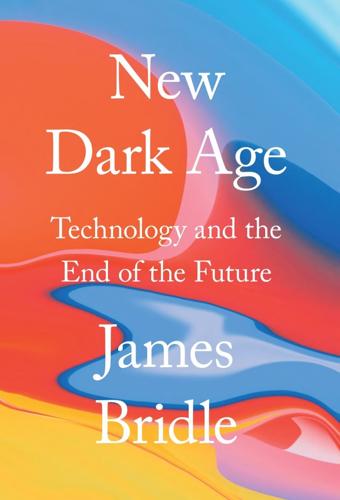
New Dark Age: Technology and the End of the Future
by
James Bridle
Published 18 Jun 2018
One of the arguments often made in response to weak public understanding of technology is a call to increase technological education – in its simplest formulation, to learn to code. Such a call is made frequently by politicians, technologists, pundits and business leaders, and it is often advanced in nakedly functional and pro-market terms: the information economy needs more programmers, and young people need jobs in the future. This is a good start, but learning to code is not enough, just as learning to plumb a sink is not enough to understand the complex interactions between water tables, political geography, ageing infrastructure, and social policy that define, shape and produce actual life support systems in society.
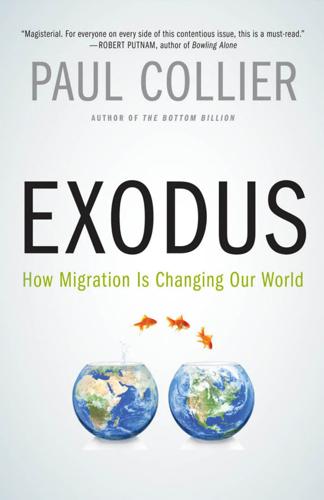
Exodus: How Migration Is Changing Our World
by
Paul Collier
Published 30 Sep 2013
Mutual Regard and Equity So far I have focused on mutual regard as a source of trust, in turn supporting cooperation. But mutual regard is also important for an equal society. Without public transfers, the distribution of income is likely to become grossly unequal. Indeed, in recent decades technological pressures toward inequality have probably been compounded by social pressures.21 The growth of the information economy has probably increased the returns to exceptional mental abilities. This new elite of the highly educated tend to cluster together not just at work but socially. They intermarry and their offspring have powerful educational advantages. As a result, social mobility is reduced: a trend that has been most marked in the United States and Britain, where countervailing government policies have been least active.
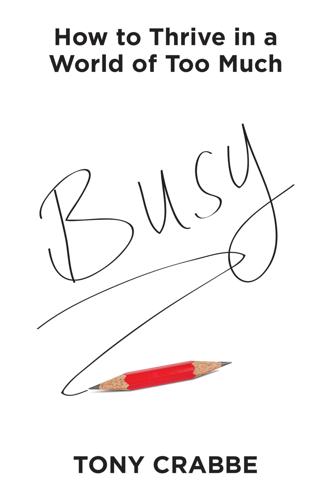
Busy
by
Tony Crabbe
Published 7 Jul 2015
Our perception is that if we can do more, we’ll achieve more. We will never escape busy unless we can transform our implicit view that the path to success is through personal productivity. Corporate strategy explains why we need to shift our focus from getting things done to making an impact, and how, in an information economy, we will only succeed if we differentiate ourselves. Chapter 5 Stop Being So Productive! (Become More Strategic) In the 1980s, Japanese companies seemed unstoppable. They had developed fantastic improvements in productivity that helped them churn out products faster, more cheaply and to higher standards.
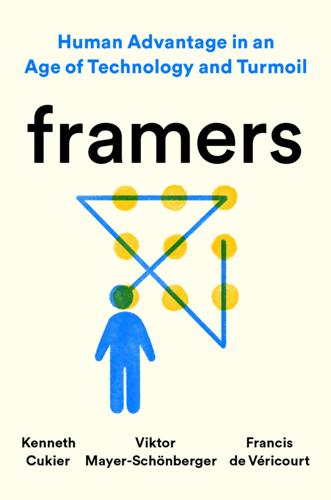
Framers: Human Advantage in an Age of Technology and Turmoil
by
Kenneth Cukier
,
Viktor Mayer-Schönberger
and
Francis de Véricourt
Published 10 May 2021
In the 1980s, the Asian city-state turned itself into a leading port between Europe and Asia. It was remarkably successful. Yet when conditions changed, Singapore needed a new plan, and in the 1990s it became a manufacturing base for the electronics industry. In the early 2000s it changed focus to become a hub for finance, professional services, and information-economy jobs. In recent years it transformed again, becoming a tourist and gambling destination with the world’s two biggest casino resorts, capitalizing on wealthy visitors from nearby China and Indonesia. Singapore’s numerous changes could be seen as continually reframing its national economy.
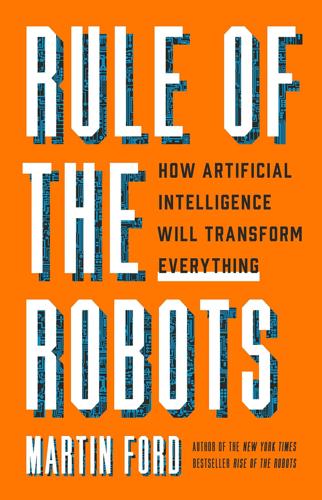
Rule of the Robots: How Artificial Intelligence Will Transform Everything
by
Martin Ford
Published 13 Sep 2021
The basic principles of deep neural networks have been understood for decades, but recent dramatic advances have been enabled by the confluence of two relentless trends in information technology: First, the arrival of vastly more powerful computers has, for the first time, allowed neural networks to transition into truly capable tools. And, second, the enormous troves of data now being generated and collected across the information economy provide a resource crucial to training these networks to perform useful tasks. Indeed, the availability of data at a scale that would have once been unimaginable is arguably the single most important factor underlying the startling progress we have seen. Deep neural networks hoover up and leverage data much in the way that a massive blue whale feeds on tiny krill, scooping up vast numbers of individually insignificant organisms and then using their collective energy to animate a creature of magnificent size and power.

Other Pandemic: How QAnon Contaminated the World
by
James Ball
Published 19 Jul 2023
If we’re worried about online tracking and recommendation algorithms, we can stop cross-app tracking on our phones and clear out our cookies (or other online trackers) and our browsing history on a regular basis – meaning that the algorithm doesn’t get to know us quite so well. All of these steps will help anyone who does them … a little bit. Just as a multivitamin won’t on its own cure a cancer, these won’t fix the information economy, and most people won’t want to take all of these steps daily. It won’t change the ecosystem, it won’t change society and it won’t even fundamentally change our own internal wiring – it’ll just help a little, around the edges. The actual steps we need will start from acknowledging we need to take all three approaches at once: this is a problem of a digital ecosystem breeding digital pathogens.

Learning to Think: A Memoir
by
Tracy King
Published 12 Mar 2025
When Carl Sagan said, ‘But I could be wrong,’ he was talking about pseudoscience. In a chapter entitled ‘Science and Hope’, he wrote: Science is more than a body of knowledge; it is a way of thinking. I have a foreboding of America in my children’s or grandchildren’s time – when the United States is a service and information economy; when nearly all the key manufacturing industries have slipped away to other countries; when awesome technological powers are in the hands of a very few, and no one representing the public interest can even grasp the issues; when the people have lost the ability to set their own agendas or knowledgeably question those in authority; when, clutching our crystals and nervously consulting our horoscopes, our critical faculties in decline, unable to distinguish between what feels good and what’s true, we slide, almost without noticing, back into superstition and darkness.
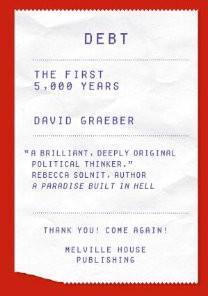
Debt: The First 5,000 Years
by
David Graeber
Published 1 Jan 2010
Uncoined silver ingots, instead of official paper money and strings of bronze coins, soon became the real money of the off-the-books informal economy. When the government attempted to shut down illegal mines in the 1430s and 1440s, their efforts sparked local insurrections, in which miners would make common cause with displaced peasants, seize nearby cities, and sometimes threaten entire provinces.5 In the end, the government gave up even trying to suppress the informal economy. Instead, they swung the other way entirely: stopped issuing paper money, legalized the mines, allowed silver bullion to become the recognized currency for large transactions, and even gave private mints the authority to produce strings of cash.6 This, in turn, allowed the government to gradually abandon the system of labor exactions and substitute a uniform tax system payable in silver.
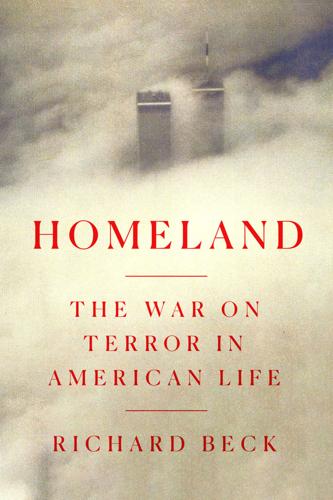
Homeland: The War on Terror in American Life
by
Richard Beck
Published 2 Sep 2024
“Emerging markets” are places where people have less access, or none. The UN found that in Africa, 86 percent of employment is informal. In Asia-Pacific, it’s 68 percent, and in the Americas it’s 40 percent, with the vast majority of informal work concentrated in countries other than the United States. In Arab states, 69 percent of workers are stuck in the informal economy.[25] Perhaps you can see where I’m going with this. While terrorism has existed for centuries—with John Brown as America’s first celebrity terrorist—many historians argue that the contemporary version first emerged in 1972, when members of the Palestinian group Black September invaded the Olympic Village at the Munich Summer Games, killed two Israeli athletes, and took nine others hostage.
…
BACK TO NOTE REFERENCE 21 Mike Davis, Planet of Slums (2006; London: Verso, 2017), 2. BACK TO NOTE REFERENCE 22 Ibid., 6. BACK TO NOTE REFERENCE 23 Ibid., 178. BACK TO NOTE REFERENCE 24 International Labour Office, United Nations, Women and Men in the Informal Economy: A Statistical Picture, 3rd ed. (Geneva: ILO, 2018), www.ilo.org/wcmsp5/groups/public/---dgreports/---dcomm/documents/publication/wcms_626831.pdf. BACK TO NOTE REFERENCE 25 Alexander Lee, “Who Becomes a Terrorist? Poverty, Education, and the Origins of Political Violence,” World Politics 63, no. 2 (April 2011): 203–45.
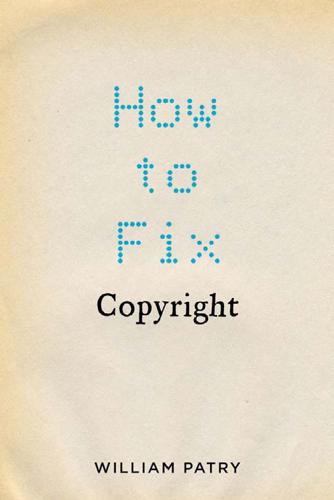
How to Fix Copyright
by
William Patry
Published 3 Jan 2012
abstract_id=955954>; and Paul Heald, Testing the Over- and Under-Exploitation Hypotheses: Bestselling Musical Compositions (1913–32) and Their Use in Cinema (1968–2007), 3rd Annual Conference on Empirical Legal Studies Paper (April 1, 2008), http://papers.ssrn.com/sol3/papers. cfm?abstract_id=1115405. 30. See Michael Yuan, Should Different Information Economies Have the Same Duration of Copyright?, 6 Review of Economic Research 13 (2009). 31. See Jason Schultz,The Myth of the 1976 Copyright “Chaos”Theory (2002); Edward Rappaport, Copyright Term Extension: Estimating the Economic Value, Congressional Research Service, May 11, 1998, at 5–6. Chapter 9 1.
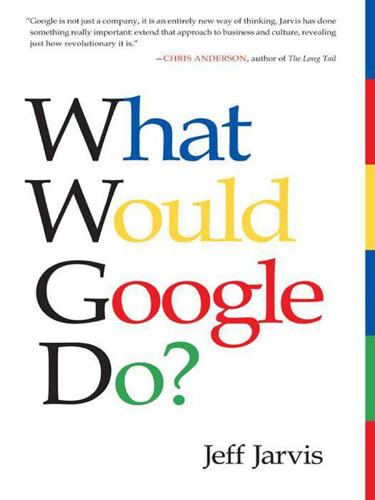
What Would Google Do?
by
Jeff Jarvis
Published 15 Feb 2009
Sure, that sends the other guys business—it’s linking to them—but in an open pool of information, they will also send business back. Nobody eats at the same place every night (well, there was the time when I went to McDonald’s entirely too often). Even a restaurant can think as a member of a network in a linked information economy. Networks force specialization. In a linked world, you don’t want to be all things to all people. You want to stand out for what you do best. That’s why chef Gordon Ramsey focuses the menus of the restaurants he fixes on his show, Kitchen Nightmares, so they know the business they’re in. Serve your niche instead of the mass.
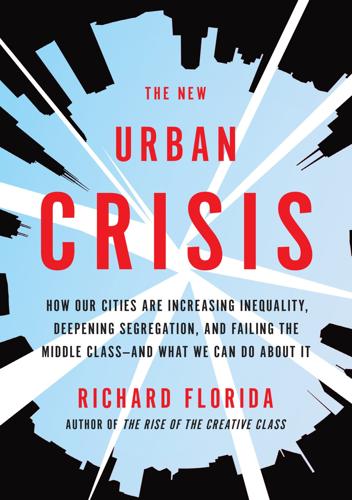
The New Urban Crisis: How Our Cities Are Increasing Inequality, Deepening Segregation, and Failing the Middle Class?and What We Can Do About It
by
Richard Florida
Published 9 May 2016
As we have seen, the largest and fastest-growing segment of our economy is the low-paid service sector, where more than 60 million American workers, making up more than 45 percent of our national workforce, toil in low-skilled, low-wage, precarious high-turnover jobs. Add in those who work only occasionally in the informal economy, and those who are underemployed, unemployed, or out of the labor force altogether, and as many as two-thirds of all working-age Americans are being left behind. If we want to build a new middle class, we have no choice but to turn the tens of millions of low-paid service jobs we are stuck with into higher-paying jobs.
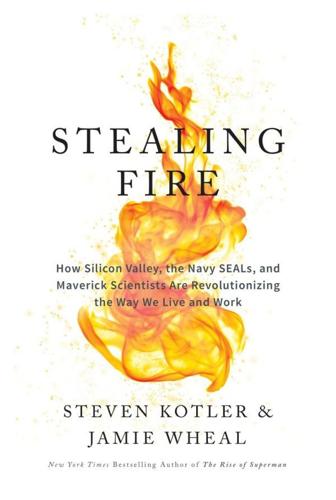
Stealing Fire: How Silicon Valley, the Navy SEALs, and Maverick Scientists Are Revolutionizing the Way We Live and Work
by
Steven Kotler
and
Jamie Wheal
Published 21 Feb 2017
Could this state of consciousness play a role in prompting buying behavior? Could the mechanics of ecstasis be used to drive market share? To understand this possibility, it’s helpful to understand a few of the developments that have led to today’s marketplace. At the tail end of the twentieth century, we started moving from the selling of ideas,36 the so-called information economy, toward the selling of feelings, or what author Alvin Toffler called the “experience economy.” This is why retail shops started to look like theme parks. Why, instead of stocking ammo on their shelves like Wal-Mart, the outdoor retailer Cabela’s turns their stores into a hunter’s paradise of big-game mounts, faux mountainsides, and giant aquariums.
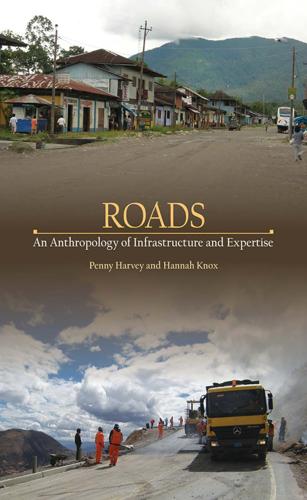
Roads: An Anthropology of Infrastructure and Expertise (Expertise: Cultures and Technologies of Knowledge)
by
Penny Harvey
and
Hannah Knox
Published 22 Jun 2015
The region through which the road was to pass had long been the site of artisanal gold mining and illegal logging. However, it was only when the new, fast road focused people’s attention on this region that they began to notice the scars in the forest, the mercury in the rivers, and the implications of an informal economy that sustained tens of thousands of workers and their families. The images that appeared on TV screens fueled a sense of connection to this distant place and showed it to be part of a shared national territory for which all citizens held some responsibility. Just what the nature of that responsibility was and how it was to be addressed goes to the core of our interest in infrastructures as sites for the analysis of political relations.
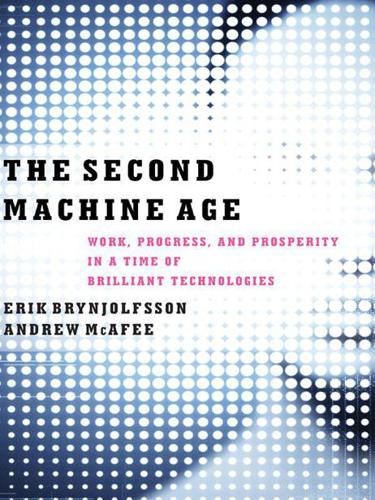
The Second Machine Age: Work, Progress, and Prosperity in a Time of Brilliant Technologies
by
Erik Brynjolfsson
and
Andrew McAfee
Published 20 Jan 2014
A nation that sells more cars, more bushels of wheat, and more tons of steel probably corresponds to a nation whose people are better off. With a greater volume of digital goods introduced each year that do not have a dollar price, this traditional GDP heuristic is becoming less useful. As we discussed in chapter 4, the second machine age is often described as an “information economy,” and with good reason. More people than ever are using Wikipedia, Facebook, Craigslist, Pandora, Hulu, and Google, with thousands of new digital goods introduced each year. The U.S. Bureau of Economic Analysis defines the information sector’s contribution to the economy as the sum of the sales of software, publishing, motion pictures, sound recording, broadcasting, telecommunications, and information and data processing services.
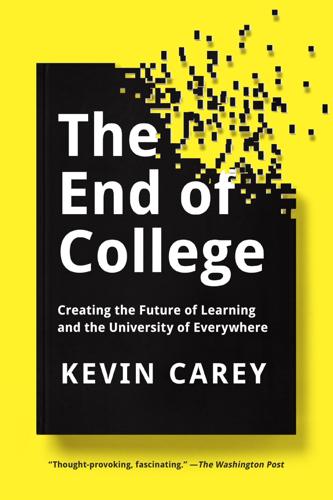
The End of College: Creating the Future of Learning and the University of Everywhere
by
Kevin Carey
Published 3 Mar 2015
When an educational institution becomes grotesquely swollen with money, pawed at by tourists, possessed of an immensely valuable brand name the popular meaning of which it can’t control and the benefits of which it cannot bestow on nearly everyone who wants them, the pressures of that threaten to distort and split the place open at the seams. Harvard was never meant to be this wealthy or important. It all happened more inadvertently than anyone imagines, a combination of first-mover advantage, just the right sequence of industrialization and globalization, Cold War government spending, the rise of the information economy, and not getting bombed into rubble during World War II. But Real Harvard continued getting richer even as Imaginary Harvard grew larger and weirder and more important, because the hybrid university severely restricts your freedom of movement, and really there was nothing else to do. It’s hard to argue for dramatic change when the fourth Class of ’16 is lining up outside the gates—and there were tens of thousands of young people who hoped they’d be part of that group.

The Age of Stagnation: Why Perpetual Growth Is Unattainable and the Global Economy Is in Peril
by
Satyajit Das
Published 9 Feb 2016
During the GFC, the financial sector's output mysteriously rose even as it struggled to survive, reflecting the increase in the margin between bank lending and deposit rates. GDP generally excludes non-market transactions such as household work, much of it done by women, and volunteer or unpaid services. It focuses on income generated, excluding the economic value of leisure. It also excludes the underground economy, such as illegal or unreported activities, the informal economy and subsistence production. In India, around half of economic activity and 90 percent of employment are informal, making accurate GDP calculations difficult. Depreciation of the means of income generation, such as equipment or capital, is excluded. GDP can be overstated where technological investment is recorded as investment, or understated where it is written off as a cost incurred.

Zeitgeist
by
Bruce Sterling
Published 1 Nov 2000
Starlitz bought into a small software company, and radically increased its profits by the cunning process of “value subtraction.” Many software merchants made the profound mistake of selling the best software they could make. Luckily, a study of strategies for information pricing had made it clear that this was not the best source of revenue in a true Information Economy. People became nervous and unhappy if they were sold decent software at a decent price. Decent software should only be offered at a terrifically high, premium price, and loaded down with extras and unnecessary but psychologically reassuring bells and whistles. Then, the middle tier of the market should be offered a cheaper, but still expensive, crippled version of the original software.
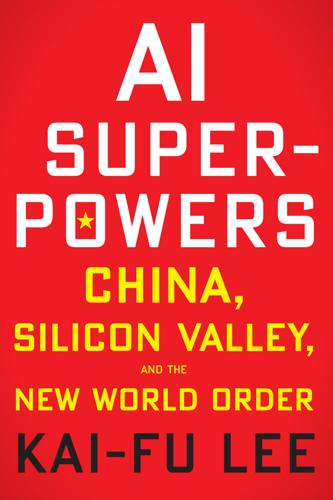
AI Superpowers: China, Silicon Valley, and the New World Order
by
Kai-Fu Lee
Published 14 Sep 2018
Chinese people were paying for groceries, massages, movie tickets, beer, and bike repairs within just these two apps. By the end of 2017, 65 percent of China’s over 753 million smartphone users had enabled mobile payments. Given the extremely low barriers to entry, those payment systems soon trickled down into China’s vast informal economy. Migrant workers selling street food simply let customers scan and send over payments while the owner fried the noodles. It got to the point where beggars on the streets of Chinese cities began hanging pieces of paper around their necks with printouts of two QR codes, one for Alipay and one for WeChat.
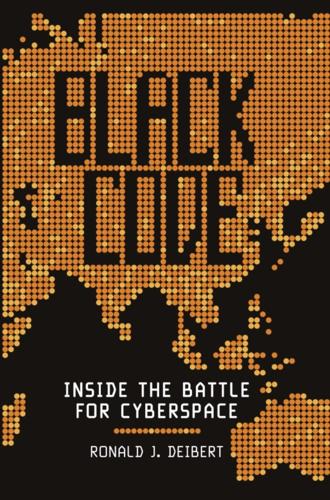
Black Code: Inside the Battle for Cyberspace
by
Ronald J. Deibert
Published 13 May 2013
They are critical agents in determining the rules of the road by virtue of the standards they insist upon, the operating decisions they take, and the constraints they impose on users. This is especially important as the volume of data they control becomes ever greater, ever more potentially lucrative in the global information economy. The end-user licence agreements, terms of service, and other warranties we sign with these companies define what they can do with our data. Unfortunately, few users bother to read, let alone understand, them. It is hard not to be sympathetic. Unless one has an advanced legal degree, these documents are intimidating: tens of thousands of words in fine print, with exceptions and caveats that provide enormously wide latitude for what companies can do.
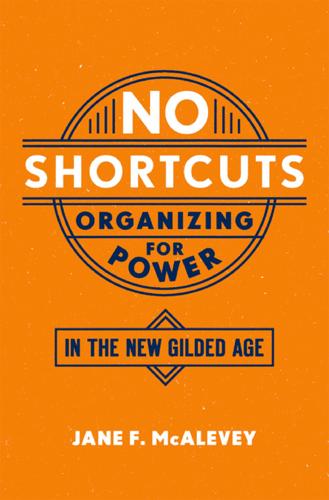
No Shortcuts: Organizing for Power in the New Gilded Age
by
Jane F. McAlevey
Published 14 Apr 2016
But even after a couple of years of strategic sweeps that significantly elevated the scale of their success, MRNY members were becoming increasingly frustrated by the inadequacies of the laws they were enforcing, and decided to attack those deficiencies next. Axt said, “For the many workers in the informal economy and the nonunion [meaning outside the NLRA] economy, we are trying to put as many pieces together as we can that offer protections like a [union] contract.” Wage Theft Legislation MRNY has been active in campaigns to rectify minimum wage and other workplace violations throughout its history, winning over $25 million in back pay and wrongfully denied government benefits settlements between 2007 and 2010 alone.15 Frustrated by the slow pace of the legal process and the persistence of wage theft in the low-wage labor market despite the many highly publicized efforts to combat it, in early 2010 MRNY members decided, in committee meetings and eventually in a board meeting, to launch a campaign to strengthen the state law.16 They helped mount a successful coalition effort to pass the New York State Wage Theft Protection Act (WTPA), which was signed into law in December 2010 and took effect on April 9, 2011.
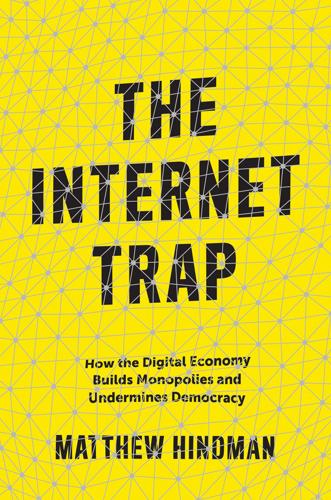
The Internet Trap: How the Digital Economy Builds Monopolies and Undermines Democracy
by
Matthew Hindman
Published 24 Sep 2018
We will start with Google. Because of its public statements, we know more about Google’s efforts than those of other firms. Still, companies like Microsoft, Facebook, and Amazon have all made similar investments in server farms and high-scalability software platforms. For all the talk about how the information economy is leaving “industrial economics” behind, Google’s server farms have demonstrated the same economies of scale we have long seen in smokestack industries, where the largest plants are most efficient. Google does not say exactly how many computer servers it runs, but by early 2017 the company had fifteen mega data centers like the one in The Dalles, not counting numerous smaller facilities; past estimates have pegged the number of servers at 2.4 million as of early 2013.17 Running on these data centers is a dizzyingly complex software stack written by Google’s engineers.
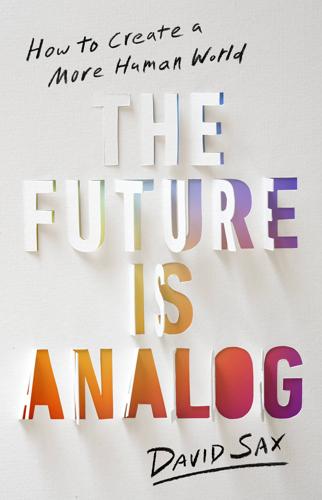
The Future Is Analog: How to Create a More Human World
by
David Sax
Published 15 Jan 2022
“It needs better processes,” said White. “We haven’t had any breathing room thinking about the ‘future of work’ questions.” Instead of adopting more tools that made us work more hours, but ultimately encouraged us to be less productive, we should have been spending more time reexamining how we measure productivity in an information economy. All that switching to digital did was make people work more. Not better, just more. The future should challenge that, so we can get closer to the promise of liberation from work’s drudgery that digital aimed for but ultimately failed to deliver. A future where we can work smarter, doing more productive, meaningful work, in the time that work actually requires.

The Warhol Economy
by
Elizabeth Currid-Halkett
Published 15 Jan 2020
Such regional agglomerations appear to sustain themselves not only due to physical resources but also the success of informational and institutional spillovers that allow firms and people to share relevant knowledge and inputs that can be applied in different ways (Piore and Sabel 1984; Saxenian 1994; Castells and Hall 1994; Scott 1993, 2000; Storper 1997). The Marshall-Arrow-Romer (MAR) framework (Mathur 1999) argues that knowledge-intensive industries, in particular, rely on the informal economies of face-to-face interaction, tacit knowledge, and information spillovers that are constantly used and permutated by different actors. In this web of people and firms, the contradictory notions of complements and competition spur a strange brew of constant innovation that is fueled by networks of knowledge and ideas.
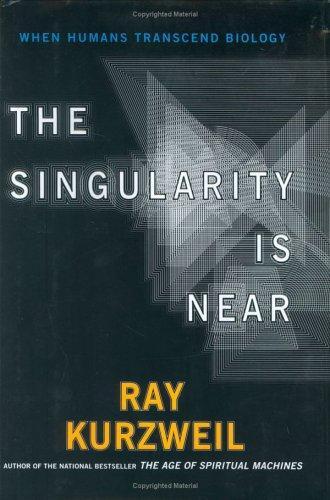
The Singularity Is Near: When Humans Transcend Biology
by
Ray Kurzweil
Published 14 Jul 2005
There's always a leading edge and a trailing edge to technology or to any evolutionary change. We still have people pushing plows, but that hasn't slowed down the adoption of cell phones, telecommunications, the Internet, biotechnology, and so on. However, the lagging edge does ultimately catch up. We have societies in Asia that jumped from agrarian economies to information economies, without going through industrialization. NED: That may be so, but the digital divide is getting worse. RAY: I know that people keep saying that, but how can that possibly be true? The number of humans is growing only very slowly. The number of digitally connected humans, no matter how you measure it, is growing rapidly.
…
United Nations Economic and Social Commission for Asia and the Pacific, "Regional Road Map Towards an Information Society in Asia and the Pacific," ST/ESCAP/2283, http://www.unescap.org/publications/detail.asp?id=771; Economic and Social Commission for Western Asia, "Regional Profile of the Information Society in Western Asia," October 8, 2003, http://www.escwa.org.lb/information/publications/ictd/docs/ictd-03-11-e.pdf; John Enger, "Asia in the Global Information Economy: The Rise of Region-States, The Role of Telecommunications," presentation at the International Conference on Satellite and Cable Television in Chinese and Asian Regions, Communication Arts Research Institute, Fu Ien Catholic University, June 4–6, 1996. 78. See "The 3 by 5 Initiative," Fact Sheet 274, December 2003, http://www.who.int/mediacentre/factsheets/2003/fs274/en/print.html. 79.
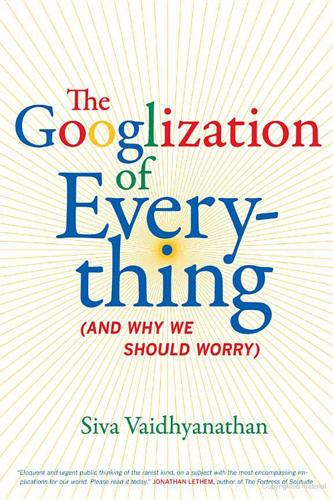
The Googlization of Everything:
by
Siva Vaidhyanathan
Published 1 Jan 2010
When Mayer and others at Google speak about the practices and policies governing their private-data collection and processing (otherwise known as privacy policies), they never discuss the power of defaults. They emphasize only the freedom and power that users have over their data. Celebrating freedom and user autonomy is one of the great rhetorical ploys of the global information economy. We are conditioned to believe that having more choices—empty though they may be—is the very essence of human freedom. But meaningful freedom implies real control over the conditions of one’s life. Merely setting up a menu with switches does not serve the interests of any but the most adept, engaged, and well-informed.
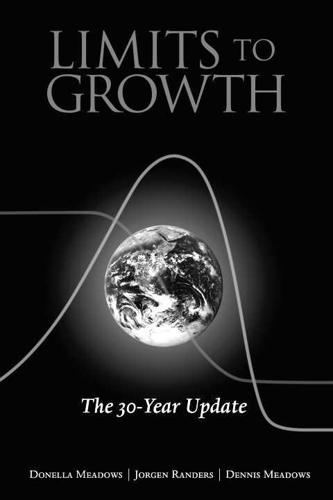
The Limits to Growth: The 30-Year Update
by
Donella H. Meadows
,
Jørgen Randers
and
Dennis L. Meadows
Published 15 Apr 2004
Gross National Income by Sector The history of the distribution of the value of the U.S. economic output among service, industry, and agriculture shows the transition to a service economy. Note that although services assume the largest share of the economy, the industrial and agricultural sectors continue to expand in absolute terms. (Source: U.S. Bureau of Economic Analysis.) Steel mills and mines may be located far away from the offices of the information economy. The tonnage of materials used may not rise as fast as the dollar value of output. But as figure 2-9 shows, even in a "post-industrial" economy, the industrial base does not decline. Information is a wonderful, valuable, disembodied commodity, but it is typically stored in a desktop computer that, as of 1997, was made from 55 pounds of plastic, metal, glass, and silicon; that drew 150 watts of electricity; and that generated in its manufacture 139 pounds of waste materials.13 The people who produce, process, and use information not only eat food but also drive cars, live in houses, work in heated or cooled buildings, and-even in the age of electronic communications-use and discard reams of paper.
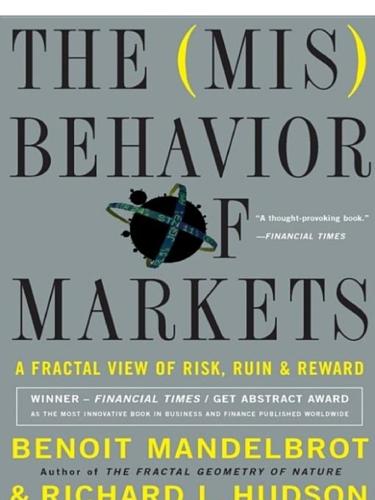
The Misbehavior of Markets: A Fractal View of Financial Turbulence
by
Benoit Mandelbrot
and
Richard L. Hudson
Published 7 Mar 2006
How about the cost of the Windows operating system, the basic software with which Office was designed to work? How about the cost of installing and maintaining Office on millions of customers’ computers, without which Office would not have the “network economies” that have been so crucial to its growth? Such questions, difficult enough in a manufacturing economy, become intractable in our modern information economy, in which so much money changes hands for the mere right to use somebody else’s intangible ideas. And even if we could agree on a cost, how could we ever derive a useful formula for translating it into a price? Things sell below cost all the time. The price of a dress can drop 90 percent, simply by moving it from the shop window at the start of the season to the basement clearance rack at the end of the season.
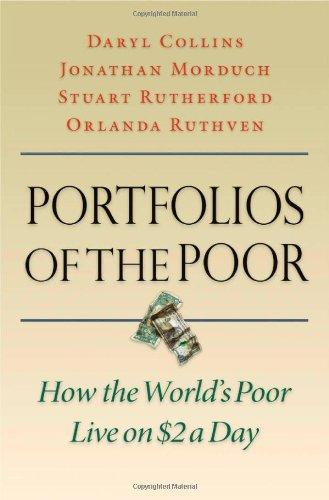
Portfolios of the poor: how the world's poor live on $2 a day
by
Daryl Collins
,
Jonathan Morduch
and
Stuart Rutherford
Published 15 Jan 2009
If it’s hard to 1 CHAPTER ONE imagine how you would survive on a dollar or two a day, it’s even harder to imagine how you would prosper. Suppose that your household income indeed averaged two dollars or less a day per head. If you’re like others in that situation, then you’re almost surely casually or part-time or self-employed in the informal economy. One of the least remarked-on problems of living on two dollars a day is that you don’t literally get that amount each day. The two dollars a day is just an average over time. You make more on some days, less on others, and often get no income at all. Moreover, the state offers limited help, and, when it does, the quality of assistance is apt to be low.
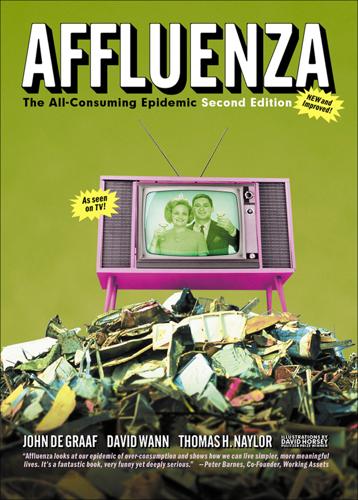
Affluenza: The All-Consuming Epidemic
by
John de Graaf
,
David Wann
,
Thomas H Naylor
and
David Horsey
Published 1 Jan 2001
They live disproportionately in areas where environmental contaminants and patterns of pollution are most severe —one such area is Louisiana’s notorious “Cancer Alley,” where petrochemical companies unleash a frightening barrage of carcinogens into the air and water. At the same time, the vastly inflated wage scales paid to winners in the new “information economy” lead to competitive bidding on housing stock that drives the cost of shelter beyond the reach of average earners. Many are forced to leave communities where they and their families have spent their entire lives. Finally, the poor are taunted by television programs and commercials that flash before them images of consumption standards that are considered typical of the average American, but which they have no possibility of achieving—except perhaps by robbing a bank or winning the lottery.
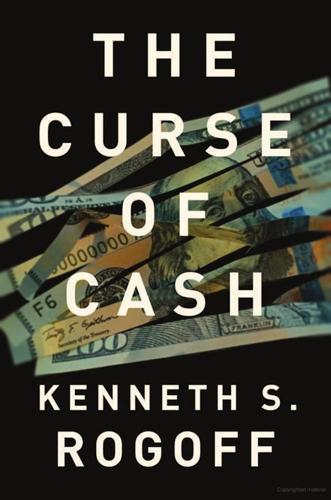
The Curse of Cash
by
Kenneth S Rogoff
Published 29 Aug 2016
In China, in particular, a large share of the population still lives in relatively poor agricultural communities, so even if the major coastal cities could go cash free, the whole of China cannot. The challenges in India, which is growing but still significantly lags China in economic development, are even greater. Perhaps most importantly, for emerging markets and developing economies, it is far from clear that measures to reduce the size of the informal economy by reducing the use of cash will be a net benefit. A great deal of informal employment makes use of workers with low human capital who could not clear the threshold for employment in the formal sector and could not be easily absorbed by firms required to bear the costs of dealing with weak government institutions.
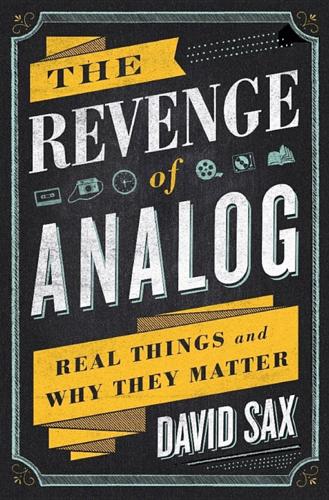
The Revenge of Analog: Real Things and Why They Matter
by
David Sax
Published 8 Nov 2016
Digital work spreads across pretty much every industry, from computer software and hardware companies to divisions within traditionally analog firms that focus on digital tasks, such as e-commerce and information databases. Other terms have been used as synonyms for the digital economy, including the knowledge economy, information economy, Internet economy, and the utopian-sounding new economy. The core idea is that digital technology is a transformative force that can deliver vastly more efficient products and services to consumers at a lower cost, and with greater ease, across time and space, in ways that traditional analog industries cannot compete with.
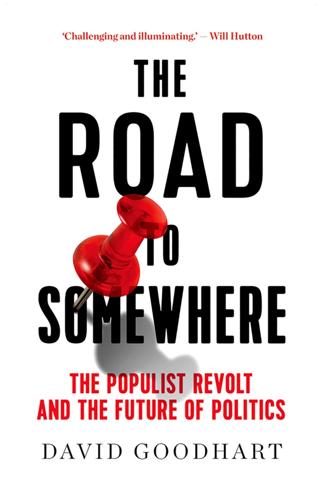
The Road to Somewhere: The Populist Revolt and the Future of Politics
by
David Goodhart
Published 7 Jan 2017
But, as we have seen, for those who do not get the required A levels and go to a good university, still a majority of young people, this expansion has left in its wake a twilight world of mainly lower status jobs and training opportunities—most of which carry a lower public subsidy than higher education. Many young people, especially young men, just turn their backs on the new labour market and end up working in the informal economy or not at all—18 per cent of sixteen to twenty-four year olds in the North East are Neets. Overall employment levels have been at historic highs in recent years partly driven by higher female participation but, as we have seen, youth unemployment remains relatively high (and higher for some ethnic minority young people).
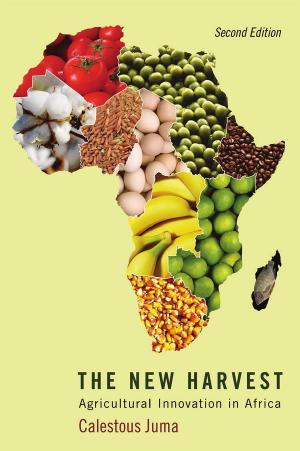
The New Harvest: Agricultural Innovation in Africa
by
Calestous Juma
Published 27 May 2017
As farmer productivity is often constrained by lack of appropriate technology or access to best practice knowledge, inputs, and services, clusters may be able to provide pronounced benefits in the agro-sector. Certain types of clusters may have a more direct impact on poverty. These are the clusters in rural areas and in the urban informal economy; clusters that have a preponderance of SMEs, micro-enterprises, and home workers; clusters in labor-intensive sectors in which barriers to entry for new firms and new workers are low; and clusters that employ women, migrants, and unskilled labor. In many African countries the agricultural sector is dominated by family-based small-scale planting.
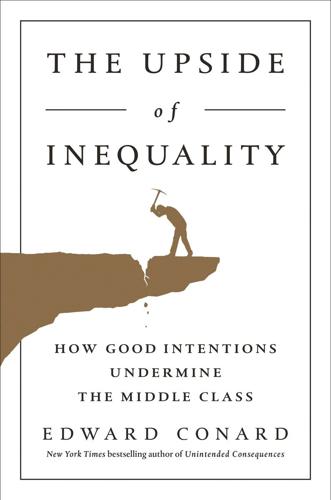
The Upside of Inequality
by
Edward Conard
Published 1 Sep 2016
It has also opened a window of new investment opportunities. And at the same time, the world has grown more prosperous. A more prosperous world logically values innovation more. Given the circumstances, we should expect income inequality to rise. Information Technology Reduces the Need for Capital A shift from a manufacturing economy to an information economy has also increased income inequality. Success in the modern information-intensive economy often requires substantially less capital than the manufacturing-based economy. Information technology scales to economy-wide success without much need for capital. Successful innovators often have less need to share the value they have created with investors.
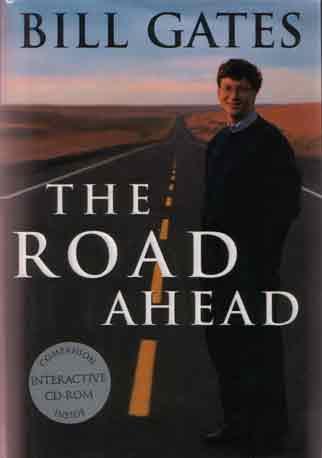
The Road Ahead
by
Bill Gates
,
Nathan Myhrvold
and
Peter Rinearson
Published 15 Nov 1995
British consumers now can choose to get telephone service from their cable TV company. This competition has forced British Telecom to improve its rates and services. If we look back in ten years, I think we'll see a clear correlation between the amount of telecommunications reform in each country and the state of its information economy. Few investors will want to put money into places that don't have great communications infrastructures. There are so many politicians and lobbyists involved in creating new regulations in so many countries, I'm sure the entire spectrum of different regulatory schemes will be tried. The "right" solution will vary somewhat in different countries.
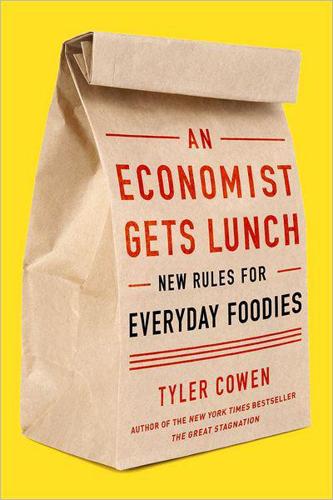
An Economist Gets Lunch: New Rules for Everyday Foodies
by
Tyler Cowen
Published 11 Apr 2012
On the energy costs of sugar refining and processing, and also gasoline versus food, see “Energy Use in the U.S. Food System,” by Patrick Canning, Ainsley Charles, Sonya Huang, Karen R. Polenske, and Arnold Waters, United States Department of Agriculture, March 2010. 9. Why Does Mexican Food Taste Different in Mexico? On the strong Latin influence in El Paso, see Kathleen Staudt, Free Trade? Informal Economies at the U.S.-Mexico Border (Philadelphia: Temple University Press, 1998), pp. 35, 46, and see p. 33 on the history of border relations between the two cities. Juárez is one of the wealthiest parts of Mexico. El Paso has been slipping in wealth compared to the rest of the United States. El Paso per capita income was slightly above the national average in 1950, but by 1991 had declined to 59 percent of the national average; see Staudt, Free Trade?
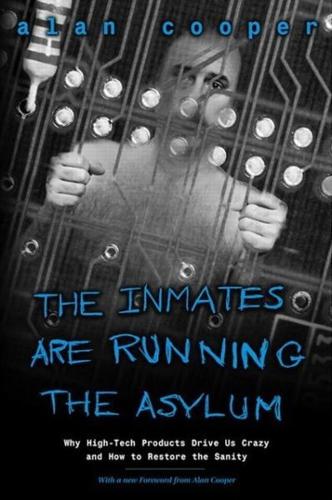
The Inmates Are Running the Asylum
by
Alan Cooper
Published 24 Feb 2004
The user must perform the tasks necessary to handle clients' demands and process orders, but these are only hygienic, because offering these features without addressing the user's personal goals will fail. If the user fails to achieve her own personal goals, she cannot effectively achieve the company's. It is a simple fact of human nature that happy, satisfied workers are more effective ones. This is truer than ever in the modern information economy, in which the true assets of a company are human and not mechanical. On the other hand, if your software ignores practical goals and serves only the user's goals, you will have just designed a computer game. False Goals Most of the software-based products we use every day are created with false goals in mind.
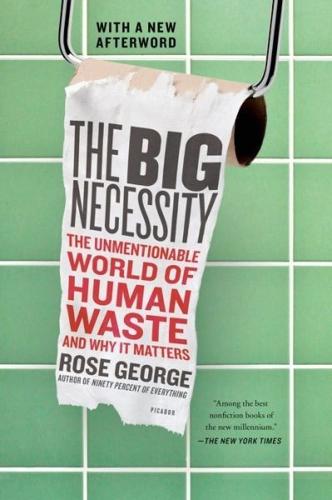
The Big Necessity: The Unmentionable World of Human Waste and Why It Matters
by
Rose George
Published 13 Oct 2008
He is a recycler, because slums are the recycling centers of most cities in the developing world. (In Cuba, I saw doorknobs made from telephones and hairdryers converted from Soviet fans and paint cans.) In poor places, nothing is wasted, because waste only comes with wealth, and waste can, in the flourishing informal economy of the slums, create it. The recyclers and 15,000 one-room businesses in Dharavi, a Mumbai slum that is the largest in Asia, create an economic output estimated at $1.4 billion a year. The recycling man points into the room behind. There are abandoned tables and chairs, the signs of Shankar’s restaurant, now closed.
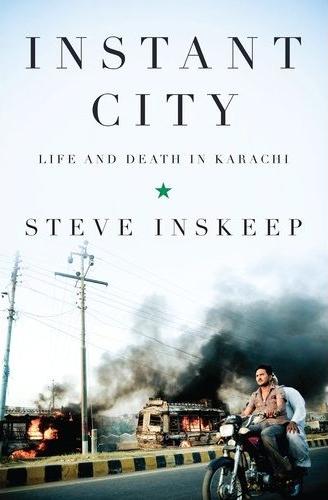
Instant City: Life and Death in Karachi
by
Steve Inskeep
Published 12 Oct 2011
The United Nations noted a sharp decline in urban poverty around the world in the first decade of the twenty-first century. But progress was uneven, and a UN agency described an “urban divide” between haves and have-nots: “a chasm, an open wound.” One of the big dividing lines is between the people in the formal economy, like the developers and construction workers at the Icon Tower, and people in the informal economy, like many of those in illegal homes at Machar. The formal economy has higher wages, greater security, and at least some rules. Rashida. There are also divides between instant cities. Karachi residents know it, and feel it. It pains them. Mumbai has some of the same problems as Karachi, but is seen as a city on the rise.
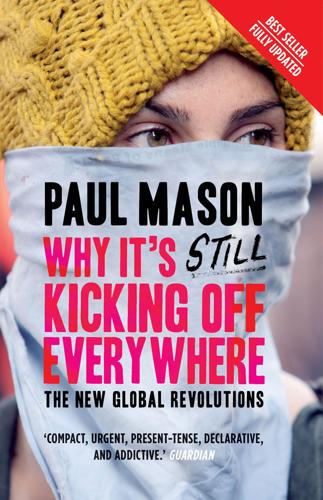
Why It's Still Kicking Off Everywhere: The New Global Revolutions
by
Paul Mason
Published 30 Sep 2013
‘To be honest,’ he says, ‘what we lack in a place like London is that the lower classes can’t live in central London and have to commute for two and a half hours to do the jobs that keep people going.’ But what’s driven this new thinking is not so much vision as a set of ugly economic facts. After the 1970s there was a sharp slowdown in the provision of social housing across the globe. In cities, the move away from state provision of services fuelled the rise of the informal economy and a growing inequality between rich and poor. As a result, we’re having to ask ourselves a question that would have made the nineteenth-century fathers of city planning shudder: do we have to learn to live with slums forever? It’s a question to which the Filipino political elite has defiantly answered ‘No.’
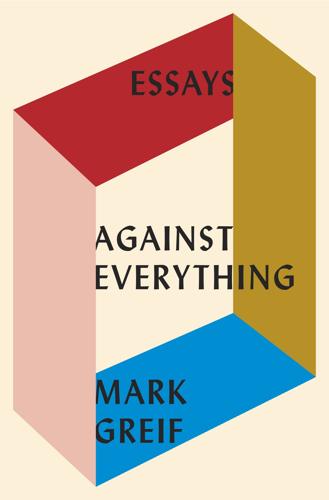
Against Everything: Essays
by
Mark Greif
Published 5 Sep 2016
(Remember the song they sing at the party in The Great Gatsby, “Ain’t We Got Fun,” with its rewritten verse: “One thing’s sure and nothing’s surer / The rich get richer and the poor get—children.”) Nowadays, children are a liability even for the middle classes, because, had too early, they keep you from your now necessary bachelor’s and graduate degrees and, in an “information economy,” stunt your income growth. Yet to choose to have a baby rather than abort is suddenly to be a certain kind of moral hero, at least for antiabortionists and the increasingly wide swath of popular media they pull in their train. The old Malthusian politics of elites (like that of George H. W.
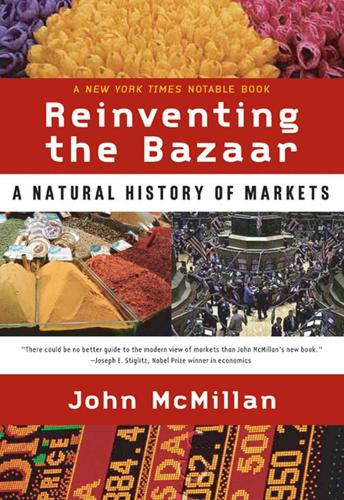
Reinventing the Bazaar: A Natural History of Markets
by
John McMillan
Published 1 Jan 2002
Authors are hardly likely to find motivation in the prospect of earnings that will arrive fifty years after their death. Also, the legislators applied the extension retrospectively to existing copyrights. This is impossible to fathom. Authors do not need incentives to write books they have already written. As the information economy has grown, so have debates about whether information should be owned. To some, intellectual property is a relic of an earlier age. They see a struggle for cyberspace, as copyrights and patents fence off what should be free. A headline in the satirical magazine The Onion put their worries in a nutshell: “Microsoft Patents Ones, Zeroes.”
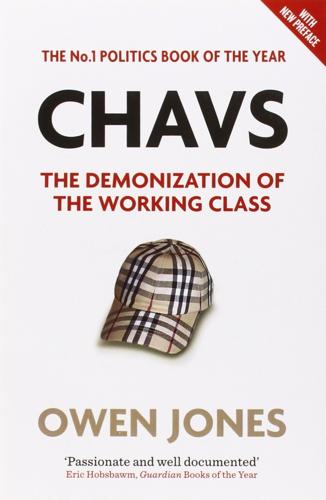
Chavs: The Demonization of the Working Class
by
Owen Jones
Published 14 Jul 2011
Like previous Tory governments, New Labour presided over an overvalued exchange rate, rendering our manufacturing goods deeply uncompetitive abroad. 'It paid lip service to its old industrial base, but did absolutely nothing to help it, and in fact actually made things a lot worse for the manufacturing sector.' With all the talk about the 'information economy' and a country where more people work in pop music than down the mines, it is easy to overstate the point. Nearly four out of every ten men are still manual workers. But there is no denying an obvious trend. Industrial occupations are vanishing with every passing year. Already embattled sectors suffered yet more crippling blows at the hands of the Great Recession of 2008.
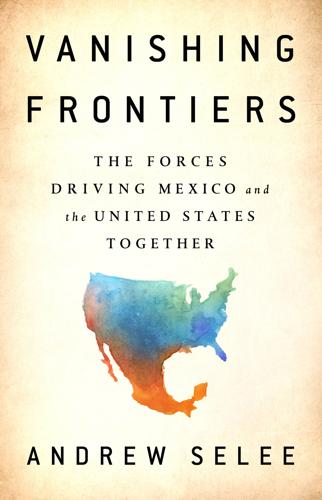
Vanishing Frontiers: The Forces Driving Mexico and the United States Together
by
Andrew Selee
Published 4 Jun 2018
One study by the McKinsey Global Institute found that the productivity of large Mexican businesses with over a hundred employees had increased by an impressive 5.6 percent a year in the decade from 1999 to 2009, but small businesses with fewer than ten employees had actually lost productivity at the rate of 6.5 percent a year. Medium enterprises with more than ten but fewer than a hundred employees grew at an anemic 1 percent a year. Inequality also persists because most smaller Mexican businesses, including family businesses, remain firmly anchored in the informal economy, where they are not registered and don’t pay taxes but also have no access to credit or long-term security. Over half of Mexico’s nonagricultural workers are in the informal sector, largely because it’s simply too complicated and expensive to register a small business legally. In a country where average wages are a quarter of those in the United States, it actually costs around five times more to register a small business.
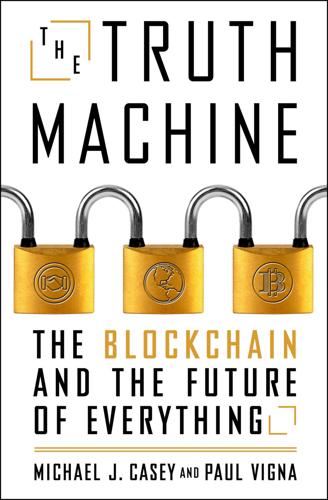
The Truth Machine: The Blockchain and the Future of Everything
by
Paul Vigna
and
Michael J. Casey
Published 27 Feb 2018
Blockchain technology could help achieve what some commentators are calling the promise of “Internet 3.0,” a re-architecting of the Net to assert the core objective of decentralization that inspired many of the early online pioneers who built the Internet 1.0. It turned out that simply giving networks of computers a way to share data directly wasn’t enough to prevent large corporate entities from taking control of the information economy. Silicon Valley’s anti-establishment coders hadn’t reckoned with the challenge of trust and how society traditionally turns to centralized institutions to deal with that. That failure was clear in the subsequent Internet 2.0 phase, which unlocked the power of social networks but also allowed first-mover companies to turn network effects into entrenched monopoly power.
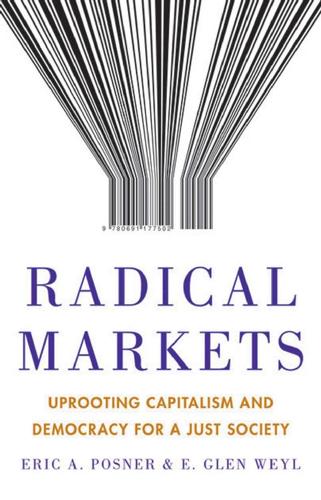
Radical Markets: Uprooting Capitalism and Democracy for a Just Society
by
Eric Posner
and
E. Weyl
Published 14 May 2018
The primary difference between the scenario we describe above and present practice, other than some advances in chat capacities, is that in the world we imagine, Facebook is open and honest about how it uses data and pays for the value it receives with money. The user’s role as a vital cog in the information economy—as data producer and seller—is highlighted. Why is this important? Most people do not realize the extent to which their labor—as data producers—powers the digital economy. Consider how people think of AI. In some portraits, AIs are autonomous agents built by brilliant and possibly mad programmers like the reclusive genius in the 2014 film Ex Machina, who set into motion a system that runs itself.
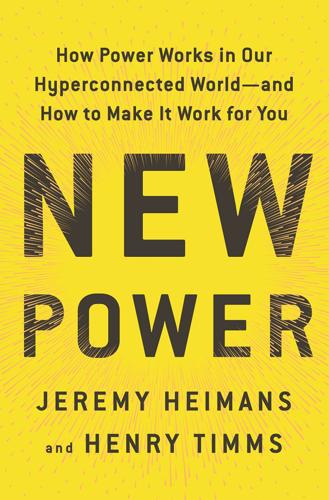
New Power: How Power Works in Our Hyperconnected World--And How to Make It Work for You
by
Jeremy Heimans
and
Henry Timms
Published 2 Apr 2018
“nonmarket-based cooperation”: Yochai Benkler, The Wealth of Networks (New Haven, CT: Yale University Press, 2006). “techno-anarcho-utopian magnum opus”: Matthew Ingram, “The Carr-Benkler Wager and the Peer-Powered Economy,” Gigaom, May 9, 2012. “amateur activity springing up”: Olivier Silvian, “Contingency and the ‘Networked Information Economy’: A Critique of The Wealth of Networks,” International Journal of Technology, Knowledge, and Society 4 (2008): 7. “We could decide to appoint”: Yochai Benkler, “Carr-Benkler Wager Revisited,” Yochai Benkler’s blog, May 7, 2012. www.blogs.harvard.edu. “Pay Up, Yochai Benkler!”: Nicholas Carr, “Pay Up, Yochai Benkler,” Rough Type (blog), May 1, 2012. www.roughtype.com.
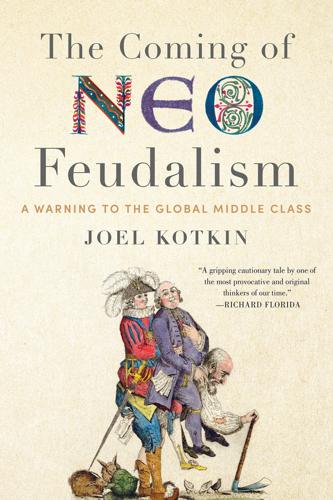
The Coming of Neo-Feudalism: A Warning to the Global Middle Class
by
Joel Kotkin
Published 11 May 2020
By 2018 the government was beginning to expel some migrants from big cities, leaving them not only unable to work, but homeless.5 The migrants represent just part of a new working class who must fend for themselves without the security promised by the Maoist-era “iron rice bowl.” Two-thirds of all Chinese people are either peasants, agricultural laborers, industrial workers, or migrant laborers—all groups unlikely to make it into the middle class by Chinese standards. The vast majority work in the unregulated “informal economy.”6 Opportunities for the working class to move up are also being restricted by the government’s focus on advanced technology sectors and automated production, while a slowing of population growth is reducing the demand for construction workers. Because of the generally poor quality of education in rural areas, migrants typically lack the skills needed to find work in the growing sectors of the economy.7 Joe Zhang, writing in the South China Morning Post, describes how members of his rural family moved to the city for opportunity, but now the work has dried up: Most of my cousins left their farmland about two decades ago for the construction boom in Shenzhen and Zhejiang, and their adult children joined them in recent years.
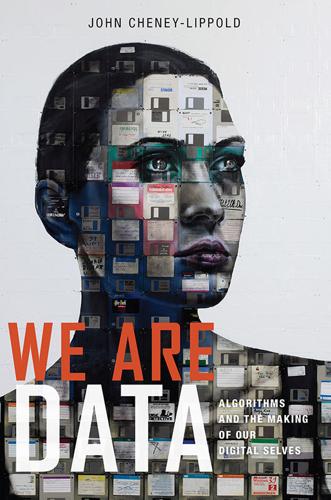
We Are Data: Algorithms and the Making of Our Digital Selves
by
John Cheney-Lippold
Published 1 May 2017
Maciej Ceglowski, “What Happens Next Will Amaze You,” FREMTIDENS Internet Conference, Copenhagen, Denmark, September 14, 2015, http://idlewords.com. 5. Frank Pasquale, Black Box Society: The Secret Algorithms That Control Money and Information (Cambridge, MA: Harvard University Press, 2015), 4–5. 6. Ibid., 8. 7. Greg Elmer, Profiling Machines: Mapping the Personal Information Economy (Cambridge, MA: MIT Press, 2004). 8. John Cheney-Lippold, “A New Algorithmic Identity: Soft Biopolitics and the Modulation of Control.” Theory, Culture & Society 28, no. 6 (2011): 164–181. 9. Antoinette Rouvroy, “The End(s) of Critique: Data Behaviourism versus Due Process,” in Privacy, Due Process, and the Computational Turn: The Philosophy of Law Meets the Philosophy of Technology, ed.
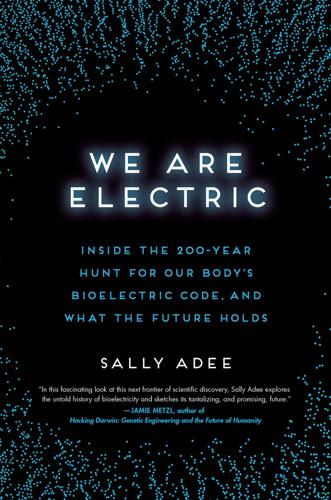
We Are Electric: Inside the 200-Year Hunt for Our Body's Bioelectric Code, and What the Future Holds
by
Sally Adee
Published 27 Feb 2023
Yes, it may be the least offensive implant material we have ever made, and yes, it conducts electrons with the best of the rigid metal implants. There’s just one problem: we don’t speak electron. Lost in translation “There’s a fundamental asymmetry between the devices that drive our information economy and the tissues in the nervous system,” Bettinger told The Verge in 2018.16 “Your cell phone and your computer use electrons and pass them back and forth as the fundamental unit of information. Neurons, though, use ions like sodium and potassium. This matters because, to make a simple analogy, that means you need to translate the language.”
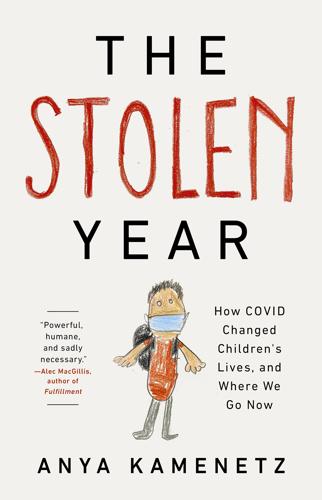
The Stolen Year
by
Anya Kamenetz
Published 23 Aug 2022
It didn’t require certifying and recertifying yourself as needy or worthy, performing gratitude to a neighbor or a pastor, pleasing a bureaucrat in some office, or proving anything at all about your love life. It would arrive automatically to everyone who filed a tax return (which could prove to be a big asterisk, especially for people who work in the informal economy). The money would be mailed out in monthly checks, $250 per child over age six and $300 per child under age six, beginning in July 2021. In the past decade, randomized controlled trials have tested the effects of direct cash assistance, sometimes called universal basic income programs. These studies show that when people get reliable income, it tends to make their lives better.
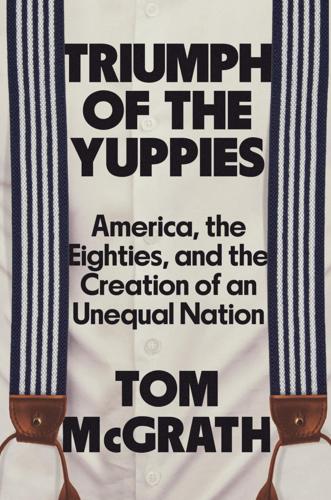
Triumph of the Yuppies: America, the Eighties, and the Creation of an Unequal Nation
by
Tom McGrath
Published 3 Jun 2024
New York City mayor Ed Koch was also an attendee that evening, and he gave Pickens a crystal replica of the city’s symbol, the apple, in recognition of what Pickens had done for New York: The deal had ultimately generated $50 million in fees for New York–based bankers and lawyers. In fact, everyone at the top of the ideas and information economy seemed to make out beautifully in Pickens’s raid on Gulf Oil. The people who didn’t? The twenty thousand oil company workers that Chevron laid off after the merger. In the months that followed, Pickens and other Milken clients continued looking for companies that were appealing takeover targets.
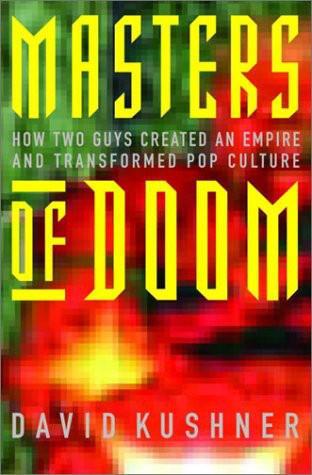
Masters of Doom: How Two Guys Created an Empire and Transformed Pop Culture
by
David Kushner
Published 2 Jan 2003
“Virtual Mayhem and Real Profits,” headlined The New York Times. The Economist published an essay titled “Doomonomics,” which academically explored how “the drippingly gory computer game took its creators from obscurity to riches… [It’s a tale that] holds a lesson of striking relevance to tomorrow’s information economy.” The Red Herring marveled that id had “an entire file filled with letters from VCs and private investors who are just dying to sink cash into [the company]”–yet the company was remaining staunchly and profitably independent. Of course the millions of players who were living the game could give two flying fireballs about any of those things.
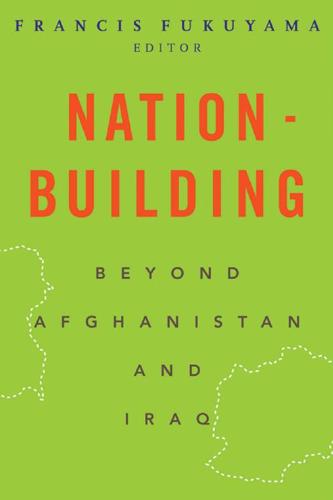
Nation-Building: Beyond Afghanistan and Iraq
by
Francis Fukuyama
Published 22 Dec 2005
On the positive side, sound macroeconomic policies and the very low starting point have made it possible for Afghanistan to enjoy rapid economic growth of “nearly 50 percent cumulatively over the last two years (not including drugs), with double-digit economic growth expected to continue in 2004.”13 The drivers of this growth are largely recovery-related and temporary, however, necessitating a continuing search for sustainable growth alternatives. Most (80–90%) of the Afghan labor force is employed in the informal economy, much of which will have to be formalized for Afghanistan’s recovery to continue. Constraints to developing sustainable development alternatives in a formal economy are substantial, including continuing insecurity, corruption, burdensome regulations, and a broken infrastructure (especially the road network and power grids).14 Also significant was the completion of the Kabul-to-Kandahar portion of the national highway, known as the “Ring Road.”

Misspent Youth
by
Peter F. Hamilton
Published 1 Jan 2002
But it wasn’t an own-your-private-Caribbean-island style of wealth. It could have been, Tim read with growing dismay. That was the bigger part of Jeff Baker’s fame. He could have had a fortune that rivaled that of Bill Gates or Eleanor Pickard. Memory crystals were universal. Without them the entire world would crash to a halt; there would be no information economy—no economy at all, in fact. The tiniest royalty percentage would have given him an income of billions of euros a year from the uncountable numbers of crystals that were grown to feed the voracious global electronics industry. Instead, in an act of benevolence and philanthropy essentially without parallel, Jeff Baker had refused to patent the crystal structure.
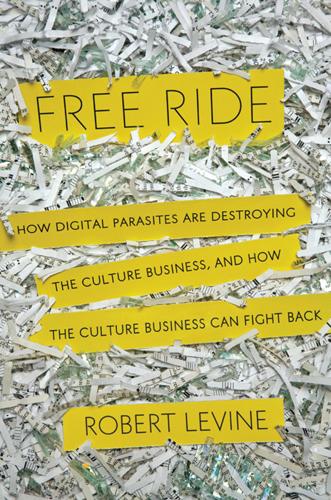
Free Ride
by
Robert Levine
Published 25 Oct 2011
Remember that the Electronic Frontier Foundation was cofounded by John Perry Barlow, who told the governments of the world, “You have no sovereignty where we gather.”35 In May 2010, the organization made the very reasonable suggestion that creators need to stop suing individual copyright infringers.36 Then, a few months later, it objected to COICA on the grounds that it constituted censorship. So what, exactly, should creators do to enforce their rights? And if the answer is nothing, how can any kind of legitimate market develop online? It would be both ironic and tragic if the United States finally developed an information economy only to find that information isn’t actually worth anything. The future isn’t what it used to be. Back in 1993, when Bruce Lehman began to think about crafting a copyright policy for the online world, almost everyone predicted the information superhighway would be a huge boon to the culture business.
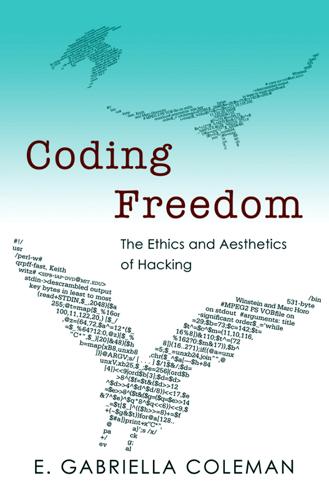
Coding Freedom: The Ethics and Aesthetics of Hacking
by
E. Gabriella Coleman
Published 25 Nov 2012
(Ross 2006, 747) He deems this insufficient, however, poetically stating: “Voices proclaiming freedom in every direction, but justice in none” (ibid., 748). If Ross faults free software for its supposed political myopia, others shine a more revolutionary light on free software and related digital formations, treating them as crucial nodes in a more democratic informational economy (Benkler 2006), and as allowing for novel forms of group association and production (Shirky 2008). If one position demands purity and a broader political consciousness from free software developers, the other position veers in the opposite direction: it has free software perform too much work, categorizing it and other digital media as part of a second coming of democracy, shifting in fundamental ways the social and economic fabric of society.
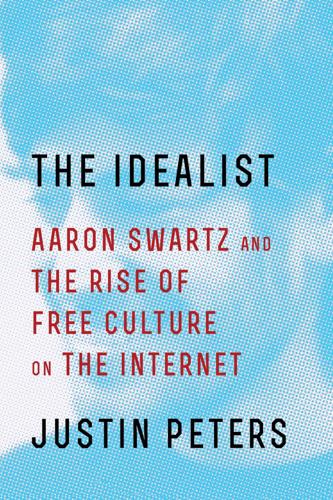
The Idealist: Aaron Swartz and the Rise of Free Culture on the Internet
by
Justin Peters
Published 11 Feb 2013
Though the SEC database was comprised of public data, the agency persisted in treating it as proprietary information. “The SEC database is not a product, but the way that investors are informed of the status of public corporations so they may direct their investment dollars to the proper place,” Malamud wrote in 1997. “Large government databases are not products; they are the very fuel that makes an information economy function properly.”40 Since the SEC filings were public data, once they were purchased from Mead they could be redistributed freely and legally. Theoretically, nothing could stop Malamud from subscribing to EDGAR and then posting every document for free online. And that’s just what he did.
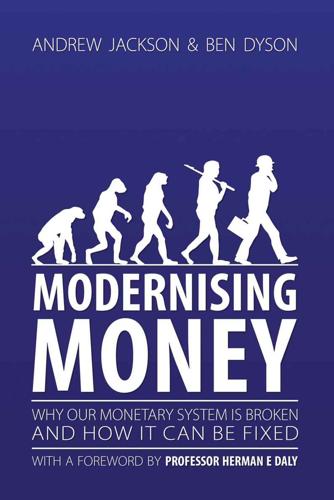
Modernising Money: Why Our Monetary System Is Broken and How It Can Be Fixed
by
Andrew Jackson (economist)
and
Ben Dyson (economist)
Published 15 Nov 2012
By 2005, economic conditions had grown particularly bad. More than 80 percent of the Zimbabwean population was officially unemployed. The informal sector of the economy, which accounted for less than 10% of the total in 1980, was by 2005 the main source of income for the majority of Zimbabweans: more than 3 million people worked in the informal economy compared to only 1.3 million in the formal sector (Tibaijuka, 2005). With economic conditions rapidly worsening, the government resorted to extreme measures to both bolster its position and get the economy under control. For example, in 2005 the government implemented a law which required exporters to sell up to 30 percent of their foreign exchange earnings to the Zimbabwe Reserve Bank at an artificially low exchange rate.
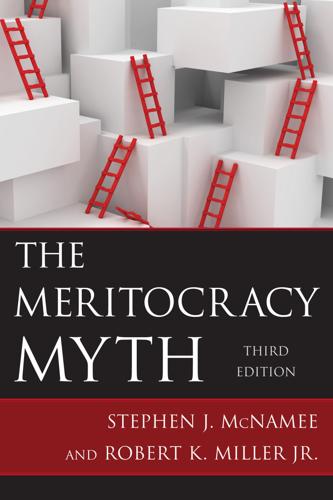
The Meritocracy Myth
by
Stephen J. McNamee
Published 17 Jul 2013
Monthly Labor Review, September, 17–32. Hout, Michael, Asaf Leanon, and Erin Cumberworth. 2011. “Job Loss and Unemployment.” In The Great Recession, ed. David B. Grusky, Bruce Western, and Christopher Wimer, 59–81. New York: Sage. Leonard, Madeleine. 1998. Invisible Work, Invisible Workers: The Informal Economy in Europe and the US. New York: St. Martin’s. Massey, Douglas S. 2007. Categorically Unequal: The American Stratification System. New York: Sage. McCrary, Michael. 1998. “Same Song, Different Verse: Processes of Race-Sex Stratification and Self-Employment.” In Research in Social Stratification and Mobility, vol. 16, ed.

On the Run: Fugitive Life in an American City
by
Alice Goffman
Published 30 Apr 2014
Mike and Chuck regarded this practice with admiration, acknowledging that it’s smart to send money to a man in jail who, if he gives you up, will see his commissary account quickly dry up. But like a marriage, this relationship requires consistent income, and most men in the neighborhood have only sporadic work in either the formal or the informal economy, with quite uneven and low returns. Mike and Chuck certainly couldn’t afford to maintain long-term relationships in which a steady flow of cash or other resources guaranteed the ongoing cooperation of neighborhood residents. But they did occasionally scrape together enough money for one-time payments, mostly to witnesses during trials.
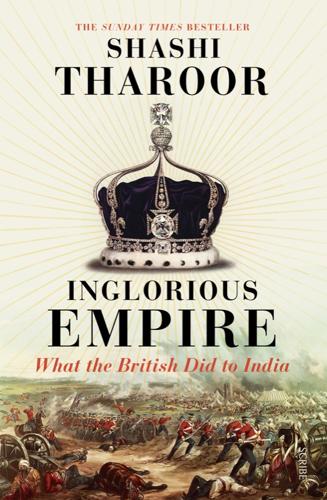
Inglorious Empire: What the British Did to India
by
Shashi Tharoor
Published 1 Feb 2018
The railways were responsible, for instance, for sharply raising the price of rice. Before the railways came, slow water-based transport spread surpluses around the districts, keeping prices in any given areas low. But railways allowed surpluses to be cleanly extracted, essentially making peasants in the rice growing areas (and participating in an informal economy) compete directly with urban Indians and exporters for rice. The same was true of the fish markets. And there are other examples to show how the interests of Indians were never a factor in railway operations: during World War I, several Indian rail lines were dismantled and shipped out of the country to aid the Allied war effort in Mesopotamia!

Age of Anger: A History of the Present
by
Pankaj Mishra
Published 26 Jan 2017
Simply defined, the energy and ambition released by the individual will to power far exceed the capacity of existing political, social and economic institutions. Thus, the trolls of Twitter as much as the dupes of ISIS lurch between feelings of impotence and fantasies of violent revenge. * * * Even in advanced countries, the collapse of the labour market and the systems of solidarity around it, and the growth of the informal economy, bears more than a passing resemblance to the working conditions of the European nineteenth century that were such a fertile soil for revolutionaries, anarchists and terrorists. Marx thought that wage slavery, insecure and impersonal, was worse than serfdom; but, today, stable employment in a single line of work, let alone a single enterprise, is becoming increasingly rare.
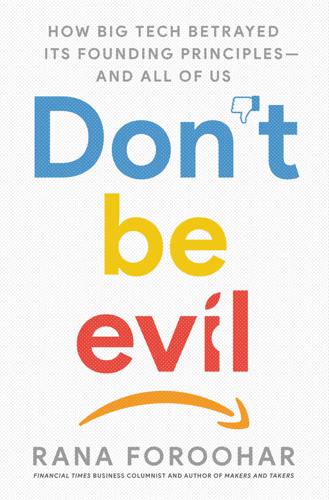
Don't Be Evil: How Big Tech Betrayed Its Founding Principles--And All of US
by
Rana Foroohar
Published 5 Nov 2019
One reason, of course, is global competition, which has put more pressure on U.S. businesses, and pushed companies away from the more equitable postwar pie sharing between workers, corporations, and local communities. Another is the shift in antitrust law. But another, less explored, reason is the network effect that goes along with the platform technology business model.25 Concentration is happening everywhere, but it’s most pronounced within the information economy. (According to the McKinsey Global Institute, industries such as tech, pharma, and finance, which are based on data and intellectual property that can be monopolized and moved anywhere around the world, are the most prone to concentration.)26 It is the economic and political challenge of our time.
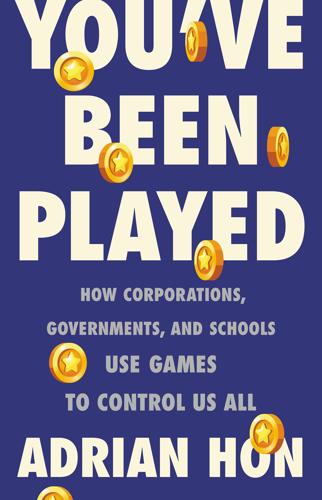
You've Been Played: How Corporations, Governments, and Schools Use Games to Control Us All
by
Adrian Hon
Published 14 Sep 2022
A blog post by Help Scout, one of Zendesk’s leading competitors, makes the same arguments to defend the company’s decision to exclude gamification—that it might reward the wrong kinds of behaviour and result in poor customer service.90 The problem is, companies want gamification in their support systems, and so Zendesk now promotes its integration with Kaizo, a gamification app.91 Another Zendesk competitor, Freshdesk, proudly touts its Arcade system, complete with fully customisable points, levels, quests, and achievements that “break the monotony” and “make support exciting by turning your helpdesk into a game.”92 It sounds sophisticated, but if you’ve already made a solid API-driven support platform, it’s not difficult for programmers to build a gamification layer on top. Those same programmers, the princes of the information economy, aren’t immune from gamification. Big tech companies have always competed to hire the best programmers, but since there are only so many computer science graduates from MIT and Stanford to go around, they’re looking further afield than ever to find those diamonds in the rough, the self-taught geniuses who can’t be found in the usual places.
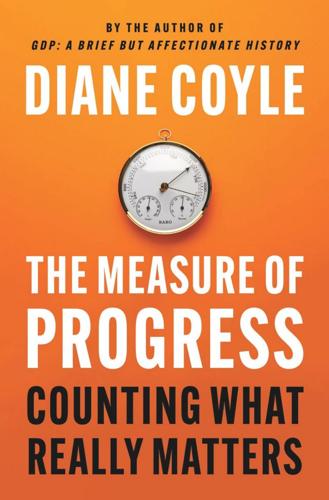
The Measure of Progress: Counting What Really Matters
by
Diane Coyle
Published 15 Apr 2025
But a Deliveroo rider or ride-share driver for Lyft will often use their own vehicle, and carpenters or photographers selling their s ervices via digital platforms w ill buy their own equipment. It is not clear to what extent any of these capital purchases are being measured. Incomes might not even be fully declared as there w ill be some overlap with the informal economy. The bigger platforms are careful to regulate suppliers’ activity so that the law is observed, and they increasingly provide financing deals for vehicles or equipment, insurance, and so on. But for now, the overall scale is a bit of a mystery. What does seem clear is that t here will be less investment by individuals than in the counterfactual world of formally organised employment.
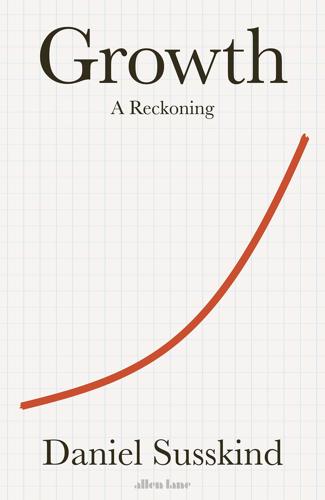
Growth: A Reckoning
by
Daniel Susskind
Published 16 Apr 2024
(In any event, the celebrations were short-lived: the boost was followed by two decades of bad economic decision-making – the very thing that had allowed a huge black-market economy to flourish in the first place – and Italy fell back down the international ladder.)20 The serious point is that countries with large informal economies operating under the statistical radar – not simply for shifty reasons as in Italy, but for good ones, as in many less developed countries – are likely to find that the standard GDP calculation significantly underestimates their economic strength. The final problem is that thanks to technological progress, each of these individual technical difficulties is getting worse.

Markets, State, and People: Economics for Public Policy
by
Diane Coyle
Published 14 Jan 2020
These incentives are most problematic when it is difficult for principals to monitor the behavior of agents and hold them accountable. Government failure and market failure should be seen as two sides of the same coin. Both kinds of failure arise from the context in which social organization inevitably has to occur, with asymmetries of information, economies of scale, and externalities, and where choices are made and decisions taken by humans rather than by ideal economic agents. The aim of this chapter has been to show that government failure occurs precisely because governments are called on to provide services or impose regulations in contexts where there are market failures.
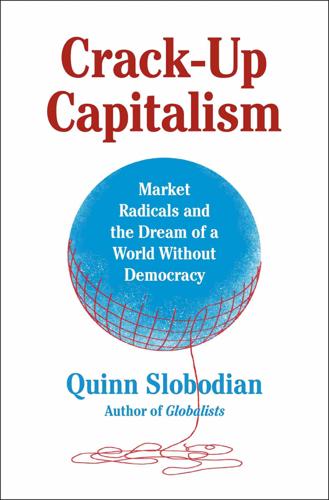
Crack-Up Capitalism: Market Radicals and the Dream of a World Without Democracy
by
Quinn Slobodian
Published 4 Apr 2023
It is about the size of Greater London—or less than 0.1 percent of China’s landmass—yet it is fully independent, with a seat in the UN. What lessons could this tiny anomalous patch of political geography have for much larger, longer-standing powers? Citing the Singapore model only raises the question of which Singapore one means. Is it a welfare dictatorship? A laissez-faire wonderland? A node in the information economy? A triumph of state-led industrialization? A sustainable utopia of public housing and green space? A paranoid surveillance state? All of the above? The micronation of Singapore is a kaleidoscope—it looks different from every angle. Yet despite—or because of—this ambiguity, it remains the lodestar for projects of political economic reinvention from Kazakhstan to Brazil, from Beijing to Britain.
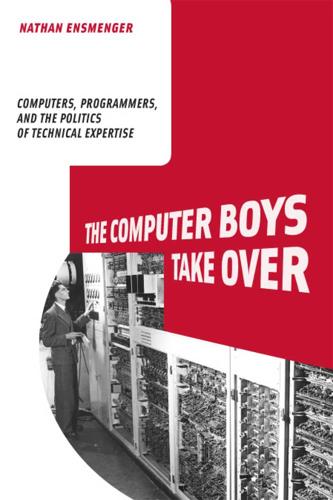
The Computer Boys Take Over: Computers, Programmers, and the Politics of Technical Expertise
by
Nathan L. Ensmenger
Published 31 Jul 2010
In fact, it would be difficult to identify a single aspect of contemporary social, economic, political, or cultural life that has not been profoundly influenced by computers and computer-based technologies—and by extension, the computer specialists who designed and developed these technologies. Despite their omnipresence in contemporary popular culture and sizable representation in the modern information economy, historians have thus far devoted little attention to these ubiquitous but mysterious computer specialists. There are, of course, whole shelves of books devoted to the small number of inventors and entrepreneurs—Bill Gates, Steve Jobs, and Larry Ellison, in particular—who have managed to translate their computing expertise into fabulous wealth and personal celebrity.
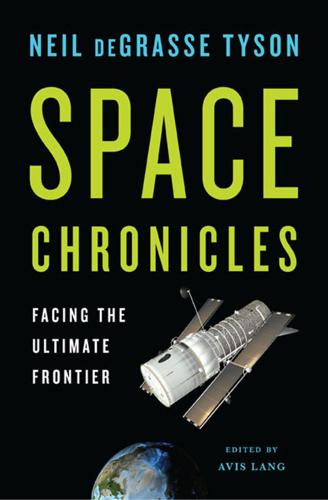
Space Chronicles: Facing the Ultimate Frontier
by
Neil Degrasse Tyson
and
Avis Lang
Published 27 Feb 2012
Their explanation, titled “Finding a needle in the haystack or proving that there may be none,” is worth quoting at length: In the short run, knowing the gravitational constant to one more decimal digit of precision or placing even tighter limits on any deviation from Einstein’s gravitational theory may seem like painfully nit-picking detail. Yet one must not lose sight of the “big picture.” When researchers were measuring the properties of electricity with ever more refined instruments over two hundred years ago, they did not envision continent-spanning power grids, an information economy, or tiny electrical signals reaching us from the unfathomable depths of the outer solar system, sent by man-made machines. They just performed meticulous experiments laying down the laws connecting electricity to magnetism or the electromotive force to chemical reactions. Yet their work paved the way to our modern society.
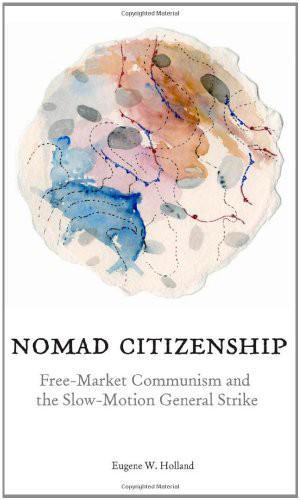
Nomad Citizenship: Free-Market Communism and the Slow-Motion General Strike
by
Eugene W. Holland
Published 1 Jan 2009
This may be because Taylorization better suited a manufacturing economy, up to and including the mass production and mass marketing of commodities characteristic of Fordism, while Follett’s management theory is better suited to the growing importance of what we now know as “im material labor” in the post-Fordist information economy. A very different, sociological rather than economic explanation is offered by Luc Boltanski and Eve Chiapello in their study The New Spirit of Capitalism, which shows that ideas of delayering, flat management and network enterprise represented the nouvelle vague in management theory in France as well as the United States and Japan at the end of the twentieth century.24 But in their view, this new spirit represents capital’s response to the crisis and criticisms of the May 1968 movement rather than gains in economic ef ficiency.
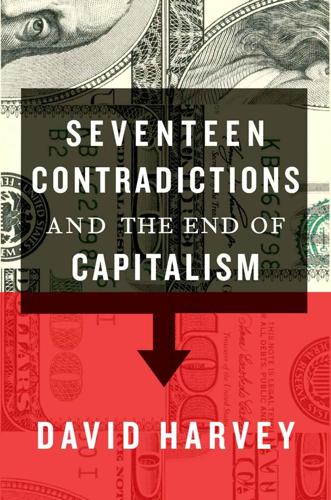
Seventeen Contradictions and the End of Capitalism
by
David Harvey
Published 3 Apr 2014
It also applies to migrant (particularly undocumented) workers in the USA who return to Mexico, where they were born, when they are laid off or get sick (from excessive exposure to pesticides, for example). But, obviously, this does not work when whole families migrate into the city and cut their rural ties. Informal economies spring up (including those that entail criminal activities) to sustain life on marginal terms in low-cost accommodation in shacks, shanty towns and favelas. The unemployed eke out a living however they can in the urban slums. What this does, of course, is to define a way and standard of life and, even more importantly for capital, a cost of living that defines a lower bound for wage levels in the formal sector.
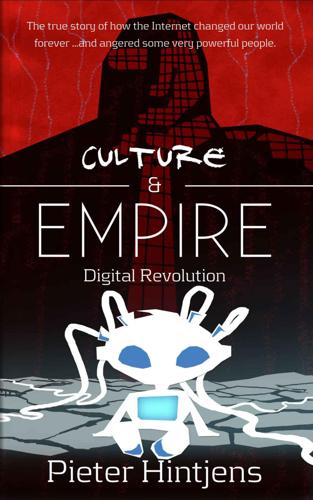
Culture & Empire: Digital Revolution
by
Pieter Hintjens
Published 11 Mar 2013
For example, in the workplace, contracting has become a growing replacement for regulated employment. The employee who is working for a large static firm is a zombie concept. The future belongs to the self-employed contractor who joins highly focused groups, some of which may be small companies, and most are simply "projects." The Internet hosts untold millions of such projects -- an informal economy that must surely exceed the formal economy by at least an order of magnitude. The reason is very simple: an employee who can work on one project at once is an order of magnitude less productive than a contractor who can share bandwidth with half a dozen projects. Not only can contractors specialize and thus be more efficient, they can also reuse their knowledge and skills over and over in different contexts.
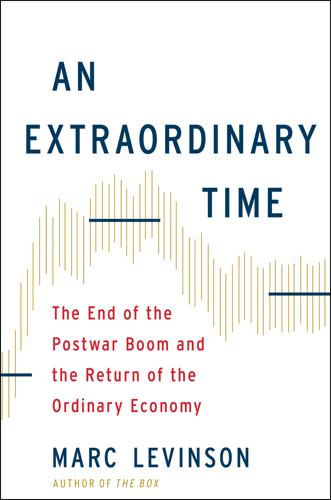
An Extraordinary Time: The End of the Postwar Boom and the Return of the Ordinary Economy
by
Marc Levinson
Published 31 Jul 2016
Japan and South Korea, the rising industrial powers, were the outliers in the late 1970s, but within a few years their manufacturing sectors, too, would begin to shed workers. Governments eager to restore past glories did not like the fact, but the industrial economy was slowly yielding to the information economy, and no amount of government assistance was going to bring it back. CHAPTER 9 The End of the Dream Economically, the struggles of the factory sector were challenging. Psychologically, they were devastating. When recession set in at the end of 1973, more than one-quarter of the civilian workers in the wealthy economies were engaged in manufacturing.

The Age of Entitlement: America Since the Sixties
by
Christopher Caldwell
Published 21 Jan 2020
The breakthrough, when it came, would arise from attempts by Western Electric and various phone companies after the 1960s at “crossing a telephone with a TV set.” The first harvest of innovation came from Japan, starting with the Panasonic Toot-a-Loop AM-radio-and-bracelet, and culminating in the Sony Walkman, the great bridge product from the industrial to the information economy, released in the final weeks of the 1970s. Artists were generally as blind as anyone else to the upshot of computers, even as the computer age approached. Stanley Kubrick’s 2001: A Space Odyssey (1968) correctly anticipated both voiceprint security identification and, seemingly, the end of the Cold War.
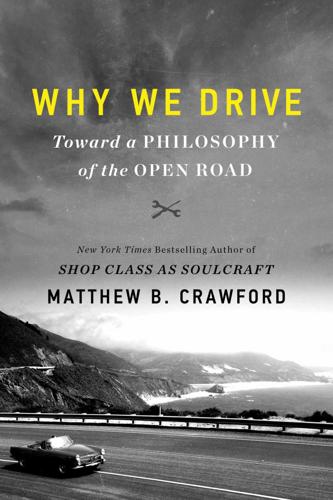
Why We Drive: Toward a Philosophy of the Open Road
by
Matthew B. Crawford
Published 8 Jun 2020
While the toddlers and their mothers socialized on the sidewalk, the neighborhood social life of the males took place mostly in the unpaved alleys between streets, where the sheds and garages abutted. Everyone knew who had a sandblaster, who had welding equipment, who had a metal lathe, who was especially good at diagnosing electrical gremlins, and so on. There was a good informal economy of favors done and six-packs delivered. My next-door neighbor was a cop. We absolutely hated each other but regularly found ourselves in this kind of intercourse. In my new neighborhood the lawns are meticulous, the houses are much farther apart, there are no alleys or sidewalks, and recycling is taken very seriously.
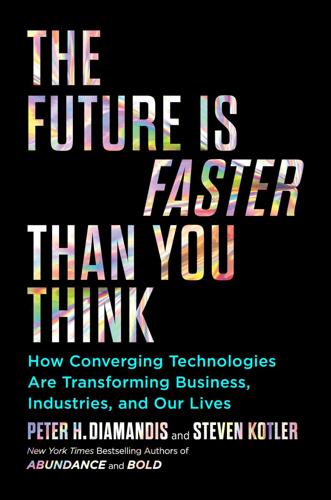
The Future Is Faster Than You Think: How Converging Technologies Are Transforming Business, Industries, and Our Lives
by
Peter H. Diamandis
and
Steven Kotler
Published 28 Jan 2020
Theoretically, workers have been on the fast track to obsolescence since the Luddites took sledgehammers to industrial looms in the early 1800s. In 1790, 90 percent of all Americans made their living as farmers; today it’s less than 2 percent. Did those jobs disappear? Not exactly. The agrarian economy morphed, first into the industrial economy, next into the service economy, now the information economy. Automation produces job substitution far more than job obliteration. Even when there’s automation, this doesn’t always create the dire results we expect. Consider automatic teller machines (ATMs). When they were first rolled out in the late 1970s, there were serious concerns about bank teller layoffs.
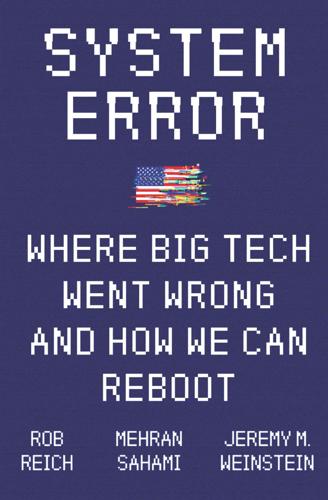
System Error: Where Big Tech Went Wrong and How We Can Reboot
by
Rob Reich
,
Mehran Sahami
and
Jeremy M. Weinstein
Published 6 Sep 2021
And there is increasing recognition that their power isn’t only a result of their high-quality products. Instead, their dominance reflects unique features of information technology—“network effects” in which goods or services become more valuable as more people use them—and the decidedly hostile view toward regulation that enabled the growth of the information economy in the 1990s but failed to put any meaningful constraints into place. US regulators are finally getting into the game and playing catch-up to Vestager and her EU colleagues. In late 2020, a flood of major lawsuits was filed in US courts against the big tech companies. The Federal Trade Commission and forty-eight US state attorneys general took aim at Facebook, arguing that the company had achieved its dominance by buying or burying its rivals, thus limiting consumers’ choices and access to privacy protections.
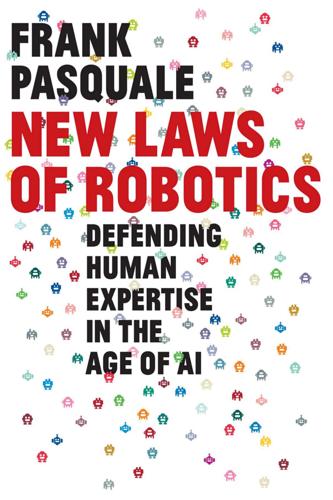
New Laws of Robotics: Defending Human Expertise in the Age of AI
by
Frank Pasquale
Published 14 May 2020
Dan Diamond, “Obamacare: The Secret Jobs Program,” Politico, July 13, 2016), http://www.politico.com/agenda/story/2016/07/what-is-the-effect-of-obamacare-economy-000164. 50. Alyssa Battistoni, “Living, Not Just Surviving,” Jacobin Magazine, August 2017, https://jacobinmag.com/2017/08/living-not-just-surviving/. 51. Eamonn Fingleton, In Praise of Hard Industries: Why Manufacturing, Not the Information Economy, Is the Key to Future Prosperity (New York: Houghton Mifflin, 1999); Andy Grove, “How America Can Create Jobs,” Bloomberg (July 1, 2010), https://www.bloomberg.com/news/articles/2010-07-01/andy-grove-how-america-can-create-jobs. 52. Douglas Wolf and Nancy Folbre, eds., Universal Coverage of Long-Term Care in the United States Can We Get There from Here?
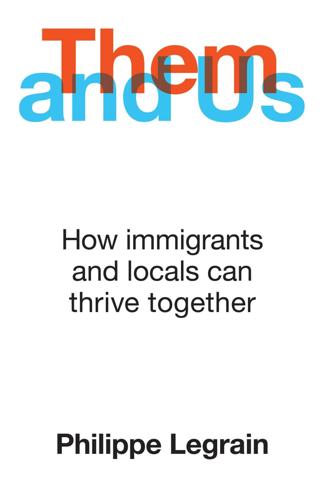
Them and Us: How Immigrants and Locals Can Thrive Together
by
Philippe Legrain
Published 14 Oct 2020
Cranes and construction sites sprouted up everywhere. There too, many of the workers are African. Souleymane arrived in Europe from Togo in 2015 on a rescue boat that docked in Italy. After finally obtaining a two-year residence permit, he travelled to Malta on a ferry to try to find a job in the informal economy. The West African migrant now works on a construction site. It’s hard work – eight hours a day, six days a week – for pay that seems low for Maltese workers: 500 euros a month.6 But whereas his wages are only a third of the average salary in Malta,7 they are more than five times what he could earn in Togo.

Border and Rule: Global Migration, Capitalism, and the Rise of Racist Nationalism
by
Harsha Walia
Published 9 Feb 2021
Liberal elite responses center humanitarian benevolence and Europeans materialize as saviors, while refugees are burdened with the expectation of performing gratitude and assimilating into the racial social order and capitalist markets. Further, the rhetoric of “refugees welcome” masks the inhospitable reality for nearly nine hundred thousand refugees still in limbo across Europe in 2019—most languish in hotspots or camps, sleep on the streets or in overcrowded housing, are underpaid and exploited in the informal economy, and anxiously wait for their claims to be approved. Refugee claim rejection rates have actually doubled between 2016 and 2019.99 Germany’s much-lauded Willkommenskultur (welcome culture) evaporated once refugees were accused of not integrating, characterized as a drain on resources, and blamed for gendered violence.

The City on the Thames
by
Simon Jenkins
Published 31 Aug 2020
Within a decade the estimated number of heroin users shot from 6,000 nationwide to 60,000. Dealers were better salesmen than Boots. For poorer parts of London, harsh penalties for drug possession and dealing gave London’s criminal gangs a new source of blackmail and income that became embedded in London’s so-called informal economy. The act also stimulated police corruption. The Metropolitan Police, under Home Office control, had long been a freemasonry apart. Since the nineteenth century, the force’s relationship with London’s criminal community had bordered on reciprocal tolerance. In the sixties and seventies, the Kray and Richardson families ran empires of sex, night clubs and extortion under the eyes of the authorities, touched with a seedy glamour.
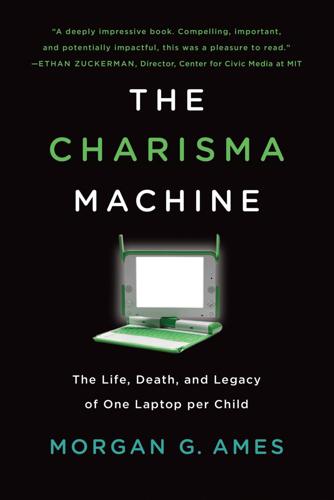
The Charisma Machine: The Life, Death, and Legacy of One Laptop Per Child
by
Morgan G. Ames
Published 19 Nov 2019
It is much poorer than its neighbors Uruguay and Argentina, and its wealth is unevenly distributed.32 The World Bank estimated that in 2009, the year Paraguay Educa distributed its first batch of laptops, 35% of the Paraguayan population lived in poverty, with 19% (mostly rural subsistence farmers) in extreme poverty, though this represented an improvement since the overthrow of Stroessner in 1989, after thirty-five years of dictatorial rule.33 During Stroessner’s dictatorship, education was systematically defunded and devalued: when he was overthrown, only 1.7% of the country’s gross domestic product was spent on education, including university education, and this number had only risen to 3.8% by 2010, the year I arrived in Paraguay to observe the project (still lagging behind the Organization of Economic Cooperation and Development average of 5.4%).34 The official minimum wage in Paraguay in the second half of 2010, during my fieldwork, was 1,507,484 guaranies (about $320) a month.35 Minimum-wage laws were underenforced, however, and the majority of the population worked either in the exempt public sector (including teachers) or in Paraguay’s extensive informal economy, many of them making significantly less than minimum wage.36 Despite creating challenges, these conditions also made Paraguay a more ideal intervention site as imagined by OLPC leadership: a place of poverty, in need of educational reform. Paraguay Educa’s Infrastructural Translations Despite the fact that Paraguay Educa believed in the charismatic ideals of One Laptop per Child, the NGO departed from Negroponte’s claim that it could just hand out laptops and walk away.
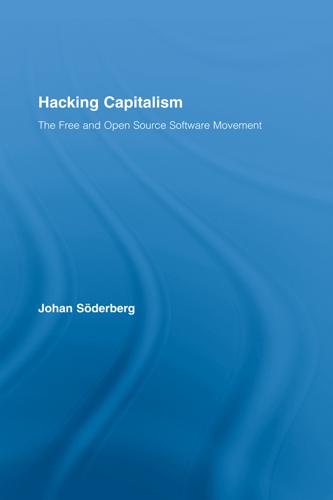
Hacking Capitalism
by
Söderberg, Johan; Söderberg, Johan;
Sources for the Study of Science, Technology and Everyday Life 1870–1950—A Secondary Reader, vol.II, London: Hodder & Stoughton, 1988. Cohen, Gerhald. Karl Marx’s Theory of History—A Defence, Oxford: Clarendon Press, 2000. Collins, Hugh, Marxism and Law, Oxford: Clarendon Press, 1982. ed. Comor, Edward. The Global Political Economy of Communication—Hegemony, Telecommunication and the Information Economy, St Martin’s Press: New York, 1994. Coombe, Rosemarry. The Cultural Life of Intellectual Properties—Authorship, Appropriation, and the Law, London: Duke University Press, 1998. Costa, Mariarosa and Selma James. The Power of Women and the Subversion of the Community, Bristol UK: The Falling Wall Press, 1973.
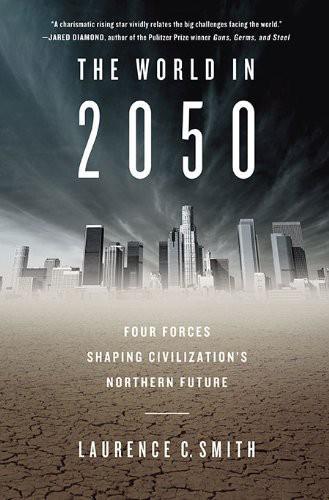
The World in 2050: Four Forces Shaping Civilization's Northern Future
by
Laurence C. Smith
Published 22 Sep 2010
They are grouped into four families (A1, A2, B1, and B2) exploring alternative development pathways, covering a wide range of demographic, economic, and technological driving forces and resultant greenhouse gas emissions. B1 describes a convergent, globalized world with a rapid transition toward a service and information economy. The A1 family assumes rapid economic growth, a global population that peaks around 2050, and rapidly advancing energy technology, with A1B assuming a balance between fossil and nonfossil energy. A2 describes a nonglobalized world with high population growth, slow economic development, and slow technological change.
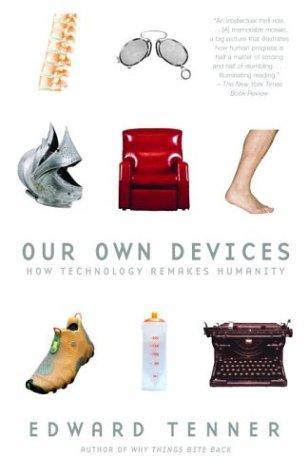
Our Own Devices: How Technology Remakes Humanity
by
Edward Tenner
Published 8 Jun 2004
In civilian life, her French-born husband was a professional mind-reader. The chair was later produced under the Craftmatic brand until the 1990s.)32 Just as the pace of industrial work in the early twentieth century inspired desk chairs that promoted an optimal upright posture, the beginnings of an information economy made people more conscious of their leisure. Barcalo successfully courted physicians, who recommended and even prescribed its chairs. A 1951 article, “Learn to Relax,” in Today’s Health, recommended stretching out on a couch or bed with the head supported by a pillow: “You relax by letting yourself go limp.
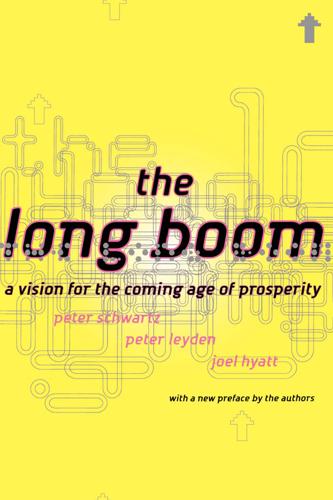
The Long Boom: A Vision for the Coming Age of Prosperity
by
Peter Schwartz
,
Peter Leyden
and
Joel Hyatt
Published 18 Oct 2000
The problem lies in the government measurements, which are rooted in old ways of counting the number of widgets—tangible things—coming off the assembly line, rather than the intangible products of the New Economy, like software and financial packages. On the one hand, we're waiting for new methods to be devised to properly measure productivity in an information economy. On the other, as with any fundamentally new technology, it takes decades for a workforce to reorganize its work to get the most productivity out of new tools. We're now increasingly seeing those kinds of work-flow breakthroughs. ThE MillENNiftl TRANSITION 47 The real proof of the productivity of the new computer technologies—and by extension, the New Economy—is in the overall performance of the economy that houses them.
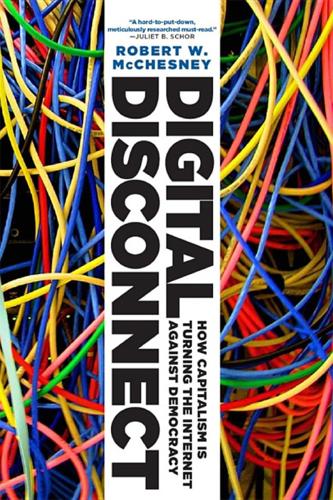
Digital Disconnect: How Capitalism Is Turning the Internet Against Democracy
by
Robert W. McChesney
Published 5 Mar 2013
During these times the rich have prospered and everyone else has floundered. Joseph Stiglitz states that the field of economics has provided no credible justification for anything remotely close to America’s staggering inequality.16 Pundits and politicians tell us that increasing inequality is a function of a new information economy that rewards skilled workers—a necessary consequence of an innovative and dynamic economy. Scholars like James Galbraith, as well as Jacob Hacker and Paul Pierson, systematically demolish this rationalization. Galbraith’s research emphasizes the importance of the growth of the financial sector and debt, which created massive inequality over the past three decades.17 This growth required government policies and support.18 Hacker and Pierson establish that the skewing of American incomes was due primarily to major policy changes, especially pro-billionaire revisions in the tax code and business regulations, as well as the weakening of organized labor.
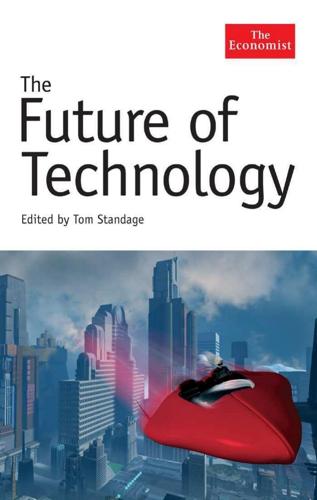
The Future of Technology
by
Tom Standage
Published 31 Aug 2005
Perhaps surprisingly, it seems that they do, as demonstrated by the work of Vernon Smith of George Mason University in Virginia. (Mr Smith is considered the founding father of this field and won the 2002 Nobel prize in economics.) T Secret agent hp goes further. The firm’s team of five researchers does not test economic theories, but tries to create “novel mechanisms to improve the fluidity of interactions in the information economy”, says Bernardo Huberman, head of the group. In everyday language, the researchers are working on clever tools that make it easier to negotiate online, establish reputations and make forecasts. Mr Huberman’s group already has something to show for its efforts. It has developed a methodology for predicting uncertain events using a small group of individuals.
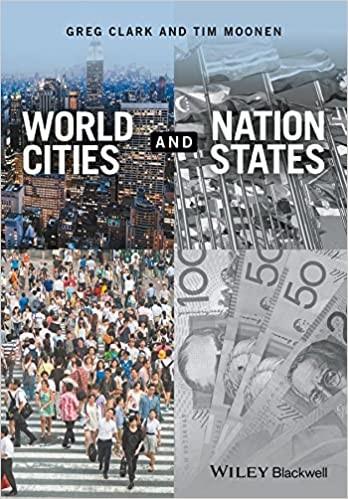
World Cities and Nation States
by
Greg Clark
and
Tim Moonen
Published 19 Dec 2016
Whether that means connecting new residents to jobs, absorbing new wealth‐generating sectors near the city centre or responding to the demand of younger adults and older generations for urban living, the pace of change in such cities reveals rigidities quickly. Other cities experience the ongoing rise of the informal economy and high rates of unemployment and under‐employment, especially among recent arrivals. The disparities that accumulate from such unplanned and unanticipated growth have become serious. They erode quality of life and the sense of cohesion within the city, and they give rise to opposition and hostility to the entire world city model – among local residents and those farther afield.
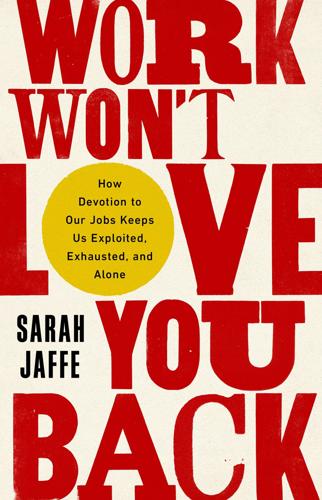
Work Won't Love You Back: How Devotion to Our Jobs Keeps Us Exploited, Exhausted, and Alone
by
Sarah Jaffe
Published 26 Jan 2021
And who wouldn’t prefer to be a customer, who can ask to speak to a manager if something goes wrong, rather than an eternally meek and grateful intern? 31 With such gatekeeping in the way, it’s no wonder that the culture industries, in particular, but also the world of work in general, are increasingly stratified, and that upward mobility has stalled. Research in the United Kingdom found that internships “operate as part of an informal economy in which securing an internship all too often depends on who you know and not on what you know.” Paying interns, the researchers concluded, would help, but on its own would not be enough. And the results of such an economy were stark: in journalism, for example, fewer than 10 percent of new workers came from working-class backgrounds.
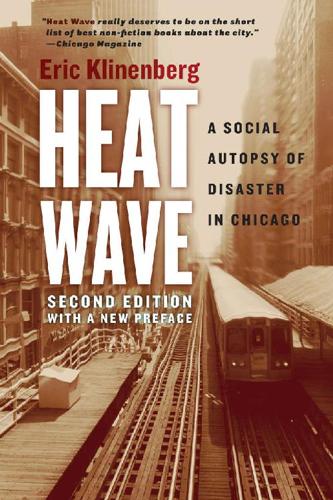
Heat Wave: A Social Autopsy of Disaster in Chicago
by
Eric Klinenberg
Published 11 Jul 2002
And a lot of them say, well, the things that they like, like vegetables, are expensive and hard to find. . . . The food is a big issue.”40 North Lawndale’s older residents not only lack animated public spaces and basic resources that pull them into the streets, they also face a range of local social and spatial pressures that push them to remain at home. A booming informal economy in illicit drugs has replaced the formal commercial economy that once supported the neighborhood, and the violent conflicts among young dealers and gang-bangers who battle for territory and market share have made North Lawndale a dangerous region, day and night. In 1995, a group of residents in one of the neighborhood’s many criminal hot spots told me, drug dealers occupied several corners in the area.
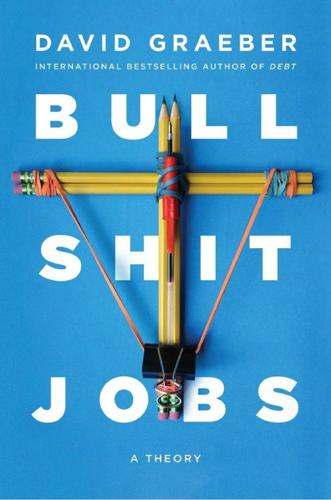
Bullshit Jobs: A Theory
by
David Graeber
Published 14 May 2018
London: Routledge, 2016. Hardt, Michael, and Antonio Negri. Labor of Dionysus: A Critique of the State Form. Minneapolis: University of Minnesota Press, 1994. ________. Empire. Cambridge, MA: Harvard University Press, 2000. Hayes, Robert M. “A Simplified Model for the Fine Structure of National Information Economies.” In Proceedings of NIT 1992: The Fifth International Conference on New Information Technology, 175–94. W. Newton, MA. MicroUse Information, 1992. Hochschild, Arlie Russell. The Managed Heart: Commercialization of Human Feeling. Berkeley: University of California Press, 2012. Holloway, John.
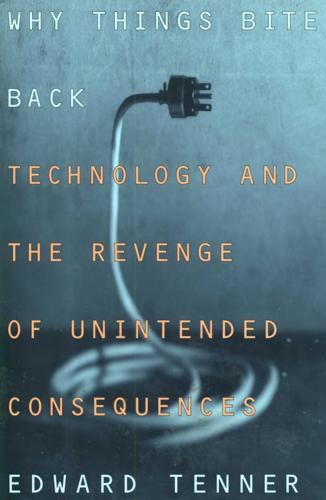
Why Things Bite Back: Technology and the Revenge of Unintended Consequences
by
Edward Tenner
Published 1 Sep 1997
By the I97os, prophets of the future workplace had learned that the safest bet was to predict unremitting and bewildering change. One could be right no matter what happened, unless, of course, a long period of stability ensued. As the world's romance with atoms-for-peace came to an end, futurists shifted their sights toward a new utopianism: visions of a knowledge-driven information economy in which "altering the position of matter at or near the earth's surface," in Bertrand Russell's phrase, would become almost a memory. Business magazines once adored the giants of smokestack industry; they have since shifted their admiration to entrepreneurs whose products either are largely intangible (Microsoft) or are produced in myriad overseas plants ( Nike).

Shadow Libraries: Access to Knowledge in Global Higher Education
by
Joe Karaganis
Published 3 May 2018
Neither publishers nor booksellers, however, have much information about how students get what they need outside the bursary system. Most of them view photocopying as the main form of student access, and the blanket license with DALRO as a satisfactory way of dealing with copying at this level. They tend to see the license agreement as a source of revenue for the industry that would otherwise be lost to the large informal economy, rather than susceptible to recuperation from students through enforcement or other forms of pressure. Few see much benefit in provoking the powerful student activist movement, which is organized in response to the escalating cost of higher education. Accordingly, publisher enforcement efforts have largely ignored students in favor of targeting the copy shops that reproduce textbooks on a large scale for sale in peak seasons.
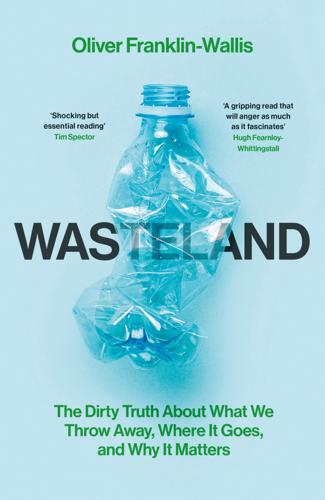
Wasteland: The Dirty Truth About What We Throw Away, Where It Goes, and Why It Matters
by
Oliver Franklin-Wallis
Published 21 Jun 2023
India, where they are sometimes called kabadiwala (‘rag men’), is home to as many as 4 million waste pickers, around 5,000 of them working here on the mountain and living among the sprawling jhuggis, or informal settlements, around its base. However they are known, the waste pickers’ task is fundamentally the same: they are the recyclers of the informal economy, finding value in what we throw away. In one man’s trash, another’s treasure. I’d met Anwar and my other companion, an intense, thickly bearded man named Sheikh Akbar Ali, through the Delhi-based waste NGO Basti Suraksha Manch. Broad-chested in a puffer jacket and Covid mask, a woollen hat pulled tight on his head, Akbar is technically not a waste picker but a waste trader.

The Bookshop: A History of the American Bookstore
by
Evan Friss
Published 5 Aug 2024
GO TO NOTE REFERENCE IN TEXT Fights broke out: “Peddlers Irk Stores in Harlem,” NYT, September 24, 1990; Jonathan P. Hicks, “Police Move Street Vendors in Harlem,” NYT, October 18, 1994; and Paul Stoller, “Spaces, Places, and Fields: The Politics of West African Trading in New York City’s Informal Economy,” American Anthropologist 98, no. 4 (December 1996): 776–88. GO TO NOTE REFERENCE IN TEXT “the idea of buying”: Kugel, “For an Enterprising Bookseller, It’s Sidewalk, to Store, and Back”; Polner, “Putting a Spanish Accent on the Selling of Books”; and John High, “Taking It to the Streets,” PW, July 3, 2000, 18–19.
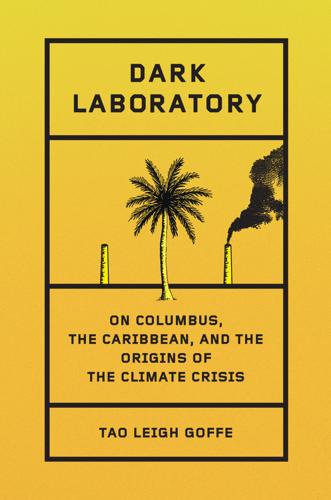
Dark Laboratory: On Columbus, the Caribbean, and the Origins of the Climate Crisis
by
Tao Leigh. Goffe
Published 14 Mar 2025
NGOs do not have the capacity to save us, even if they are approved as fiscal sponsors, because they are not incentivized to. Many across the world profit from forming dependencies of bureaucracy and money laundering under the guise of philanthropy and what Canadian author and climate activist Naomi Klein would call disaster capitalism. Decentralized networks and informal economies have been invisible systems of recovery. But these modes of self-organization are discredited, as if there are not Indigenous forms of policymaking and mutual aid in place. Neighboring islands have most swiftly provided safe harbor and supplies to climate refugees, but nothing about this intervention is evenly distributed.
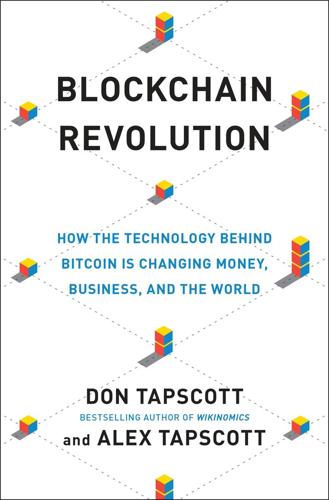
Blockchain Revolution: How the Technology Behind Bitcoin Is Changing Money, Business, and the World
by
Don Tapscott
and
Alex Tapscott
Published 9 May 2016
Where it costs only 3.4 percent of per-capita income to start a business in OECD countries, it costs 31.4 percent in Latin America and a shocking 56.2 percent in sub-Saharan Africa. In Brazil, an entrepreneur has to wait almost 103 days to incorporate his company versus 4 days in the United States and half a day in New Zealand.13 Exasperated by government bloat and inefficiency, many would-be developing-world entrepreneurs instead choose to operate in the so-called informal economy. “There are a bunch of things taken for granted in the West. Property records are fine-tuned, for example. In the Global South, entrepreneurs would rather the government not know they exist. We need to make identity a profitable proposition,” said Hernando de Soto. For now, staying in the shadows frees these entrepreneurs from meddlesome and corrupt officials, but it also profoundly limits their ability to grow their business, limits rights, and makes “dead capital” of money that could otherwise be deployed more efficiently.14 Moreover, even for those who operate their businesses in the open, laws of many countries do not provide for limited liability.
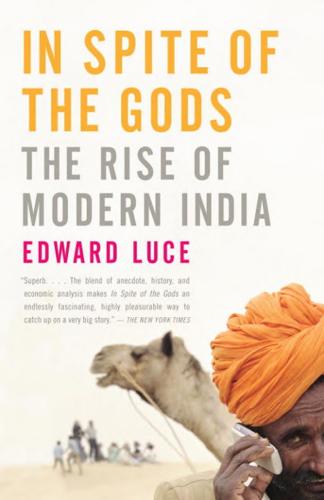
In Spite of the Gods: The Rise of Modern India
by
Edward Luce
Published 23 Aug 2006
This means that companies are reluctant to hire large numbers of people even when they are expanding since they fear being stuck with boom-era payrolls during the next recession, which would push them into bankruptcy and endanger everyone’s job. But it also means companies prefer to outsource as much as possible of their work to small, unaudited outfits in the “unorganized sector,” so they can escape the labor laws, which are unenforceable in India’s labyrinthine informal economy. There are other legacies that have yet to be abolished, including the “Inspector Raj” of constant inspections that plagues much of Indian business. As Gurcharan Das, former head of Procter & Gamble’s India operations, wrote, “In my thirty years in active business in India, I did not meet a single bureaucrat who really understood my business, yet he had the power to ruin it.”11 There are also unintended consequences to another of Nehru’s critical policies: the decision to pour as much money into English-language universities for the middle classes as he did into primary schools for the villages.
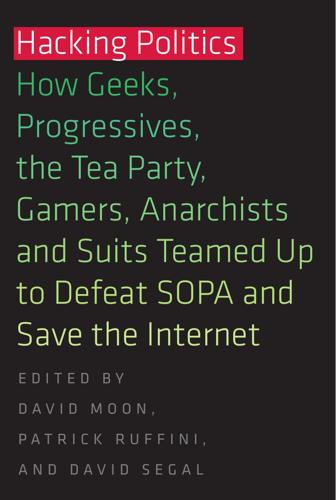
Hacking Politics: How Geeks, Progressives, the Tea Party, Gamers, Anarchists and Suits Teamed Up to Defeat SOPA and Save the Internet
by
David Moon
,
Patrick Ruffini
,
David Segal
,
Aaron Swartz
,
Lawrence Lessig
,
Cory Doctorow
,
Zoe Lofgren
,
Jamie Laurie
,
Ron Paul
,
Mike Masnick
,
Kim Dotcom
,
Tiffiniy Cheng
,
Alexis Ohanian
,
Nicole Powers
and
Josh Levy
Published 30 Apr 2013
To become a permanent counterbalance to traditional governments, the bitroots movement will need to become more nuanced and more proactive. To avoid the very real possibility of mob rule, Internet activists must use their power responsibly. SOPA was a gimme. But legislators and regulators won’t go quietly from this or future efforts to exert their influence over the Internet. As the information economy increasingly becomes the economy that matters, we’ll need to find ways to accommodate Internet values to traditional rulemaking, to bridge the expanding chasm between Capitol Hill and Silicon Valley. The stakes are high—the future of the economy as well as the technology depends on getting it right.
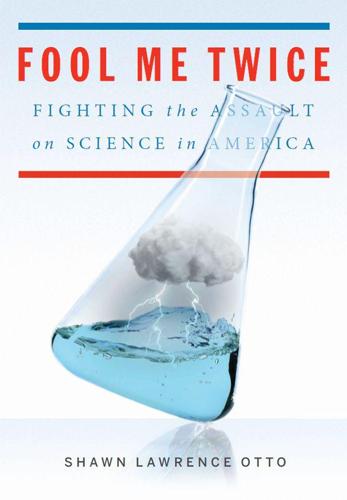
Fool Me Twice: Fighting the Assault on Science in America
by
Shawn Lawrence Otto
Published 10 Oct 2011
Sagan saw in the growing divide between science and society the rise of a “demon-haunted world” as the prevailing national dialogue shifted away from science to the ESP, New Age mysticism, faith healing, miracles, and UFO abductions that increasingly occupied the popular press. In his view, this threatened the fabric of America: I have a foreboding of an America in my children’s or grandchildren’s time—when the United States is a service and information economy; when nearly all the key manufacturing industries have slipped away to other countries; when awesome technological powers are in the hands of a very few, and no one representing the public interest can even grasp the issues; when the people have lost the ability to set their own agendas or knowledgeably question those in authority; when, clutching our crystals and nervously consulting our horoscopes, our critical faculties in decline, unable to distinguish between what feels good and what’s true, we slide, almost without noticing, back into superstition and darkness.24 Sagan saw in the growing public mysticism and antiscience a hunger for the lost sense of wonder and adventure into mystery that science had once provided.
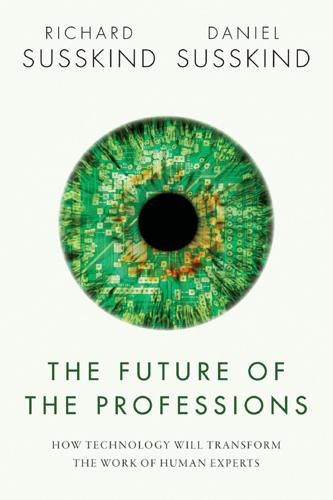
The Future of the Professions: How Technology Will Transform the Work of Human Experts
by
Richard Susskind
and
Daniel Susskind
Published 24 Aug 2015
One of the leading academic commentators on the Internet, Yochai Benkler, in his book The Penguin and the Leviathan, strives to make sense of this apparent generosity, of the way in which ‘co-operation triumphs over self-interest’. As he puts it: the Internet has allowed social, nonmarket behaviour to move from the periphery of the industrial economy to the very core of the global, networked information economy. Information and news, knowledge and culture, computer-mediated social and economic interactions form the foundation of everything in all aspects of our lives—from the pursuit of democracy and global justice, to the latest trends in business and media, to the best innovations in the most advanced economies.
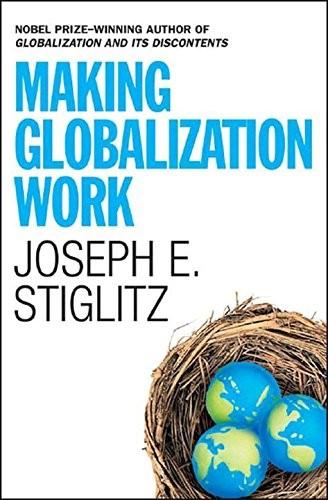
Making Globalization Work
by
Joseph E. Stiglitz
Published 16 Sep 2006
Wealth is being created, but too many countries and people are not sharing in its benefits. They also have little or no voice in shaping the process. Seen through the eyes of the vast majority of women and men, globalization has not met their simple and legitimate aspirations for decent jobs and a better future for their children. Many of them live in the limbo of the informal economy without formal rights and in a swathe of poor countries that subsist precariously on the margins of the global economy. Even in economically successful countries some workers and communities have been adversely affected by globalization. Meanwhile the revolution in global communications heightens awareness of these disparities…these global imbalances are morally unacceptable and politically unsustainable.1 The commission surveyed seventy-three countries around the world.

Evicted: Poverty and Profit in the American City
by
Matthew Desmond
Published 1 Mar 2016
Most work on the underground economy focuses on the drug trade or sex work. But for every kid slinging dope or every prostitute on the stroll, there must be dozens and dozens of formally unemployed men working for cash or reduced rent, preparing landlords’ properties. On the blurry line separating the formal and informal economy in American cities, see Sudhir Venkatesh, Off the Books: The Underground Economy of the Urban Poor (Cambridge: Harvard University Press, 2006). 11. THE ’HOOD IS GOOD 1. Researchers and legal scholars typically speculate that rents respond to market pressures (a city’s vacancy rate) or policy interventions (providing legal aid).
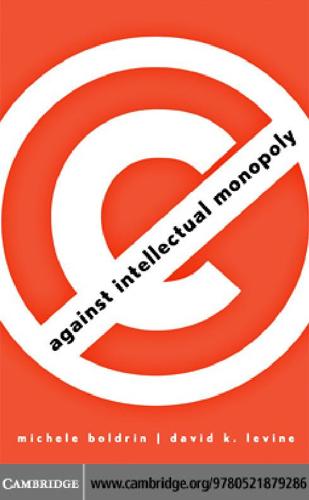
Against Intellectual Monopoly
by
Michele Boldrin
and
David K. Levine
Published 6 Jul 2008
Even Schumpeter himself admitted, “It is certainly as conceivable that an all-pervading cartel system might sabotage all progress as it is that it might realize, with smaller social and private costs, all that perfect competition is supposed to realize.”32 The Idea Economy It is often suggested that ideas are becoming increasingly important as a component of the economy. Pundits and academics alike theorize about the new economy, the weightless economy, the global information economy, and so forth. They cast images of a world where machines, besides reproducing themselves, produce all kinds of material goods and services as well, while humans engage in creative activities and in the exchange of ideas. Although this sounds fascinating, like every utopia, it is mostly a pipedream: any reader of Karl Marx’s Grundrisse would recognize his P1: KNP head margin: 1/2 gutter margin: 7/8 CUUS245-07 cuus245 978 0 521 87928 6 May 21, 2008 16:55 172 Against Intellectual Monopoly description of communism to match closely that of an idea economy.33 The question is, which kind of institutional arrangements are advocated for travel to these gardens of utopia, and are the flowers of such gardens as enchanting as their advocates tell us?
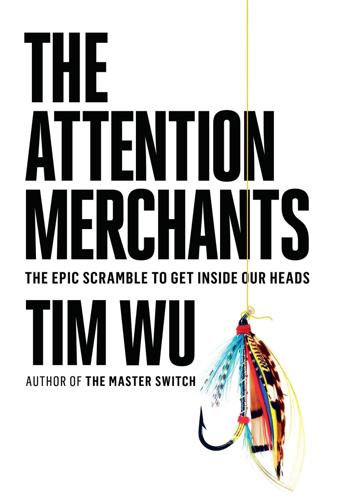
The Attention Merchants: The Epic Scramble to Get Inside Our Heads
by
Tim Wu
Published 14 May 2016
The reasonable pundit’s challenge was to capture in adequately epic terms what was happening. Yochai Benkler explained that “the removal of the physical constraints on effective information production has made human creativity and the economics of information itself the core structuring facts in the new networked information economy.”17 Clay Shirky, for his part, compared the “radical spread of expressive capabilities” to “the one that gave birth to the modern world: the spread of the printing press five centuries ago.”18 But few could compete with Jeff Jarvis’s penchant for proclamation. “We are undergoing a millennial transformation from the industrial, mass economy to what comes next” is how he once put it.
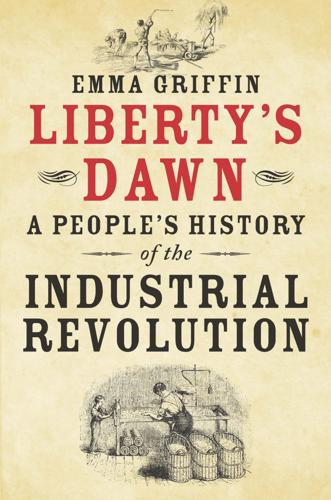
Liberty's Dawn: A People's History of the Industrial Revolution
by
Emma Griffin
Published 10 Jun 2013
Tailoring: Hawker, p. 1; [Holkinson], 24, 31 January 1857. 54. Hollingsworth, pp. 8–9; Hopkinson, p. 96. 55. P. Sharpe, ‘The women’s harvest: straw plaiting and the representation of labouring women’s employment, 1793–1885’, Rural History, 5 (1994), pp. 129–42; Penelope Lane, ‘Work on the margins: poor women and the informal economy of eighteenth and early nineteenth-century Leicestershire’, Midland History, 22 (1997), pp. 85–99. 56. T. Cooper, pp. 8–9; Oakley, p. 139. 57. [H., Bill], pp. 148–9; North, p. 153. 58. Benjamin Shaw had a female cousin who drove a coal cart on the Dentdale coalfields. See B. Shaw, p. 15. 59.

The Billionaire Raj: A Journey Through India's New Gilded Age
by
James Crabtree
Published 2 Jul 2018
The IPL’s format was ideal for betting, with a freewheeling atmosphere in which executives, sponsors, and hangers-on all fraternized with players and officials. The cricketers had sizable retinues of their own: the associates, managers, handlers, trainers, and stylists that signified their status as tournament royalty. Information economies built up around teams, in which friends would call insiders seeking gossip, or swap stories in the bar of the team hotel. Any tip could be useful to those setting odds, from lineups and injuries to team tactics and pitch conditions. The better the information, the better the return, hence why bookies and high-rollers sometimes took the riskier step of bribing cricketers directly, at first paying a little for information, and then, if the player seemed willing, taking things a step further and asking them to perform, or not, to order.

To Serve God and Wal-Mart: The Making of Christian Free Enterprise
by
Bethany Moreton
Published 15 May 2009
Far from being a redoubt of private associational life, the faith arena developed a robust relationship with the state along the same lines as many for-Â�profit industries: legal protection and public funding were welcomed, oversight rejected as government tyranny. As New Deal–style social provisions fell to the conservative ascendancy of the 1980s, the lightly regulated, tax-Â�free informal economy of the faith industries steadily expanded for two deÂ�cades. It grew with help from state lawmakers, government agencies, and court decisions that granted the religious orÂ�gaÂ�niÂ�zaÂ�tions ever-Â�wider access to government funds while proclaiming government itself to be the problem.6 The New Christian Right of the 1970s and 1980s combined religious efforts to regulate sex with an equally religious celebration of material comforts, self-Â�expression, technological innovation, and secular success.
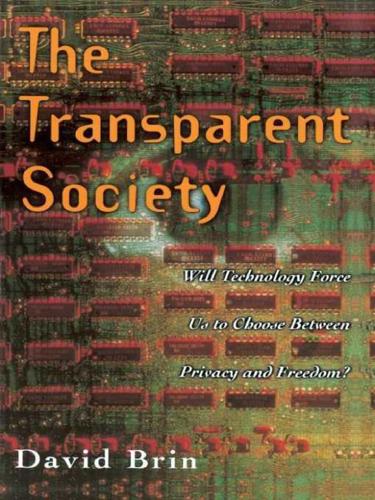
The Transparent Society: Will Technology Force Us to Choose Between Privacy and Freedom?
by
David Brin
Published 1 Jan 1998
Ideally, some means should be found for intellectual property to be compensated in proportion to the amount that it is used by people and institutions in the world. Even so, the approach taken by CIC lawyers is catastrophically flawed. By insisting on criminalizing so many harmless traditional behaviors, they are following an ancient and discredited path—one that will only foster disdain for the law and drive the real information economy underground. A much better approach would use positive measures to attract society toward a system based on fair payment. This might be accomplished in a number of ways: 1. Developing technology to make pay per use reliable and convenient. 2. Creating one or more commercially distinct zones within cyberspace, which people can visit to test and grow familiar with these payment schemes, while sampling therein some truly distinct and original entertainment experiences they can find nowhere else. 3.
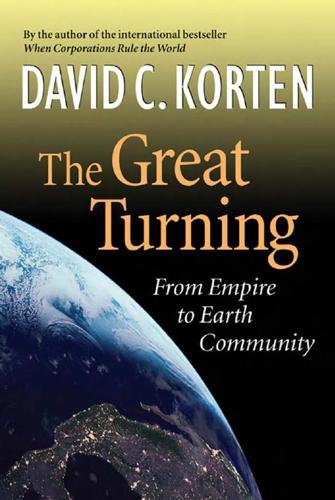
The Great Turning: From Empire to Earth Community
by
David C. Korten
Published 1 Jan 2001
By their reckoning, the business cycle had become a relic of the ancient past, U.S. trade and financial imbalances with the rest of the world no longer mattered, and environmental limits had been transcended. Realists who expressed concern about a financial bubble were dismissed as know-nothing pessimists, out of touch with the miracles wrought by the new information economy. The real value added, so the delusional argued, was in finance, marketing, entertainment, information technology, and intellectual property rights. They concluded that the most profitable economic strategy was to import finished products produced by cheap nonunion labor in the poorest countries rather than to import raw materials for domestic fabrication by workers who expect a family wage.
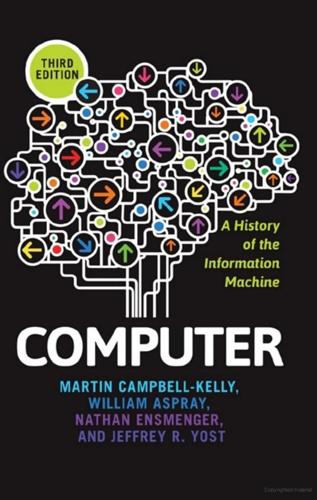
Computer: A History of the Information Machine
by
Martin Campbell-Kelly
and
Nathan Ensmenger
Published 29 Jul 2013
He co-founded Microsoft, which developed the MS-DOS and Windows operating systems installed on hundreds of millions of personal computers. Gates, simultaneously portrayed as an archetypal computer nerd and as a ruthless, Rockefeller-style businessman, came to epitomize the entrepreneurs riding the roller-coaster of the information economy. COURTESY OF MICROSOFT. In 1945 Vannevar Bush proposed the “memex,” an information machine to help deal with the postwar information explosion. His concept was an important influence on hypertext and other innovations that eventually led to the World Wide Web. The upper illustration shows the microfilm mechanism which would store vast amounts of information; the lower illustration shows the viewing screens close up.

An Empire of Wealth: Rise of American Economy Power 1607-2000
by
John Steele Gordon
Published 12 Oct 2009
Because children in this country have historically received on average two years more schooling than did their parents, these benefits have continued generation after generation. Further, because the benefits of the GI Bill have been extended to veterans who served in subsequent wars, including the cold war, it has been a continuing engine of human capital creation and technological capacity for the last sixty years, allowing the country to dominate the new information economy as much as it had dominated the industrial economy of decades past. The GI Bill of Rights also revolutionized housing in this country. Housing had been a growing problem in the 1920s and 1930s, when new construction did not equal the number of new families needing housing by six hundred thousand units.

Schismatrix Plus
by
Bruce Sterling
Published 1 Jan 1995
But when the ore was gone and Fortuna was a mined-out heap of rubble, they found they had crucially blundered. Their wealth had vanished, and they had failed to pursue technology with the cutthroat desperation of rival cartels. They could not survive on their outmoded expertise or sustain an information economy. Their attempts to do so only hastened their bankruptcy. The defections began. The nation’s best and most ambitious personnel were brain-drained away to richer worlds. Fortuna lost its spacecraft, as defectors decamped with anything not nailed down. The collapse was exponential, and the government devolved upon smaller and smaller numbers of diehards.
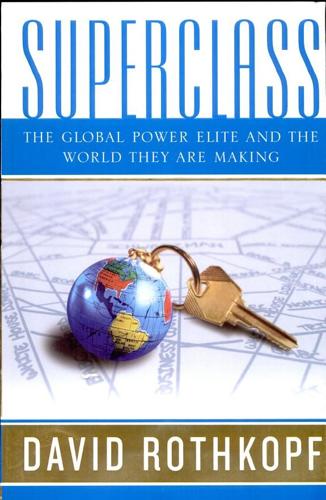
Superclass: The Global Power Elite and the World They Are Making
by
David Rothkopf
Published 18 Mar 2008
One of the first to observe this phenomenon was the former Citibank chief executive Walter Wriston, a true visionary of both globalization and the information age. Wriston’s prescient and seminal work The Twilight of Sovereignty was published within a year of the launch of the World Wide Web in 1991. In it, he wrote that “those who fully participate in the information economy benefit most from it…They will feel more affinity to their fellow global conversationalists than to those of their countrymen who are not yet part of the global conversation.” A couple of years after Wriston, Christopher Lasch observed similarly in The Revolt of the Elites that The market in which the new elites operate is now international in scope.
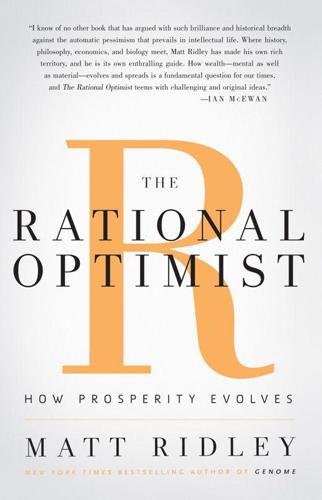
The Rational Optimist: How Prosperity Evolves
by
Matt Ridley
Published 17 May 2010
Once two individuals find ways to divide labour between them, both are better off. The future for Africa lies in trade – in selling tea, coffee, sugar, rice, beef, cashews, cotton, oil, bauxite, chrome, gold, diamonds, cut flowers, green beans, mangoes and more – but it is almost impossible for poor Africans in the informal economy to be entrepreneurs in such international trade. A handwritten contract between two people in Tanzania may be affordable and enforceable, but it is little help if the debtor wishes to start an export business supplying cut flowers to a London-based supermarket. Of course, it will not all be easy or smooth, but I refuse to be pessimistic about Africa when such an opportunity is available at a few strokes of a pen and when the evidence of entrepreneurial vitality in the extralegal sector is so strong.
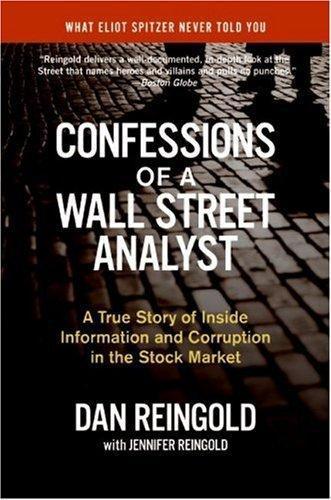
Confessions of a Wall Street Analyst: A True Story of Inside Information and Corruption in the Stock Market
by
Daniel Reingold
and
Jennifer Reingold
Published 1 Jan 2006
And Jim Crowe, my flat-topped buddy from MFS, was there, spreading the Internet word again, but this time on behalf of his new company, Level 3 Communications. One afternoon as we sipped cocktails by the Ritz’s pool overlooking the Pacific Ocean, Jim explained to me that Level 3 was going to provide the tubes through which the information economy would flow. It would run a national long distance network that would carry only data, not voice. By this time, Jim Crowe was viewed as an Internet deity, having been early to the game with MFS and then selling it at a huge premium for WorldCom stock, which then soared. The response to his new company was as frenzied as a Michael Jackson concert in the Thriller days.
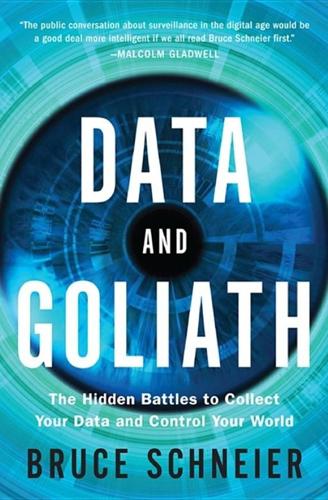
Data and Goliath: The Hidden Battles to Collect Your Data and Control Your World
by
Bruce Schneier
Published 2 Mar 2015
I think I can take that analogy one step further. Data is the pollution problem of the information age, and protecting privacy is the environmental challenge. Almost all computers produce personal information. It stays around, festering. How we deal with it—how we contain it and how we dispose of it—is central to the health of our information economy. Just as we look back today at the early decades of the industrial age and wonder how our ancestors could have ignored pollution in their rush to build an industrial world, our grandchildren will look back at us during these early decades of the information age and judge us on how we addressed the challenge of data collection and misuse.
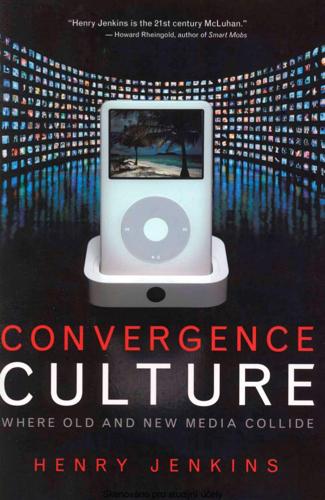
Convergence Culture: Where Old and New Media Collide
by
Henry Jenkins
Published 31 Jul 2006
They were looking for ways to prolong their pleasurable engagement with a favorite program, and they were d r a w n toward the collaborative production and evaluation of knowledge. This bottom-up process potentially generated greater interest i n the series, amplifying these fans' investment in the aired material. But, insofar as it interfered w i t h or reshaped the informational economy Skenovano pro studijni ucely 57 58 Spoiling Survivor around a series, it also threatened the producer's ability to control public response. What we need to keep i n m i n d here and throughout the book is that the interests of producers and consumers are not the same. Sometimes they overlap.
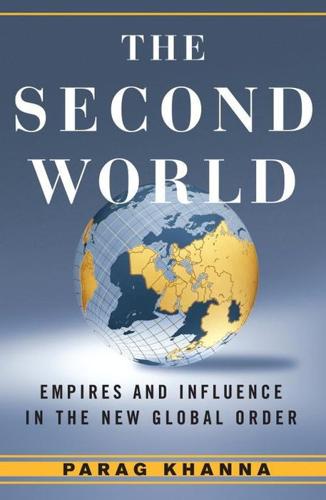
Second World: Empires and Influence in the New Global Order
by
Parag Khanna
Published 4 Mar 2008
The election of Luiz Inácio Lula da Silva in 2002 was supposed to mark a turnaround toward a focus on social equality, but Brazil’s governance system was still stuck in the overly decentralized early-twentieth-century era of uneven municipal authority.4 Because key cities are driven by a narrow band of industry captains and multinational firms, state authority remained too weak to exercise redistributive powers. The lack of a navigable tax code perpetuated tax evasion and other tricks that boosted the estimated size of the informal economy to equal that of the official economy: over $800 billion. Numerous corruption scandals involving Lula’s Workers’ Party led to jokes that he was so corrupt that “Chávez learned it all from Lula.” In 2006, it was none other than the mayor of São Paulo who closely challenged Lula for the presidency.
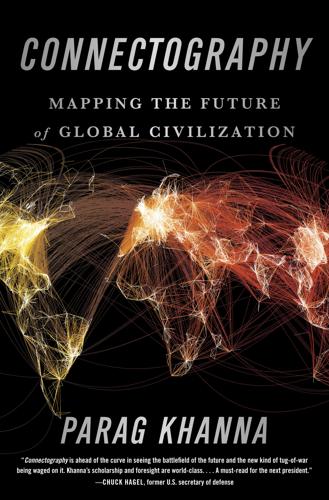
Connectography: Mapping the Future of Global Civilization
by
Parag Khanna
Published 18 Apr 2016
As the world’s urban masses become the overwhelming majority of the global population, the so-called youth bulge is not an impending challenge but an actual one. If it is not put to work today, then it will not earn enough income to stabilize socially and settle professionally. An estimated 30–40 percent of the world population works in the informal economy, a supply-demand universe if ever there was one. Hernando de Soto, the pioneering advocate of property rights for the poor, has pointed out that most of the self-immolating Arabs during early 2011 were extralegal entrepreneurs cut off from the capital they needed to start businesses capable of surviving food price shocks and petty local corruption.
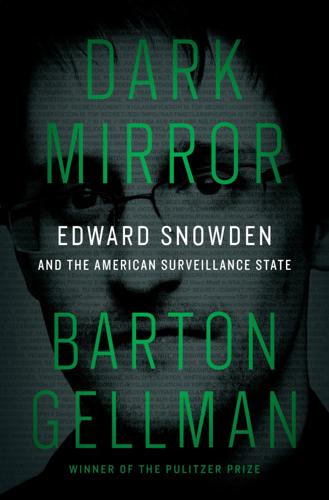
Dark Mirror: Edward Snowden and the Surveillance State
by
Barton Gellman
Published 20 May 2020
Once a year, in a classified session, the Foreign Intelligence Surveillance Court reviewed the procedures for target selection and for masking the names of Americans who turned up in the catch. Nothing in the Snowden archive, and nothing I learned independently, offered reason to doubt that the NSA workforce did its best to follow the rules in good faith. And even so, the formal restraints obscured the breadth of government intrusion into the U.S. information economy. Wide gaps had emerged in the checks and balances that once governed domestic NSA operations. For decades, intelligence collection at home had operated under traditional Fourth Amendment standards. Interception of signals on U.S. wires required an individual warrant based upon probable cause and judicial review of the supporting facts.
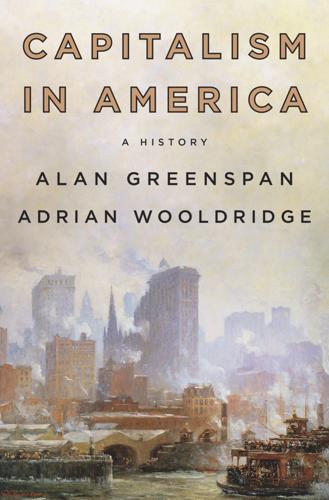
Capitalism in America: A History
by
Adrian Wooldridge
and
Alan Greenspan
Published 15 Oct 2018
There is some of this classic America still in place.4 The world’s three most valuable companies at the time of this writing, Apple, Google, and Microsoft, are all American tech companies—and Amazon and Facebook come in at number six and seven. U.S. firms host 61 percent of the world’s social-media users, undertake 91 percent of its searches, and invented the operating systems of 99 percent of its smartphone users. Google processes 4 billion searches a day. U.S. companies also control the infrastructure of the information economy. Amazon has almost one-third of the market for cloud computing, and its cloud-services division has grown by more than half over the past year. Meanwhile, the United States dominates the commanding heights of global finance. The global market share of Wall Street investment banks has increased to 50 percent as European firms have shrunk and Asian aspirants have trod water.
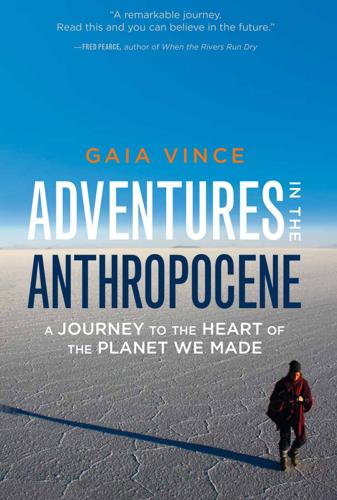
Adventures in the Anthropocene: A Journey to the Heart of the Planet We Made
by
Gaia Vince
Published 19 Oct 2014
A few minutes in many of the shanty towns of Africa, Asia or Latin America reveals a bustling informal labour market of street stalls, repair shops, barbers, ad hoc cinemas, and all manner of enterprise. Already, more than half of the global workforce is informal and unregistered; by 2020, two-thirds will be.10 Although the informal economy doesn’t generate tax revenues, it does provide employment for the hundreds of millions of people whose job needs could never be met otherwise. And even if the street-food vendors, waste-pickers and stallholders selling mobile-phone credits do not directly pay the taxman, their indirect contributions to the economy and society are often immense.
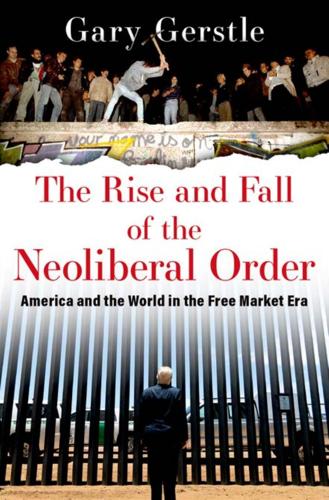
The Rise and Fall of the Neoliberal Order: America and the World in the Free Market Era
by
Gary Gerstle
Published 14 Oct 2022
In 1994, he endorsed the World Trade Organization and its plan to implement neoliberal principles internationally, a project that became known as the “Washington Consensus.” In 1996, Clinton, working with Congress, deregulated the exploding telecommunication industry, now including not just phones and television but the cable and satellite sub-industries so important to the new information economy. Soon after, he did the same with the electrical generation industry that sustained (literally) the new economy. And then, in 1999, he supported Congress’s repeal of the Glass-Steagall Act, the New Deal law that had done more than any other to end speculation, corruption, and the boom-bust cycle in America’s financial sector.35 Clinton had come to regard markets as something akin to natural law.
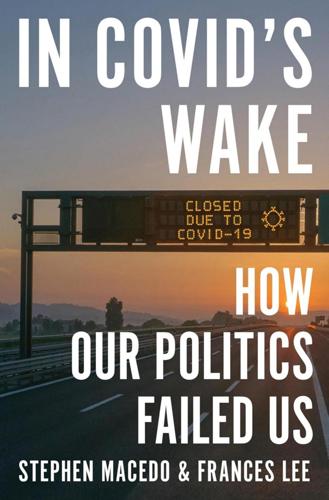
In Covid's Wake: How Our Politics Failed Us
by
Stephen Macedo
and
Frances Lee
Published 10 Mar 2025
Chinese data about the pandemic have never been trustworthy.48 Nevertheless, information from this delegation’s one-time trip to the region was treated as a sufficient basis on which to guide global policy. The WHO went on to recommend lockdowns everywhere indiscriminately, including to desperately poor people in the developing world reliant upon informal economies. In retrospect, it appears that t here was a profound degree of wishful thinking on the part of policymakers willing to toss out d ecades of research and analysis based on an authoritarian regime’s preliminary reports. This was not the last time in the Covid years that scientists would play politician.

Meat: A Benign Extravagance
by
Simon Fairlie
Published 14 Jun 2010
Nevertheless anyone who has kept both goats and cows will know how much more destructive goats can be, particularly towards trees, if left to their own devices – and one of the main advantages of the sacred cow is that it can be left to its own devices.55 Maneka Gandhi also alleges that the spread of goats is part of the reorientation of the agricultural economy – including the informal economy of the commons – towards export orientated industries which will enhance the GDP of the country. Meat production in India, she claims, between 1976 and 1994 (more or less the interval between Marvin Harris’ analysis and Maneka Gandhi’s) shows a 17 fold increase in the production of beef and veal to almost 1.3 million tonnes, and a nine-fold increase for buffalo to 12 million tonnes.
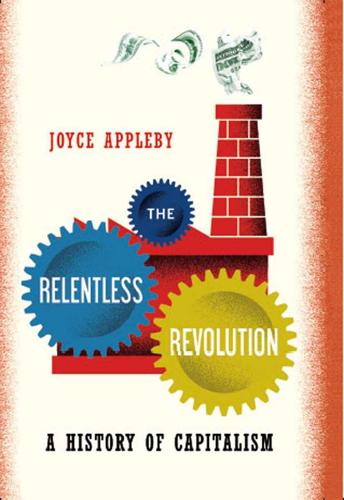
The Relentless Revolution: A History of Capitalism
by
Joyce Appleby
Published 22 Dec 2009
A Peruvian economist with strong connections to international banking and engineering firms, he now heads Peru’s Institute for Liberty and Democracy. The institute concentrates on a different way to empower the poor: get them legal title to the land they occupy and the outfits they operate. De Soto has drawn attention to the informal economies worldwide where people cultivate land, improve their dwellings, and run businesses without having title to their property. This means that they can’t use their property as collateral for loans, though the land may have been in their families for several generations. In De Soto’s view, people choose to operate in the shadow economy because getting licenses to do business and title to land is usually an onerous and expensive task.

WTF?: What's the Future and Why It's Up to Us
by
Tim O'Reilly
Published 9 Oct 2017
In a similar way, if we want to understand the implications of today’s technologies, one good way to start is by laying out the pieces of the jigsaw that we have, pieces we are convinced have something to do with each other, but it is not quite clear where and how they fit. What are the canonical companies and technologies that seem to be at the forefront of today’s technology-driven changes to the economy? What do they teach us? Google is still one of the key companies to understand. Its search engine is the pervasive neocortex of the information economy, a critical component of the global brain that the Internet has become, connecting billions of humans with the data and documents we collectively create. The principles that led me to make Google the poster child for Web 2.0 are still unfolding as drivers of the future: big data, algorithms, collective intelligence, software as a service, with the addition of a new focus on machine learning and AI.

The Unwinding: An Inner History of the New America
by
George Packer
Published 4 Mar 2014
“Tarkovsky is famous for painfully long takes, creating an environment that’s uncomfortable without it being clear why.” Ray lived alone in a one-bedroom apartment. He was an inconspicuous person—small of stature, with short-cropped hair, drab clothes, and a mild manner. After his parents died, he became something of a hermit, with few friends. On the other hand, a lot of tech workers were antisocial. The information economy employed millions of skilled, culturally literate, freelance oddballs. As long as the new economy made room for him, Ray lived the life he wanted. When the recession hit, tech jobs in Seattle started drying up. After the death of the owner of his main client, a company that hired him to do DVD customization, Ray found that he no longer had contacts for other work.
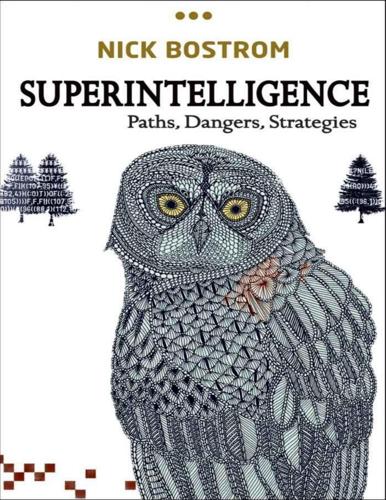
Superintelligence: Paths, Dangers, Strategies
by
Nick Bostrom
Published 3 Jun 2014
If your fleshly friend should happen to drop his teacup, you could watch the porcelain slowly descend toward the carpet over the course of several hours, like a comet silently gliding through space toward an assignation with a far-off planet; and, as the anticipation of the coming crash tardily propagates through the folds of your friend’s gray matter and from thence out into his peripheral nervous system, you could observe his body gradually assuming the aspect of a frozen oops—enough time for you not only to order a replacement cup but also to read a couple of scientific papers and take a nap. Because of this apparent time dilation of the material world, a speed superintelligence would prefer to work with digital objects. It could live in virtual reality and deal in the information economy. Alternatively, it could interact with the physical environment by means of nanoscale manipulators, since limbs at such small scales could operate faster than macroscopic appendages. (The characteristic frequency of a system tends to be inversely proportional to its length scale.5) A fast mind might commune mainly with other fast minds rather than with bradytelic, molasses-like humans.
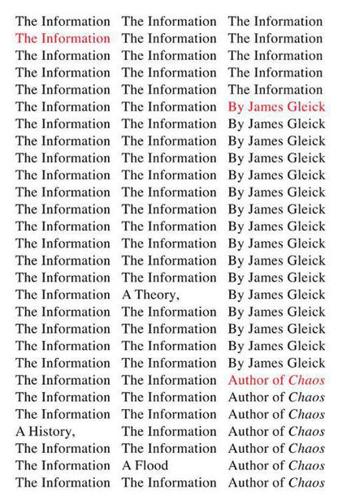
The Information: A History, a Theory, a Flood
by
James Gleick
Published 1 Mar 2011
If it be wanted, it can be asked for; but to be wanted it must be known. Nobody can rummage the library.”♦ Too much information, and so much of it lost. An unindexed Internet site is in the same limbo as a misshelved library book. This is why the successful and powerful business enterprises of the information economy are built on filtering and searching. Even Wikipedia is a combination of the two: powerful search, mainly driven by Google, and a vast, collaborative filter, striving to gather the true facts and screen out the false ones. Searching and filtering are all that stand between this world and the Library of Babel.
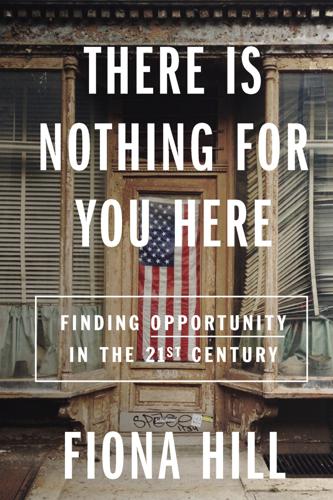
There Is Nothing for You Here: Finding Opportunity in the Twenty-First Century
by
Fiona Hill
Published 4 Oct 2021
Places like Bishop Auckland were in the right place for the creation of large-scale extractive and heavy industries in the nineteenth century, but in the wrong place for the new technology and innovation that came along at the end of the twentieth century. They quickly became forgotten backwaters. What had made them attractive as a location for heavy industry made them unattractive for the information economy, which clustered around places without unsightly mine shafts and factory smokestacks but with “locational amenities” more conducive to creating a new density of advanced technology—amenities such as colleges and universities. People who lived in the old, specialized towns and regions suddenly found themselves stuck in place.
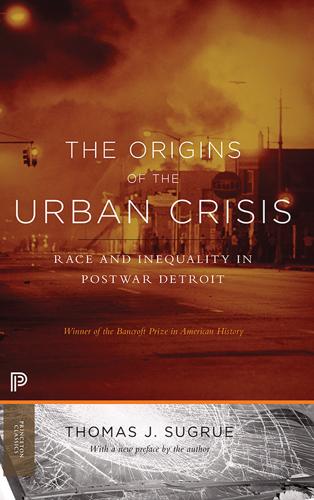
The Origins of the Urban Crisis
by
Sugrue, Thomas J.
At the time of the 1967 riot, somewhere between 25 and 30 percent of young blacks (between ages eighteen and twenty-four) were out of work.3 The combination of persistent discrimination in hiring, technological change, decentralized manufacturing, and urban economic decline had dramatic effects on the employment prospects of blacks in metropolitan Detroit. What was even more striking was the steady increase of adults who were wholly unattached to the urban labor market. Nearly one in five of all Detroit adults did not work at all or worked in the informal economy in 1950. The number grew steadily in the 1960s. The economic transformation of the city launched a process of deproletarianization, as growing numbers of African Americans, especially young men, joined the ranks of those who gave up on work. By 1980, nearly half of the adult male population had only tenuous connections to the city’s formal labor market.
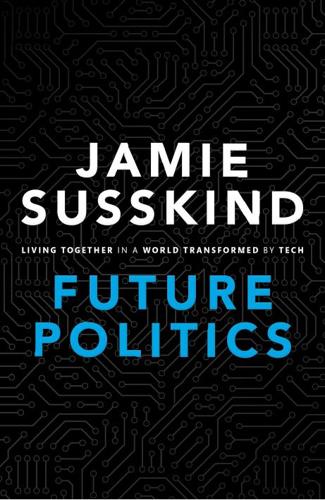
Future Politics: Living Together in a World Transformed by Tech
by
Jamie Susskind
Published 3 Sep 2018
Nevertheless, the political culture in the English-speaking world has strongly favoured self-regulation of the media other than in times of extreme national peril. The invention and widespread adoption of the internet signalled the end of the traditional mass-media monopoly over the means of filtering. Alongside the old system emerged a ‘networked information economy’ in which social media and digital news platforms enabled people to be producers and critics of content as well as its consumers.10 In the noughties, this development was generally treated with enthusiasm. Harvard ProfessorYochai Benkler predicted in The Wealth of Networks (2006) that the result of the networked information environment would be ‘space for much more expression, from diverse sources and of diverse qualities’:11 the freedom to speak, but also to be free from manipulation and to be cognisant of many and diverse opinions . . . radically greater diversity of information, knowledge, and culture.
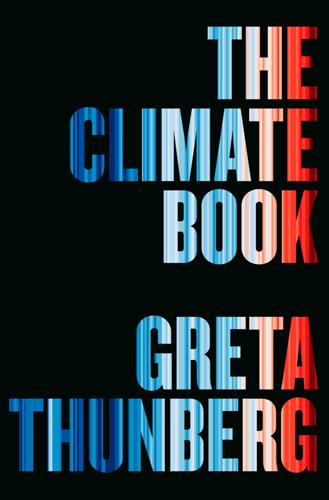
The Climate Book: The Facts and the Solutions
by
Greta Thunberg
Published 14 Feb 2023
Climate justice must manifest everywhere, for everyone. 5.18 Women and the Climate Crisis Wanjira Mathai In Kenya, where I am from, and across much of Africa, women are the backbone of the local community, the family, the small enterprises and the farms. In Africa’s urban centres, towns and villages, you can see women walking briskly and with purpose as early as 5 a.m. every day, hugging the edges of unpaved highways and parched roads. Who are they? Many are the heart of an informal economy – the invisible nucleus of a continent straining under the impact of an invisible force. Africa is one of the most vulnerable continents to climate change because it is so dependent on agriculture, and agriculture, in turn, is highly dependent on the climate. Only 5 per cent of cultivated land is under irrigation, and most agriculture across the continent is rain-fed.
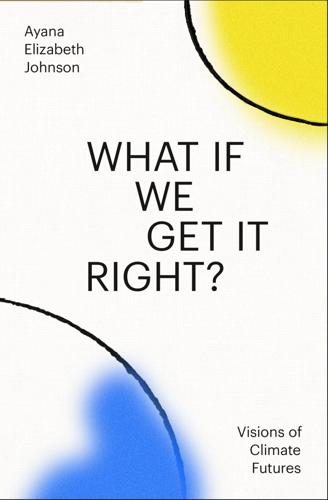
What If We Get It Right?: Visions of Climate Futures
by
Ayana Elizabeth Johnson
Published 17 Sep 2024
Can you imagine what it might look like if it were transformed in this climate-solutionist way? Paola: During the pandemic, the fact that more bike lanes were introduced was major progress. But let’s move into complete utopia, let’s imagine what Olalekan Jeyifous depicts: Brooklyn becoming a layered garden city where both a formal and an informal economy and life come together, with many layers and modes of interaction.[*75] To me, the dream is less legislation and regulation, and stronger, more imaginative initiatives by citizens. Another idea hailed by environmentalists is the fifteen-minute city, but in truth, that’s how we’ve always lived, and how many still live.

Reamde
by
Neal Stephenson
Published 19 Sep 2011
Demonstrable improvements in productivity were being trumpeted every day on the relevant section of Corporation 9592’s website (by a medieval herald, naturally, and with an actual trumpet). Richard insisted, only half in jest, that he wanted to see 10 percent of the global economy moved into T’Rain. Or at least 10 percent of the information economy. But since the information economy had now got its fingers into just about everything, this wasn’t much of a limitation. Factory workers watching widgets stream off the assembly line, inspecting them for defects, ought to be able to metaphrase their work into something way more neuron grabbing, such as flying up a river valley on a winged steed, gazing into its limpid waters at the rocks strewn up its channel, looking for the one that contained traces of some magical ore.
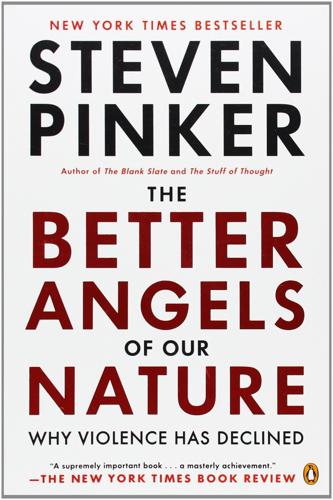
The Better Angels of Our Nature: Why Violence Has Declined
by
Steven Pinker
Published 24 Sep 2012
We have seen some evidence for this mechanism: countries with more women in government and the professions have less domestic violence against women, and people who know gay people personally are less likely to disapprove of homosexuality. But as with democracy, the inclusiveness of institutions is not a completely exogenous process. The hidden hand of an information economy may have made institutions more receptive to women, minorities, and gays, but it still took government muscle in the form of antidiscrimination laws to integrate them fully. And in the case of children and animals, there was no market for reciprocal exchanges at all: the beneficence went in one direction.
…
In traditional societies, one of these forces is living arrangements: women are better off in societies in which they stay with their birth family under the wing of their fathers and brothers, and their husbands are visitors, than in societies in which they move in with their husband’s clan and are dominated by their husbands and his kin (chapter 7). In modern societies, the exogenous forces include technological and economic advances that freed women from chronic child-rearing and domestic duties, such as store-bought food, labor-saving devices, contraception, longer life spans, and the shift to an information economy. FIGURE 10–4. How feminization can resolve the Pacifist’s Dilemma Societies in which women get a better deal, both traditional and modern, tend to be societies that have less organized violence (chapter 8). This is obvious enough in the tribes and chiefdoms that literally go to war to abduct women or avenge past abductions, such as the Yanomamö and the Homeric Greeks (chapters 1 and 2).
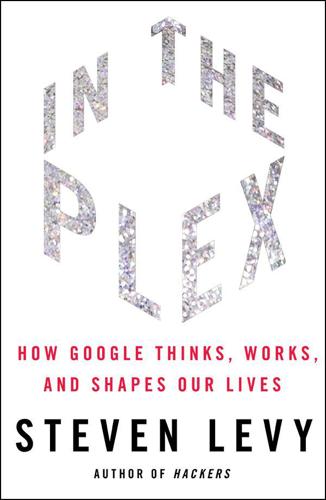
In the Plex: How Google Thinks, Works, and Shapes Our Lives
by
Steven Levy
Published 12 Apr 2011
Google, he charged, could no longer lay claim to its “Don’t be evil” standard. “Indeed,” he said, “it has become evil’s accomplice.” The technology executives had to stand and be sworn in with upraised hands, knowing that a photo of them doing so would appear in the next day’s news. Thus the darlings of the information economy—who assumed that their companies were boons to society—were presented as no different from tobacco executives or mobsters. Each company representative entered written testimony on the record and gave brief verbal summaries. Schrage’s was a well-argued treatise that summarized the paradox of a nonevil company conducting an evil act: “The requirements of doing business in China include self-censorship—something that runs counter to Google’s most basic values and commitments as a company.”
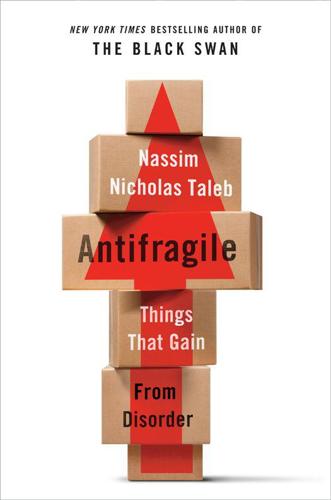
Antifragile: Things That Gain From Disorder
by
Nassim Nicholas Taleb
Published 27 Nov 2012
One problem somewhere can halt the entire project—so the projects tend to get as weak as the weakest link in their chain (an acute negative convexity effect). The world is getting less and less predictable, and we rely more and more on technologies that have errors and interactions that are harder to estimate, let alone predict. And the information economy is the culprit. Bent Flyvbjerg, the one of bridge and road projects mentioned earlier in this chapter, showed another result. The problem of cost overruns and delays is much more acute in the presence of information technologies (IT), as computer projects cause a large share of these cost overruns, and it is better to focus on these principally.
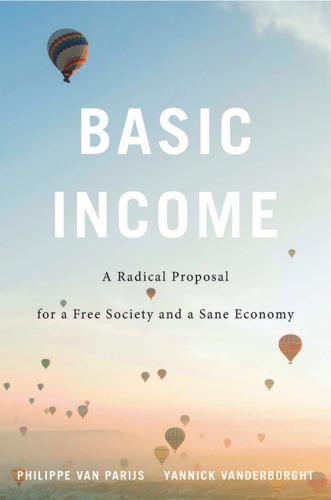
Basic Income: A Radical Proposal for a Free Society and a Sane Economy
by
Philippe van Parijs
and
Yannick Vanderborght
Published 20 Mar 2017
Such guaranteed-Â� minimum-Â�income schemes play a relatively marginal role in countries where a developed system of social insurance manages to cover the bulk of the population (often thanks to major yet hidden deviations from the strict insurance princiÂ�ple). By contrast, they have come to play a far more imporÂ�tant role in less-Â� developed countries with large informal economies. One early example is South Africa’s “old-Â�age grant,” a noncontributory pension scheme created in the 1920s for whites only and extended to the Â�whole population Â�towards the end of the Apartheid regime.65 Recent years have witnessed growing interest throughout the so-Â�called developing countries in similar sorts of conditional cash-transfer schemes.
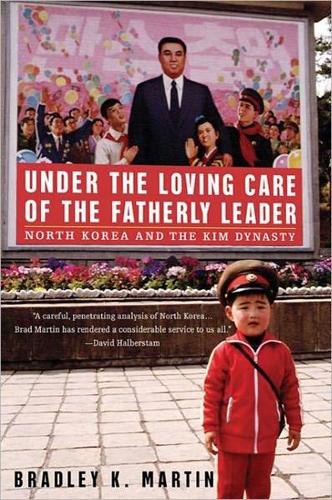
Under the Loving Care of the Fatherly Leader: North Korea and the Kim Dynasty
by
Bradley K. Martin
Published 14 Oct 2004
“Even individuals who work in government ministries rely on outside sources of income to acquire the goods and services they need for their families,” he said, reporting that “the North Korean economy has slowly improved over the past few years,” thanks mainly to “the informal economy.” He told how informal coping mechanisms, including produce from private plots and farmers’ markets, had “halted North Korea’s precipitous economic slide toward oblivion.” But the foundation chief still found the country unable “to move beyond an ‘informal economy’ on the macro level.” Missing, he said, was “the structural reform needed to promote legitimate international trade. … While some would argue that attempts to set up special economic zones and adjustments in currency represent a genuine willingness to embrace economic reform, these policies aimed at promoting economic growth have yet to make a meaningful impact on everyday life.”7 Nevertheless, anecdotal evidence continued to pile up, suggesting a breakthrough that had ended the regime’s stubborn resistance to major change.
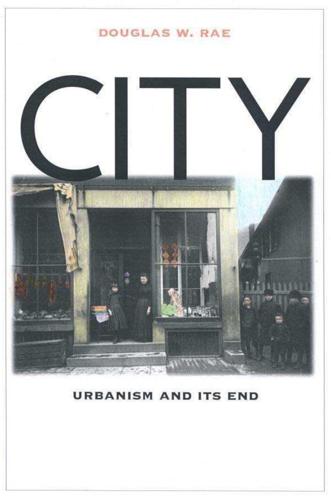
City: Urbanism and Its End
by
Douglas W. Rae
Published 15 Jan 2003
Sargent, David C. Joseph Bradford Sargent, 1822–1907: Captain of Industry. West Hartford, Conn.: N.p., 1973. Sarna, Jonathan D. “Synagogue Structures of Greater New Haven.” In Jews in New Haven, edited by Jonathan D. Sarna, 21–28. New Haven: Jewish Historical Society of New Haven, 1978. Sassen, Saskia. “The Informal Economy: Between New Developments and Old Regulations.” Yale Law Journal 103 (1994): 2289–304. ———. The Global City: New York, London, Tokyo. Princeton: Princeton University Press, 1991. Satterthwaite, Ann. Going Shopping: Consumer Choices and Community Consequences. New Haven: Yale University Press, 2001.
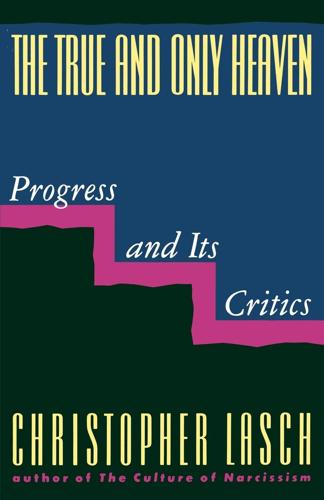
The True and Only Heaven: Progress and Its Critics
by
Christopher Lasch
Published 16 Sep 1991
The president of the Jewish Community Council, defending a boycott of schools integrated under court order, cried, "We have built the swamps of Canarsie into a beautiful community, and no one is going to take it away from us." In Charlestown, Massachusetts, the conflict over busing was preceded by protracted conflicts over urban renewal. Here the immediate threat -497- came not from black people pressing into the neighborhood but from advocates of redevelopment, who dreamed of Boston as a model of the "information economy" destined to grow up on the ruins of heavy industry. With a sense of self-importance reminiscent of the city's seventeenth‐ century founders, but with little of their moral vision, promoters of redevelopment envisioned the "new Boston" as a city on a hill, a show‐ place of advanced technology, cosmopolitan sophistication, high finance, and architectural splendor.
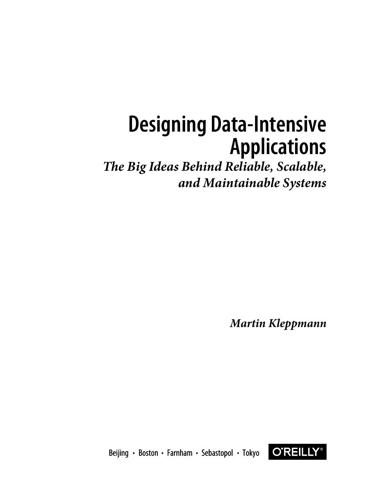
Designing Data-Intensive Applications: The Big Ideas Behind Reliable, Scalable, and Maintainable Systems
by
Martin Kleppmann
Published 17 Apr 2017
In the words of Bruce Schneier [96]: Data is the pollution problem of the information age, and protecting privacy is the environmental challenge. Almost all computers produce information. It stays around, festering. How we deal with it—how we contain it and how we dispose of it—is central to the health of our information economy. Just as we look back today at the early deca‐ des of the industrial age and wonder how our ancestors could have ignored pollution in their rush to build an industrial world, our grandchildren will look back at us during these early decades of the information age and judge us on how we addressed the chal‐ lenge of data collection and misuse.
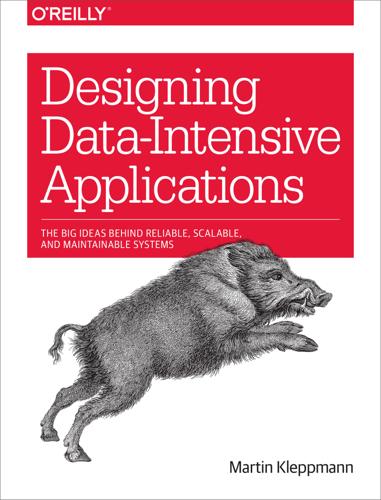
Designing Data-Intensive Applications: The Big Ideas Behind Reliable, Scalable, and Maintainable Systems
by
Martin Kleppmann
Published 16 Mar 2017
In the words of Bruce Schneier [96]: Data is the pollution problem of the information age, and protecting privacy is the environmental challenge. Almost all computers produce information. It stays around, festering. How we deal with it—how we contain it and how we dispose of it—is central to the health of our information economy. Just as we look back today at the early decades of the industrial age and wonder how our ancestors could have ignored pollution in their rush to build an industrial world, our grandchildren will look back at us during these early decades of the information age and judge us on how we addressed the challenge of data collection and misuse.

Lonely Planet Mexico
by
John Noble
,
Kate Armstrong
,
Greg Benchwick
,
Nate Cavalieri
,
Gregor Clark
,
John Hecht
,
Beth Kohn
,
Emily Matchar
,
Freda Moon
and
Ellee Thalheimer
Published 2 Jan 1992
Around the edges of the city, new streets climb the steep slopes of extinct volcanoes, while the poorest arrivals inhabit shacks on the city’s fringes made from a few concrete blocks, wooden boards or sheets of tin. Many of these people barely scrape a living as street hawkers, buskers or home workers in the ‘informal economy,’ rarely earning more than M$50 a day. * * * Nobel Prize–winning Mexican writer Octavio Paz argues in The Labyrinth of Solitude that Mexicans’ love of noise, music and crowds is just a temporary escape from personal isolation and gloom. Make your own judgment! * * * * * * MANNERS FOR MEXICO Locals in much of Mexico are accustomed to foreign visitors and are tolerant of their strange ways.
…
Oil production, provider of nearly 40% of federal government revenue, is falling rapidly. So are Mexico’s known oil reserves, thanks to a lack of finance and expertise to explore for new oil in the Gulf of Mexico. By some estimates Mexico, currently the world’s seventh-biggest oil producer, will become a net importer of oil by 2017. Around half of Mexicans still work in the ‘informal economy’ (street vendors, home workers, traffic-signal fire-eaters, criminals – anybody whose work is not officially registered). Few of these people scrape together much more than M$50 a day. They don’t pay taxes and they don’t contribute to the country’s social security system, which provides health care and pensions
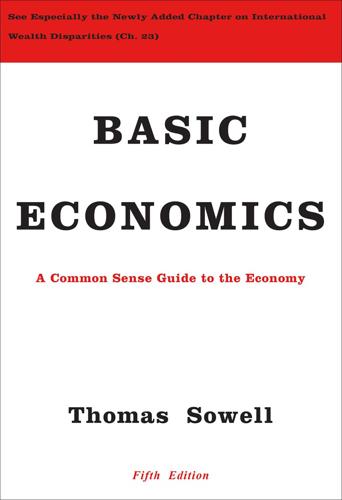
Basic Economics
by
Thomas Sowell
Published 1 Jan 2000
A European anti-trust case against Microsoft was based on the idea that Microsoft had a duty to accommodate competitors who might want to attach their software products to the Microsoft operating system. Moreover, the rationale of the European decision was defended in a New York Times editorial: Microsoft’s resounding defeat in a European antitrust case establishes welcome principles that should be adopted in the United States as guideposts for the future development of the information economy. The court agreed with European regulators that Microsoft had abused its operating system monopoly by incorporating its Media Player, which plays music and films, into Windows. That shut out rivals, like RealPlayer. The decision sets a sound precedent that companies may not leverage their dominance in one market (the operating system) to extend it into new ones (the player).
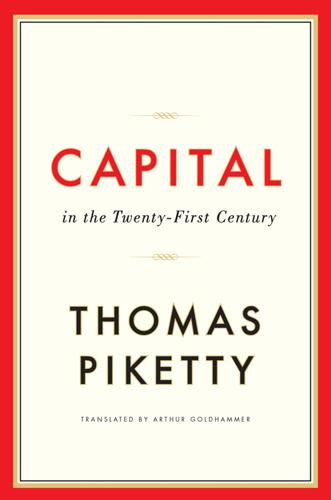
Capital in the Twenty-First Century
by
Thomas Piketty
Published 10 Mar 2014
This was his reason for rejecting state intervention of any kind: “superior abilities … are the source of everything that is great and useful.… Reduce everything to equality and you will bring everything to a standstill.”8 One sometimes hears the same thought expressed today in the idea that the new information economy will allow the most talented individuals to increase their productivity many times over. The plain fact is that this argument is often used to justify extreme inequalities and to defend the privileges of the winners without much consideration for the losers, much less for the facts, and without any real effort to verify whether this very convenient principle can actually explain the changes we observe.
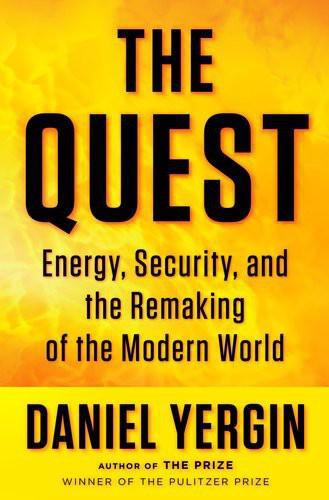
The Quest: Energy, Security, and the Remaking of the Modern World
by
Daniel Yergin
Published 14 May 2011
It became a huge best-seller—over a million copies. Ikeguchi became famous. Thereafter he was much better known by his pen name Taichi Sakaiya. Highly prolific, he continued to publish books, ranging from an enormously influential treatise called The Knowledge-Value Revolution, which presaged today’s information economy, to a four-volume historical novel on Genghis Khan. One Japanese publication described his “unique position” as “bureaucrat-novelist.” When the second oil crisis hit in 1979, he was recruited to establish an entire new bureaucracy—the New Energy and Industrial Technology Development Organization, NEDO.
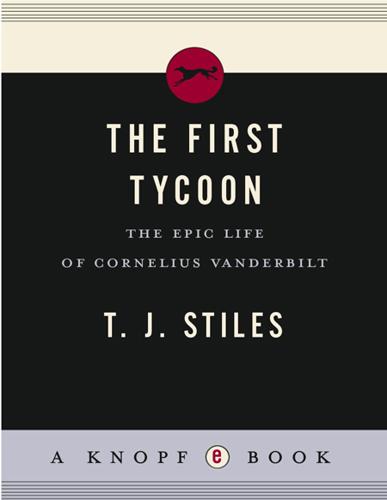
The First Tycoon
by
T.J. Stiles
Published 14 Aug 2009
But if the person who first issued it refused to pay when it came due, the endorser could be sued for payment, “according to the usage and custom of merchants,” as the standard legal form read. It's notable that there was a standard legal form (in New York at least), indicating just how common unpaid notes were. And yet, promissory notes would remain a primary method of payment for decades to come.26 If this unspecialized, informal economy were to change, it would first be through organization, by institutions that would replace these messy personal dealings. And it was in New York where just such institutions began to rise. It was there that the merchants' patron saint, Alexander Hamilton, helped to found the Bank of New York, one of the nation's first commercial banks.
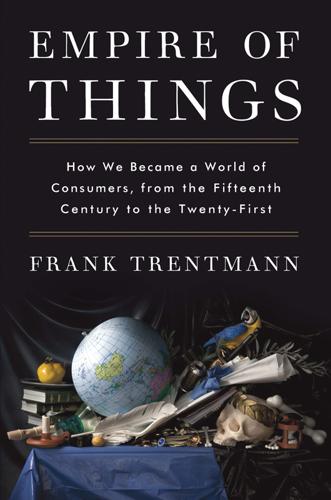
Empire of Things: How We Became a World of Consumers, From the Fifteenth Century to the Twenty-First
by
Frank Trentmann
Published 1 Dec 2015
WRAP, ‘New Estimates for Household Food and Drink Waste in the UK’ (2011), 15–16. 70. http://globalrec.org/2013/11/11/report-national-green-assembly-on-waste-legislation-and-waste-pickers/. See also: Martin Medina, ‘Scavenger Co-operatives in Asia and Latin America’, in: Resources, Conservation and Recycling 31, no. 1, 2000: 51–69; and Kaveri Gill, Of Poverty and Plastic: Scavenging and Scrap-trading Entrepreneurs in India’s Urban Informal Economy (Oxford, 2009). 71. European Environment Agency, Movements of Waste across the EU’s Internal and External Borders (Copenhagen: 2012), section 4.2. 72. European Environmental Agency, ‘Movements of Waste’; and Josh Lepawsky & Chris McNabb, ‘Mapping International Flows of Electronic Waste’, in: Canadian Geographer 54, no. 2, 2010: 177–95. 73.

Greece
by
Korina Miller
Published 1 Mar 2010
As islands such as Samos struggle to house boatloads of migrants, there is mounting criticism from the international community on the poor conditions and treatment of refugees and immigrants in Greece. With the lowest acceptance rate in Europe for asylum requests (only 379 out of 20,000 were accepted in 2008), many illegal immigrants and refugees simply disappear into Greece’s informal economy or attempt to cross into other European countries. Others linger in shanty towns and deportation centres. All of this would have once been discussed in a haze of smoke at the local kafeneio but in July 2009, Greece brought in antismoking laws similar to those across Europe, meaning all public places should be smoke free.

The Prize: The Epic Quest for Oil, Money & Power
by
Daniel Yergin
Published 23 Dec 2008
George Bush summed up the dangers as he saw them: "Our jobs, our way of life, our own freedom and the freedom of friendly countries around the world would all suffer if control of the world's great oil reserves fell into the hands of Saddam Hussein. "[3] Oil was back in the headlines. And that was how the final decade of the twentieth century began. Toward the Future Our world is continually being remade by technology and innovation. Together, they have given rise to pervasive computerization, global communications, and an "information economy" that now coexists with the "industrial economy" inherited from the nineteenth century. Much of the leadership and dynamism in the modern economy has passed to what the Japanese call "knowledge-based" industries. Yet petroleum remains the motive force of industrial society and the lifeblood of the civilization that it helped create.
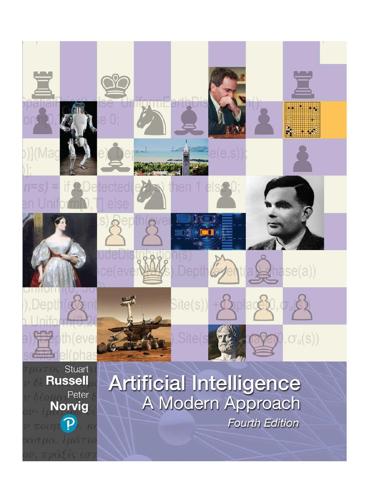
Artificial Intelligence: A Modern Approach
by
Stuart Russell
and
Peter Norvig
Published 14 Jul 2019
To handle this, we as a society need to provide lifelong education, perhaps relying in part on online education driven by artificial intelligence (Martin, 2012). Bessen (2015) argues that workers will not see increases in income until they are trained to implement the new technologies, a process that takes time. Technology tends to magnify income inequality. In an information economy marked by high-bandwidth global communication and zero-marginal-cost replication of intellectual property (what Frank and Cook (1996) call the “Winner-Take-All Society”), rewards tend to be concentrated. If farmer Ali is 10% better than farmer Bo, then Ali gets about 10% more income: Ali can charge slightly more for superior goods, but there is a limit on how much can be produced on the land, and how far it can be shipped.